




See yourself at SCAD, page 6.
B.A. M.F.A. Bachelor of Arts Master of Fine Arts
B.F.A. M.Arch. Bachelor of Fine Arts Master of Architecture
M.A. SCAD offers more degree programs Master of Arts and specializations than any other art and design university in the U.S.
Start your career path, page 52.

Jump into the next generation, pages 102, 116, 132, and 144.
in
*Percent
row * age of Spring 2021 graduates who were employed, pursuing further education, or both within 10 months of graduation, according to a recent study. Prepare to go pro, page 24.
50,000+ alumni
650+ top companies recruit from SCAD every year
Big names, big opportunities, page 26.
500+ assignments with clients like: Amazon, Coca-Cola, Disney, Google, Lenovo, L’Oréal, NASA, Target, and YouTube
13
Go, Bees! The art of the game, page 48.
200+ job offers from SCADpro assignments
Innovate with the industry’s best, page 28.

Speak. Visualize. Connect. Professional presentation coaching with SCADamp
Seize the moment, page 32.
Top rankings from Art & Object, The Hollywood Reporter, Red Dot Design, and more

roles booked through the SCAD Casting Office
Get ready for your close up, page 120.
500+ + SCAD student
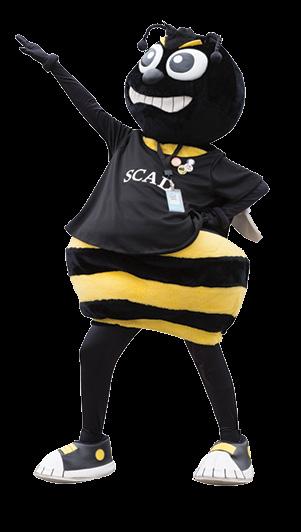
450 first-place wins in 2021
wellness support
24/7 with Bee Well
See more of student life, page 44.
+ alumni contributors to 2022 Oscar nominated films
150
museums on two
3 continents and 1 global art consultancy
Refined art, page 36 and 40.
Bees build. Bees create. Bees give generously of themselves to their communities and their homes, working harmoniously together. They’re diligent, collaborative, and enterprising. And, just like us, they love beautiful things. They live with purpose. Each bee understands the assignment. Bees have a crew, a team, a hive and now, so do you.
Here at SCAD, Bees imitate bees by building bespoke brands, founding world-famous fashion houses, and establishing entertainment empires. They do it hand-in-hand with their classmates, SCAD grads, and our student-focused faculty and staff. You will always have an advocate in your corner, a mentor to rely on, and the support of the entire SCAD family. Through graduation and beyond, you will be working alongside your best friends. Creators who get it, who understand what you are building and are eager to build it with you.
Nicola Rinciari (B.F.A., film and television, 2020) directed and produced his Student Academy Award–nominated film, Our Side, with Emily Dillard (B.F.A., film and television, 2020) and brought 21 fellow SCAD Bees to film and create on location in Sicily. The entire crew excelled as a unit, dazzling the veteran filmmakers they encountered abroad. No wonder they were nominated for an Oscar.
Ciaran McGuigan (B.F.A., film and television, 2014) transformed Orior, an Irish furniture company, into a luxury design studio with the help of five of his best friends, all SCAD grads. They took the company international when they opened Orior’s first U.S. showroom in New York City. When you’re in Tribeca, pop in and tell them Paula sent you.
MEPTIK, an immersive virtual reality technology company, was founded by eight SCAD grads. Christopher John Rogers (B.F.A., fashion, 2016) founded his world-famous couture fashion label with his fellow Bees, friends he met during his first year at SCAD. And there are so many more!
SCAD is where you will find your people, and where your people will find you!
Over the past year, SCAD has been named the number one art school in the U.S. by Art & Object, the number one design school by Red Dot Design, Forbes’ number one university for “Shaping the Future of Fashion,” and the only university named in all five of The Hollywood Reporter’s academic rankings for top universities.
SCAD is the preeminent source of knowledge in every subject we teach, and the Bees that take flight from our hive shape Fortune 100 companies, start their own labels, and launch studios worldwide.
If you want to fly…if you want to transform the world ahead of you…if you want to make the world a better place alongside your best friends, welcome to our hive!
In love and possibility,
Paula S. Wallace SCAD President and Founder @paulaswallace

Students choose their own creative adventure at SCAD Savannah, where more than 100 degree programs provide a future-forward curriculum woven throughout cuttingedge advanced learning environments in this historic city.

SCAD students find their hive in the most distinctive built environment in higher education—with nearly 70 artfilled, high-technology buildings and residence halls, including approximately 60 revitalized historic properties where contemporary resources meet preservation design.
The next wave of design leaders study in storied buildings that house programs and unmatched resources like SCADpro, the university's creative research and innovation design studio. At SCADpro, top companies like Google, BMW, HP, Target, and more tap SCAD students to find their next big idea.
The award-winning SCAD Museum of Art, once the headquarters of the Central of Georgia Railway, fuels inspiration
and welcomes today’s great minds at major art-world events like SCAD deFINE ART. The university's new XR stage and Hollywood-style backlot expansion of Savannah Film Studios includes 11 acres of tree-lined streetscapes, a town square, a hospital façade, and a fabrication space for props, sets, costumes, and more.
From the historic district to Tybee Island’s sunny shore (just a short drive from downtown), the SCAD imprint is evident across this coastal city, as a cadre of alumni-owned businesses —from architecture and design firms to galleries and boutiques to cafés and restaurants—elevate the allure of this storybook Southern locale. At SCAD’s festivals and grand celebrations—including the SCAD Savannah Film Festival, the largest university-run film festival in the world, SCADstyle, SCAD FASHION, and more—students take the stage, connect with VIPs and peers, and launch their careers.
SCAD amenities like Pool at The Hive make Savannah feel like home.The Savannah College of Art and Design has provided the cultural heartbeat of the city since 1978. Scattered across Savannah's historic center, the school's buildings are works of art in themselves.
— LONELY PLANET

Savannah’s historic district, SCAD’s home, looks like a Hollywood movie studio backlot staged for a traditionally Southern-based production.
— FORBES
SALUTE TO SAVANNAH
World's Greatest Places
Time
Top U.S. City list
Travel + Leisure
No. 1 city for creative professionals


Thrillist
Top travel destination in the U.S.
Goop
Best U.S. Small Cities
Condé Nast Traveler
Atlanta is a top destination for visionary professionals. The city’s buzzworthy startups, soaring film scene, and multinational companies like Porsche, CNN, The CocaCola Company, Tyler Perry Studios, Delta Air Lines, and Microsoft solidify the city as a celebrated metropolis of commerce, ingenuity, and grit.
These elite bastions of business and design that call Atlanta home translate to extraordinary job, internship, and professional opportunities for SCAD students and alumni.
For every pursuit, SCAD Atlanta offers next-level tech and resources. The SCAD Digital Media Center rivals major studios with its state-of-the-art XR stage and stellar production and postproduction spaces for animation, film, television, gaming, augmented and virtual reality, and visual effects. In screenwriting labs, emerging storytellers pen everything from films and sitcoms to commercials and social media campaigns. At SCAD FASH Museum of Fashion + Film, must-see exhibitions and exclusive screenings herald the future of style.
Students spread their wings in high-design residential suites in FORTY and FORTY FOUR, which offer several stories of spectacular Midtown views, study spaces, dining, and more. Energy, inspiration, and entertainment are just steps away in Atlanta’s chic shops, major venues, and notable spaces, including Piedmont Park, Atlantic Station, Buckhead, and the Beltline.
SCAD is recognized as a top university by industry-leading media, including The Hollywood Reporter, The Wrap, Backstage, and Variety. SCAD stars work in front of and behind the lens on hit television shows and blockbuster movies, make their mark on Atlanta’s arts and innovation scene, and contribute to the growth of the city’s top companies through SCADpro, the university's creative research and innovation design studio. SCAD students helped Atlanta-based retailer The Home Depot reimagine a more immersive mobile and in-store customer experience for DIY projects. They also developed marketing concepts and collateral for AT&T and prototyped a new DIY section of The Home Depot app.
Students study, mingle, and collaborate at FORTY residence hall, which features a café and lounge spaces on every floor.




Spider-Man: No Way Home
Hawkeye
Falcon and the Winter Soldier
Ozark
WandaVision
Atlanta
Red Notice
Black Widow
In the heart of Midtown, SCAD Atlanta offers students access to new exhibitions and cool gathering spots, whether on or off campus.Atlanta
—
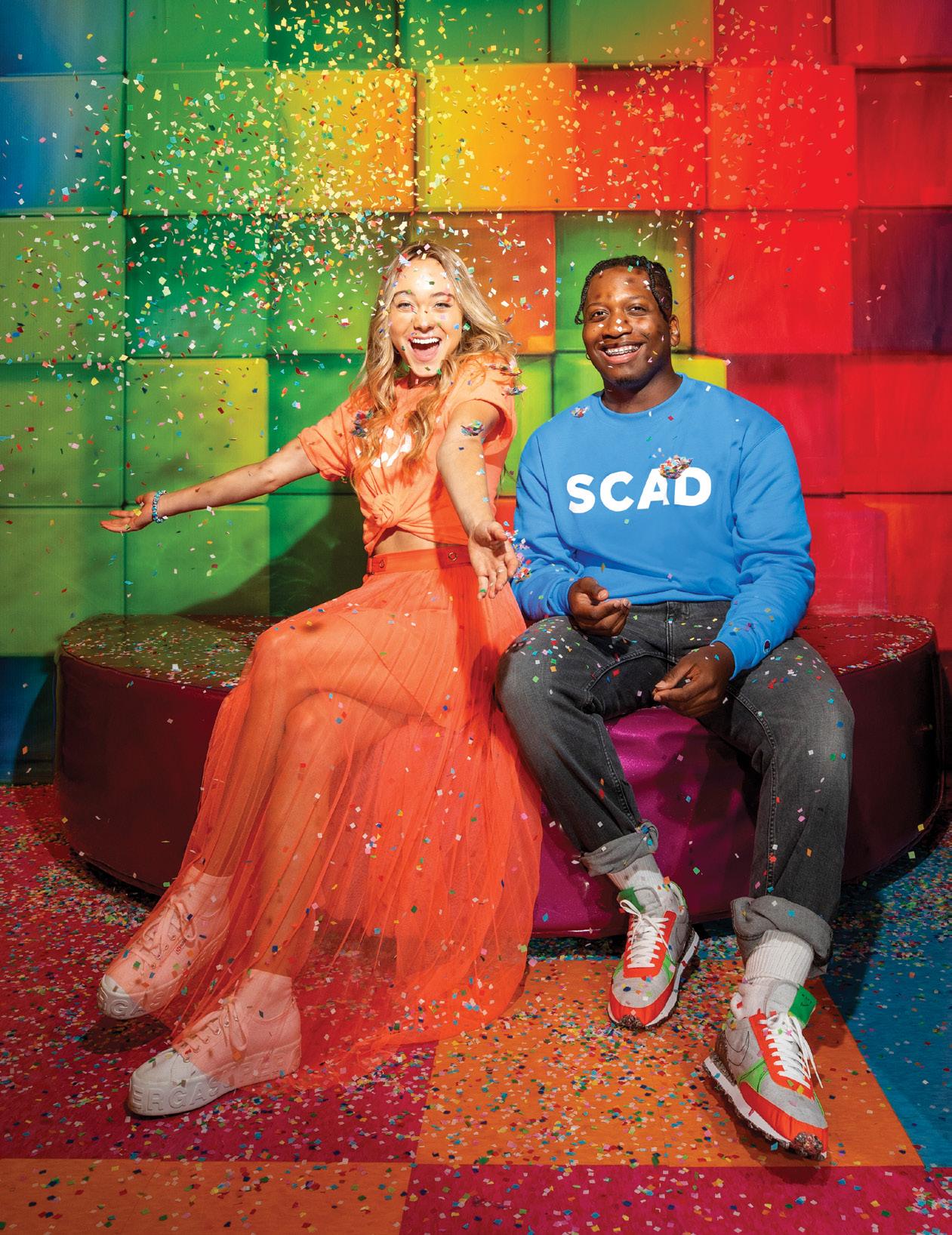
is among the best places for businesses and careers.

For 20 years, SCAD Lacoste has welcomed internationally renowned luminaries and intrepid students to explore its exquisitely conserved architectural treasures—some dating back to the ninth century—that are now part of a modern outpost for the premier university for art and design education. From this study-abroad destination in southern France, new enrollees, students, and alumni alike add an international perspective to their practice and launch globetrotting careers.
Prior to starting their SCAD education, all students are offered the opportunity to visit Lacoste through Pre-Bee, a weeklong introduction to academic expectations and life at SCAD combined with a journey through the region once trod by Monet, van Gogh, and Picasso. As a studyabroad location, Lacoste invites students to seamlessly continue their SCAD degrees as they make unforgettable memories. Courses vary each quarter, with offerings in areas such as advertising and branding, animation, art history, fashion, film and television, interior design, painting, and photography. Students also have the opportunity to participate in Lacoste-based SCADpro assignments and connect with companies throughout Europe.
After graduating, SCAD alumni are offered the opportunity to return to the region during Après SCAD, an exclusive professional development retreat, or to complete an artist’s ambassadorship and residency in the SCAD Alumni Atelier. While the Luberon Valley and its rolling fields of lavender form a resplendent backdrop to the village, digitally connected classrooms and a library ensure students and alumni stay tapped into their studies or their work as they enjoy this once-in-a-lifetime experience.
Beyond these experiences, a slate of year-round programming has made Lacoste and the surrounding Luberon Valley an international destination for art, fashion, film, and more. SCAD FASH Lacoste has hosted sweeping retrospectives of fashion designers including Pierre Cardin and Isabel Toledo, while SCAD AnimationFest Lacoste and the SCAD Lacoste Film Festival celebrate both the region and country's contributions to the screen.

 SCAD Lacoste welcomes distinguished guests like artist Ruben Toledo for special events, museum exhibitions, and classroom visits with SCAD study abroad students.
SCAD Lacoste welcomes distinguished guests like artist Ruben Toledo for special events, museum exhibitions, and classroom visits with SCAD study abroad students.
John Malkovich
Actor and designer
Ilse Crawford
Interior and furniture designer

Bibhu Mohapatra
Fashion designer
Shane Gabier and Christopher Peters
CFDA/Vogue Fashion Award recipients
Genevieve Gorder
Interior designer and television host
Lynn Yaeger
Vogue contributing editor
Jamie Beck
Photographer and social media influencer

Ruben Toledo
Artist
 SCAD Lacoste is home base for SCAD Alumni Atelier ambassador William Ruller (Eugene, Oregon).
SCAD Lacoste and its surroundings offer a bounty of breathtaking views.
SCAD Lacoste is home base for SCAD Alumni Atelier ambassador William Ruller (Eugene, Oregon).
SCAD Lacoste and its surroundings offer a bounty of breathtaking views.
Com
bining
real
-time engagement and on-demand access, SCADnow offers on-the-go artists, designers, and professionals unparalleled distance education.

The university's signature online learning platform, SCADnow connects students anywhere in the world with professors, peers, and professionals through a vibrant, digital community. With courses streaming in real time and accessible anytime, students master their disciplines as they learn from world-class SCAD faculty. Depending on their major, students may take all or part of their program online through SCADnow.
SCADnow empowers all students, from those logging in around the globe to those on-ground at a university location, with the flexibility to digitally connect to their studies according to their own distinct schedules. SCADnow courses meet online via Zoom at designated times throughout the week and feature real-time, face-to-face lectures, demonstrations, discussions, and collaborations. For students who prefer to experience SCADnow on their own schedule, classroom engagement is amplified through on-demand discussions, course content, and recorded class sessions. To complement the "in-class experience," SCADnow offers students a robust array of extended learning opportunities and support services.
Outside the digital classroom, SCADnow students participate in virtual conversations and master classes with the creators and innovators remaking art, design, and entertainment. SCADextra and SCADextra TECH workshops extend the learning experience by encouraging students to delve deeply into unique subjects and skill sets that augment "in-class learning" and strengthen their sense of community. Through SCADamp, the university's professional presentation studio, students develop and deliver compelling pitches and presentations, preparing them to capitalize on career-making, peak-performance moments.
SCADnow learning opportunities also extend to professionally driven SCAD initiatives, like digital collaborations with top companies via SCADpro, the university's creative research and innovation design studio, and virtual employer recruitment and interviews through CAS on Demand. From interior designers managing client relationships that stretch across the world to fashion designers exhibiting on the virtual runway, SCADnow maximizes connectivity and choice while preparing students for the realities of working and collaborating as creative professionals.
Speaking of companies innovating, kudos to SCAD for the SCADnow asynchronous class offerings. The structure the university and my professor created this quarter has hands down been my favorite so far.
SCOTT DINTELMAN
Communication designer, Boeing SCAD M.A. interactive design and game development Ladson, South Carolina


At SCAD, innovation extends to all 100-plus degree programs the university offers. SCAD constantly researches and reimagines its programs—top-ranked by The Hollywood Reporter, The Business of Fashion, Red Dot Design, The Rookies, DesignIntelligence, and Variety, among others—to instill the critical skills and knowledge students need to succeed in their chosen careers, an approach that garnered recognition from CBS Evening News with Norah O'Donnell in 2022 as a singular example of innovation in higher education. SCAD consults industry leaders, gathers data on business and design needs through SCADpro, and collects student feedback to inform the genesis and evolution of every degree taught at the university.
SCAD undergraduate and graduate courses are taught on the 10-week quarter system, which mirrors the fast-paced deadlines and frequent feedback of the business world. The First Year Experience course introduces every new undergraduate student to life at SCAD, from choosing classes and majors to mastering resources and joining clubs.
For all students, faculty, alumni, and staff, the SCAD Office of Inclusion works to ensure every member of the university community feels welcomed, valued, respected, and empowered to thrive. Year-round, the office hosts a series of conversations with top professionals about diversity in major creative industries, offers virtual diversity and inclusion courses, and promotes participation in community initiatives with organizations around Atlanta and Savannah.
SCAD offers a comprehensive array of software packages across its disciplines, including Bluebeam Revu and Enscape for architecture and Katana for motion media design. The full Adobe Creative Cloud Complete is available for download to students' personal computers. In global SCAD libraries, students have access to more than 1 million print and electronic resources—the largest collection at any specialized art and design university.
Exceptional students from select SCAD programs can maximize their education and enhance their career preparation through GRADpath@SCAD, an accelerated track that propels students to earn both a B.F.A. and M.A. in four years, or a B.F.A. and M.F.A. in five years.
In graduate disciplines like design for sustainability, creative business leadership, luxury and brand management, and themed entertainment design—available only at SCAD—students become thought leaders in the creative economy and entrepreneurs stewarding successful personal brands and businesses.
By launching groundbreaking new degree paths and revamping its existing programs, SCAD ensures students like 2022 SCAD Savannah salutatorian and Google interaction designer Andrew Goodridge (West Chester, Pennsylvania) are prepared for rewarding careers.
Disney
Electronic Arts
Rolling Stone
Oculus
Cartoon Network
Sony
The Guardian
DC Comics
SCAD faculty usher in the next generation of creative leaders with innovative instruction. With awards from The Hollywood Reporter, the Cannes Film Festival, and the American Institute of Architects, as well as Emmys, Oscars, and Peabodys, SCAD educators are career-making mentors who bring executive experience to the virtual and in-person classroom.
Future beauty business leaders make their mark with expertise from associate dean Meloney Moore, whose role as Estée Lauder’s executive director of marketing helped establish business of beauty and fragrance, one of SCAD’s 40-plus majors. Burgeoning design leaders have the model mentor in user experience (UX) design chair BC Hwang, who was the senior director of Samsung Electronics' Mobile UX Innovation Lab before teaching at SCAD. The next generation of interior design leaders can learn to create spaces for renowned institutions from professor and SCAD alum Brian Sweny, who led the design of the Centers for Disease Control and Prevention’s Global Health Communication Building, the restoration of the New York Public Library Reading Room, and the adaptive reuse of the Old Bird House at the Bronx Zoo.
When sequential art students want to create their own superheroes, they shadow professor Rashad Doucet, an Eisner-winning comic book creator whose credits include Invader Zim and Rick and Morty, and whose latest book Pax Samson: The Cookout is distributed by Simon & Schuster. Students bound for stage, screen, and behind-the-scenes study with actor and SCAD chair of film and television D.W. Moffett, who starred in hit shows including How to Get Away with Murder, Chicago Med, Switched at Birth, Happily Divorced, Friday Night Lights, and more.
While SCAD professors continue to research, publish, and practice in their areas of scholarship, their greatest achievement is their students' success. SCAD students receive individual attention and work side by side with these highly accomplished educators in small classroom settings. SCAD professors also invite their elite networks into the classroom. Unique-to-SCAD connections lead to coveted student internships and jump-start rewarding careers.
The New York Times
Vivienne Westwood
Maybelline marketing trainee U.S. Lip category, L'Oréal SCAD B.F.A., business of beauty and fragrance, 2021 SCAD B.F.A., fashion marketing and management, 2021 New York, New York
Professor of accessory design and SCAD grad Michael Mack shares his expertise of more than 12 years at major labels including Roberto Cavalli, Vince Camuto, Bass, Levi's, Steve Madden, and more.
Our professors were global minded and emphasized emerging markets outside of the U.S. or European market. Global classes prepared me for my career, and the exposure gave me a solid background overall.
SCAD is home to an awardwinning faculty of more than 700 professors.


The SCAD office for career and alumni success champions students from the first day of class to first jobs and beyond through focused resources, events, and advising.
All SCAD students are assigned a personal adviser to guide them as they set a customized Career Action Plan and check off goals as they advance through the plan. With individualized coaching, students develop distinctive résumés and portfolios, secure internships, ace interviews and presentations, and engage confidently with employers from visionary firms at the university’s signature recruiting events. With career-defining resources like SCADpro, the university's creative research and innovation design studio, and SCADamp, the university’s professional presentation studio that turns novices into compelling presenters, students gain first-hand professional and public speaking experience. Through workshops like the CATALYST series, SCAD students network with future-thinking professionals focused on equity and accessibility in the professional realm.
A SCAD degree offers entry to a prestigious global network of professional connections, including more than 50,000 alumni and creative leaders who become future employers, peers, and collaborators. SCAD graduates remain engaged with the university through signature events and alumni mentorships, where they illuminate the professional path for current students looking to follow in their footsteps.
SCAD pledges lifelong support to graduates and stands ready to help them maximize their creative potential and reach professional goals. Through the SCAD Alumni Society, the university advances alumni careers via curated networking services, communication coaching, and distinctive offerings like SCADpro Fund, which invests in new ventures by alumni entrepreneurs, and the SCAD Alumni Atelier, an ambassadorship where distinguished graduates advance their creative and professional endeavors with a focus on brand-building and entrepreneurship.
*Percentage of Spring 2021 graduates who were employed, pursuing further education, or both within 10 months of graduation, according to a recent study.
HOPE KEMP-HANSON
Assistant manager apparel design, Adidas
SCAD B.F.A., fashion, 2021
Portland, Oregon
Industrial design students like Nathan Alfie (Clermont, Florida) prepare for innovative design careers through unique SCAD learning opportunities, such as a Porsche car sketching session with visiting artist Rod Camus of Pro Car Sketch.
SCAD has prepared me with technical development and skills that I wouldn't have gained anywhere else.
3M HBO Paramount
Activision Hexbug Perkins+Will
Amazon Hi-Rez Studios Procter & Gamble
Bento Box HKS Architects PVH Corp.
BuzzFeed HOK Quicken Loans
Chanel IBM R/GA
David Yurman Insomniac Games RH
Dell Instagram The Smithsonian
DreamWorks Animation John Hardy Tapestry
Duolingo Kiehl’s Tory Burch
Epic Games Lowe’s Under Armour
Estée Lauder Mailchimp Warner Bros.
Ethan Allen Marvel West Elm
Ford Motor Company Mattel Wix.com
Framestore Mercedes-Benz Wizards of the Coast
Gensler
Milwaukee Tool Vineyard Vines
Hachette Book Group MTV
SCAD M.F.A. students Chahat Malhotra and Hallmark Anita Okoye take notes from Nike Vice President
Hasbro
Newport News and Head of Global Brand Creative Jonathan Johnsongriffin and Global Brand Creative Sr. Shipbuilding Studio Manager Genevieve Richardson.
The New York Times NPR

 SCAD grads Jordan Yowell, Dominique Angelo, Raegan Levan, and Andrew Henriquez, pictured with Deloitte senior manager Gregory Voytilla, were all hired by the company after participating in a series of SCADpro assignments that infused design thinking into Deloitte's range of services.
SCAD grads Jordan Yowell, Dominique Angelo, Raegan Levan, and Andrew Henriquez, pictured with Deloitte senior manager Gregory Voytilla, were all hired by the company after participating in a series of SCADpro assignments that infused design thinking into Deloitte's range of services.
When big-name companies seek fresh ideas, new inventions, and creative solutions, they turn to SCADpro. Recognized as the preeminent innovation generator and design partner in higher education, SCADpro embodies the university ethos of rigorous academics, 40 of Forbes’ professional collaboration, and comprehensive career preparation.
SCADpro extends the university's reputation as an academic leader in generative research to clients large and small, delivering key insights on maximizing efficiency, understanding Gen Z customers, and boosting bottom lines to companies like Disney,
most valuable 100 Google, and Volvo, among others. Advanced students pursue SCADpro assignments brands are that fulfill degree requirements and reinforce essential professional attributes, from SCADpro flexibility and communication to market research and project management. Through clients. FutureProof challenges sponsored by global partners, SCAD students and faculty ideate on big-picture issues like the future of K-12 education, remote work, and adapting restaurants to fit mobile, modern needs.
Most impactfully, SCADpro experiences can lead to top jobs at global powerhouses.
SCAD animation grad Adriana Manrique
Gutierrez wowed NASA partners on an
assignment creating educational materials
and outreach marketing for ICESat-2, a satellite measuring ice sheet elevation.
Gutierrez was hired by NASA as a mul-
timedia specialist on public outreach for
the multinational, $10 billion James Webb Space Telescope, which launched in 2021.
SCADpro partner Raegan Levan, a film and television grad, Director of global thought leadership, Fidelity Investments rethought the at-home employee experience for Deloitte Digital and earned a job offer from the international company. Tabish Ahmed, an interactive design and game development grad, was hired by Google even before he graduated. He worked there for six years before moving on to the New Product Experiments Team at Facebook and Meta. Collectively, more than 7,000 students have built extraordinary résumés and portfolios through these assignments and design challenges, and many earn internship or career offers to continue their work at IBM, Microsoft, Walt Disney Imagineering, and more.
In recent assignments, SCADpro students have designed the future of car buying for Ford. Snap-on tasked SCADpro students with inventing future-forward tools by rethinking materials, shape, portability, and strength. Gulfstream Aerospace sought SCADpro insights to rethink the design of their flight deck consoles. The city of Mobile, Ala., partnered with SCADpro to honor the legacy of Africatown and the Clotilda, the last recorded slave ship to arrive on U.S. soil, with a documentary and water tour.
SCADpro was an awesome experience. We
were very impressed by the team's work. The
students were creative, thoughtful, professional,
and realistic. It was a blast to work with them,
and I appreciate how quickly they immersed
and adapted to the course challenge. They all
have a lot to be proud of.
Multidisciplinary teams have improved doctor-patient interactions for 3M, charted the consumer journey for financial company Intuit, made DMV trips more efficient by reimagining online services for Deloitte, created + a mobile-friendly training game for Delta Air Lines, maximized the efficiency of Chick-fil-A's queue lines, and partnered with local hospitals
500 SCADpro to equip doctors and nurses who treat COVID-19 patients with personal assignments protective equipment (PPE) 3D-printed in university labs.
+


300 clients
200 challenge led by SCADpro and the user experience design student club FLUX. SCADpro also partners with alumni after graduation, supporting them with the mentorship and momentum necessary to launch successful new companies, products, and services in the global marketplace.

SCAD also prepares students to pursue their own entrepreneurial + endeavors. Students are provided the resources and tools to create an original product or service concept in SCAD StartUp, a weeklong business
offers of employment

When the Alabama city of Mobile was looking for a way to tell a long-forgotten story about
its past, it turned to SCADpro, the in-house SCADpro
innovation studio of the Savannah College of Art and Design. — ATLANTA JOURNAL-CONSTITUTION
+ products taken
50 to market by SCADpro partners
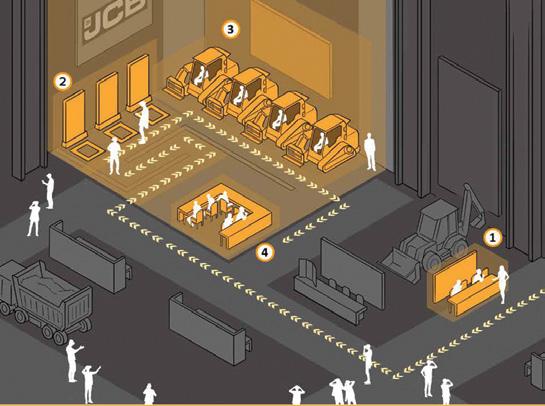
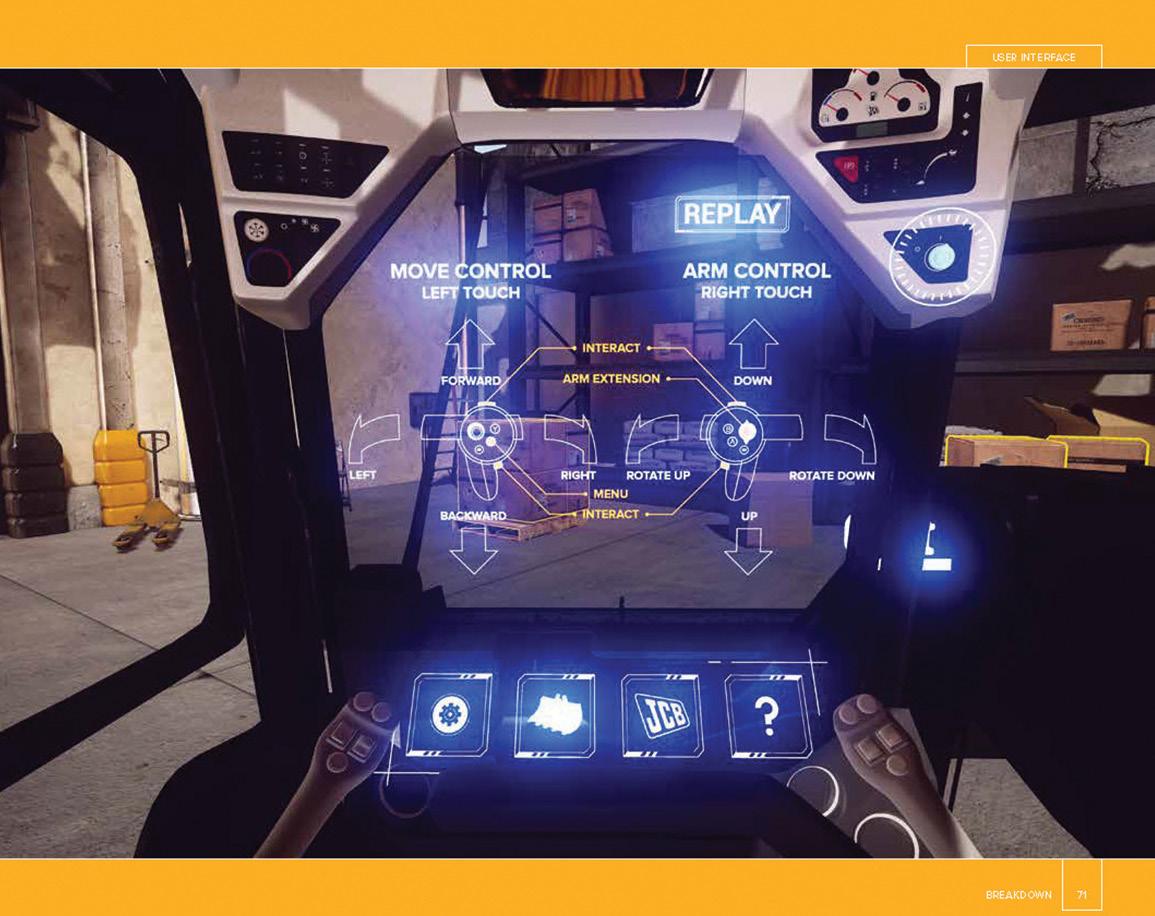


From elevator pitch to presentation or Zoom to boardroom, SCADamp prepares students and alumni for the peak-performance moments that launch brands, businesses, and careers.
In SCADamp's tiered workshop series and one-on-one coaching sessions, students learn how to speak, visualize, and connect across a wide spectrum of career-defining contexts. Equipped with the latest technology and presentation stages—including simulated speaking environments, videoconference spaces, and virtual reality stations—students are taught to share their work, ideas, and credentials with polish and power.
SCADamp coaching helped SCAD fashion With its advanced technology and experienced maven Christopher John Rogers win the coaches, SCADamp sets the stage for students CFDA/Vogue Fashion Fund, announcing to be heard — and get hired. his brand in the fashion world on a global stage. Much like Rogers, Naecia Dixon sharpened her presentation, interviewing, story mapping, and visualization skills en route to a trio of major accolades: the 2022 Fashion Scholarship Fund Case Study Competition, the FSF Chairman's Award, and the 2022 Virgil Abloh Postmodern Scholarship. SCADamp coaches have also assisted SCAD teams who have won international competitions like Walt Disney Imagineering's Imaginations Design Competition and the Global Wellness Summit’s Shark Tank of Wellness Global Student Competition.
SCADamp coaching extends to the entire university community. As a complement to the SCAD curriculum, the SCADamp workshop series further advances the university mission to prepare talented students for creative professions by amplifying their stories through verbal, visual, and interpersonal communication. Students can track their progress in SCADamp's tiered workshop series, much like their degree requirements, and receive a certificate of completion after finishing the program's 18 workshops.
Available online 24/7, the SCADamp digital platform and video resource library hosts interviews with actors, voiceover talent, and producers, and step-by-step tutorials on how to maximize sound, lighting, and camera angles.
In addition to SCADamp's tiered workshop series, students can also opt for individualized sessions with communications coaches or SCADamp director Allison Steinweg.
ON-SET TECH
Mixed-reality (XR) stages
4K cameras
Chroma key green screen studios
Foley and automated dialog recording stages
Hasselblad X5 film scanners
Icon D-Command recording studios
Phase One 100MP Camera Systems
Vicon motion capture studios
For every pursuit, SCAD offers a wonderland of physical and digital resources designed to exceed the top studios, startups, and firms SCAD students will go on to lead.
Chasing a career in cinema? Savannah Film Studios and the SCAD Digital Media Center in Atlanta house production spaces rivaling those of Hollywood's best studios to raise your filmmaking star. Shoot cinematic masterpieces with 4K cameras on backlot streetscapes from the largest film-production complex in higher education or set up the perfect shot in front of next-generation mixed-reality (XR) stages—the same projection system used in Disney's blockbuster Marvel Cinematic Universe films and the hit show The Mandalorian. Behind the scenes, SCAD sound designers compose soaring soundscapes on Foley soundstages and in Icon D-Command recording studios.
Special effects more your style? SCAD digital media students film on green screens and Vicon motion-capture systems to make digital wizardry, or create content with Maya, Blender, Toon Boom, or Katana (invented by SCAD grad Steve Lavietes, netting him an Academy Award!). Developing the next Twitch sensation? Program your games with Unreal and Unity, then explore your digital worlds with the latest VR headsets —Oculus Rift, HTC Vive, and Samsung Gear VR—available at The Shed in Savannah.
SCAD's 11-acre Savannah Film Studios is the most comprehensive university film studio in the U.S.
Musical maestro? Lay down your tracks with Ableton Live, the same program used by superproducers Diplo, David Guetta, and Deadmau5. Future in fashion? Print your oneof-a-kind patterns at Number Nine’s state-of-the-art digital textile lab. Pro at product design? Use the university’s range of 3D printers, injection molding machine, or CNC mill and routers to bring your concepts to life.
Software from Adobe to ZBrush
3D printers
Chromira ProLab printer
CNC mill and routers
Injection molding machine
Jacquard loom
The XR stage at SCAD's Savannah Film Studios.

Christian Siriano
Robert Wilson
Christto & Andrew
Marina Abramović
Romare Bearden
Sanford Biggers
Nick Cave
Carlos Cruz-Diez
Kenturah Davis
Helen Frankenthaler
The Haas Brothers
Alfredo Jaar

Jacob Lawrence
Marilyn Minter
Shirin Neshat
Toyin Ojih Odutola
Tim Rollins and K.O.S.
Kiki Smith
Kehinde Wiley
Dustin Yellin
Featuring work by visionary artists and designers across nations and generations, SCAD exhibitions range from painting, sculpture, photography, and prints to couture garments, film, and digital media, complementing the artistic disciplines offered at the university. SCAD is the only university with three museums on two continents, with locations in Atlanta, Savannah, and Lacoste, enlightening minds and elevating dialogue year-round with public programming, including lectures, screenings, workshops, and gallery talks, as well as inventive virtual events and tours.
Imaginative exhibitions across more than 10 galleries at the SCAD Museum of Art bring international, emerging, and established artists to engage with SCAD students and enrich Savannah’s cultural calendar. A premier contemporary art museum, SCAD MOA shows and commissions work by ascendant and established artists at the leading edge of visual and material culture. An award-winning architectural icon, the museum attracts visitors from around the world to the heart of Savannah’s vibrant downtown historic district and incorporates the oldest surviving pre-Civil War railroad depot into its striking contemporary design.
SCAD MOA’s dedicated alumni gallery offers SCAD graduates international exposure with major career milestones like their first solo museum exhibitions. Permanent gallery space is also dedicated to exhibiting the work of contemporary Black artists, in conjunction with programming offered by the Evans Center for African American Studies at SCAD.
HANK WILLIS THOMAS
Conceptual artist exhibited at SCAD Museum of Art
SCAD Museum of Art hosts exhibitions and installations from renowned artists, including Katharina Grosse’s Chill Seeping, 2022, acrylic on fabric, courtesy of VG Bild-Kunst in Bonn, Switzerland.
Having a museum like the SCAD Museum of Art, which has international artists in various mediums and processes with a high level of curatorial rigor, is unique.


With imaginative exhibitions and iconic looks, SCAD FASH Museum of Fashion + Film in Atlanta celebrates fashion as a universal language, garments as important conduits of identity, and film as an immersive and memorable medium of popular culture.
Lauded by elite fashion publications including Vogue, W magazine, and Vanity Fair, the museum presents ingenious exhibitions, captivating films, and enticing events that mine the rich and storied legacies of fashion history to inspire contemporary designers and future innovations. Recent exhibitions include Freehand Profit: Face Value, Robert Wun: Between Reality and Fantasy, Ruth E. Carter: Afrofuturism in Costume Design, AlaïaAdrian: Masters of Cut, the Derrick Adams exhibition Patrick Kelly, The Journey, and Pierre Cardin: Pursuit of the Future. A vital creative resource and ultra-chic destination in Atlanta, SCAD FASH connects students and visitors to renowned designers and filmmakers around the world.
The French affiliate of SCAD FASH Museum of Fashion + Film in Atlanta is set in Lacoste, a destination for the arts and artists for centuries. The SCAD FASH Permanent Collection from both locations includes approximately 2,000 garments and accessories from legendary designers. Supported by SCAD’s strong global presence and connections to renowned contemporary fashion designers, filmmakers, photographers, and creative professionals around the world, SCAD FASH Lacoste has featured exhibitions including Isabel Toledo: A Love Letter, Notre Ami, Pierre Cardin, with two exhibitions on view each year.
— THE ATLANTA MAGAZINE
Ruth E. Carter: Afrofuturism in Costume Design
Robert Fairer Backstage Pass: Dior, Galliano, Jacobs, and McQueen
Alaïa-Adrian: Masters of Cut
Pierre Cardin: Pursuit of the Future
Carolina Herrera: Refined Irreverence
Daniel Lismore: Be Yourself; Everyone Else Is Already Taken
Oscar de la Renta
Guo Pei: Couture Beyond
Robert Wun: Between Reality and Fantasy
Derrick Adams: Patrick Kelly, The Journey
Kaleidoscope Katrantzou: Mary Katrantzou, 10 Years in Fashion
Isabelle de Borchgrave: Fashioning Art from Paper
SCAD's unwavering support is visible through unprecedented resources the university offers alumni. Through SCAD Art Sales, SCAD is the only university to offer a commercial gallery service that exclusively represents the work of students, alumni, and faculty to an international clientele. Artists represented by SCAD Art Sales book commissions like HBO’s The Undoing, brighten corporate headquarters at Microsoft, Facebook, and Wayfair, and delight millions of fans in the Art Collection at Mercedes-Benz Stadium in Atlanta, curated by SCAD. Across the globe at hotels by Sotherly, Kimpton, and the Four Seasons, international travel epicenters like Heathrow Airport, and in notable new restaurants, SCAD art shines. The SCAD Art Sales fine arts consultancy team actively recruits clients across residential, commercial, and hospitality sectors, and maintains relationships with private collectors. SCAD Art Sales also offers an avenue for artists to sell their work directly to global clients through its online gallery and at virtual Open Studios, where SCAD artists showcase their distinctive work to fine art’s international tastemakers.
Complementing the university’s preeminent curriculum, SCADpro Fund invests in new
ventures by SCAD alumni, helping them
scale fast and solve business challenges
through innovation by design. Supported
by the resources of SCADpro Fund, alumni entrepreneurs including Streamlytics CEO AUSTIN
Angela Benton, Q4 Sports co-founder Quin- Founder and CEO, Deepr tin Williams, and Parafin, Inc. founder Brian SCAD B.F.A., industrial design, 2006 Ahmes build valuable businesses that Germantown, Tennessee compete on an international scale, while nurturing their home communities and creating new internship and job opportunities for SCAD students. Personalized SCADamp consultations equip alumni with the pitching and presentation prowess to secure backers or shine in big media moments. Alums Eleanor Turner, founder of sustainable brand The Big Favorite, and Christopher John Rogers, famed fashion designer, have used SCADamp to bolster their career journeys post graduation.
The SCAD Alumni Atelier, conceived and endowed by SCAD President and Founder Paula Wallace, offers alumni the time, space, and resources to immerse themselves in the creative process and launch a new, progressive phase of professional work. SCAD Alumni Atelier associates and ambassadors advance their careers, strengthen their connection to the university, and join a select cohort of ascendant and established entrepreneurs, artists, designers, and scholars. At professional networking opportunities across the globe and at SCAD locations such as Après SCAD in Lacoste, graduates
MEPTIK was co-founded by SCAD
M.F.A. motion media design alum connect with leading industry professionals and enrich their creative and professional Sarah Linebaugh (Atlanta, Georendeavors. The university’s alumni-mentorship program taps into the knowledge of gia). Pictured are MEPTIK SCAD distinguished graduates at every step of their professional journeys. At preeminent alums who designed the XR stage. From left to right: Joss Abaco, SCAD signature events and in the classroom, alumni share wisdom, review portfolios, Sarah Linebaugh, Joshua Eason, and welcome the newest members of the SCAD family alumni. Industry and alumni
Alexander Smith, Julianna Mercado, Imani Daniels, and Jordan engagement leaders in key markets strengthen the alumni network and develop Adams Lambert industry partnerships that translate to new career opportunities for SCAD talent.
Getting SCADpro behind us is important
not only from the significant funding but from
the business acumen that the SCADpro team
brings to the table.
 SCAD grad-founded MEPTIK designed the 2,000-square-foot XR stage at Savannah Film Studios.
SCAD grad-founded MEPTIK designed the 2,000-square-foot XR stage at Savannah Film Studios.




Mahershala Ali
Manolo Blahnik
Jason Bolden W se
Rachel Brosnahan si
Bryan Cranston Th th
here does a master class with a Hollywood star or a portfolio review with a fashion icon em like a normal part of the schedule? Thanks to a year-round calendar of sparkling gnature events, SCAD offers students connections that inspire future careers.
Tom Ford we le
Blake Gray fe th
Prabal Gurung st
Maggie Gyllenhaal Ki Yel
e academic year starts with Atlanta's SCAD AnimationFest, an annual celebration of e medium's contributions to film, television, gaming, and more. Future filmmakers lcome cinematic icons like Kenneth Branagh, Samuel L. Jackson, and Maggie Gylnhaal to the SCAD Savannah Film Festival each fall, the largest university-run film stival in the world, which has screened more than 100 Oscar-nominated films over e past quarter-century. Then the artwork of SCAD students and alumni takes center age at SCAD AT MIAMI, the university's annual must-see experience at DesignMiami.
Ethan Hawke st SC
Hugh Jackman es
cking off winter quarter, SCAD TVfest offers sneak peeks of bingeworthy shows like lowjackets, This Is Us, and For All Mankind as well as insightful conversations with ars and showrunners like Milo Ventimiglia, Laurence Fishburne, and Judy Greer. AD deFINE ART features contemporary art and performances from emerging and tablished artists on an international scale.
Marc Jacobs Du st
Daniel Kaluuya SC te
Melanie Lynskey of Da
Ruth Negga Th Christopher in John Rogers sy fa
ring spring quarter, SCAD GamingFest wows with a playlist of deep dives on game ory and development from EA Sports, Ubisoft, Epic Games, and other major developers. ADstyle engages international innovators and influencers in beauty, design, media, ch, and more. Capping the year, SCAD FASHION showcases the dazzling collections student designers sartorial selections that turn heads at Vogue, Women's Wear ily, The New York Times, and garner millions of views on Instagram.
Hunter Schafer SC
Yara Shahidi
Kodi Smit-McPhee f t
Ahmir "Questlove" Thompson S @
roughout the year, SCAD students have the opportunity to meet the creators and novators remaking culture in virtual conversations, workshops, master classes, and mposia that offer exclusive access to inclusive voices. With topics covering art, design, shion, media, and more, SCAD signature events feature illuminating content from all AD majors. Thank
Reese Witherspoon Ac SC
Jason Wu
Odessa Young
ANIYYA SIDNEY
saniyyasidney tor, King Richard AD Savannah Film Festival honoree
From The Hive and Victory Village in Savannah to FORTY and FORTY FOUR in Atlanta to the charming ancient dwellings in Lacoste, SCAD residence halls are filled with joy, support, and one-of-a-kind designs. These spaces are outfitted with studios, gaming
lounges, study nooks, and exquisite alumni artwork. Premier fitness centers SCADfit in Atlanta, Savannah, and Lacoste, and ClubSCAD in Savannah feature a robust schedule of
group classes and private sessions with personal trainers available virtually or on-site.
The SCAD social calendar is packed with open-mic nights, talent shows, exhibitions, and annual traditions like the Masquerade Ball. SCAD Bees find their crew through
more than 100 student clubs and organizations dedicated to every pursuit imaginable,
including dance, anime, a cappella, and improv. Across locations, diverse student clubs advance academic programming and are affiliated with professional organizations, the LGBTQ+ community, support services, and religious groups. Locally sourced food prepared daily, along with meal kits, produce bundles, and no-hassle pickup options
from dining halls, markets, and grab-and-go eateries give students fuel for all of their co-curricular activities.
1,000
To ensure all students feel welcomed, valued, respected, and empowered to thrive, the every year SCAD Office of Inclusion offers access to resources and events that foster a culture of equity and inclusivity. Bee Well offers all SCAD students a safe, confidential source for comprehensive care and support for emotional, physical, and social health. Virtual group counseling or in-person individual sessions are led by licensed SCAD counselors, empowering students to explore in nonjudgmental settings and pursue their purpose.
Complementing Bee Well’s range of services, the 24/7 online personalized
platform YOU@SCAD connects students
to information, resources, peers, and
opportunities. From mental and physical the school offers. health to friendships, finances, and finding balance, YOU@SCAD helps students
DOROTHY MCCOYrefocus, recharge, and set goals. SCAD
parentStudents also have the opportunity to serve their local communities through SCAD
As part of the SCAD experience, SERVE, which brings together the SCAD community to listen to the needs of neighbors students study and learn in creative spaces designed especially and local leaders, and envision meaningful design solutions that improve the quality of for them, including open lounge life through four critical areas of need: food, shelter, clothing, and environment. Recent areas at Herstand Hall.
SCAD SERVE projects include the renovated Lofts on Pulaski that offers 22 affordable workforce housing units in downtown Savannah, a “Paint Our Parks” beautification initiative in partnership with the City of Atlanta Mayor’s Office of Cultural Affairs and Department of Parks and Recreation, and food deliveries to local families in need.
We were impressed with everything SCAD
had to offer our daughter. The wonderful thing
about being a SCAD student is all the support


With a calendar that includes cross-cultural events, exhibitions, and educational programming, SCAD celebrates international student life and prepares students with the global perspective needed to pursue world-spanning career paths.
Students from
On campus and online, the SCAD International Student Services Office (ISSO) guides more than students to professional success. ISSO programs, resources, and mentoring begin before studies at SCAD and continue long after graduation. Eligible F-1 students may obtain Optional Practical Training (OPT) work authorization for 12 months following the completion of any SCAD degree program and an additional 24 months following the
countries call 100 completion of a STEM degree. SCAD home.
SCAD prepares non-native English speakers to succeed in their studies and beyond. Students in the art-and design-focused SCAD English as a Second Language (ESL) program, offered through the SCAD Language Studio, prepare for the university’s immersive academic environment. ESL students enjoy access to an online database of virtual resources and video guides on academic culture, design vocabulary, and more. SCAD ensures students are deeply engaged in the university community. ESL students participate in virtual lec-
tures, networking events, studio expe-
riences, and classroom instruction that
advance English language proficiency
and ease the transition to life at SCAD.
As SCAD Language Studio students Associate designer, The Estée Lauder Companies progress through ESL levels, they work SCAD M.F.A., motion media design, 2022 closely with accomplished and creden- Guangzhou, China tialed professors with advanced degrees in ESL education, applied linguistics, foreign language education, and related fields. Individual English language tutoring is available to all SCAD Language Studio students at no additional cost, including those not required to take English as a Second Language coursework. All SCAD Language Studio courses are preparatory and do not carry credit toward a degree program.
Students in the pre-orientation SCAD Cultural and Academic Preparation Program explore vibrant SCAD locations, meet other new Bees, and take part in design challenges and workshops to deepen their understanding of SCAD academic expectations and coursework. Each quarter, ISSO hosts lively cross-cultural events and networking sessions, including a dinner series where local SCAD alumni host students from abroad. Through a wide-ranging series of events and workshops offered after studies begin, students learn success strategies to excel in advanced SCAD coursework, improve communication, and acclimate to university life. Held throughout the year, these workshops cover topics including creative thinking, storytelling, travel, immigration, student life, the U.S. job market, housing, and more.
SCAD had events and workshops that were
wonderful, plentiful opportunities to practice
English. I became a better communicator, capable
of explaining what I do.
SCAD TEAMS
Bowling
With a championship mindset on the field and in the classroom, SCAD artistathletes stock the trophy case with big wins.
Members of the National Association of Intercollegiate Athletics, SCAD athletic Cross country teams in Atlanta and Savannah have celebrated more than 50 conference, individual, and national championships combined since 2016 in sports like Cycling bowling, cycling, equestrian, fencing, golf, lacrosse, and swimming. Over the same span, SCAD artist-athletes have earned more than 300 All-American Equestrian honors for their athletic and academic achievements, among other awards. In the online arena, SCAD students from around the globe compete on eSports eSports League of Legends and Overwatch teams. Guided by expert coaches and accomplished faculty, these talented team members demonstrate the Fencing SCAD ideals of scholarship, leadership, integrity, and sportsmanship, from the playing field to the professional fields they now lead.
Golf
From a championship-caliber athletics program to a vast array of intramural Indoor track and field sports to fun and engaging fitness classes, SCAD is dedicated to keeping students active outside the classroom to help boost their creativity in the classroom. This Lacrosse commitment is embodied by SCADfit, the premier fitness centers in Atlanta, Savannah, and Lacoste, and ClubSCAD in Savannah. More than 1,000 students Outdoor track and field of all levels and abilities join teams in badminton, basketball, dodgeball, flag football, kickball, soccer, Spikeball, volleyball, and more.
Soccer
DYLAN WEBER CALLAHAN
Senior design professional, HOK SCAD lacrosse athlete, SCAD B.F.A., architecture, 2015 Lake Placid, Florida
The opportunity to go to SCAD to study archi- Swimming tecture and play sports was a perfect combinaTennis tion. SCAD athletics influenced my work ethic, and it was a major stepping stone to my career.SCAD artist-athletes like Sophia Valentin (Long Beach, New York) balance championship athletics with comprehensive studies.
50+ combined championships since 2016

SCAD School of Animation and Motion students deliver captivating moments across multiple platforms. From illuminating fantastical realms and characters to expertly integrating motion media in virtual studio environments and public spaces, animation, motion media design, and visual effects students develop the acumen, creativity, and dexterity necessary to launch their creative careers.
Whether designing the world’s next great buildings, interior spaces, furniture collections, or adaptively reusing historic places, SCAD School of Building Arts students become professional architects, designers, and preservationists. Students in five connected disciplines — architectural history, architecture, furniture design, interior design, and preservation design —explore design methodologies and develop a clear personal design ethos.
The SCAD De Sole School of Business Innovation prepares the next generation of creative leaders to navigate the rap-
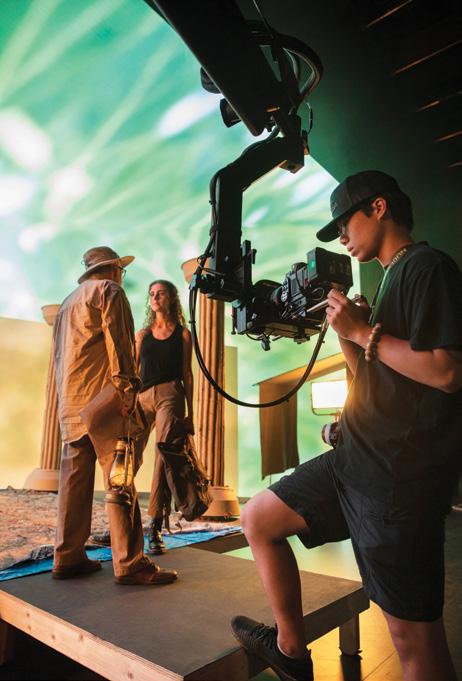

Combining technical mastery with artistic sensibility, students become architects of the imagination in the SCAD School of Creative Technology as they pioneer immersive realities and award-winning attractions, video games, and mobile apps. With a detailed curriculum that prepares students for careers, the School of Creative Technology interactive design and
SCAD design students directly influence the aesthetic language, performance, sustainability, and financial value of products and experiences. They master the process of identifying design insights, engage in scenario planning, and create viable solutions that become tangible parts of a system, service, or brand. Across an array of design disciplines— graphic design and visual experience, industrial design, design for sustainability, user experience (UX) design, and user experience research (UXR) —the SCAD School of Design prepares students to generate imaginative solutions to transform the world.
The SCAD School of Fashion students become strategic, imaginative leaders ready to develop new world-class business models, runway collections, jewelry lines, and innovative materials that will define the industry’s biggest names and brands. From the runway to the consumer, students explore fashion from the conceptual to the commercial in disciplines that include accessory design, fashion, fashion marketing and management, fibers, and jewelry

With resources that rival Hollywood studios, awardwinning professors, stunning locations, a professionally run casting office, and stellar film and television festivals, the SCAD School of Film and Acting is the ideal place to launch into the film and television industry. The SCAD film and television, performing arts, production design, and sound design programs prepare students to command roles onstage and on screen through live performances, sitcoms, dramatic series, music videos, commercials, and more.
Through a rigorous studio experience, each SCAD undergraduate student develops a comprehensive visual, conceptual, and creative language essential for success through the SCAD School of Foundation Studies coursework. Students advance to professionally tailored courses that move in the direction of their professional aspirations and teach the connection between research, drawing, design process, and environmental and cultural influences.
Within the SCAD School of Liberal Arts, writers, historians, and equine business professionals learn to market themselves, promote their work, and successfully pitch their story, research, and business ideas to publications and investors. Students in art history, dramatic writing, and writing learn to observe and engage the world around them through a foundation in visual and liberal arts, while also learning the fundamentals of business design and marketing. Students in equestrian studies are prepared for the dynamic equine industry, from business management to the artistry of competitions and shows.

SCAD School of Visual Communication students translate a range of emotions into tangible images and designs that color the world. In illustration, photography, and sequential art degree programs, students learn to weave narrative with visual art to tell meaningful stories using traditional techniques and advanced digital technologies.
SCAD fine artists shape wood, concrete, bronze, light, digital projections, and other materials in large public art works, movie miniatures, proper and prosthetics, commercial protypes, fine art, site specific installations, set designs, and more. The School of Fine Arts offers degrees in painting and sculpture, and SCAD is the only university to offer a commercial gallery service—SCAD Art Sales—that exclusively represents the work of students, alumni, and faculty to international clientele.
Top ranked by The Hollywood Reporter, DesignIntelligence, The Business of Fashion, and more, SCAD offers more programs and specializations than any other art and design university in the U.S. To search undergraduate and graduate degree programs by location, visit scad.edu/programs
Accessory Design
Dramatic Writing School of Fashion School of Liberal Arts
Advertising and Branding Equestrian Studies De Sole
of Business Innovation
Architectural History Fashion Marketing and Management School of Building Arts School of Fashion
Architecture Fibers School of Building Arts
Art History
School of Liberal Arts
Business of Beauty and Fragrance
of Fashion
Film and Television
of Film and Acting
Furniture Design
De Sole School of Business Innovation School of Building Arts
Creative Business Leadership
Graphic Design and Visual Experience
De Sole School of Business Innovation School of Design
Design for Sustainability Illustration School of Design School of Visual Communication
Design Management
Immersive Reality
De Sole School of Business Innovation School of Creative Technology
Industrial Design
School of Design
B.F.A., M.A., M.F.A.
Interactive Design and Game Development
School of Creative Technology
B.A., B.F.A., M.A., M.F.A.
Interior Design
School of Building Arts
B.F.A., M.A., M.F.A.
Jewelry
School of Fashion
B.F.A., M.A., M.F.A.
Luxury and Brand Management
De Sole School of Business Innovation
M.A., M.F.A.
Motion Media Design
School of Animation and Motion
B.F.A., M.A., M.F.A.
Painting
School of Fine Arts
B.F.A., M.A., M.F.A.
Performing Arts
School of Film and Acting
B.F.A., M.F.A.
Photography
School of Visual Communication
B.A., B.F.A., M.A., M.F.A.
Preservation Design
School of Building Arts
B.F.A., M.A., M.F.A.
Production Design
School of Film and Acting
B.F.A., M.A., M.F.A.
Sculpture
School of Fine Arts
B.F.A., M.A., M.F.A.
Sequential Art
School of Visual Communication
B.A., B.F.A., M.A., M.F.A.
Service Design
De Sole School of Business Innovation
B.F.A., M.A., M.F.A.
Social Strategy and Management
De Sole School of Business Innovation
B.F.A.
Sound Design
School of Film and Acting
B.F.A., M.A., M.F.A.
Themed Entertainment Design
School of Creative Technology
M.F.A.
User Experience (UX) Design
School of Design
B.F.A.
User Experience Research (UXR)
School of Design
B.F.A.
Visual Effects
School of Animation and Motion
B.F.A., M.A., M.F.A.
Writing
School of Liberal Arts
B.F.A., M.F.A.
SCAD offers the first-ever sneaker design minor

Concept developer
Footwear patternmaker
Accessories buyer
Handbag designer
Luxury footwear designer
Technical designer
Accessories designer
Accessories
product developer
Sneaker designer
Color and materials designer
Driven by market needs and shaped by high-end technology, SCAD’s comprehensive curriculum addresses the entire spectrum of accessories and lifestyle products. From athletic footwear to head-turning handbags to wearable tech, award-winning SCAD alumni step into a wide range of roles like head pattern and sample maker at YEEZY, associate at Rag & Bone, creative communications print designer at Lilly Pulitzer, along with positions at Diane von Furstenberg, New Balance, Madewell, PUMA, and more.
Through instruction in footwear and handbag design development, construction, sewing technology, computeraided design, product placement, and more, students master cutting edge tools and define their design aesthetic in a program top ranked by The Business of Fashion, Fashionista, and Fashion-Schools.org. In the new course
SNKR 375 Making Sneakers: Design, students collaborate with sneaker factories to learn efficient industry communication skills to visualize ideas to manufacturers in developing these designs as market-ready prototypes. In ACCE 422 Accessory Portfolio Presentation, students refine their works, create self-promotional materials, and assemble a professional portfolio.
While sharpening design and patternmaking techniques, students experiment and become proficient with industrial sewing machines, men’s and women’s shoe lasts, skiving machines, and CAD software. Cutting-edge technology solutions and digital fabrication methods bring sustainable designs and 3D prototypes from concept to reality.
A distinguished faculty with a boundless well of expertise, from luxury corporate collections to bespoke footwear, leads the department. Students also benefit from celebrated designers in the university’s Style Lab mentorship program as well as SCADpro assignments with brands including Swarovski, Fossil, and Reebok.
Collaborations across the School of Fashion and beyond like the annual SCAD FASHION showcases and working relationships with factories, manufacturers, and suppliers prepare accessory design students for professional practices.
INTERNSHIPS
SECURED BY SCAD STUDENT
Adidas
Jimmy Choo
Salvatore Ferragamo
Coach Reebok
Sam Edelman
Donna Karan
Ralph Lauren
Abercrombie & Fitch
Footwear head pattern and sample maker, YEEZY
SCAD M.A., accessory design, 2016; SCAD B.F.A., industrial design, 2012 Medellin, Colombia, @cidrobo
Cesar’s foray into accessory design began with a senior project collab with fellow SCAD Bee and accessory design alum Christine Hartzog in which they designed a traveling bag for short business trips. After earning his B.F.A. in industrial design, Cesar expanded into the sneaker game as a graduate student and discovered his forte for footwear design. His mastery of traditional techniques led to his work with top brands like Nike, Adidas, and PENSOLE, as well as a major role at YEEZY, where he leads innovation as footwear head pattern cutter and sample maker.
It was eye-opening to see so much space and so many high-tech tools for students to realize their projects, explore, and be creative. I felt lucky to have access to it all. I knew I had to come back to SCAD.
What’s something you use from SCAD courses in your career?

SCAD foundation studies is a very good foundation for anything you do in your job. If you dissect the process, it comes down to those foundations. I keep using the skills I learned from my first courses at SCAD. By dissecting and identifying art and design elements, it helps you build from the ground up—truly new products and new experiences. Foundations has been one of the most impactful skills that SCAD has taught me. I love that when we work with other SCAD alumni in the industry, we speak the same design and art language from those early courses. The master’s gave me that next level of preparation in terms of specializing in how to do something from start to end.
When applying for jobs, I always show the work I did at SCAD because it best highlights my capabilities and expertise. Prior to YEEZY, many places I’ve interviewed at had a hard time believing I’ve made not only a shoe but an entire footwear collection while at SCAD. SCAD provided me with the right space, tools, and academic program to bring my ideas to reality.


SCAD advertising students create campaigns that nab top honors like the National ADDY Awards. Guided by SCAD faculty, students have worked on major campaigns for brands like Comcast, Chase Bank, Kodak, and Nintendo, where their quick-witted combination of stunning visuals and compelling copy boosts brand engagement, connects companies to consumers, and steers contemporary culture.
Art director Content creatorIn courses like ADBR 255 Brand Experiences in Interactive Environments, students explore the ecosystem that surrounds branded interactive content and create interactive solutions that enable engagement between brands and audiences. They also conceptualize and build imaginative ideas grounded in technology as they learn project roles, workflows, and platforms for developing innovative branded content in ADBR 335 Creative Technology: Engineering Brand Experiences. Visionary technologists create connections between diverse platforms and technologies to facilitate dynamic brand engagement.
Through SCADpro, the university’s creative research and innovation design studio, advertising students pitch directly to blue-chip Fortune 500 companies including Google, AT&T, HP, The Coca-Cola Company, BMW, Capital One, L’Oréal, and Mercedes-Benz. This hands-on experience turns into high-powered careers at the world’s premier agencies: 72andSunny, Anomaly, BBDO, Crispin Porter + Bogusky, DDB, Deutsch Inc., Grey Global Group, Leo Burnett, Ogilvy & Mather, Publicis, R/GA, Saatchi & Saatchi, Wieden+Kennedy, Wunderman Thompson, and Y&R.
Students learn to be versatile, multiplatform storytellers prepared for career paths in art direction, copywriting, creative technology, branded experience, and consumer engagement and strategy, with an emphasis on digital production, typography, and social media content creation. In a learning sequence focused on emerging creative technology, future ad pros use cutting-edge resources like Arduino hardware, game engines, and augmented and virtual reality equipment to create their own branded experiences, from Harry Potter-inspired interactive chess boards to LED-lit hockey jerseys.
SAMYU MURALI art director, Ogilvy SCAD M.F.A., advertising, 2016 Chennai, IndiaAt SCAD, I was able to hone my art direction skills in class and work with illustrators, copywriters, and strategists on campaigns. You can’t find that level of collaboration anywhere else.Senior Digital advertising director Copywriter Advertising designer Integrated marketing strategist Interactive copywriter/project coordinator Social media director/producer Creative technologist Director of brand partnerships
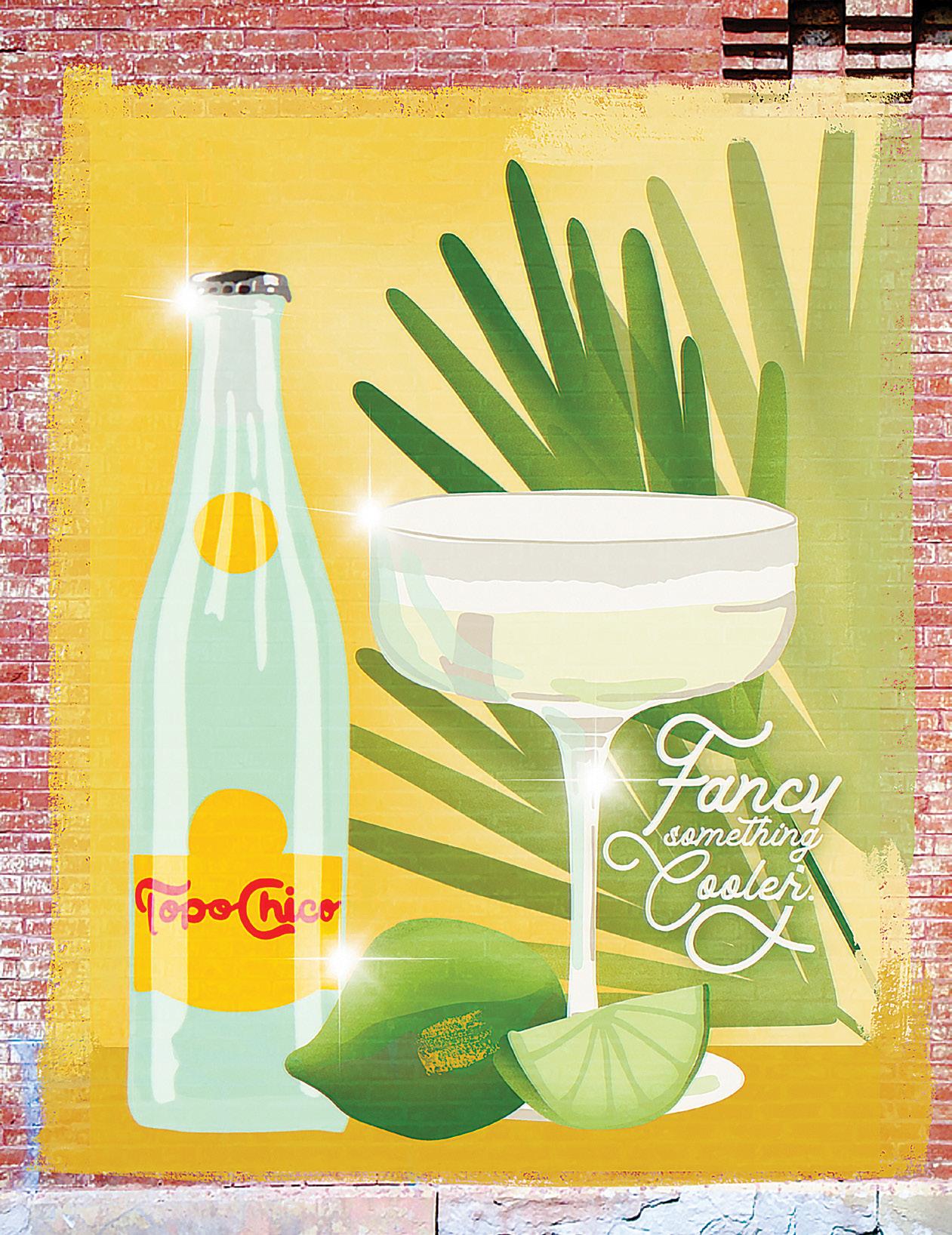
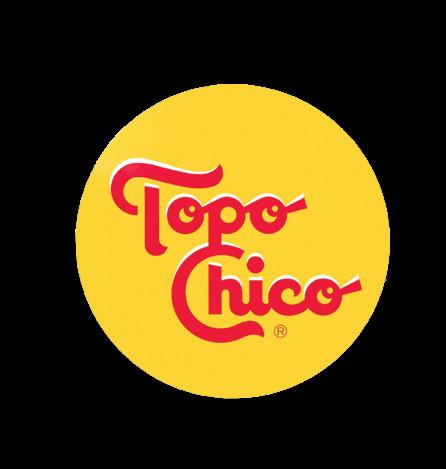 Topo Chico
Olivia Lake, Bradenton, Florida
Reilly Kelly, St. Louis, Missouri
Alejandro Guillen Gutierrez, Mexico City, Mexico
Topo Chico
Olivia Lake, Bradenton, Florida
Reilly Kelly, St. Louis, Missouri
Alejandro Guillen Gutierrez, Mexico City, Mexico

Pixar
DreamWorks
20th Century Fox
Electronic Arts
Xbox Game Studios
Nickelodeon
Sony Pictures Imageworks
Walt Disney Animation Studios
Cartoon Network Epic Games
Under expert faculty instruction and mentorship, SCAD animation students prepare for careers across the production pipeline of a $260-billion industry that encompasses film, television, video games, interactive media, and more.
At SCAD, students master next-generation technology and a comprehensive curriculum as they create original characters and fantastical realms that launch careers, captivate fans, and energize the entertainment world. ANIM 223 Historical Adventures in Cinematic Animation sets the scene for students to explore 2D, 3D, and stop-motion animation styles, as well as digital modeling, rigging, lighting, and look development in further coursework. Students make the leap from characters to digital universes in ANIM 325 Story and Concept: Visual Design and World Building and develop demo reels, personal websites, and portfolios for internship and career pursuits in ANIM 390 Animation Business and Professional Practices, which also includes a wide-ranging view of animation studios and the production process.
Students apply this technical wizardry to studio-style productions via SCAD Animation Studios, collaborating on short films like Hex Limit, Bearly, The Pope’s Dog, and The How Book, all of which screened at SCAD AnimationFest, the university’s signature festival for animation and digital media. SCAD is also recognized as a Toon Boom Centre of Excellence, offering the opportunity for résumé-boosting certifications in this elite professional software, as well as Adobe Creative Cloud and Maya.
on seven of Animation Career Review’s
Through SCADpro, the university’s creative research and innovation design studio, students collaborate with major companies like Adult Swim, Fox Sports, NASA, and more, launching their careers to new heights. These professional endeavors prepare alumni to join forces with the world’s greatest studios and deliver unforgettable features—from Best Animated Feature winners Encanto, Soul, Coco, and Spider-Man: Into the Spider-Verse to beloved franchises like Star Wars, How to Train Your Dragon, Frozen, and more.
2D animator
3D animator
Story and concept artist Animation producer
Character FX artist
Character technical director
Texture/lighting director
Digital modeler
Stop-motion fabricator
Story and concept artist
Immersive learning in one of the nation’s best-preserved cityscapes lays the foundation for the highly valued architectural history degrees offered at SCAD. Savannah’s rich variety of high-style architecture, lauded city plan, and unique cultural landscapes welcome deeper inquiry by SCAD architectural history students, who build their professionalism and credentials through on-site experiences in the city and the region beyond. Students in both the undergraduate and graduate programs balance a broad investigation of historical periods, cultures, research methods, and theoretical approaches with opportunities to develop focused lines of inquiry into different architectural eras.
Courses examine distinct architectural and urban traditions influenced by nations, cultures, technology, and even nature, with ARLH 358 Villa and Garden tracking the history of landscapes and structures from the Hanging Gardens of Babylon through Fallingwater. Students also explore the political, societal, and economic forces that impact development in courses like ARLH 759 Power and the Built Environment. Students are instructed in these courses and more by widely published and recognized professors with expertise extending from the buildings of Greek and Roman antiquity and medieval east Africa to the cobblestones, bricks, and asphalt of Savannah’s historic streets, as well as historic virtual environments and representations of cities in modern media.
Outside the classroom, accomplished SCAD faculty help connect students to careerdefining experiences. Students have led on-site work at historic locations, authored National Register nominations, delivered conference papers, and interned with public organizations and private firms. Students augment their fieldwork with classes in geographic information systems (GIS), electronic design, and professional presentation techniques.
Students are also encouraged to make travel a part of their academic experience and explore different contexts at university locations in metropolitan Atlanta or the medieval village of Lacoste, France. Alumni are prepared for a range of prominent roles in urban policy, heritage management, and preservation advocacy with the National Park Service, the New York Landmarks Conservancy, the city of Denver, the city of Atlanta, the state of Connecticut, the Florida Bureau of Historic Preservation, and the Kentucky Heritage Council; with design and cultural resource management firms like Quinn Evans Architects, Avison Young, Bolton & Menk, and Commonwealth Preservation Group; and for doctoral programs and careers in academia.
PennsylvaniaWidely recognized as the most distinctive built environment in higher education, SCAD serves as a living laboratory for the study of building arts across three locations. — NEWSWEEKKuan Xue Phoenixville, Preservation planner/officer Cultural resource manager Architectural researcher Heritage organization administrator Architectural history educator Historic preservation consultant Real estate data analyst Main Street program manager Historic foundation manager Historic site manager/curator



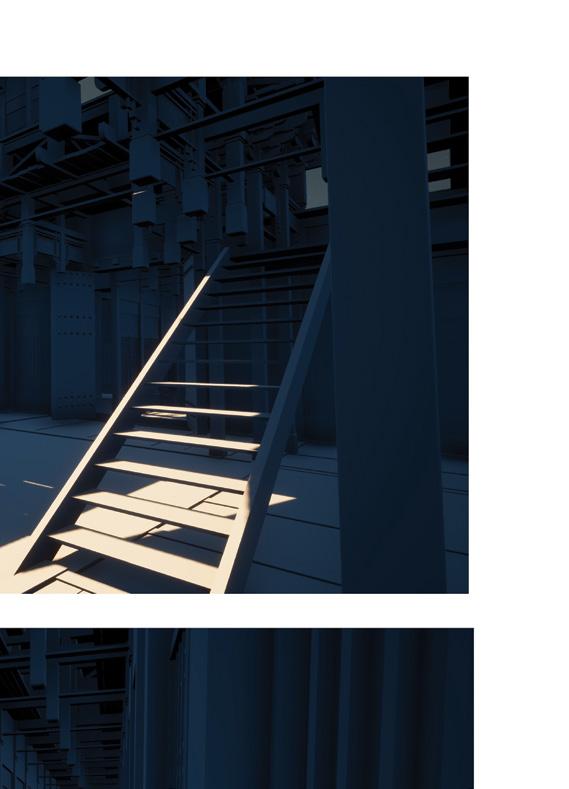








Architect
Sustainability specialist


Health care/ hospitality designer


















Architectural illustrator











Real estate developer
Site planner













Building construction manager


Building inspector
Project manager

At SCAD, architecture students learn to apply cultural, environmental, historical, and theoretical concepts to design the buildings where our most meaningful experiences unfold.
SCAD offers select students the Integrated Path to Archi tectural Licensure, a progressive academic track merging all three components of licensure — education, experience, and examination — into the university’s highly lauded B.F.A. and professional M.Arch. programs. Through this structure, select students may attain licensure in as few as seven years, combining SCAD classes, professional internships, and preparation for the Architect Registration Examination with unparalleled academic support and dedicated resources.
Additionally, the SCAD M.Arch. program was awarded the maximum eight-year term of accreditation by the National Architectural Accrediting Board, whose meticulous accreditation standards are accepted and often required by state registration boards. These credentials are matched by the accomplishments of renowned SCAD faculty — honorees of the Congress for the New Urbanism and the American Institute of Architects, licensed practitioners, and LEEDaccredited specialists.
At Savannah’s Clark Hall, students develop in-demand technical expertise in a work environment and digital studio culture that mirrors or exceeds the professional sector. Through augmented and virtual reality technologies, they explore future-forward approaches to the design-build process.
Students also are encouraged to take courses at SCAD locations in Atlanta and Lacoste, France, to explore how rural, urban, and cultural contexts drive design. Inspired by these experiences, SCAD students have garnered awards and recognition from The Architect’s Newspaper, the American Institute of Architects, Contract magazine, NASA, and others.
ALUMNI
EMPLOYERS Gensler
Herzog
& de Meuron
CannonDesign EYP Power of Circle Geraldo Tarallo Assis Campinas, Brazil






Derrick Adams
James Anno
Sam Bardaouil
Barry Bergdoll
Sanford Biggers
Till Fellrath
Marcia Hall
Lawrence Nees
Marilyn Minter
Lorraine O’Grady
Jerry Saltz
Roberta Smith
Carrie Mae Weems
Trace the evolution of visual expression across millennia in a program that emphasizes a professional approach to research, interpretation, and critical analysis of cherished art and storied artifacts.
SCAD art history students are instructed by one of the largest full-time faculty groups with doctoral degrees in North America. University faculty hold outstanding credentials and conduct pioneering research on a wide range of topics, from Buddhist art in Japan to the influence of the Medici dynasty in the Italian Renaissance.
More than 70 elective course options—including environmental art, the iconography of monuments, medieval manuscripts, and surrealist art—empower students to customize their degree to fit specific interests. At signature events like SCAD deFINE ART and regular virtual events, students engage in enriching lectures and symposia with celebrated art luminaries.
Outside the classroom, students boost their credentials with exclusive opportunities to work as docents at university museums and intern at art institutions around the globe. Students can start their exploration of the art world at SCAD libraries and museums, which house special collections containing rare, valuable, and significant work: the Walter O. Evans Collection of African American Art, the Earle W. Newton Collection of 18th- and 19th-century British and American Art, and the 19th-and 20th-century Photography Collection.
SCAD art history students cap their degree with the completion of a thesis that delves into history, theory, and criticism of different art and historical time periods. After graduation, alumni obtain prestigious positions at world-famous museums such as the Guggenheim and the Smithsonian, manage innovative galleries, conduct scholarly research in Ph.D. programs, and more.
CREATIVE CAREERS
Curator
Manager for art programming
Art appraiser
Art journalist
Art therapist
Collections manager
Culture conservator
Development officer
Art historian
Visual arts archivist
Notable works in the SCAD Museum of Art’s Contemporary Art Collection include Andy Warhol’s Queen Beatrix portrait, part of his Reigning Queens series of screenprints.
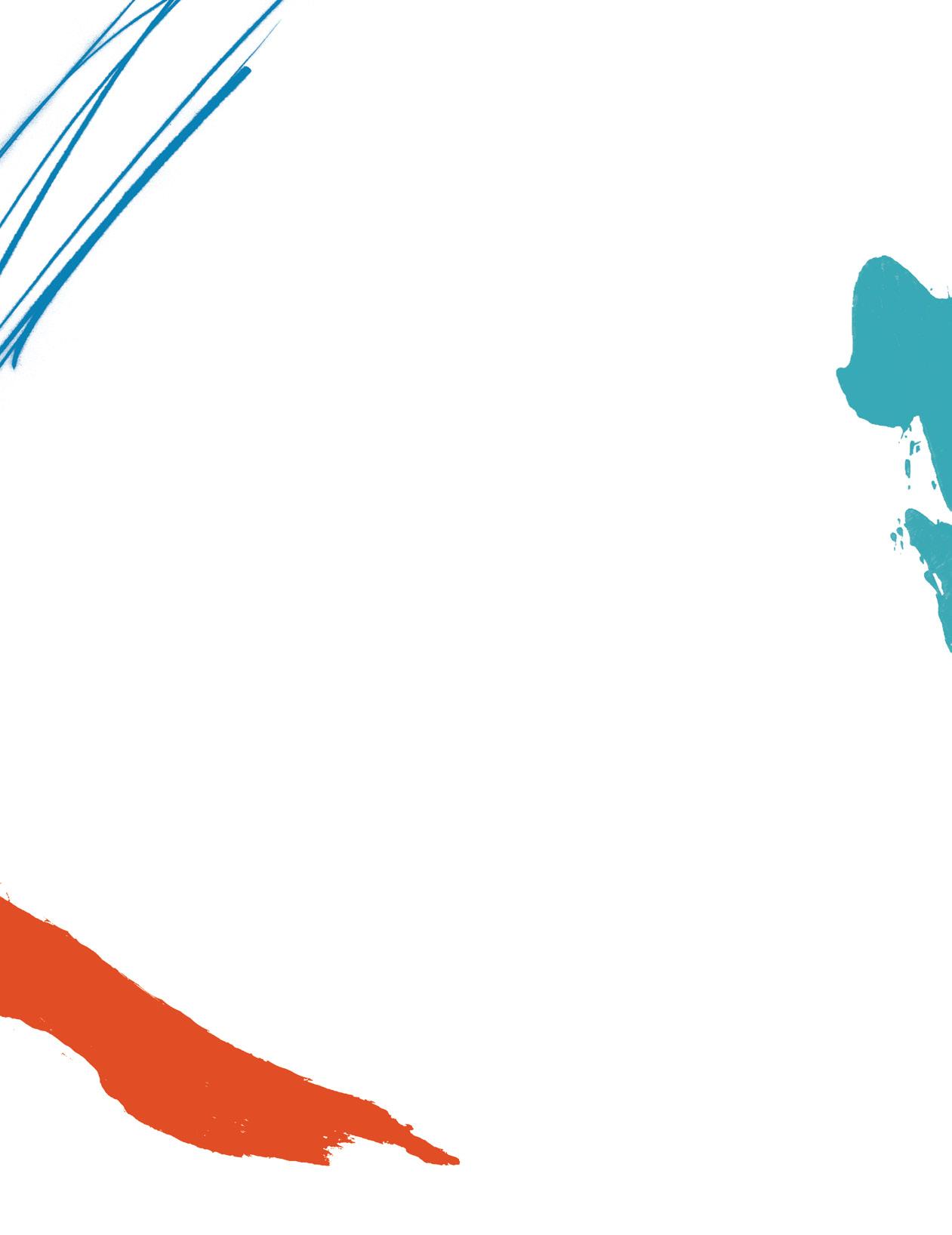
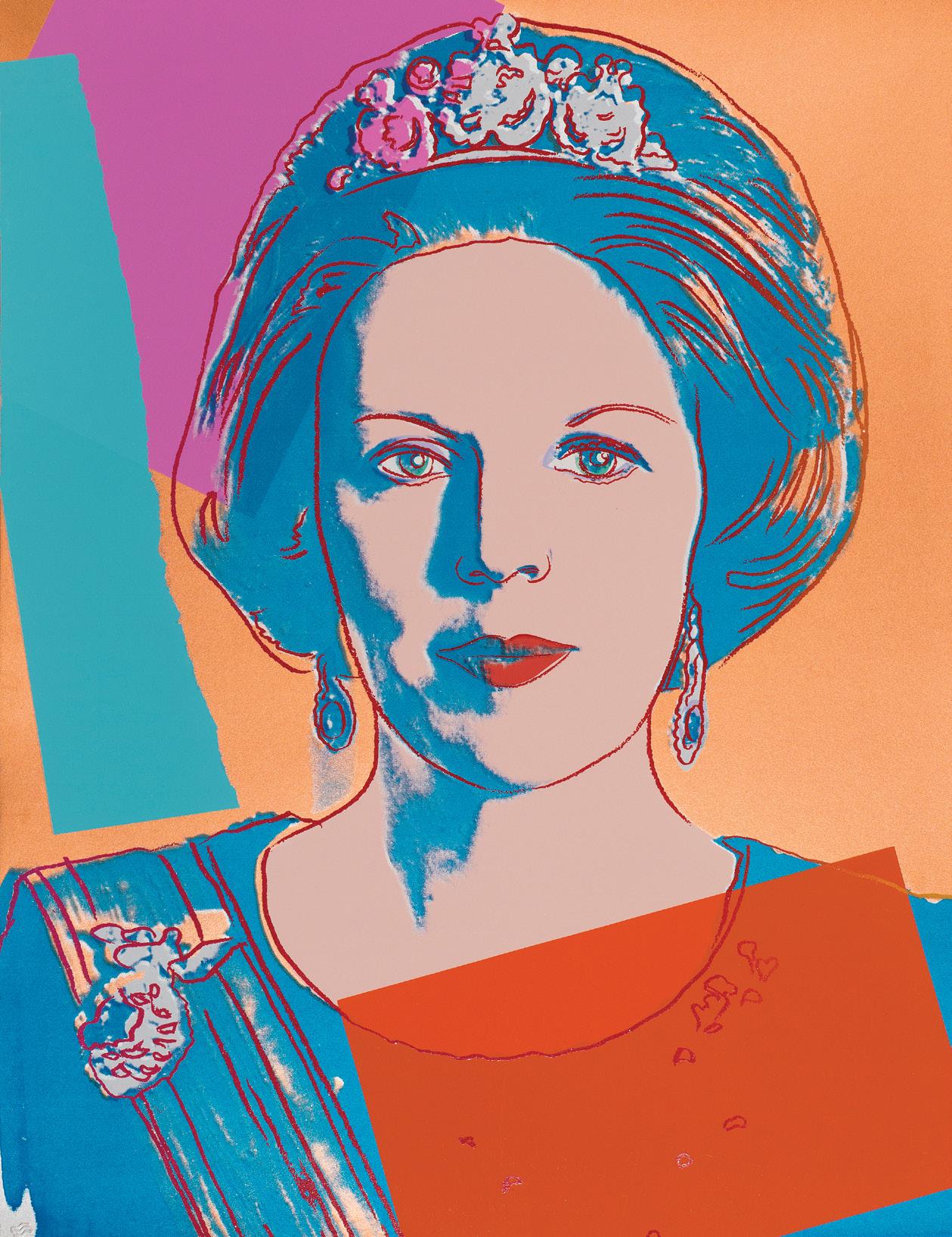
 Portrait by SCAD photography alum Nick Thomsen (Charlotte, North Carolina)
Portrait by SCAD photography alum Nick Thomsen (Charlotte, North Carolina)
Led by faculty from powerhouses like Estée Lauder Companies and mentored by celebrated guests from top brands like Maybelline and Chanel, SCAD business of beauty and fragrance students are poised to adapt within any executive environment.
As part of the curriculum, students explore two professional paths: creative strategy and design, and marketing strategy and product development. Design thinking is layered into the curriculum, as shown in courses like BEAU 330 Beauty and Fragrance New Product Launch, where students design a comprehensive strategy to market, price, brand, package, and distribute a new product launch within an existing brand. They conclude their academic journey in BEAU 440 Collection II: Branding and Launch where they research, ideate, and present a new beauty brand and business model that represents a whitespace in the industry.
Future beauty business leaders develop their collaboration skills by working with other majors to develop physical protypes of their concepts. Through SCADpro, the university’s in-house design studio, they have partnered with international leaders like L’Oréal to shape the company’s Urban Decay line and teamed up with Rodan + Fields to personalize the digital experience for Gen Z consumers.
SCAD students are mentored by industry leaders from SVP GM International and Global Strategy at Tom Ford Beauty Dexter King to Editor in Chief at Allure Magazine Jessica Cruel, and become elite beauty professionals as they graduate with a globally minded, business-centric degree that lands jobs at top beauty brands.
Students have earned scholarships including the Ulta Beauty MUSE 100, CFDA x Coach Dream It Real, Glossy 50 Honoree, and Virgil Abloh Post-Modern of the Fashion Scholarship Fund. With in-depth knowledge of global beauty branding, product development, business modeling, and visual storytelling, they learn how to develop long-term customer relationships and create their own share of the beauty and fragrance market.
Sterling Jones (Atlanta, Georgia) influences Gen Z beauty consumers through her online platform The Beauté Study. Her insights helped land her a spot in The CEO Global Presidential Program at The Estée Lauder Companies, an 18-month rotational program where she can experience different roles within the organization, gaining exposure to a range of the company’s more than 25 prestige beauty brands, as well as experience working with senior leadership and professional development opportunities.
Beauty and fragrance entrepreneur

Brand marketing associate
Junior executive trainee
Social media and marketing associate
Product development associate
Package development associate
Digital marketing associate
Consumer engagement associate
Travel retail marketing associate
Consumer insights associate
CREATIVE CAREERS Facing constant transformation, even the most established businesses seek creative leaders to reimagine their services, products, strategy, and operations. Enter SCAD Chief executive creative business leadership. officer
Everywhere you look, SCAD alumni are poised to helm big brands, thanks to a focused Executive curriculum that merges innovation and enterprise. In courses like LEAD 709 Business marketing director Complexities in Creative Industries, students examine how governance, control, form, and legal status affect business entities as well as the associated social, ethical, and Consulting fiduciary duties related to the arts. In LEAD 725 Influencers and Innovators: Characassociate teristics of Transformative Leadership, students learn analytical thinking techniques of managing complex, human-related problems and master strategies that deliver results.
Executive director
of strategic
Within the creative business leadership program at SCAD, students learn to become initiatives both entrepreneurs running successful small businesses and intrapreneurs promoting corporate innovation within existing organizations. Students in this program use Corporate affairs simulation software that mimics the multifactor, high-stakes decision-making scenarios manager CEOs regularly face. They also use simulation software to understand market fluctuations and the challenges of raising capital. This one-year M.A. program complements Brand strategist/ SCAD undergraduate degrees and prepares students for leadershipand through manager GRADpath@SCAD, undergraduate students can earn both their undergraduate degree and M.A. in four years.
Creative
entrepreneur
Visionaries like Tiffany & Co.’s Chief Artistic Officer Reed Krakoff, Samsung Electronics VP of Integrated Marketing Grace Dolan, Clayco Executive Chairman Bob Clark, and Global creative fashion house founders Tory Burch, Mary Katrantzou, Brandon Maxwell, and others share director insight and advice that set students on the path for creative business leadership success.
Chief strategy The future requires a different approach. It involves officer focus on customer experience, an empowered hybrid workforce, and a new kind of leadership: a “design Intrapreneur leadership” approach that is empathetic, sensing, and strategic. It combines human-centric design with service and product excellence as a key driver of differentiation.
IBM’S 2021 CEO STUDY

 Quito, Ecuador @emlioarellano
Quito, Ecuador @emlioarellano
When I wake up, I do yoga first. Then I go to SCADfit or ClubSCAD. I usually hang out with my friends to grab coffee first before class. And then I’ll go to Monty (Montgomery Hall) or The Shed where most of my classes are. After class, I’ll go for lunch or make my own. I ride my bike everywhere here in Savannah and go to a coffee shop. I always end up at a coffee shop until I get all my work done.
I find inspiration at coffee shops, mostly because when I see people there working, I’m trying to get into their minds on what they’re thinking and how I can help them. If they’re artists, how could I address them? How can I serve people? Also, when I see a community that doesn’t have enough resources, that also drives me to start working more to give those people opportunities because many of them probably are creatives.
There has always been this idea that creatives may not know how to do business or business people may not have to be creative. I want to join both worlds and career paths in Latin America, hopefully. When I found out about the program here at SCAD, I fell in love with it because it requires students to develop a lot of leadership skills.
LIBA 705 Game Changers: 10,000 Years of Leadership is one of the most important classes I’ve had so far in my career. The professor who taught it, Dr. Imani Scott, helped us build these personal development plans to actually find a reason or purpose for what we are going to do in our careers.
I see myself in executive production because it involves numbers, making the vision of the director real, and that’s why I wanted to pursue this career. As I work in executive production, I thought this was a huge opportunity to develop in film and every career related to creativity.
If I have to address a client for something, I do most of the budgeting, the brief—so everything I’ve learned in the program I have actually put in practice for my freelance gigs because the team is pretty much me.

As a museum docent, I have to speak with the guests about each gallery and each exhibition, and it’s a very interesting job because every person has their own emotion and value to a piece of art, so I will help guide them through their process and help them connect with a piece of art and installations that are exhibited in the museum. I also see some of the creators there, which is also very fun because I get to learn from different creatives and different people about their works of art, especially contemporary art.
We as SCAD students have an enormous privilege of being here with all these resources, platforms, and opportunities. We need to give these opportunities to others who may not have access to help others reach their goals. Everyone can find purpose eventually. Purpose is the most important thing someone can have.

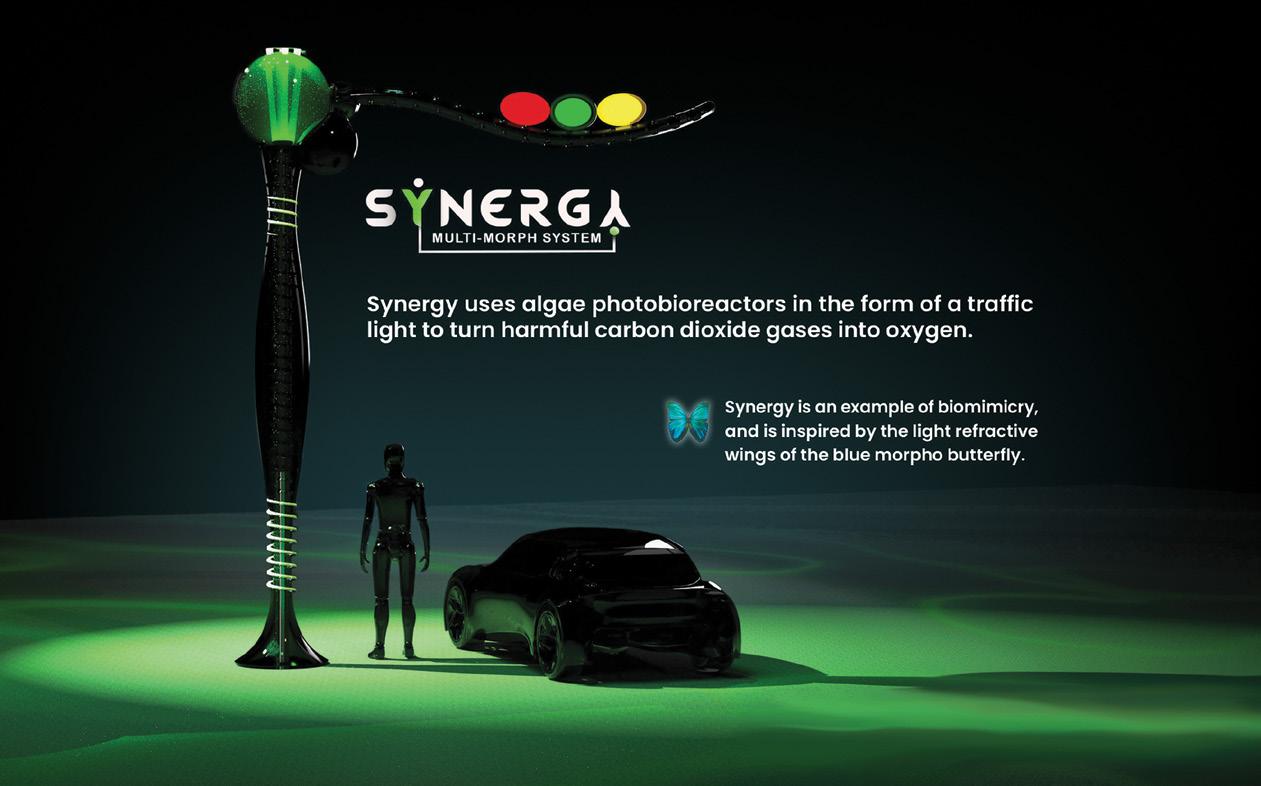







Design for sustainability builds a more eco-rich, equitable future by balancing economic prosperity with green practices such as reducing consumption of nonrenewable resources, Strategic business minimizing waste, and creating a healthy, productive environment. SCAD alumni impledevelopment ment the strategies they learned in the classroom to create more sustainable business officer practices for medical device manufacturers and health care experts, conduct climate risk and resiliency assessments for corporations, and map out sustainability goals for Sustainability merchandising at top fashion brands. director
manager
Even before graduation, SCAD students’ influence can be seen at top brands. In SCAD classroom collaborations, furniture brands Brown Jordan and Maria Yee sought prodSupply chain/ ucts built from emergent materials like thermally modified timber and plant-based sustainability composites. Through SCADpro, the university’s in-house design studio, Reebok tapped manager students to convert the company’s scrap fabric into fashionable looks. Google turned to SCAD students to find ways to organize in times of disaster using location-sharing Corporate social services. And Heineken tasked students to create solutions that repurpose contaminated responsibility glass. Across the globe, SCAD design for sustainability students and graduates merge officer conservation and commerce to reduce carbon footprints and simultaneously create value through the creation of sustainable products.
Energy solutions developer
Design thinker
specialist
Director, Education
International Living Future Institute
SCAD M.A., design for sustainability, 2015; SCAD B.F.A., interior design, 2008 Seattle, Washington
SCAD design for sustainability students investigate consumer lifestyle choices and business practices, emphasizing resource productivity, social innovation, and futureoriented business strategies. Leading-edge technologies such as life-cycle analysis software provide SCAD students with knowledge applicable to a broad spectrum of civic and professional roles. And in the M.F.A. program, students specialize in one of four areas of applied sustainability: the built environment, management, packaging and print media, or products. In each classroom, students collaborate and apply their aspirational vision toward a sustainable future for companies such as Hewlett Packard, IBM, IDEO, Nike, Starbucks, Subaru, Walmart, and more.
Synergy multi-morph biomimicry system
Stefanie Perosa, Maryville, Tennessee Devin Rooney, Budd Lake, New Jersey Jenna Morlock, Berlin, Maryland
There’s no program like SCAD design for sustainability anywhere else. It felt like home, and I knew the Green building specialist quality of education I was going to get.
SCAD M.A., design for sustainability, 2021; SCAD B.F.A., fashion, 2020 Mexico City, Mexico, @ _laura_ramirezgarcia
Laura Garcia knows what she wants and how to get it. She decided to apply to SCAD after visiting the university through VR tours. SCAD offers the opportunity for students to meet with industry experts for portfolio reviews, and before graduation, Garcia met with leaders at Catapult Design for portfolio feedback. Not long into the convo, they chatted about an open position at the organization. She landed a position with the company because of the experience she gained at SCAD, which included project management and research.
I joke that I’m always in a SCADpro course because at Catapult, design research, project management, business development, and operations with the CEO are my day-to-day. We’re a small team, but we work with consultants from all over, including Kenya, India, and here in the U.S. My experiences at SCAD have prepared me for that environment.
How to pitch myself. That foundation to present and explain yourself as a designer, the understanding of color, perspective, and design — it’s what set me apart. It’s important to know how to go into any room and sell yourself as a designer, an artist, and a content creator because you never know who you’re going to meet. At SCAD, you grow and learn how to be comfortable with getting out there and making those connections.
Everything is collaboration heavy, so you’re constantly working with people outside of your major and that sets you apart from others in your industry. That’s the difference at SCAD: you get experience before you’re in the field. You learn how to work with others, to listen, to be a good mentor and leader, and most importantly, when to take a step back and see what others can bring to the table. SCAD wants you to succeed. When you make time to go the events and talks, and connect with industry leaders, not only can it lead to your next step, but to your entire future.


ALUMS
SCAD, the world’s premier site for the study and practice of design thinking, is a living laboratory for the application of design management—a discipline that empowers companies to spark innovation and think and act like designers. Design management graduates innovate in user-centered roles such as design research at Start Something Bold and product designer at Meta. They also secure roles like innovation strategist at Porsche, UX designer at 3M, and design manager at Lowe’s.
In courses like DMGT 720 Design Innovation Development and Marketing Strategies, students dive into the principles of project planning and implementation critical to forming a profitable and successful new business entity. They learn business-plan development, technology transfer, offshore sourcing and alliances with partners and suppliers, and develop original design concepts for commercially marketed and sold products, communications, environments, and services.
Through collaborations at SCADpro, the university’s creative research and innovation design studio, and SCAD’s leading-edge curriculum, design management students gain experience that will mirror their pivotal careers in the professional world. When Volvo wanted to bring driverless cars to market, SCAD students took the wheel. When Google needed nimble local communication tools, the search brought them to SCAD. And when Lenovo wanted to teach tweens how to build computers, SCAD students accepted the invite.
In a recent Deloitte Digital partnership, students created the ultimate recruitment experience by leveraging highly interactive and immersive digital technologies. From these opportunities, students are prepared to enter a market that values creative design thinking, business theory, consumer needs, prototype development, and product testing. The program bolsters students’ knowledge and methods of business strategy, design theory, data visualization, communication techniques, social innovation, financial systems, and marketing.
CAREERS
innovation officer Design
manager/ director


Ronald D. Moore
CREATOR, FOR ALL MANKIND AND OUTLANDER
Lucia Aniello, Paul W. Downs, and Jen Statsky
WRITERS AND SHOWRUNNERS, HACKS
Mike Mills WRITER AND DIRECTOR, C’MON C’MON
Lee Isaac Chung WRITER AND DIRECTOR, MINARI
At SC
AD, dramatic writing students author everything from sketch comedy to studio-level film scripts in a program that mirrors the professional practices of the entertainment industry.
SCAD student writers learn to develop enthralling narratives and collaborate in writers’ room settings to create original TV shows, films, commercials, stage productions, podcasts, immersive experiences, and more. DWRI 356 Writing the Feature Film Adaptation empowers budding writers to adapt a range of source materials to the screen, while DWRI 237 Improvisation for Writers and DWRI 412 From Melos to Hip Hop: The Evolution of the Musical Narrative prepare students to write irreverent Saturday Night Live humor and analyze the musical narratives of smash hits like Hamilton.
Over these distinctive course sequences, students partner with peers across the university’s award-winning digital media and entertainment arts programs to create funny, powerful, and moving content. Student-helmed scripts are frequently selected for university productions cast with and staffed by SCAD students from across majors, including animated shorts Bearly and The How Book, award-winning shorts The Peak and Our Side, and original comedy series Cinco de Mayo Is Not a Thing, G.R.I.T.S., Nailed It!, and The Buzz
These productions are complemented by SCAD TVfest, the SCAD Savannah Film Festival, and more SCADFILM events, which offer students star-studded networking opportunities with celebrated showrunners, writers, producers, actors, directors, and other leaders in entertainment to share insight on Hollywood and film markets around the world. Bolstered by these invaluable experiences, SCAD dramatic writing alumni work for production studios, major networks, theme parks, and more.
Television writer
Showrunner
Screenwriter
Playwright
Video game
narrative designer
Show writer for live entertainment
Interactive content writer
Story editor
Story consultant
Script developer
Equestrian events manager
Equestrian trainer
Equine accessories designer
Equine business manager
Equine facilities designer
Equine journalist
Equine marketing specialist
Equine product buyer
Horse show director
Sport horse sales broker
Amid a majestic, 180-acre compound dedicated to equine study and competition, SCAD equestrian studies students prepare for breakthrough careers in a $300-billion global market.
Home to the champion SCAD equestrian team and the university’s equestrian studies degree program, the Ronald C. Waranch Equestrian Center is a gateway to this time-honored practice and modern economic engine. Located just north of Savannah, SCAD’s ultramodern center features two stable barns, three competition arenas, a covered riding arena, paddocks, pastures, and a derby field, as well as a staff veterinarian and industry-standard equipment, complementing a degree program that opens career paths in business, marketing, medicine, and sport.
SCAD equestrian courses are led by faculty members who actively compete in U.S. Equestrian Federation hunter/ jumper and dressage competitions. The wide-ranging curriculum spans equine anatomy, behavior, psychology, training principles, competition regulations, and governance, preparing students for career opportunities as athletes, coaches, trainers, and more. Lectures and clinics by visiting professionals like trainers, authors, Olympic-caliber riders, judges, veterinarians, and horse show managers complement fieldwork and classes, while a range of internship opportunities offers students realworld industry experience to boost their professional credentials.
Through SCADpro, the university’s creative research and innovation design studio, equestrian studies students have applied expertise learned in arenas and stables to design durable backpack concepts for equestrian apparel brand Equis Boutique and devise a safer, more ventilated hardhat for construction company Clayco.
This combination of stable-side education and professional partnerships helps SCAD alumni pursue careers across the spectrum, as competitive riders, trainers, barn managers, and more. Graduates step into leadership and management roles at international equestrian nonprofit organizations and have published and exhibited work as in-demand equine photographers, journalists, and painters.
SCAD equestrian studies students and the university’s champion equestrian team pursue excellence at the state-of-the-art Ronald C. Waranch Equestrian Center north of Savannah.
Since 2002, the SCAD equestrian team has won more American National Riding Commission titles than any other university.
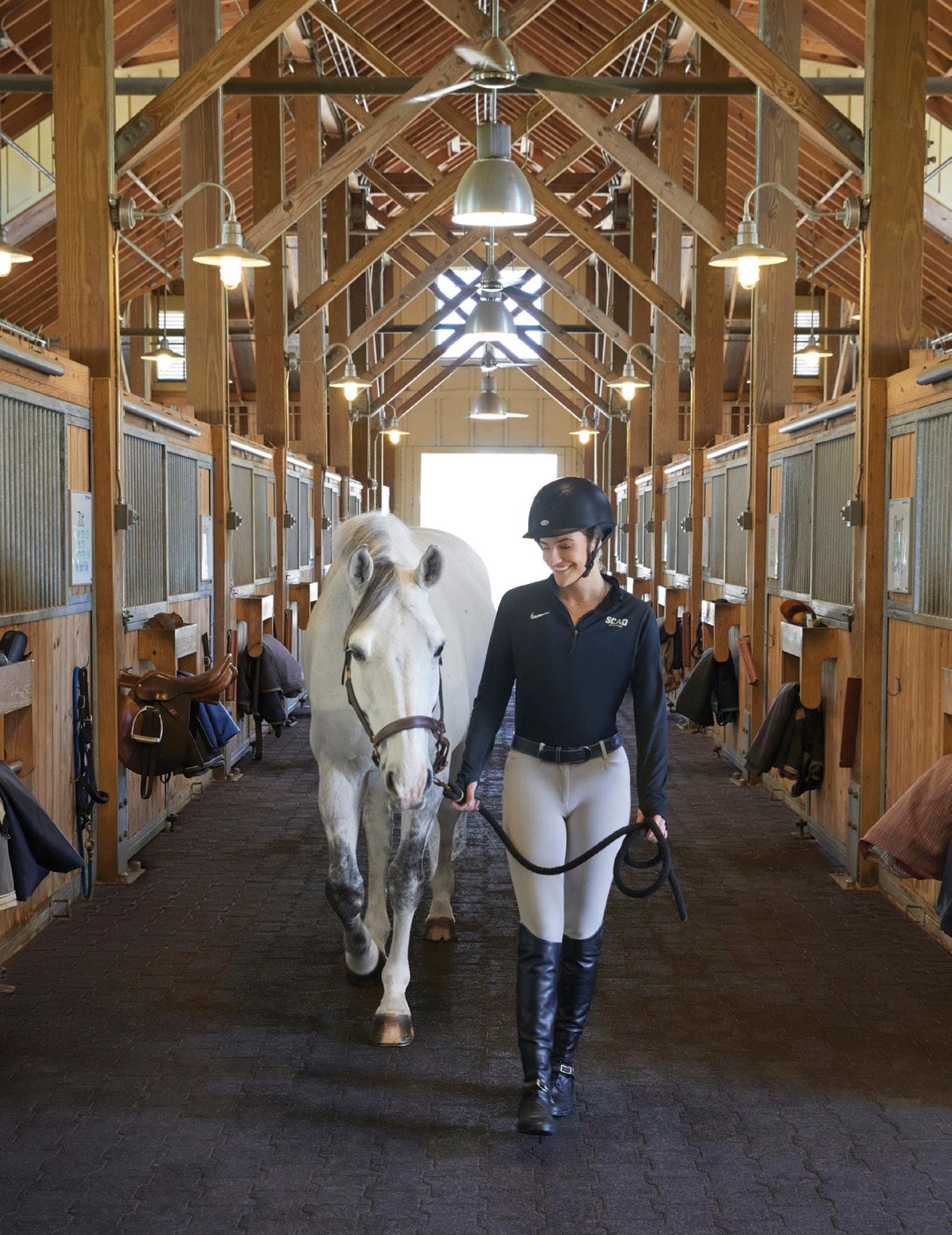

CREATIVE CAREERS
Creative director
Brand founder
Fashion designer
Style content director
E-commerce stylist
Denim designer
CLO/3D designer
Fashion illustrator
Menswear designer
CAD designer
SCAD grads are at the forefront of social and cultural movements in style, from sustainability to inclusion. SCAD fashion alumni helm international houses like Chanel, Jean Paul Gaultier, Thom Browne, and Marc Jacobs, lead powerhouse brands like The Row and Anthropologie, and launch their own labels, like Christopher John Rogers, Cavanagh Baker, AUDRA, Zayden Skipper, The Big Favorite, and Omondi.
Applauded by The Business of Fashion, the SCAD School of Fashion focuses on real-world expertise and experiences. At SCAD, fashion students study sartorial history and process, meet career-making brand reps and editors, and get one-on-one mentorship from legends like Mary Katrantzou, Calvin Klein, Phillip Lim, Brandon Maxwell, Miuccia Prada, Christian Siriano, Vivienne Westwood, and Jason Wu.
SCAD’s newest style HQ, Number Nine, offers leading-edge technology. In Atlanta, SCAD fashion students enjoy SCAD FASH, the only museum dedicated to fashion and film, which shows acclaimed exhibitions by fashion luminaries including Carolina Herrera, Guo Pei, and Oscar de la Renta.
Fashion courses translate seamlessly to professional endeavors, encouraging students to develop the ingenuity, flexibility, and adaptability they need to succeed. In courses like FASH 414 3D Technology in Fashion Design, students use 3D simulation software to organize countless layers of intricate design details and complicated pattern pieces into a sustainable design process.
Even before the fashion world pivoted to digital in 2020, SCAD reimagined its programs to net students global exposure—including bold virtual experiences like SCAD Fashion in Frame and The Awakening, captivating cinematic showcases for the work of students and SCAD alumni.
DRESSED BY SCAD BEES
Beyoncé
Michelle Obama
Adele
Rihanna
MJ Rodriguez
Zendaya
Lady Gaga
Lizzo
Lil Nas X
Bella Hadid
Tracee Ellis Ross
Gabrielle Union
Tessa Thompson
I initially chose SCAD because I felt the university would provide the most creative environment to work in. I was visually drawn to the campus and its facilities around Savannah. I was also drawn to the study abroad program in Lacoste, France.
I always start my day early, waking up around 7 a.m. I begin my day with mindfulness and reading. It is either a book, Business of Fashion, or The New York Times. My day-to-day changes depending on the meetings that I may have to attend for competitions, interviews for companies, and/or collaborations that I am currently working on for my collection.
A collaboration that I am currently working on is with a few film majors for my fashion film senior thesis to showcase my collection. I am very excited to debut this film and show off the designs I have created.

The fashion philosophy that I keep reminding myself is to do everything that is authentic to me and what I believe in.

I recently accepted a footwear design internship with Vince Camuto in New York City. I will be moving there the day after I graduate. I am going to find time after the internship to take a break before I begin my full-time position in the fall.
I think my favorite was FASH 316 Draping Techniques for Fashion. I absolutely loved taking the class but also learning the art of draping and how you can literally create anything you see from the runway—plus your own creations—and make them come to life.


The Gucci Changemakers experience was very eye-opening. Working with this competition showed me that I have the discipline to work toward a goal. Being a part of the program allowed me to learn so many valuable things within the industry by working with the different departments. I made valuable connections that I will have along my journey as a designer.
Be open to new opportunities, possible career options, and specific areas that you may want to specialize in. Also try to make yourself well-rounded as a young professional in order to grow and learn all aspects of the industry.
CREATIVE CAREERS
Visual merchandiser
Retail buyer
Global marketer
E-commerce merchandise manager
Social media manager
Store planner
Sourcing manager
Supply chain manager
Brand manager
Product developer
The SCAD fashion marketing and management program outfits students with must-have strategic and imaginative skills to guide the biggest names and brands in the $3-trillion global fashion industry into the future. Graduates guide the trends in roles such as retail buyer for Neiman Marcus, visual manager for Anthropologie, and marketing manager for Kate Spade.
SCAD is among the Best Fashion Schools in the World for fashion business and management.
— THE BUSINESS OF FASHION
Through SCADpro, the university’s creative research and innovation design studio, top companies including Hermès, Amazon, Draper James, Kendra Scott, and Kohl’s seek fresh ideas and style savvy. In these real-world collaborative partnerships that echo their future careers, SCAD students establish tech-forward digital and retail campaigns, create unique interactive shopping experiences, and map out products and strategies to reach new generations of customers. These hands-on experiences lead alums to take leadership positions at brands like Reebok, Anthropologie, Saks Fifth Avenue, and more.
SCAD fashion marketing and management students become trend forecasters, media influencers, and architects of irresistible fashion activations who thrive at the intersection of creativity and business. They identify and formulate new products for their favorite brands to expand consumer reach and construct luxe look books in the course FASM 215 Fashion Aesthetics and Style. In FASM 400 Contemporary Issues in Fashion Merchandising, students dive into the latest developments impacting the fashion industry including sustainability, globalization, and emerging technologies. To gain access to global fashion platforms, fashion marketing and management students can study seamlessly across the university’s global locations in Atlanta, Savannah, Lacoste, and SCADnow online.
INTERN IN STYLE
Neiman Marcus
Free People
Saks Fifth Avenue
Bergdorf Goodman
Coach
Victoria’s Secret
Ralph Lauren
Urban Outfitters
Lululemon
 Longtime SCAD friend and collaborator Diane von Furstenberg, known for the signature wrap dress design, mentors future fashion marketers and managers in the SCAD School of Fashion.
Longtime SCAD friend and collaborator Diane von Furstenberg, known for the signature wrap dress design, mentors future fashion marketers and managers in the SCAD School of Fashion.
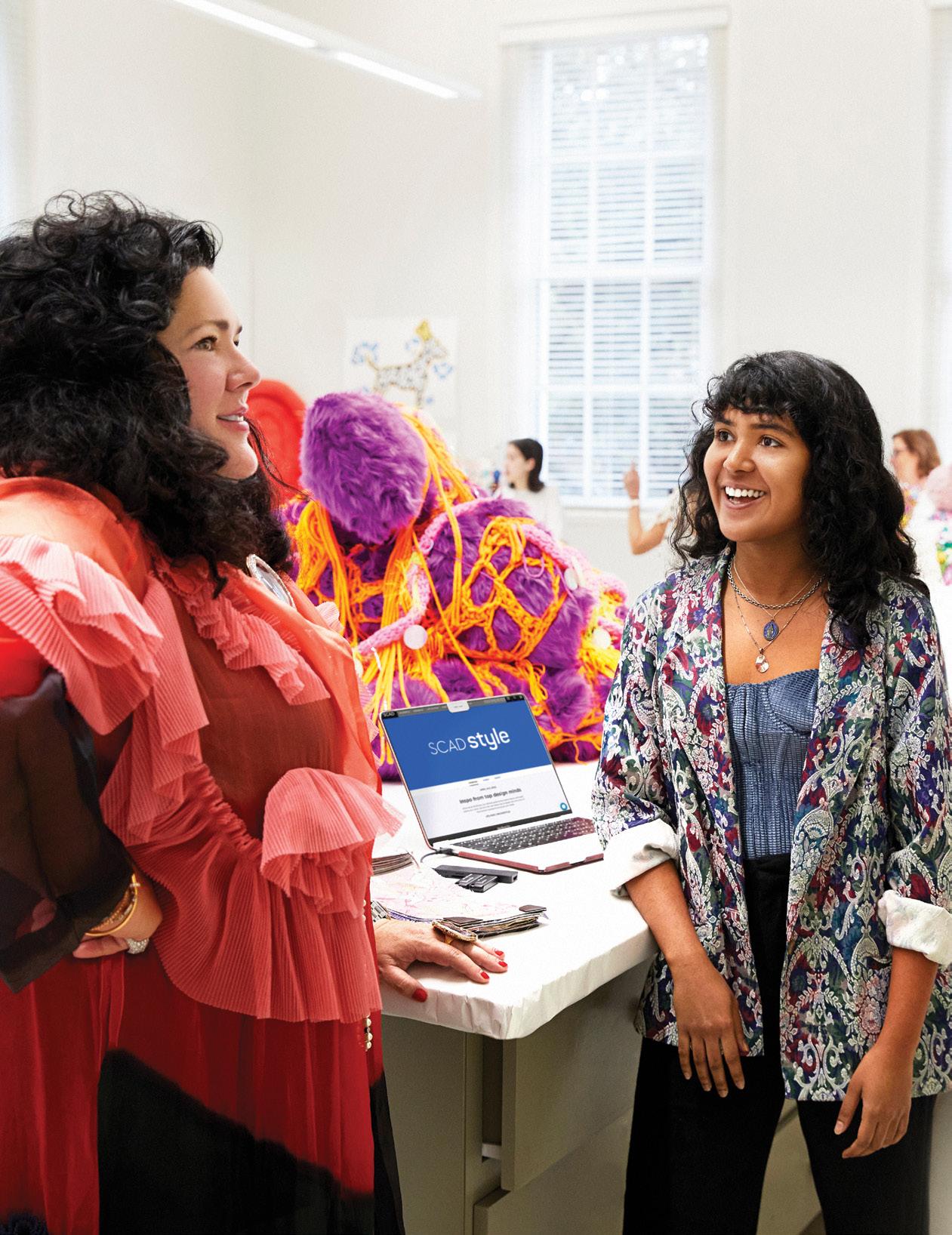
Tesla senior color and materials designer, Shaw Industries textile designer, Himatsingka America senior designer, Lilly Pulitzer print designer, Tai Ping design director: These jobs reflect the career career trajectories of some SCAD fibers graduates, who also weave a tapestry of science, art, and design with organizations like The Coca-Cola Company, Target, and Nike. They work in demanding and inventive roles, developing thermal insulating blankets for NASA, automotive interior surface fabrics for Chrysler, medical textile therapies for health care innovator L&R USA, and custom fabrics and installations for fashion houses and retailers.
The SCAD fibers program is the largest in the U.S.

Knitwear
SCAD fibers students shape their own career paths and our experience of the material world. In annual SCAD fashion shows, student models walk the runway in captivating student collections fabricated in woven, knitted, handbeaded, and embellished fabrics. Alumni launch their own studios, products, and clothing lines; are commissioned by brands such as West Elm and Google; and exhibit at prestigious international art and design fairs.
As part of the fibers curriculum, SCAD arranges exclusive, intimate conversations and studio visits with artists and leaders who forge their own professional paths. Guests include acclaimed couturière Guo Pei; Leatrice Eiseman, executive director of Pantone Color Institute; alum Maura Ambrose, founder of Folk Fibers; alum Chuck Chewning, principal of Charles H. Chewning Interiors and consultant at Studio Rubelli; and artists Liz Collins, Cynthia Gutiérrez, Chiharu Shiota, Barbara Earl Thomas, Carla Fernández, The Haas Brothers, Igshaan Adams, and Shoplifter.
Oscar
Coach
Martha
Lights, camera, action: SCAD film and television students and alumni command starring roles up and down the production pipeline in Georgia, Hollywood, and beyond.
CREATIVE CAREERS Director Producer Director of photography
Cinematographer
Screenwriter
Casting director Editor
Digital imaging technician
Postproduction supervisor Script supervisor
From Atlanta, the epicenter of Georgia’s $10 billion per year entertainment industry, or Savannah, MovieMaker magazine’s top-ranked small city for filmmaking, students develop signature style and technical mastery in futuristic, SCAD-owned production spaces like the mixed reality (XR) stage and streetscapes of Savannah Film Studios’ backlot or the green screens and XR stage of Atlanta’s Digital Media Center. Combined with opportunities to earn certifications in the latest technology, students are prepared to work on real sets long before graduation.
In virtual writers’ room sessions with network television showrunners and talks with actors like Jenna Elfman, Billy Crudup, and Aldis Hodge, students learn to add polish and professionalism to their scripts and films. SCAD filmmakers have earned a variety of accolades, including the grand prize at the Coca-Cola Refreshing Films contest, Student Emmy Awards, Student Academy Awards, and the ICG Emerging Cinematographer Award.
The SCAD Savannah Film Festival is the nation’s largest university-run film festival.
At signature events like SCAD TVfest and the SCAD Savannah Film Festival, students meet A-list celebrities and behind-the-scenes legends like Kenneth Branagh, Samuel L. Jackson, Maggie Gyllenhaal, Todd Haynes, Christopher Lord, Phil Miller, and Mike Mills; screen their own directed and produced short films; and watch Academy Awardwinning films, including multiple Best Picture winners. SCAD student and alumni films have been showcased around the world, including at SXSW and the Sundance, Cannes, and Tribeca film festivals.
SCAD student filmmakers from across disciplines disciplines demonstrated the power of the university’s new XR stages with the commercial Get Real, traveling to Antarctica, the desert, and beyond from SCAD’s film studios.


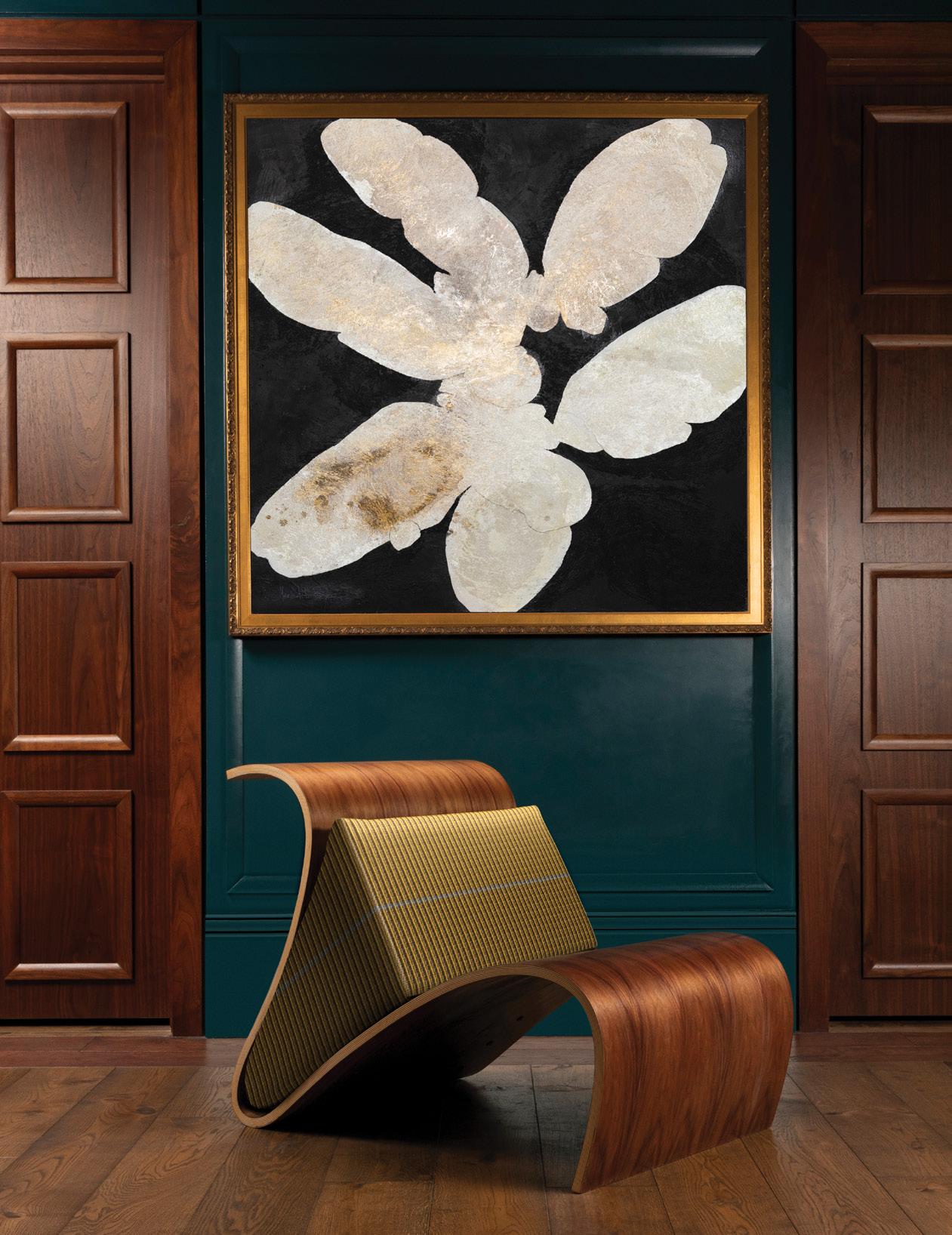
Residential furniture designer
Environmental/ exhibition/product designer
Custom production furniture designer
Hospitality
furniture designer
Furniture designer
Studio furniture artist
Fixture and display designer
Design consultant
Lighting/ accessories designer
Creative design manager
Chair Cygnus
Bent plywood, walnut veneer
Shih Ya (Fiona) Wu
Chupei City, Taiwan
Fabric
Take Off the Armor
Gold and silver color copper wire
Shaohua Wang
Shijiazhuang, China
Painting
Fragments (Coral) XXXI
Mixed media on canvas
Meredith Pardue
Monroe, Louisiana
With a w
onderland of adv
anc
ed tools and pr
of
essional-gr
ade software at their disposal, SCAD furniture design students elevate the form and function of everyday furnishings and build their own showstopping collections.
The university’s Gulfstream Center for Design is the hub for students to take their designs from concept to production line, using laser cutters, five-axis CNC milling machines, CNC routers, and 3D printing. Through focused coursework led by accomplished faculty members, students learn to conduct market research, synthesize their findings, and devise stylish solutions that advance product strategy in their furniture concepts.
Each year, select students travel to the High Point Furniture Market, connecting with designers, retailers, and clientele at one of the largest home furnishings trade shows in the world. The department also exhibits top student work each year at the International Contemporary Furniture Fair in New York. Through SCADpro, Design Within Reach chose SCAD student designs for inclusion in its celebrated catalog, while trendsetter Crate & Barrel tapped students to create a new line of furniture for business and hospitality needs. Legendary furniture designers, including Dakota Jackson and David Rockwell, have even lent their expertise to student endeavors.
This hands-on experience positions SCAD furniture design EMPLOYER alumni for postgraduate success. Students and alumni COLLECTION have won Red Dot Awards, NYCxDESIGN Awards, International Design Awards, International Society of Furniture Jonathan Adler Designers Pinnacle Awards, and Best in Show at the ISFD Innovation + Design contest; earned the Richard Frinier Kelly Wearstler Design Scholarship; been featured in Architectural Digest, Elle Decor, Vogue, and more; worked for top designers Crate & Barrel and companies; and have launched their own businesses and lines.
Anthropologie
Brown Jordan
DANIELA DUARTE
ISFD Pinnacle Award winner
Product designer, 5 Solidos SCAD B.F.A., furniture design, 2020 Bogotá, Colombia
The SCAD furniture design department is a really tight-knit community. Mohawk Industries I was able to design, choose patterns and fabrics, and build lifelong pieces for people to enjoy. I loved all of my time there.
SCAD M.F.A., furniture design

Mumbai, India
@_archm, @_primalforms
I studied architecture in my undergraduate program in India. After practicing professionally for a few years, I wanted to push myself to create more freely and be more open to new experiences by working across different processes and disciplines. I decided to pursue the SCAD M.F.A. in furniture design as the program is between arts and STEM, and focuses on the contextual, conceptual, and practical training.

The weeks leading up to midterms and end of quarter are usually the busiest. When I’m not working in the studio or shop, I prefer switching my work spots between cafés or the park as I’m someone who is constantly seeking a change in environment. This is also the best way to catch up with my friends from other departments. In my free time, I’ll most likely be at the record shop scouting for albums or FaceTiming my nephew back home in India.
I usually interact with my professors or discuss technical details with my peers between classes. Since the undergrads and graduate students work in the same building, it’s always inspiring to see some of the creative work that is produced.
I worked on campus after classes at SCAD SERVE as a volunteer coordinator. It helped me understand the local community better and introduced me to various establishments that are serving different neighborhoods in Savannah.
The introductory class to furniture fabrication would be the most special. Professor Frederic Spector taught us the fundamentals of furniture making, and I got acquainted with various fabrication techniques in this class. Learning how to use the tools and power equipment was an exhilarating process.
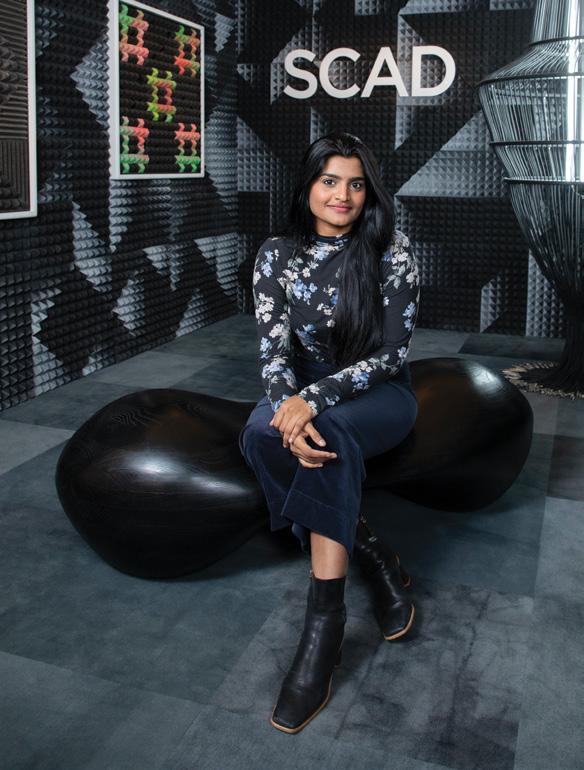
I feel designing furniture has a lot in common with designing a structure. In the end, both deal with human interaction. My architectural training gave me an opportunity to use my technical skills in a new medium. Furniture design gives me the freedom to explore and create, and unlike architecture, there are fewer outside influences that dictate the design of the piece. I love the hands-on, physical, and tangible aspect of furniture.
When I launched my capstone thesis collection, Primal Forms international furniture fair in New York, I was still in school. That whole experience has been valuable as it propelled me to develop a vision for my future practice and forced me to take this more seriously. Manifesting any creative vision with limited resources is not an easy task, but I’m open to making mistakes and learning from them.

CREATIVE CAREERS
Graphic designer
Mobile app designer
Interactive designer
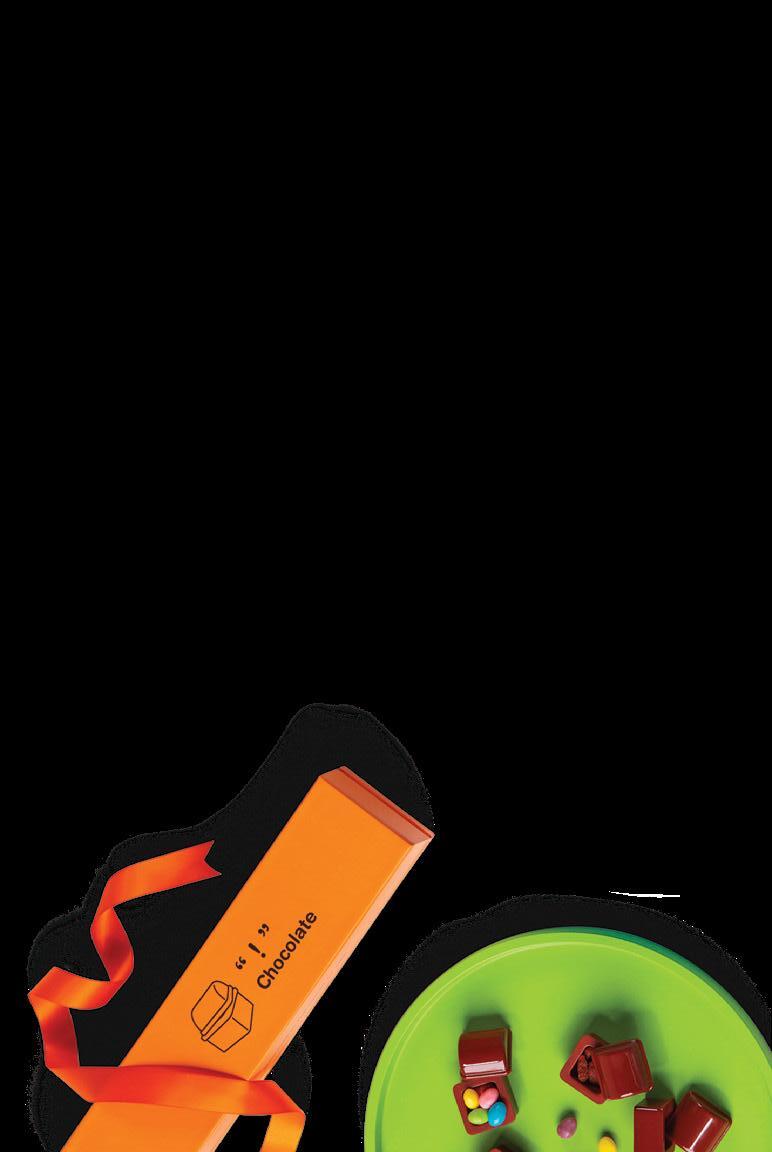
Publication designer
Brand designer
Creative designer
Package designer
Typeface designer
Environmental/ exhibit designer
User experience designer
As leading creators of immersive, interactive storytelling, SCAD graphic design students master this critical form of communication and breathe energy into brands, social movements, and ideas influencing companies like Apple, Google, LinkedIn, the NFL, and more. Across campaigns, they persuade, inspire, and connect audiences, earning honors from the International Design Awards, Indigo Awards, Red Dot Communication Design Awards, Core77 Design Awards, GDUSA American Package Awards, and more.
SCAD graphic design coursework parallels the latest evolutions of professional practice, from entrepreneurship and economic feasibility to contextual relevance and sustainable design. Undergraduate students learn distinct approaches to typeface design in GRDS 353 Typography II: Information and Media, merge branding and advanced technology in GRDS 387 Interface Design, and add human connectivity, branding, and advanced technology to spaces in GRDS 392 Exhibition and Environmental Graphics.
Graduate students in graphic design and visual experience research political, cultural, and social factors impacting design history (GDVX 503 Design History and Context of Media), harness data and social media as design elements (GDVX 754 Curated Narrative for Dynamic Content), vivify retail spaces, museums, and attractions to create immersive experiences (GDVX 757 Experience Design for Physical Spaces), and redefine the designer’s role in the ever-evolving landscape of AI and machine learning (GDVX 784 Visual Design for Interactive Contexts).
Through SCADpro, the university’s creative research and innovation design studio, students have collaborated with prestigious companies across industries: the American Red Cross, BMW, The Coca-Cola Company, Delta Air Lines, Disney, GE Transportation, Hewlett-Packard, and Snap-on. With this complete package of instruction, experience, and portfolio-building opportunities, alumni earn internships and career opportunities at top design studios, tech firms, sports and entertainment organizations, ad agencies, and fashion houses, or open their own design studios or businesses.
CHANGRAN DU
Senior digital designer, Rooms To Go
International Design Awards Gold winner SCAD M.F.A., graphic design, 2021 Chongqing, China
My professors taught me fundamentals of layout design and branding with a digital base. With SCADprovided resources, I’m integrating those together.
 SCAD graphic design student Mutian Yu won two 2021 Red Dot Awards for his packaging designs, which include Treasure Box “!” Chocolate and Mr. Baldie
SCAD graphic design student Mutian Yu won two 2021 Red Dot Awards for his packaging designs, which include Treasure Box “!” Chocolate and Mr. Baldie

Advertising illustrator
Art director
Graphic novel artist Animation
character designer
Entertainment design illustrator
Illustrator for game design
Storyboard artist
Muralist
Book illustrator
Editorial illustrator
With SCAD’s future-proof curriculum as their foundation, SCAD illustration students customize their careers across media, securing internships and commissions at Netflix, Adult Swim, American Greetings, FX, Rolling Stone, Forbes, and more. From byte-sized mobile games to books to building-sized murals, students spark imagination, transport viewers to vivid new places, and convey messages with panache.
In a comprehensive program that explores traditional and digital media, SCAD illustration students experience the independent and collaborative practices of the entertainment industry as they develop immersive illustrations for both page and screen. ILLU 335 Imaginative Illustration: Character Refinement illuminates character development and world-building in a variety of genres, including adventure, historical, horror, fantasy, and sci-fi. In ILLU 434 Concept Design for Animation and Games, students fuse their creative innovations to develop professional concept designs for expanding markets in animation and video games. Both undergraduate and graduate programs of study instill the ability to create fully formed concepts while developing the portfolio and business prowess for professional practice.
Gracing the pages of esteemed magazines and newspapers of record like The Atlantic, The Boston Globe, National Geographic, The New York Times, The New Yorker, The Saturday Evening Post, and Time, SCAD illustration graduates also venture into new media careers as artists, visual designers, and art directors at companies like Blue Mammoth Games, AT&T, and NPR.
SCAD classrooms, studios, and digital production labs are equipped with Wacom Cintiq displays, Mac workstations, and the latest hardware and software. The university provides the full Adobe Creative Cloud Complete for download to students’ personal computers, and students can enhance their résumés with professional Adobe software certifications.
Marvel Disney
The Coca-Cola Company
Simon & Schuster
World of Warcraft
Showtime
DreamWorks
HarperCollins
Urban Outfitters
Random House
SEAN LOOSE
Product illustrator, Indeed.com
U.S. Tennis Association featured illustrator
SCAD B.F.A., illustration, 2014
Port Charlotte, Florida
Dunkin’
Blizzard Entertainment
My time at SCAD shaped who I am as a designer. The experience SCAD provides its students is truly one-ofa-kind. The relationships I formed helped lead me to career success.
AR/VR developer
VR content producer
Technical artist
UI/UX designer
Environment artist
Game designer
Mixed reality artist
Realtime artist
AR designer
Virtual production technical director
Tech, gaming, health care, construction, aerospace, entertainment: Design the future of these globe-spanning industries at SCAD, the academic leader in immersive reality.
SCAD is home to a comprehensive suite of pioneering technology—including a mixed reality (XR) stage co-designed by groundbreaking alumni-owned studio MEPTIK—and a reputation for transcendent immersive experiences that position university students to chart new territories in a market expected to top $70 billion by 2024, according to forecasts from the International Data Corporation.
The university’s immersive reality experiences began with Say It With Music!, a first-inthe-world VR musical short film created in collaboration with students from 14 SCAD programs, while E3 student award-winning VR multiplayer game Brobot Beatdown let users suit up as giant robots and battle in a fully destructible city. When SIGGRAPH—the premier event for computer graphics and interactive achievements—needed a virtual lobby for its COVID-impacted annual conference, SCAD students spearheaded the development of Tahul, an immersive VR experience set in an ancient lost world inspired by Moroccan culture. In VR for Good, SCAD students demonstrated the power of immersive reality to make positive change, designing a series of immersive outdoor adventure experiences as a form of therapy for patients living in long-term and palliative care centers.
Students build the foundation of this innovation in ARVR 110 Immersive Revolution: Augmented to Virtual Reality, which analyzes the rapid evolution of the medium into the mainstream. In ARVR 300 Game Engine Applications for Immersive Computing, students push the boundaries of content creation and human movement, designing with software like Unreal, Unity, and CaraVR.
Through ARVR 305 Visual Effects for Immersive Environments, students learn to amplify perception and the digital experience by creating fantastical worlds in 3D environments like intergalactic battles and simulated tornadoes. Via SCADpro, the university’s creative research and innovation design studio, students use industry-standard tools like HTC Vive, Microsoft Mixed Reality, and Meta Quest to deliver professional-quality applications for AR/VR to clients like 3M, FOX Sports, Gulfstream Aerospace, Hasbro, and more.
SCAD has long been at the forefront of higher education. The VR for Good initiative exemplifies its forward motion and growth with each passing year.
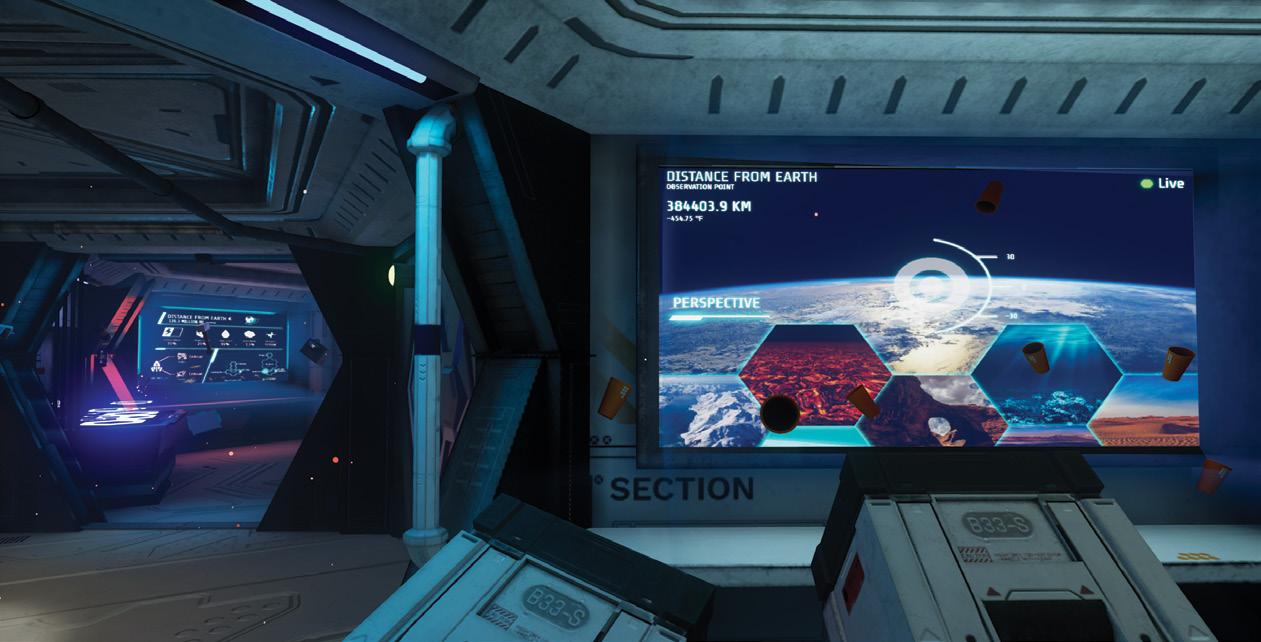
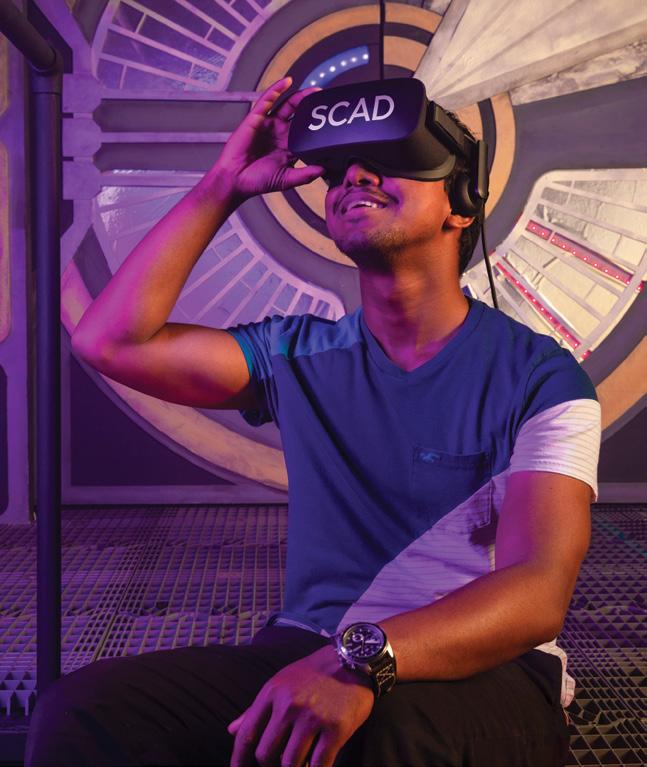
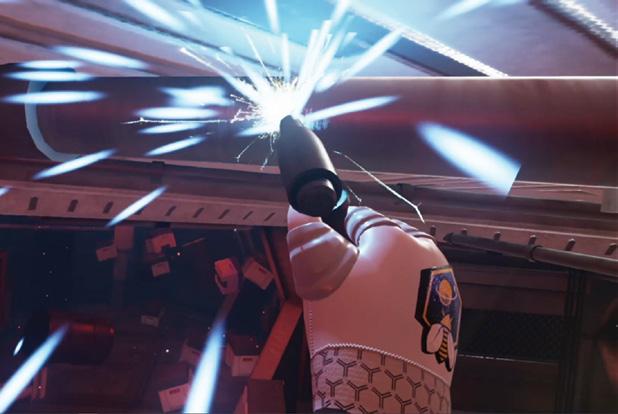


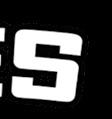

Product designer
Innovation catalyst
Transportation designer
Medical devices designer
Interaction designer
Consumer electronics designer
Toy designer
User experience designer
Marine designer
FACULTY CRED
At SCAD, industrial design students create products that connect people with the world around them. Industrial designers study how humans interact with their environment, visualizing the invisible and adding value to products and systems. With SCAD’s forwardthinking curriculum, students learn to approach design with an open mind, propelling what is possible through play and imagination as they determine the look, feel, and use of products. SCAD graduates solve user problems, usability challenges, and manufacturing issues while incorporating business objectives into their creative solutions at top companies including Google, Adidas, Hexbug, Ralph Lauren, Logitech, CB2, and more.
Before they graduate, SCAD students collaborate with corporate brands like Google, Amazon, and Meta (Facebook) to develop equitable and inclusive experience design, Lenovo to create a “Build Your Own PC” kit for children ages 12–14, and BMW to research and develop vehicle concepts for aging populations through SCADpro, the university’s creative research and innovation design studio. They also partnered with AT&T, Clayco, Char-Broil, The Coca-Cola Company, Dynacraft, Fisher-Price, Ford Motor Company, General Motors, Hewlett-Packard, Mattel, Microsoft, and Reebok to generate imaginative, workable concepts and prototypes for real-world design challenges.
The SCAD industrial design curriculum parallels professional practice and offers stateof-the-art knowledge and technology, and is taught by faculty who are professionals with unmatched careers in the industry. SCAD students realize their design concepts by making prototypes beyond the computer screen. SCAD’s state-of-the-art resources, from the latest 3D printing technologies to fully equipped wood, metal, and plastic shops, enable students to build 3D models of their future-transforming concepts.
In Savannah, the SCAD Gulfstream Center for Design’s 10,000-square-foot model shop provides students with ample space to work with wood, metal, plastics, and composites. In Atlanta, students shape their ideas in a leading-edge wood and metal shop, a foundry for bronze and stainless steel, and a computer lab with 3D rapid prototyping and laser housed in a building designed by world-renowned architect Renzo Piano.
Mercedes-Benz
SCAD industrial design students and alumni have earned awards and recognitions from 20 different competitions, including the Core77 Design Awards, Industrial Designers Society of America International Design Excellence and Student Merit Awards, International Design Awards, the MakerBot NYCxDESIGN Challenge, Red Dot Design Concept Awards, Spark Awards, and Walt Disney Imagineering’s Imaginations Design Competition.
Andromeda, 3D-printed plastic and mixed media Ryan Sulesky Lebanon, Ohio
AKSHAY MANJUNATH
Design researcher, Walmart SCAD M.A., industrial design, 2019 SCAD M.A., design management, 2019 Bangalore, India
If you get an opportunity to attend SCAD, go for it. The university offers all the resources you need. Even after graduation, SCAD offers essential assistance and support.
It was hard not to choose SCAD. Hearing great things from friends and articles eventually led me to plan a trip to see the university in person. After spending a couple of days seeing the city, the facilities, and opportunities that could emerge from enrolling, I didn’t think twice about it.
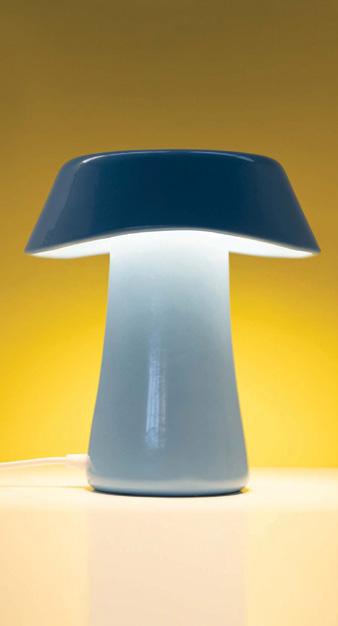
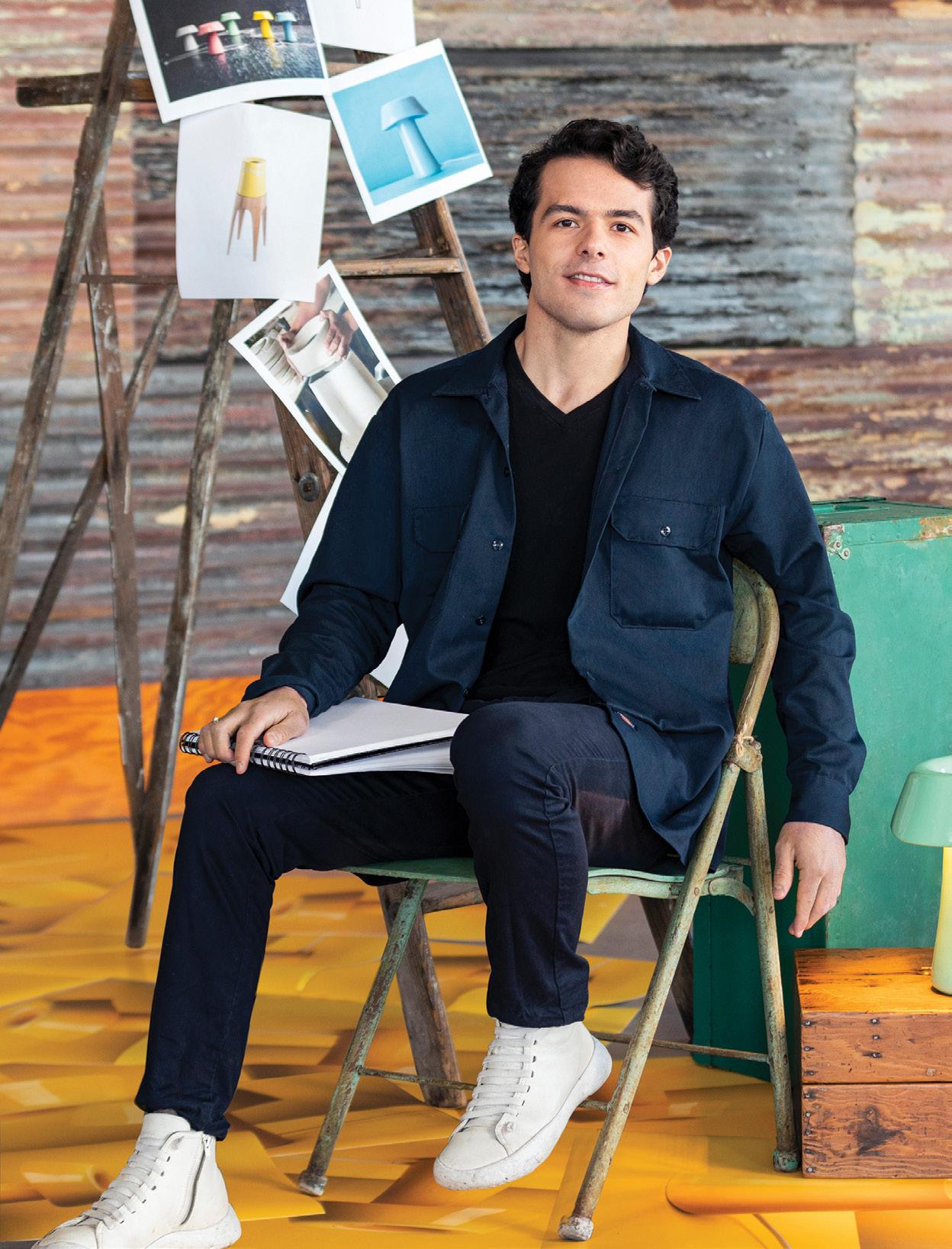
That it is a very extensive discipline that allows you to navigate seamlessly from designing cars to electronics and even collectable design. I meet so many people that focus on different areas within industrial design, which leads to new ways to think, see, and approach my projects.
I’m working on many things, but the most important right now is my final project, which will be a collection of two objects: a lounge chair utilizing traditional wood-bending techniques and a ceramic self-standing floor lamp.
It really depends on the nature of the project or the exhibition I am invited to, but whenever I design something, I always try to constantly question myself, “What if?” Most times this question doesn’t lead to any answers, but it certainly leads to more questions and interesting new ways to approach the object that I am designing.
It’s intense. A lot of organization and preparations have to be made, from producing the pieces required for the exhibition to preparing shipping crates. It’s an arduous and complex process that pays off at the end with the satisfaction of being able to show something you made from start to finish. It’s unexplainable.
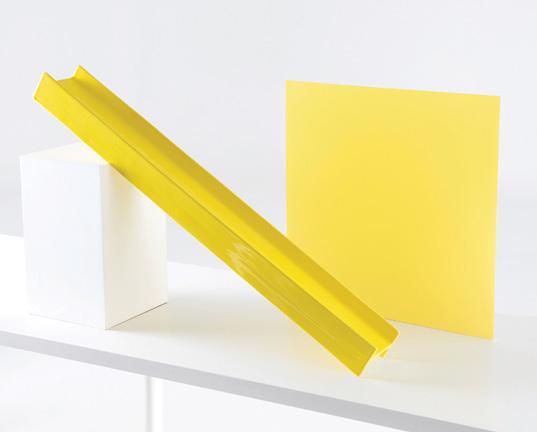
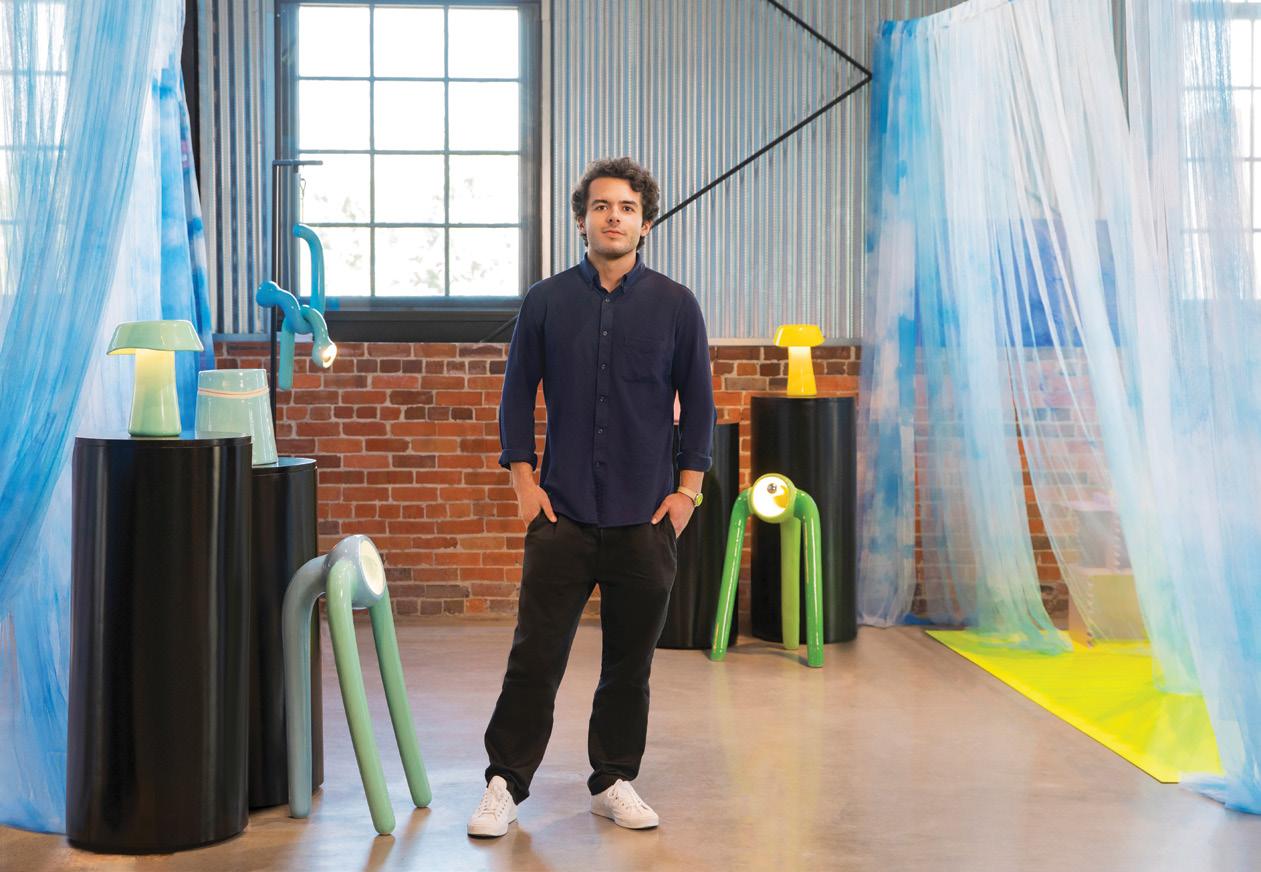
I have always been inspired by architects that make evident the use of beams in the buildings. I bought a rusted and old A-beam from a scrap yard, I polished it, made a mold and cast with low-temperature ceramic. The material and recognizable silhouette became a juxtaposition, one that combined the inherent structural strength of an A-beam and the fragility of ceramics. And to fully decontextualize the object, I put a discrete LED installation on the back that created an indirect and environmental light.
tions and shows around the world. And in the long term I
The short-term plan is to go to Brooklyn and work with the designer Misha Kahn and continue taking part in exhibiwould want to go back to Mexico and start my own studio.
Show your work to people. If you have polarizing reactions of people either hating or loving it, you are probably on the brink of something special.
Abeam lampUser interface designer
Web/social media developer
Mobile game/app designer
Environment artist
Game designer
User experience designer
Narrative designer
Modeler/texture artist
Technical artist
Character artist
SCAD offers the most extraordinary interactive design and game development program in the U.S., lauded by The Rookies, The Princeton Review, and Animation Career Review.
Across all SCAD locations, students have access to industry-standard software including Autodesk Maya, ZBrush, Substance Designer and Painter, MotionBuilder, Unreal, and Unity as well as augmented and virtual reality devices and multiple motion capture systems to create hit games, engaging websites, inventive apps, and pioneering immersive reality experiences. Much like the program itself, SCAD students’ critically acclaimed games have scored top prizes at the E3 College Games Contest, among other competitions, and earned glowing reviews in Game Informer, Wired, and more.

As part of their studies, students are coached to enter competitions and participate in international conferences like E3, SIGGRAPH, the Game Developers Conference, and SXSW, among others. Students expand their networks and explore the future of game development at SCAD GamingFest, which features programming and guest speakers from leading digital media and gaming companies like Electronic Arts, Epic Games, Microsoft Game Studios, and Ubisoft.
In addition to these connections within gaming, SCAD students work with major brands through SCADpro, the university’s creative research and innovation design studio. Recent campaigns include partnerships with Google Daydream, Canon, The Home Depot, Delta Air Lines, Samsung, General Electric, Gulfstream Aerospace, Clayco, Deloitte Digital, Colgate-Palmolive, and JCB. Alumni find rewarding work at defining digital media and game design studios, including Apple, Adobe, Bethesda, Electronic Arts, Gearbox Software, Microsoft, and more.

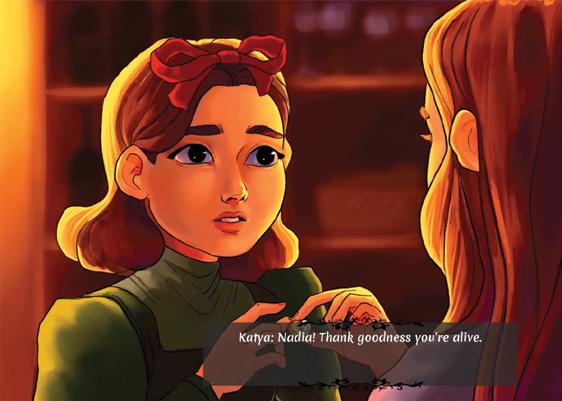
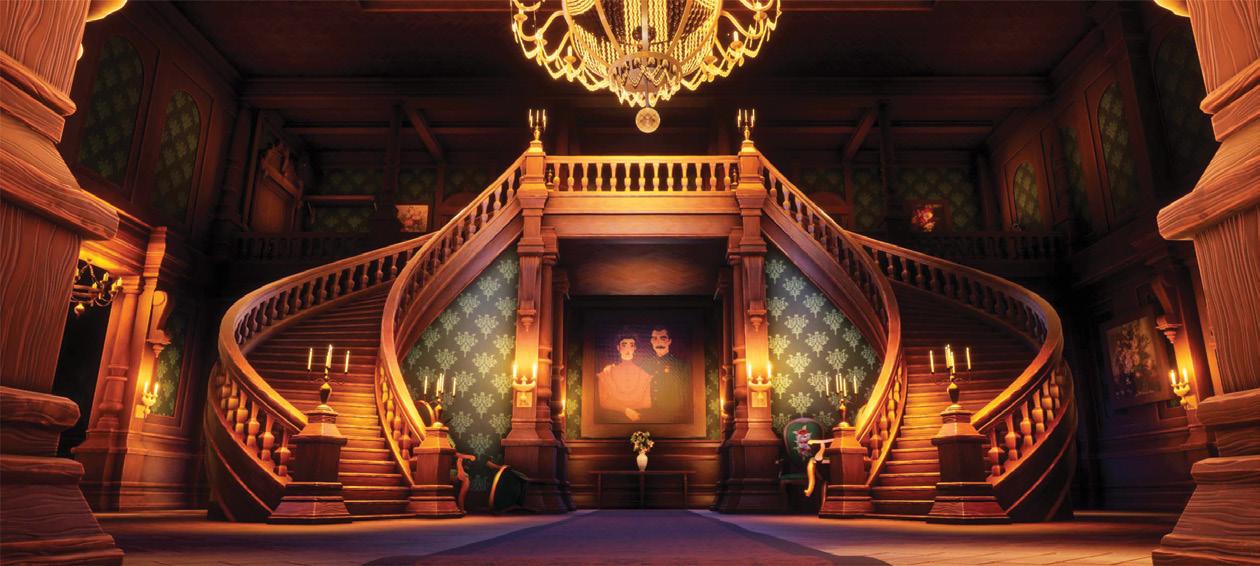

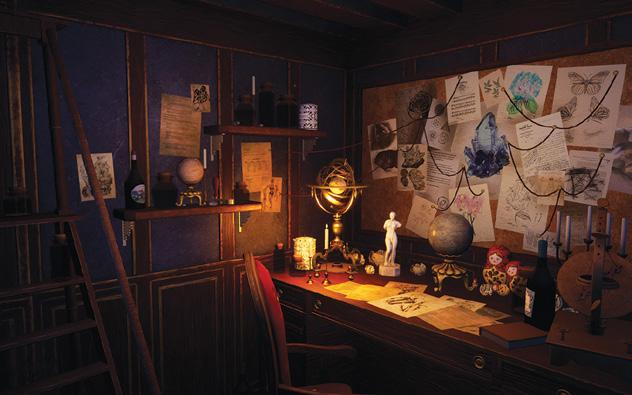



CREATIVE CAREERS
Hospitality designer
Corporate designer
Cruise ship interior designer
Health care facility designer
Interior designer
Lighting designer
Project manager
Retail designer
Creative director
Design coordinator
Aviation interior designer
SCAD’s undergraduate and graduate interior design programs are decorated with more No. 1 rankings than any other university, according to DesignIntelligence’s “Best Architecture and Design Schools.”
These honors are complemented by the university’s unparalleled learning environments, designed to be delightful, intentional, and professionally focused — earning recognition for more than 40 years from leading design organizations like the International Interior Design Association and the Institute of Classical Architecture & Art.
SCAD interior design students realize the university’s legacy of inspiring spaces by winning scholarship prizes and honors like the ASID Student Portfolio Competition to add to this award-winning program’s pedigree. Guided by experienced faculty, students explore a wide range of career paths, investigating behavioral, environmental, aesthetic, financial, and technical considerations — and how these factors impact design solutions. Students at every level work with advanced electronic design software — including Autodesk Revit and 3ds Max, AutoCAD, SketchUp, and Adobe Creative Cloud Complete — while immersion in augmented, virtual, and mixed reality technology prepares students to lead next-generation design processes and customer experiences.
SCAD GRAD WORKSPACES
NASA Amazon Google Disney Microsoft Uber Gensler H&M
SCAD’s undergraduate and graduate interior design programs have swept the top spots in DesignIntelligence’s rankings eight times since 2008.
The SCAD interior design program also addresses health and wellness, sustainable practices, and timeless style within markets like corporate, residential, retail, and hospitality design. Students apply their design prowess to interdisciplinary assignments with top companies via SCADpro, collaborating with Walt Disney Imagineering to develop Disney resort hotels and with Chick-fil-A to create interior plans for its corporate headquarters. Elevated signature events and networking opportunities, from SCADstyle to the American Society of Interior Designers National Student Summit to Interior Design magazine’s Giants of Design conference, bring students into direct contact with future employers and professional mentors.
Fine jewelry designer
Jewelry design entrepreneur
Jewelry technical specialist
Studio goldsmith/ silversmith
Studio jewelry artist
Accessories designer
Jewelry buyer
Product development manager
Corporate jewelry designer
CAD/CAM designer
As luminary designers, merchandisers, production leaders, and more, the brightest talents in jewelry find the perfect setting at SCAD to launch careers across contemporary, luxury, and fine art markets.
Through SCADpro, the university’s creative research and innovation design studio, students dazzle within authentic work environments, where they add glamour to global companies including Chanel, Swarovski, Fossil, Zales, and more. Alumni apply these professional practices to brilliant careers at Tiffany and Co., David Yurman, Chanel, and as founders of their own award-winning lines and brands flashed by celebrities like Oprah and in the pages of i-D, Vogue Korea, and InStyle. Jewelry students and alums hone signature styles that have earned Halstead Grants and International Lab of Mittelmoda awards, prominent placements in British Vogue and Vanity Fair, and glittering features at CFDA Fashion Future Graduate Digital Showcase.
The jewelry industry is expected to reach a $480-billion valuation by 2025. — GRAND VIEW RESEARCH
SCAD provides jewelry students with illustrious resources within a 13,800-square-foot studio environment outfitted with top-of-the-line technology, including two laser welders, an induction casting machine, two Orion arc welding systems, a BB70 engraver, a microscope system, dual handpiece micro-motor systems, Roland JWX-10 milling machines, Graversmith with air compressor system, and Wacom Cintiq tablets. Software resources include Adobe Creative Cloud Complete, MatrixGold, ZBrush, KeyShot, and an authorized RhinoFabStudio, which enables students to earn Rhino certification before graduation. Through career-focused curriculum like JEWL 387 Jewelry Innovation Lab, students remain at the forefront of technological advancement as they take an experimental approach to precious works of great complexity.
Thanks to the university’s retail gallery shopSCAD and invitation-only activations like New York City Jewelry Week, jewelry students develop a devoted following of collectors while at SCAD.

Metaverse gaming and NFTs could constitute 10% of the luxury goods market by 2030, with a revenue opportunity of more than $50 billion.
 — MORGAN STANLEY
— MORGAN STANLEY
Brand account executive
Brand experiences designer
Luxury marketing executive Strategy consultant
Sustainable product development director
PR and communications director
Retail stores director
Social media marketing executive
Supply chain and global sourcing executive
Brand manager
As future innovators in the luxury market, SCAD students enter this multibillion-dollar global industry through multiple avenues: tech, travel, hospitality, beauty and fragrance, jewelry, and fashion. Graduates are in roles such as senior CRM and digital marketing analyst at Parfums Christian Dior, digital marketing strategist of Audi of America at Aquent, and eCommerce merchandising coordinator at Hermès. The customized curriculum at SCAD, centered on global distribution and marketing strategies, financial analysis, supply chain management, and consumer engagement, explores the entire spectrum of the international luxury industry — transforming students from dreamers into visionaries, ready to deliver change with a positive global impact.
In courses like LXMT 740 Visual Narrative for Consumer Engagement, students employ visual storytelling, technology solutions, and strategic brand-building practices to reach luxury consumers. LXMT 730 Marketing Strategies for Luxury Brands and Experiences gives future luxury brand leaders the opportunity to explore the evolution of marketing strategies for successful brands.
By analyzing real-life scenarios and case studies as well as interacting and consulting with industry partners, students receive a robust managerial foundation and develop sector-specific acumen. The sociological and psychological frameworks learned in the program, combined with the exposure to principles of micro- and macro-economics, enable them to master the ability to discover premiumization opportunities across all industry sectors, such as financial services, wellness, and beyond.
SCAD offers the world’s first M.A. and M.F.A. degrees in luxury and brand management.
SCADpro, the university’s creative research and innovation design studio, primes luxury and brand management students to launch new strategies for powerhouses such as L’Oréal, Kendra Scott, and Ernst Benz. Through SCADamp, the university’s professional presentation studio, students develop essential relationship-building and public-speaking techniques to land coveted industry positions. At SCAD virtual and signature events, students have unprecedented access to leaders like St. Regis Hotels and Resorts VP and global brand leader Georgia Fleck, luxury real estate broker John Gomes, and Saks Fifth Avenue SVP and fashion director Roopal Patel.
SCAD offers the world’s first specialized degree in motion media design, helping students and alumni to engineer captivating title sequences, promos, interactive content, and digital performances at leading networks, branding agencies, and creative firms. As they prepare for one of the fastest-growing professions in the world, SCAD student designers are empowered by professional 2D, 3D, and compositing software, as well as augmented and virtual reality labs in a program named the top in the world by The Rookies for six consecutive years.
Make media magic at the world’s No. 1 university for motion graphics — six years running.
Coursework prepares students to specialize in the development of digital media and animation for commercial broadcast (MOME 408 Multiplatform Media Brand Packaging), titles and credits (MOME 246 Title Design), and large-scale projection (MOME 305 Motion Media Projection) as well as studio work for exhibitions, social media branding, typography, and short-form narratives. Faculty members are acclaimed artists and multimedia producers who have won Emmy Awards, Promax-BDA Awards, Golden Trailer Awards, Fulbright grants, and the National Endowment for the Arts Visual Fellowship.
SCAD motion media design students benefit from a career-oriented environment and professional partnerships offered by SCADpro, the university’s creative research and innovation design studio. Motion media design students have produced content for Adult Swim to use on air and on social media; developed a branded film experience for Cobham; augmented Deloitte Digital’s recruitment experience; created autonomous vehicle concepts with Samsung; developed augmented reality applications for Google; and drafted visual design proposals for FOX Sports’ coverage of the 2018 and 2022 FIFA World Cups.
SCAD is also the first university to host its own dedicated, student-led motion media festival, SCAD CoMotion, which connects students to dozens of motion graphics companies each year. Signature events like the SCAD Savannah Film Festival, SCAD GamingFest, and SCAD AnimationFest present students to Academy Award-winning professionals, Emmy Award-nominated designers, and the creative talents behind fan-favorite movies and shows. These interactions prepare students for powerful careers at companies like The Mill, Imaginary Forces, Buck, Brand New School, Meta, Troika, Giant Ant, Saatchi & Saatchi, and Scholar.
With French author Gustave Flaubert’s famous quote as the subject, SCAD student Klopas Oey (Hong Kong) used Cinema 4D, Octane, and After Effects to visualize how people interpret information in the motion media short There is No Truth. There is Only Perception.





Kehinde Wiley
Marilyn Minter
Angel Otero
Hernan Bas
Lucha Rodriguez
Franklin Sirmans
Lawrence Weiner
Hayv Kahraman
Bridget Finn
Phong Bui
Eric Fischl
Katharina Grosse
Camilo Alvarez
Uri Aran
Luke Murphy
SCAD painting students gain the technical and conceptual foundation they need to create enduring works of art — balancing the artistry and business savvy that fine artists need to sustain a profitable creative practice.
With a curriculum that includes traditional portraiture, conceptual art, professional practices, branding, and collaboration, students meet opportunities with preparation. From museums to galleries and art fairs, the prominence of SCAD students and alumni in the art world radiates across the globe. Students have been recognized in New American Paintings, featured on popular television and film sets, and showcased in national exhibitions. Alumni have exhibited in the Museum of Modern Art, the High Museum of Art, the Hammer Museum, the Kemper Museum, Art Basel, and at countless galleries worldwide. Alumni also work as writers for publications such as Art Papers, and as curators, program directors, design directors, and museum professionals.
In the SCAD painting program, students develop the skill set needed to collaborate within a wide range of creative industries such as film, television, and illustration. Paintings by alumni promote record-breaking blockbusters like Black Panther and are featured in hit shows such as HBO’s The Undoing
Curator
Gallery owner/ director
Art critic/writer
Film and television
scenic designer
Art director
Digital artist
Exhibition designer
Museum preparator
Art consultant
Studio artist
SCAD student and alumni artists have sold thousands of works through SCAD Art Sales, the only elite commercial gallery in higher education.
At the university’s Open Studio events, SCAD deFINE ART, and through SCAD Art Sales, SCAD painters and global artists showcase and sell their distinctive work to international tastemakers like Disney, Fandango, Adidas, Pepsi, and more.
Photographed in his studio, SCAD painting student Raphael Bahindwa (Kinshasa, Democratic Republic of Congo) draws on inspiration from Congolese arrows, masks, and other artifacts emblematic of his country to create his colorful works.
CREATIVE CAREERS
Actor
Casting director
Talent agent
Voiceover talent
Artistic director Director Producer
Improv/sketch performer
Stunt performer
Fight choreographer
Stage, screen, and streaming debuts start at the only university with an on-site, professionally run casting office. Through the SCAD Casting Office, student performing artists have booked roles on productions in Georgia, Los Angeles, New York, and beyond with major film studios and networks like Amazon Studios, BET, CBS, Hulu, NBC, Netflix, The CW, and USA. Budding SCAD actors prepare for these scene-stealing interactions at the only university selected in all five of The Hollywood Reporter’s academic program rankings.
SCAD performing arts alum
Sophia Manyet (Fort Thomas, Kentucky) starred in Simulacra, the first student-produced narrative short film shot on SCAD’s XR stages.
More than 500 students have booked roles through the SCAD Casting Office, the only one of its kind in higher education.
At SCAD, performing arts students give voice to animations, portray original characters in multicamera sitcoms and television pilots, and use virtual reality to create transcendent immersive experiences on stage and in themed attractions. In SCAD production studios and theaters, they star in fully produced on-stage and on-camera segments during the academic year. SCAD students receive instruction from professors with impressive credentials—accomplished actors, directors, and casting directors at major studios and networks, and veterans of such shows as Scandal, The Young and the Restless, The George Lopez Show, Phil of the Future, The Good Wife, The Walking Dead, and more.
During virtual talks with leading actors or annual SCAD Savannah Film Festival and SCAD TVfest signature events, students have front-row access to learning and networking opportunities with Hollywood icons and breakout stars. These events prepare grads for unprecedented opportunities: on-site auditions and invitation-only showcases with top agents, managers, and casting directors to launch their marquee acting careers.
Kayli Carter
The Marvelous Mrs. Maisel and Mrs. America
DeRon Horton
American Horror Story and Dear White People
Kiandra Richardson Kingdom Business and Empire
Christian Magby One Night in Miami and The Flash
Caroline and Rebecca Huey
Truth Be Told
Gabrielle Hespe
Luckiest Girl Alive and Mrs. Fletcher


CREATIVE CAREERS
Art director
Digital videographer
Digital photo finisher technician
Advertising/studio photographer
Fashion photographer/ stylist
Fine art photographer
Gallery director
Photojournalist
Illustrative photographer
Digital videographer
From social media feeds to gallery shows, SCAD photographers make you look. SCAD photography curriculum encompasses the full spectrum of the medium, from historic and analog processes to the newest digital technologies that transcend boundaries.
SCAD courses are designed to help students develop their own creative vision, master visual literacy, and launch their careers — where they capture celebrities for magazines like GQ and Vogue, create work for album covers like Taylor Swift’s Lover, and contribute to cookbooks and monographs.
The undergraduate SCAD curriculum gives students an opportunity to customize their studies through concentrations in commercial, documentary, and fine art photography. Graduate students develop a body of work uniquely anchored to their artistic vision and specifically mapped to their career goals. Students gain fluency with a variety of camera systems, digital workflows, color and black-and-white techniques, compositing and editing, studio and location lighting, and video shooting and editing — developing expertise through tailored study and faculty mentorship.
Outside the classroom, students have interned for Annie Leibovitz, Ford Models, Hearst Magazines, The Richard Avedon Foundation, Time Inc., Turner Broadcasting, and others. Graduates join a list of globetrotting SCAD photography alumni who work in exotic locations for the likes of Condé Nast Traveler, National Geographic Traveler, The New York Times, Elle Decor, Architectural Digest, and more; capture nature and wildlife vignettes; publish their own books and magazines; and exhibit their imagery in museums from New York to Seoul.
SNAPWORTHY TECH
Hasselblad Flextight
Chromira ProLab Printer
Wide-format inkjet printers
Professional medium format digital cameras
Contemporary photography legend
SCAD deFINE ART 2022 keynote speaker
Profoto studio, strobe, and lighting kits
The caliber of work coming out the SCAD program is top notch. This is the kind of program every talented young student should be part of.
DUANE MICHALS
National Park Service
National Trust for Historic Preservation
UNESCO
World Monuments Fund
Congress for the New Urbanism
International Downtown Association
The Institute of Classical Architecture and Art
Savannah Development and Renewal Authority
Reclaim the past and elevate the character of buildings, blocks, and cities with the preeminent leader in preservation education. At SCAD, preservation design students join a lauded professional community of preservationists led by SCAD President and Founder Paula Wallace. Since its founding, the university has rehabilitated and repurposed more than 100 buildings worldwide, resulting in more than 70 honors globally, including the National Trust for Historic Preservation’s Louise du Pont Crowninshield Award. Wallace is the only university president to receive this honor, the highest recognition for individual achievement in preservation, testifying to the university’s preeminence as a world leader in preservation design excellence.
In Savannah, students learn to investigate, interpret, and innovate heritage resources in a curriculum that draws directly from the city’s international status as a model for preservation. Through the comprehensive study and analysis of real-world business demands, local priorities, and the importance of heritage, students and alumni are able to activate preservation culturally, economically, and sustainably in the revitalization of cherished structures and the adaptive reuse of former strip malls and oncegeneric commercial districts.
During their studies, SCAD preservation design students interact with admired practitioners through on-site learning experiences and international conferences. In projects with major partners like the Association for Preservation Technology International and UNESCO, they experience the role of advocacy and stewardship in advancing heritage. Program alumni step into leadership roles with prominent organizations stewarding the restoration and redevelopment of communities nationwide, including the National Park Service, the U.S. Capitol Historical Society, and more.
CREATIVE CAREERS
Preservation designer Design strategist
City/regional preservation planner
Downtown development director
Museum administrator/ curator
Restoration artisan
Digital heritage specialist
Historic preservation officer
Grant developer or manager
Historic materials conservator
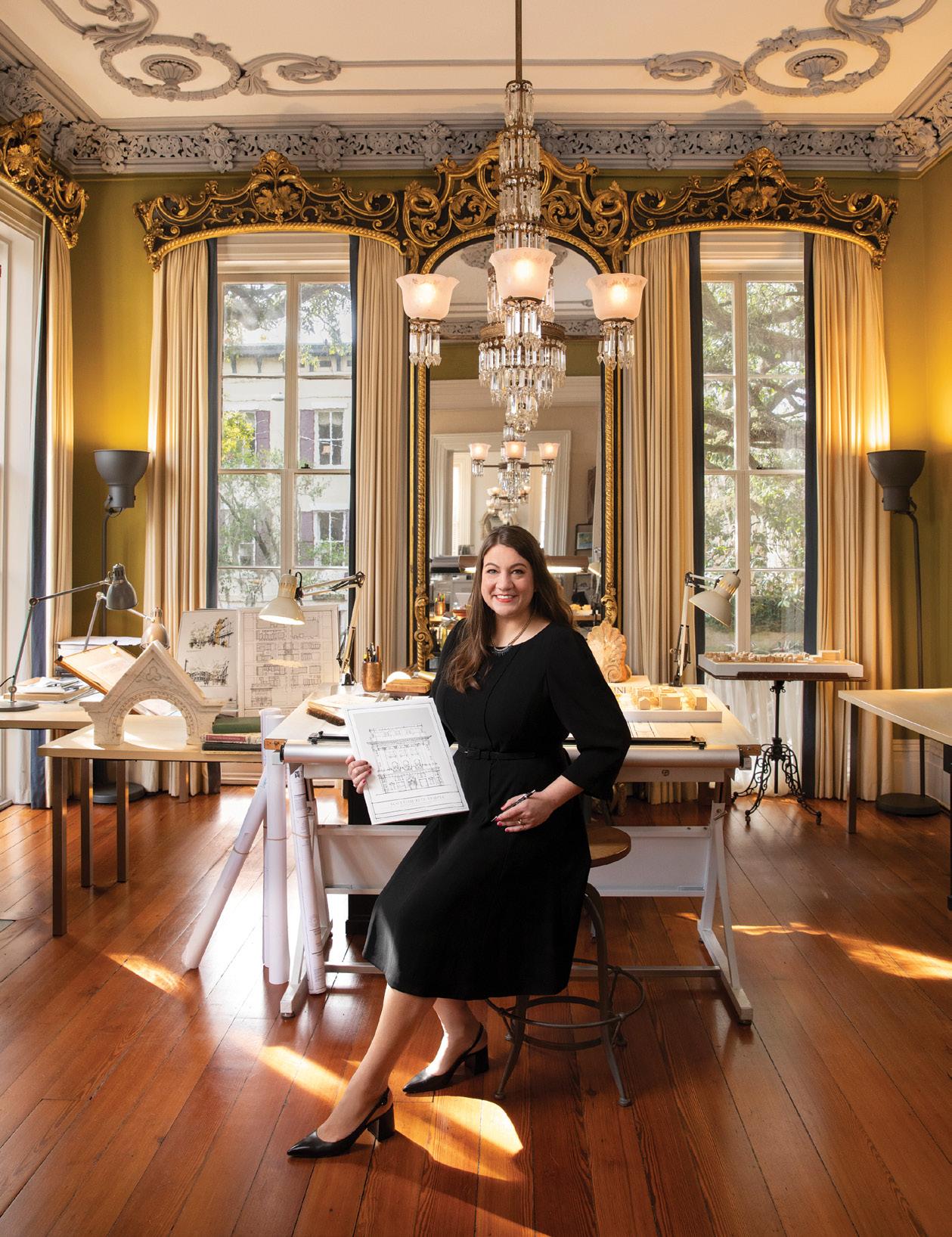
 SCAD production design students captured 1950s Americana in their small-town set for the Elvis Presleyinspired musical All Shook Up
SCAD production design students captured 1950s Americana in their small-town set for the Elvis Presleyinspired musical All Shook Up
Set designer
Art director
Costume designer
Stylist/wardrobe designer
Designer for exhibitions/ museums
Lighting designer
Production designer
Retail designer
Art assistant for film and television
Scenic artist
Building on a strong foundation in design process and a swath of expertise in art direction, costume design, lighting design, and more, SCAD production designers steal the show on set in Hollywood, Atlanta, and countless studio spaces beyond.
Alumni of this powerhouse program, listed among The Hollywood Reporter’s best universities for costume and production design, have created sets, stages, and props for Lady Gaga, The Weeknd’s Super Bowl halftime show, the Bonnaroo Music & Arts Festival, Broadway shows, and major productions like Atlanta, Avengers: Endgame, Ford v Ferrari, One Night in Miami, Tenet, and The Walking Dead
To create these memorable moments, SCAD production designers develop storytelling and set design skills. Through coursework, they apply advanced technology to a wide range of professional tracks in PROD 313 Digital Rendering for Entertainment, add scale to their concepts in PROD 331 Scenographic Model-making, and visually communicate narratives and worlds in PROD 702 Costume Manipulation Techniques.
Complementing these courses, students benefit from opportunities on a range of movie genres, TV show styles, and production types: short films and TV series shot on SCAD’s soundstages; next-generation immersive experiences shot in green screen studios or on mixed reality (XR) stages; Broadway-style musicals and dance productions performed in an intimate black-box theater, a covered outdoor amphitheater, or three historic proscenium stages for large casts.
Students gain valuable industry insight during guest lectures and master classes by Academy Award winners Ruth E. Carter and Sandy Powell, virtual chats with top costume designers like Emmy Award winners Janie Bryant and Donna Zakowska, and talks with the production staff from films and shows like Blade Runner 2049 and The Queen’s Gambit. These opportunities prepare graduates for a range of careers working with studios and companies like 20th Century Fox, ABC, HBO, HGTV, MTV, NBCUniversal, Walt Disney Imagineering, the New York Theatre Ballet, Tyler Perry Studios, and more.
SCAD ALUMS ON SET
Watchmen Respect
Coming 2 America
Life Legendary Safety
West Side Story
RUTH E. CARTER
Academy Award-winning costume designer
SCAD students and alumni never cease to amaze me.
3D computer modeler
Art director
Public artist/ consultant
Sculptor/studio artist
Foundry/moldmaking specialist
Toy designer
Curator
Exhibition designer
Prop artist
Prosthetic artist
Sculptors shape exquisite objects that wow the public across fine art, film, and entertainment. SCAD sculpture alumni make masterworks that star on screen at NBCUniversal and in Marvel films, where alum Kenneth Spivey created memorable props for blockbusters including Avengers: Infinity War. They also create objets d’art for brands like Anthropologie and earn praise on CNN and in Wired magazine.
Through SCADpro, the university’s creative research and innovation design studio, SCAD students shape their careers with high-profile collaborations from the start. Sculpture students have created and installed a custom, six-story ironwork for Hotel Indigo, assisted the Atlanta Football Host Committee with research and development concepts for a moveable sculpture in celebration of the College Football Playoff National Championship, and developed an artwork collection out of Prysmian Group’s industrial cable to help consumers envision the company’s products beyond their commercial applications. Via SCAD Art Sales, the university’s fine art consultancy, SCAD sculptors sell their work directly to consumers, earn commissions, and build their businesses through an international online gallery.
All aspects of the profession are illuminated within an incredible studio designed by Pritzker Architecture Prize winner Renzo Piano. Here, real-world design projects and professional interactions impart the portfolio power for SCAD sculptors to land fulfilling jobs in innovative sectors. Representatives from prestigious organizations such as Ford Motor Company conduct studio sessions, review and critique work, offer lectures, hold workshops, and mentor students.
At the SCAD Museum of Art, students take notes from internationally exhibited sculptors including The Haas Brothers, Igshaan Adams, Nicholas Hlobo, Tom Burr, and more. Alumni also grow their careers in the dedicated alumni gallery at the premier contemporary art museum, where exhibitions such as Masud Olufani’s Imprint: Past as Prologue, Cory Imig’s Notes on Sculpture, and Monica Cook’s Liquid Vessels open to critical acclaim.
Metal fabrication and wood shop
Bronze, aluminum, and stainless steel foundry
Casting and moldmaking PC lab
3D rapid prototyping printer
CNC milling and laser cutter
24-hour graduate student studio space
HANNA ALLEN
Artist, Hanna Allen Art SCAD B.F.A., sculpture, 2020 Atlanta, Georgia
Kilns for glass and ceramic
SCAD allowed me the freedom to experiment and find my creative voice.
 SCAD grad Abel Macias (Los Angeles, California) is a visual problem-solver who creates playful, relatable showrooms and designs for clients that include West Elm, Lululemon, HBO, Flamingo Estate, and more.
SCAD grad Abel Macias (Los Angeles, California) is a visual problem-solver who creates playful, relatable showrooms and designs for clients that include West Elm, Lululemon, HBO, Flamingo Estate, and more.

Storyboard artist
Publisher/editor
Character/ creature designer
Children’s book artist
Comic book artist
Graphic novelist
Prop/asset designer
Production artist
Toy/figure sculptor
Concept artist
Sequential artists build worlds, one panel at a time. Mas
ters of the visual narrative, they tell impactful stories in a single newspaper strip, epics that span volumes of books and games, and reels of motion-picture films.
Students at SCAD, the world’s first university to offer both undergraduate and graduate degrees in sequential art, explore every style and genre through a comprehensive curriculum incorporating traditional techniques with advanced technology that leads to careers in production, TV, and film. In SEQA 383 The Pitch, students learn how to create and present a proposal for the development of a graphic novel, comic book series, film, or television project. Sequential art students also have a range of diverse electives to expand their command of the format, including superhero comics, advanced storyboarding, publishing, cover illustration, sequential art for emerging media, maquette design, and more.
SCAD sequential art students regularly win top honors for their work, including Applied Arts Student Awards, Red Dot Communication Design Awards, and Society of Illustrators student scholarships. Alumni step into a variety of roles at the world’s largest comic book publishers and animation houses: model sculpting for action figures, concept design for animation, and storyboarding for major films, television, commercials, and video games.
Instructors and alumni have earned Will Eisner Comic Industry Awards and nominations, which recognize the best comic creators and their work each year. Through SCADpro, the university’s creative research and innovation design studio, students have sketched visual concepts for Hallmark greeting cards, penned short stories for Lowe’s Innovation Labs depicting far-future visions of humanity, and dreamed up next-generation electric vehicle charging stations for Volvo.
tSCAD FACULTY CONTRIBUTIONS
Batman
Green Lantern
Spider-Man: Homecoming Batgirl
X-Men Hulk
Fantastic Four
Ant Man
Captain America: Civil War
Avengers: Endgame
Guardians of the Galaxy Vol. 2
WandaVision
Hawkeye
Experience manager/director
Innovation manager/director
Customer experience manager/director
Design manager/ director
Experience strategist
Interaction designer
Retail designer
Service designer Design strategist
User experience researcher
Service designers create intuitive systems that organize three elements—people, processes, and physical components —to improve services across every realm of human activity. At the preeminent university for service design, SCAD students learn how to research and analyze human behavior, societal needs, business models, and competitive environments to transform those insights into strategy.
Equipped with a solid foundation in enterprise, innovation, and problem-solving, SCAD students are prepared to take leadership roles in the private and public sectors. In the SCAD Gulfstream Center for Design, students collaborate across disciplines with numerous partners through the university’s creative research and innovation design studio, SCADpro. In one recent partnership, service design students developed concepts for the future of high-end flying with Delta Air Lines through research, service, mapping, and interface ideation. In another collaboration, students worked with Fidelity Labs to design concepts to help millennials and Gen Z with financial goals, budgeting, reducing debt, and investing.
SCADPRO SERVICE DESIGN COLLABS
Google HP Deloitte Digital GE
Delta Air Lines
Target Projects for Peace
Volvo
— FAST COMPANY
SCAD service design student projects have won Red Dot Design Awards and appeared in Touchpoint, the international trade magazine of the Service Design Network. Alumni are powering creative problem-solving at Amazon, Apple, BBVA Compass, IBM, Lowe’s, Microsoft, The Home Depot, and elite global design consultancies like Boston Consulting Group, Booz Allen Hamilton, Fjord, Harmonic Inc., and more.
Le Petit Chef, an immersive 3D dining event
Laura Mancipe Bogotá, Colombia
Service design has been one of the greatest disruptive forces in our lives over the past 20 years. Everything has been transformed to put the customer’s experience first.




The SCAD social strategy and management program prepares students to devise the content and campaigns that drive clicks, conversations, and company profits.
SCAD students are poised to launch brands to the top of the social media feed via a curriculum that merges advertising, branding, graphic design, marketing, photography, film, motion graphics, television, and writing. In SOCL 220 Social Strategy: Messaging and Management, students learn how to capture attention by building unique, scalable, and strategy-adherent messaging, while in SOCL 320 Social Strategy: Lifecycle Marketing, students explore how to reach audiences across multiple platforms, prioritizing strategic content to deliver on value propositions and achieve brand goals.
SCAD courses such as SOCL 330 Social Analytics: Optimization and SOCL 440 Social Media Management: Brand Acceleration investigate all aspects of multiplatform campaign creation and metrics. From these courses, students master the account management, customer service, analytics, advocacy, and strategy that foster brand allegiance, open markets, and strengthen audience connections. Students also develop a distinctive writing voice, authoring blog posts, video scripts, marketing pitches, and podcasts. Through expansive access to advanced technology, they gain fluency in producing attentiongrabbing content for broadcast on emerging platforms. With this comprehensive approach to social media, SCAD graduates are prepared to lead the online presence of major brands, dream up campaigns at top agencies, or jump into the influencer world with professional-quality posts and videos.
Social media ad spending is expected to grow 9.77% annually through 2026, reaching more than $252 billion.
Mix technician/ re-recording mixer
Podcast producer
Supervising sound editor
Music editor/ supervisor
Recording engineer
Dialogue/sound effects editor
Game audio designer
Production mixer/ boom operator
ADR and Foley mixer/Foley artist
MIDI mock-up orchestrator
At SCAD, a collection of cutting-edge workspaces and renowned faculty set the stage for sound design students to become award-winning audio professionals in film, television, music production, and more.
Preeminent professors, nominees for Emmy Awards and Motion Picture Sound Editors Golden Reel Awards, guide students through a curriculum that models the aesthetics, tools, and workflows of commercial media production across film and TV, video games, theater, animation, advertising, and more.
SCAD is the only university to confer B.F.A., M.A., and M.F.A. degrees in sound design.
Throughout their studies, SCAD students have access to leading-edge technology, including two recording studios and two surround sound re-recording stages with Avid S6 Consoles, a leading-edge mixed reality (XR) stage, six ADR suites, two Foley stages, a MIDI mock-up and augmented and virtual reality testing room, plus more than 80 workstations equipped with the latest Pro Tools, Abelton Live, and Soundminer software. A sound effects and licensed music library with 2,500 hours of effects and millions of files helps students develop highly sophisticated soundtracks, while opportunities abound for career-boosting professional certifications in Sibelius, Wwise, and Avid Pro Tools in postproduction, music production, and Avid S6 and Icon mixing techniques.
At the SCAD Savannah Film Festival and SCAD TVfest, SCAD GRAD students connect with major guests like Academy Award- HONORS winning and nominated composers Alan Silvestri and Harry Gregson-Williams, sound designers from Hollywood Emmy Awards blockbusters like Dune, and the music supervisors from hit shows like Yellowjackets, Euphoria, and Atlanta. These Latin Grammy professional connections help sound design students Awards secure impressive internships with companies like LucasArts, Sony, Blizzard Entertainment, and Walt Disney Red Dot Design Imagineering. Awards
As alumni, SCAD sound design grads contribute to hit films
MPSE Student and TV shows like The Lighthouse, Free Solo, Pokémon: Golden Reel Detective Pikachu, and Rick and Morty; produce Grammy Awards Award-winning songs and films for Beyoncé and Camila Cabello; and work for top film, television, and game studios including Warner Bros., Technicolor, Turner Broadcasting, NBC, 343 Industries, Naughty Dog, Bungie Studios, ESPN, Obsidian, and more.
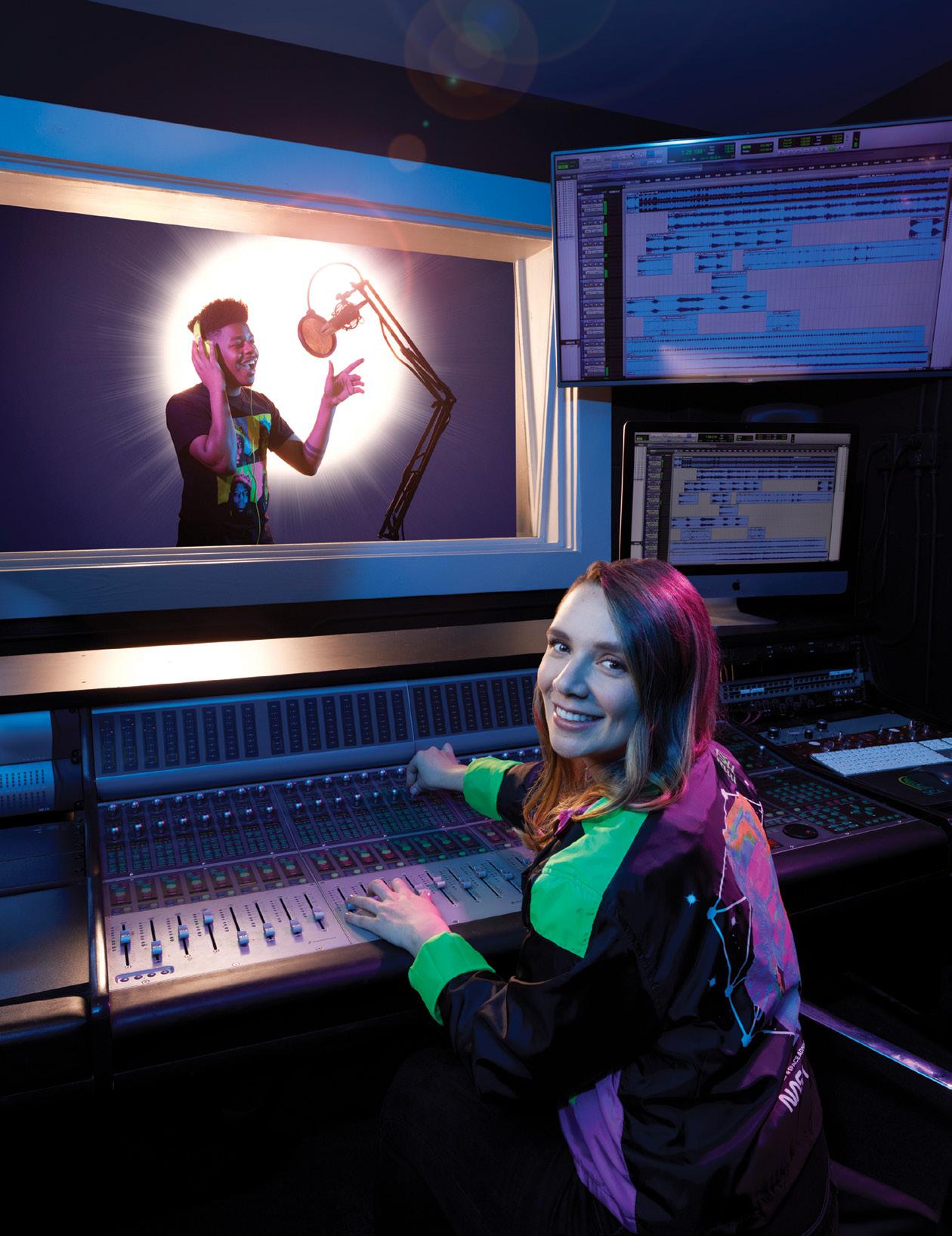





CREATIVE CAREERS
Theme park designer
Show producer
Show set designer
Attraction designer
Brand designer
Concept designer
Experience designer
Global event designer
Exhibitions/ museum designer
Production designer
When the world’s great amusement parks seek to adapt fan-favorite franchises into attractions or build centerpiece rides, they turn to themed entertainment designers to make fantasy into reality.
SCAD offers the world’s first M.F.A. in themed entertainment design.
Students in this program merge immersive reality, set design, live event production, and compelling storytelling to create memorable moments from the ground up. In VR-enabled projects like underwater adventure Search for the Gryphon and spaceflight simulator Destination Imagination, students harness this narrative prowess, design expertise, and technological savvy to create functional concepts for groundbreaking experiences.
In this first-of-its-kind program, students explore architecture, new media, film, live theater, and augmented and virtual reality as they design attractions, branded experiences, and resorts. During their studies, opportunities abound to take behind-the-scenes trips to Disney and Universal Studios theme parks in the U.S. to connect in-class practice to in-person performance. Beyond the classroom, students combine design principles with adaptive reuse in the the Disney Imaginations Design Competition, which SCAD student teams have won twice.
Through SCADpro, the university’s creative research and innovation design studio, themed entertainment design students have partnered with Hong Kong Disneyland to create immersive digital experiences in hotel rooms, with Chick-fil-A to modernize locations, and with Trane to design a branded exhibit in the company’s U.S. offices. SCAD alumni have added their expertise to major attractions like Star Wars: Galaxy’s Edge, Jurassic World’s VelociCoaster, Hagrid’s Magical Creatures Motorbike Adventure, and the upcoming Universal’s Epic Universe theme park.
SCAD GRAD EMPLOYERS
Walt Disney Imagineering
Universal Creative ITEC Entertainment
Falcon Creative Group Merlin Entertainments
Nickelodeon
Ghibli Studios
Royal Caribbean
Dollywood
Six Flags
SCAD user experience design students integrate art, technology, and human behavior to open new worlds of possibilities. As keen observers of human behavior, students are well-rounded researchers, effective programmers, and visionary designers.
CREATIVE CAREERS
UX strategist
UX researcher
Front-end developer
Interaction design director/consultant
Mobile application designer
Product designer/ researcher
UI/UX designer
UX design consultant Customer experience/service designer
Visual designer
Ever attuned to marketplace needs, the SCAD UX design program is focused on four foundational pillars: human behavior, technical proficiency, aesthetics, and collaboration. In their coursework, students learn the fundamentals of graphic design, industrial design, and interaction design, bolstered by classes in mathematics and programming, culminating in a strong studio experience. In UXDG 415 UX Design Studio II: The Complexity of Simplicity, students translate complex tasks and information to produce working prototypes of their designs and generate digital products that deliver meaningful and engaging user experiences.
UX designer, Amazon SCAD B.F.A., user experience (UX) design, 2021 South Jakarta, Indonesia
Developed in collaboration with Google, the SCAD user experience program prepares students to connect with industry titans in careers that transform the digital landscape. Through mentorships and collaborations with companies such as Google, Ford, Lucid Motors, 3M, Capital One, Facebook, Hewlett-Packard, The Home Depot, Instagram, Microsoft, and others, SCAD UX design students develop professional practices with real-world applications, from mobile devices and intelligent clothing to automobile interiors and health care informatics. Thanks to this hands-on learning experience, SCAD students have garnered recognition for their work as winners of UX Awards, Red Dot Communication Design Awards, European Product Design Awards, and Indigo Awards.
This degree program was developed in collaboration with Google.
UX design became more than my major. It became my family. My professors were always challenging me and helping refine my process and design techniques.
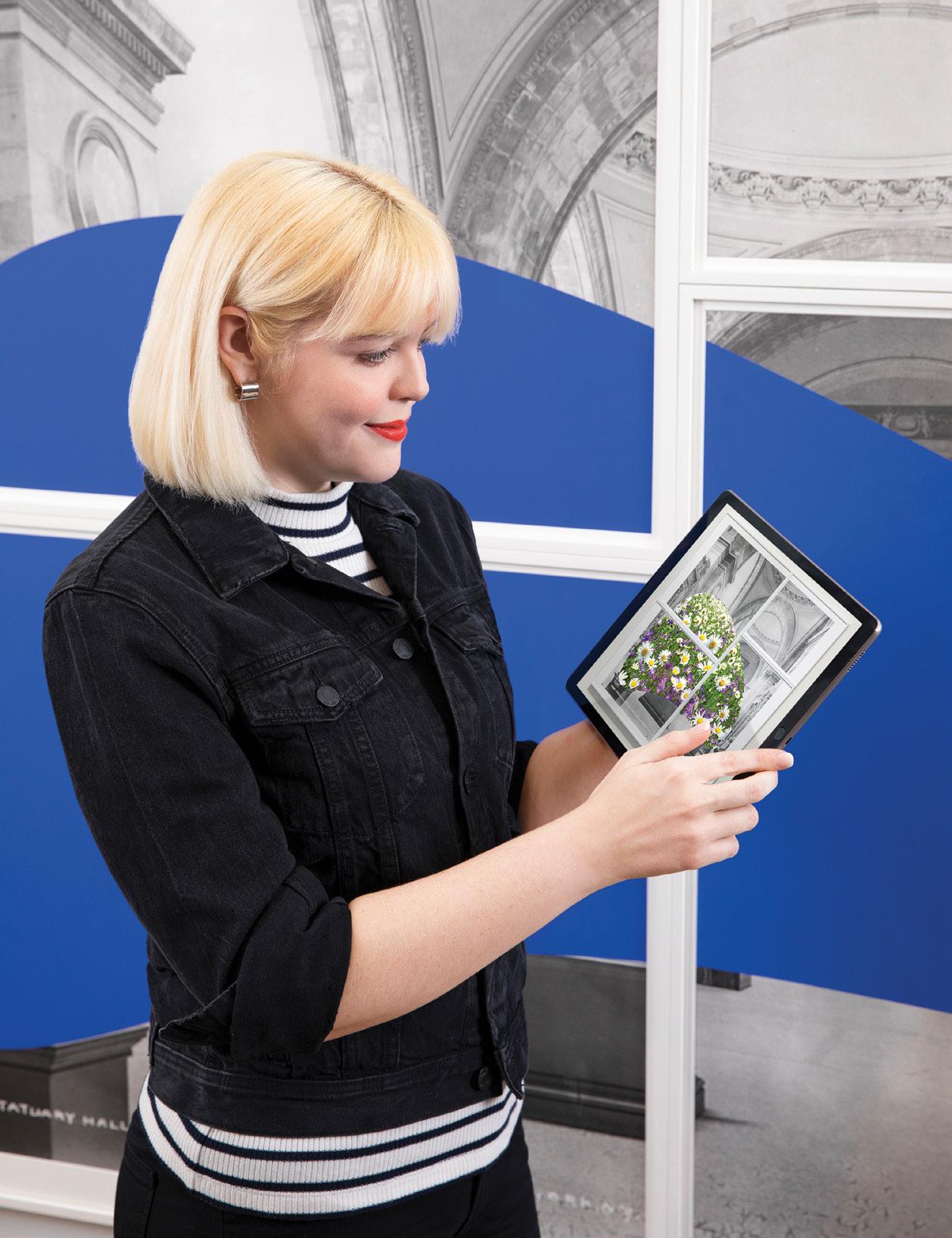
Bellevue, Washington
As a student, Angela Martin pitched SCADpro concepts for a middle school STEAM learning experience to Lenovo, which helped land her a job with the company. Now, her human-centered professional career has flourished: she’s a user experience designer at Lenovo; she earned a 2022 Software UX award on her UXD Software team; she serves as a SCAD mentor; and she’s co-lead of A Better Lenovo for Everyone, Lenovo’s disability advocacy group.

When I learned that SCAD had mentors from Google helping to develop the UX design curriculum with a focus on where traditional art and design intersects with technology, I knew SCAD was where I needed to be. Also, SCAD students invest much of their first two years into foundational arts and design skills, and many necessary creative thinking skills are developed in those courses. You won’t find many UX designers having taken a drawing course, but SCAD students are much better off for it.
SCAD’s collaborative spirit is foundational. Getting to practice crossdisciplinary collaboration was so important to my development into a young professional ready for a creative career. I participated in a SCADpro project with Lenovo, and following this 10-week collaboration, I was delighted to attend the final presentation at Lenovo’s headquarters in North Carolina with my team. Shortly after, I was invited to interview for an open position, and a few weeks later I signed with Lenovo for a job after graduation.
I was awarded the 2022 Software UX award on my team by my manager at Lenovo in recognition of my achievements and growth this past year. I am grateful to SCAD for teaching me the time-management skills needed to prioritize and accomplish all that I want in a workweek. SCAD grads are authentic, creative, fun, professional, and largely successful in ways that work for them. Future SCAD Bees should connect with the amazing people at SCAD who have helped so many others make their dreams a reality.
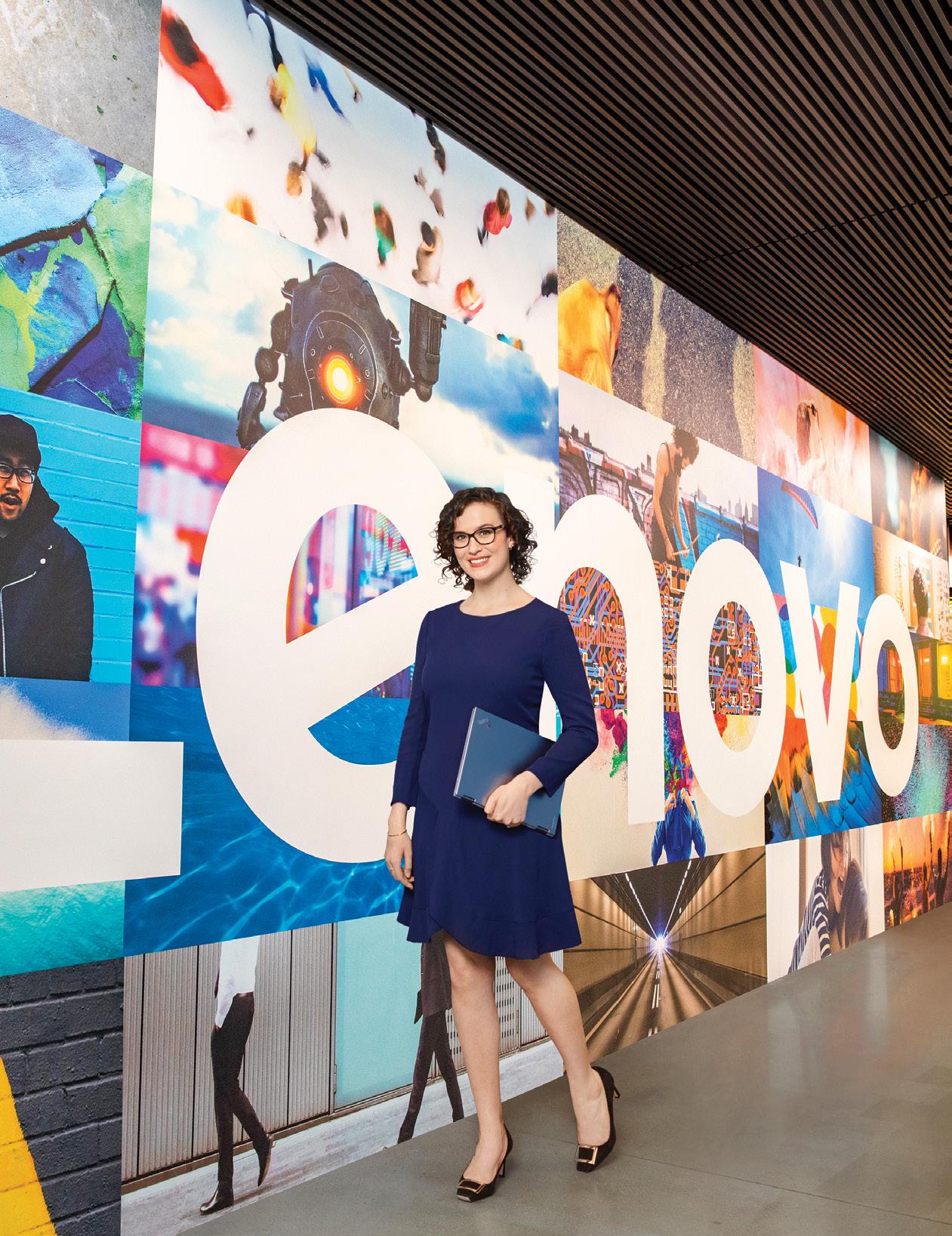

UX researcher
Hardware/software
UX researcher
Quantitative UX researcher
Qualitative UX researcher
CX/UX researcher
UX writer and researcher
UX product researcher
Senior UX researcher
Lead UX researcher
Principal product
UX researcher
User experience researchers know that design improves the lives of people who need it most — and that innovation doesn’t just begin with a good idea, it begins with research. From mega tech corporations like Google and Meta to the health care, finance, retail, and real estate industries, UX researchers are in-demand professionals who establish, drive, and evolve insights that inform the consumer experience. According to ZipRecruiter, there are more than 750,000 open UX researcher positions globally, while LinkedIn ranks it as one of the 25 fastest growing professions in the U.S.
Developed in collaboration with Google, SCAD offers the first and only B.F.A. in user experience research.
Instructed by faculty with experience at UX powerhouses like Samsung and mentored by design leaders from Google, SCAD students are prepared to lead design sprints and find tomorrow’s solutions to today’s challenges. At major corporations like Honeywell, Google, Edward Jones, and Monster, SCAD grads are already making an impact with their expertise and knowledge.
At the preeminent university for UX research, SCAD students learn to use analytics, consumer data, and behavioral insights to generate opportunities to improve services and products end-to-end. In IDUS 215 Contextual Research, students secure the exclusiveto-SCAD Lextant Design Research and Insight Translation certification, a value-added professional credential embedded in university coursework. In courses like RSCH 201 Data Mining Technology and MATH 280 Predictive Modeling and Analytics, students learn to unleash the power of predictive analytics and combine statistics, artificial intelligence, and machine learning to find patterns, relationships, and opportunities in large data sets.
As students deepen their understanding of UX design and research methods, they explore ethical responsibilities in RSCH 350 Research Ethics and Professional Practices and UXDG 380 Usability Testing: People vs. the World. Courses in information architecture and data visualization further advance students’ abilities to translate their research findings into compelling visual narratives. The B.F.A. program culminates in a capstone studio sequence where students generate original research and synthesize their findings into innovative solutions and actionable business strategies.
This degree program was developed in collaboration with Google.CREATIVE CAREERS
From showstopping entertainment to next-generation medical advancements, visual effects artists create complex, richly detailed digital worlds that catch major attention and impact bottom lines.
At SCAD, students in this highly acclaimed degree program build an extensive visual language that prepares them for a wide range of career paths. Through a foundation in fine arts courses, students learn to draw and design in the classical tradition before integrating those creative skills with leading-edge digital tools like Autodesk Maya, Foundry’s Nuke, SideFX Houdini, Unreal Engine, and more.
The SCAD visual effects program ranks among the top 10 in the world, according to The Hollywood Reporter.
Students also master practical hands-on visual effects techniques such as green screen and mixed-reality (XR) stage use, visual effects cinematography, 3D camera match moving, photorealistic lighting, compositing, shader writing, and dynamic simulations. Across locations, students work within environments that reflect the highest standards of digital entertainment production and often expand their studies through minors such as illustration for entertainment, storyboarding, and technical direction.
An extensive internship network, professional connections with top VFX houses, and SCADpro’s design partnerships offer students the opportunity for practical experience for a multitude of applications. Students worked with FOX Sports to conceptualize a 360-degree live-rendered virtual set for the 2022 FIFA World Cup in Qatar, collaborated with Hasbro to develop interior and exterior digital sets to promote franchises like Marvel, Star Wars, and Transformers, and produced an innovative game to help stroke survivors learn to walk and recover faster. These experiences prepare alumni to make crucial contributions on Academy Award-nominated films like Dune, Encanto, Avengers: Endgame, Da 5 Bloods, Mulan, Onward, Over the Moon, and Soul, and for Blizzard Entertainment, DreamWorks, EA, Industrial Light & Magic, Pixar, The Mill, and more.



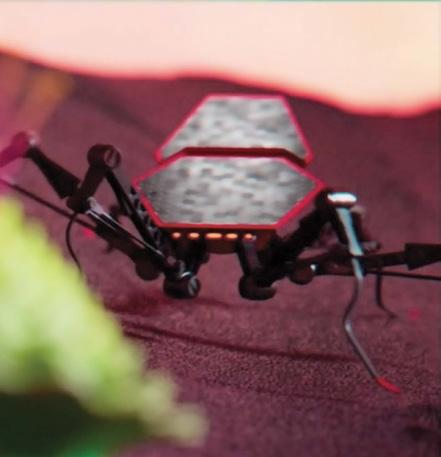
 Bioma, a short film by 2022 SCAD Excelsus Laureate Felipe Amaya Quintero (Bogotá, Colombia), depicts aliens and robots meeting on the barren surface of a planet’s moon.
Bioma, a short film by 2022 SCAD Excelsus Laureate Felipe Amaya Quintero (Bogotá, Colombia), depicts aliens and robots meeting on the barren surface of a planet’s moon.

Building big brands or penning a future bestselling novel? At SCAD, students master the written word in a comprehensive writing program that encompasses traditional and emerging media cover-to-cover.
The SCAD writing curriculum prepares students to write books and podcast scripts, author multimedia projects, and lead IP development, in addition to feature pieces, memoirs, and video essays. The program also explores nascent media posts for social networks (WRIT 210 Promotional Writing), pioneering immersive experiences (WRIT 235 Multi-platform and Immersive Storytelling), and buzzworthy branding and copywriting (WRIT 255 Problem Solving for Corporate and Brand Storytelling). Courses are led by accomplished SCAD faculty with bylines and credits at noteworthy publishing companies, including Simon & Schuster, Picador, Other Press, Anvil Press, National Geographic, Oxford American, Publishers Weekly, and Town & Country, as well as with studios such as Sony, Lionsgate, and Netflix.
Students amplify their portfolio with columns and broadcast blocks at award-winning student-run media organizations like District, The Connector, SCAN magazine, and SCAD Radio. Combined, these entities have won hundreds of awards from the Associated Collegiate Press, College Media Association, and the Society of Collegiate Journalists. Even before graduating, students find literary agents and secure book proposals and deals. Alumni have earned James Beard Awards and have authored articles and stories at the world’s foremost names in print and broadcast media as well as Fortune 500 companies and nonprofits. Much like their in-demand professors, SCAD students and alumni build an impressive oeuvre, with articles in Harper’s Bazaar, McSweeney’s Internet Tendency, The New Yorker, The New York Times, USA Today, The Washington Post, and others.
Every SCAD undergraduate student’s educational experience is anchored by SCAD Core, which includes rigorous courses in drawing and design that provide students with a studio experience that builds visual, conceptual, and creative abilities. In these courses, students gain a shared artistic vocabulary, examine and complete visual challenges, and research, conceptualize, and materialize creative solutions.
With the help of advisers, students choose elective courses based on specific foundation studies requirements for each discipline. Students pursuing degrees in illustration or interactive design and game development learn crucial skills like linear and atmospheric perspective to invent immersive and expressive environments. SCAD students with career interests in animation or fashion complete courses in life drawing and study the complexities and dynamics inherent to the human form. In DRAW 250 Digital Drawing, students move at the speed of innovation using state-of-the-art technology as they learn to create, render, and manipulate digital imagery. Students abroad at SCAD Lacoste have the opportunity to document their resplendent learning experience through DRAW 341 Travel Portfolio.
In addition to the expansive foundation studies curriculum, SCAD offers students a remarkable array of support and learning services to guide new students as they find their creative voice. The SCAD Drawing and Design Center conducts peer tutoring and workshops in person and online for students to explore and develop drawing techniques and design processes. First-year students have the opportunity to hear from students across disciplines in the lecture series Major Connections and Professional Tool Kit, which feature upper-level SCAD students and alumni who discuss how their current work is rooted in their foundation studies experience.
Students advance through foundation studies courses that move in the direction of their academic studies and professional aspirations. For example, in DSGN 115 Creative Thinking Strategies, students majoring in programs such as business of beauty and fragrance, fibers, and industrial design apply adaptive thinking and creative problem-solving skills to seek opportunities for change and innovation. In DRAW 206 Drawing for Storyboarding, animation and sequential art students learn fundamental skills for storyboarding for a variety of motion-based media and demonstrate a command for this in-demand visual language. In DRAW 115 Graphics for the Building Arts, architecture, interior design, and preservation design students learn graphic representation techniques such as orthographic, paraline, and perspective drawing skills.
Foundation studies faculty members hold terminal degrees and high acclaim in their professions. They include a U.S. Artists Fellow, a MacDowell Fellow, a Clio Award winner, a Kennedy Center Faculty Fellow, a Ford Foundation Grant recipient, and Fulbright scholars. Their work has been commissioned and sponsored by governments and institutions around the globe and exhibited at countless galleries, museums, and art fairs globally.
CEO and lead designer, Erupt Art SCAD Atlanta Salutatorian, SCAD B.F.A., advertising, 2020 Lagos, Nigeria
My foundation studies professor was there to help us grow. The way we were graded on growth and development was different from anything I had experienced before. I felt cared for and seen as an individual.
SCAD is home to the only dedicated School of Foundation Studies in the U.S.Golden Freedom Isabella Jacobo Houston, Texas


SCAD students complete SCAD Core to gain the strong intellectual foundation and vast knowledge essential to thriving careers. In this academically rigorous program, students learn to investigate, interpret, and defend new ideas, and are empowered to view the world critically and inquisitively.
In general education courses that explore the art, literature, and culture of the Harlem Renaissance or contemporary Latin America, students engage mindfully and professionally within diverse and inclusive communities. Courses that explore business fundamentals, economic principles, and strategic decision making instill key management and analysis skills necessary to launch successful businesses.
All undergraduate students complete a minimum of 55 quarter hours (or at least 11 classes) of general education coursework. In this sequence, students complete at least one course in three categories—humanities/fine arts, social/behavioral sciences, and mathematics/natural sciences.
General education courses range from the investigation of visual expression from the Paleolithic era to the Medieval period in CTXT 121 Visual Culture in Context: Pre-Modern Global Perspectives, exploration of the structure of 2D and 3D space and spatial relationships in MATH 140 The Geometry of Physical Space, and an examination of human behavior and psychological processes in PSYC 101 Introduction to Psychology. Students should consult their programs of study for specific general education requirements.
Students in general education courses complement their studies with a suite of learning resources and events available to the entire university community. Students receive learning assistance via the SCAD academic resource center, and SCADamp coaches prepare students for job interviews, thesis presentations, SCADpro pitches, and more in classroom sessions as part of the SCAD Core course DIGI 130 Digital Communication.
Students will utilize a range of quali- Students will employ specialized tative and/or quantitative methods terminology and persuasive commuto develop foundations of inquiry, nication practices to convey ideas conduct effective research, analyze professionally based on an evaluation information, and justify proposed of diverse audiences and circumsolutions. stances.
Students will effectively and ethiStudents will investigate and interpret cally communicate ideas and identity, the historical, social, political, and interpret information, construct economic contexts surrounding visual knowledge, and design content in a and cultural productions to determine digitally connected world. meaning and significance.
As future leaders of creative profesStudents will actively engage with sions, students will demonstrate work cultural theories, perspectives, and and behavior that reflect ethical and ideas to enrich understanding of their professional standards within a range roles within diverse and inclusive of contexts. communities.
At SCAD, minors are avenues for discovery. They invite students to think about the creative process in new ways while illuminating future possibilities. Minors enrich the career preparation that happens every day at SCAD, enhancing students’ education across a range of disciplines and complementing major programs of study. For a full list of minors, visit scad.edu/minors
Accessory design
Acting for the camera
Advertising and branding
Advertising art direction
Advertising copywriting
Advertising photography
Animated illustration and publication design
Animation
Architectural history
Architecture
Art history
Bridal and eveningwear design
Business collaboration
Business management and entrepreneurship
Casting
Character technical direction
Cinema studies
Concept art for games
Concept design for animation and games
Costume design
Creative writing
Denimwear design
Design for 3D action figures
Design for sustainability
Dramatic writing
Drawing
Electronic design
Equestrian studies
Fashion
Fashion journalism
Fashion marketing and management
Fashion photography
Fibers
Film and television
Fragrance marketing and management
Furniture design
Game UX
Gender studies
Graphic design
Illustration for entertainment
Illustration for surface design
Inclusive fashion design
Industrial design
Interactive design and game development
Interior design
Jewelry
Kinetic design
Language and cultural studies
Marine design
Marketing for mobile and interactive environments
Menswear
Mobile and interactive design
Motion media design
Museum studies
Music production
Package design
Performing arts
Photography
Preservation design
Producing for film and media
Production design
Scientific illustration
Sequential art
Service design
Sneaker design
Social strategy and management
Sound editing
Storyboarding
Technical direction
Themed entertainment design
User experience (UX) design
Visual effects
Vocal performance
Writing
SCAD graduates enter a cross-disciplinary world where the ability to adapt skills has never been more important for professional success. SCAD facilitates professional certifications in addition to a SCAD degree. These certifications are an added value to award-winning degree programs and are designed to augment professional credentials and propel SCAD graduates to the top of their fields.
Adobe® Certified Associate (ACA) in Graphic Design/Illustration: Illustrator
Adobe® Certified Associate (ACA) in Multiplatform Animation: Animate CC
Adobe® Certified Associate (ACA) in Print/Digital Media Communication: InDesign
Adobe® Certified Associate (ACA) in Video Communication: Premiere Pro
Adobe® Certified Associate (ACA) in Visual Communication: Photoshop
Adobe® Certified Associate (ACA) in Visual Effects/Motion Graphics: After Effects CC
Audiokinetic®/CRAS: Wwise® 101/110 Certifications
Autodesk® Building Performance Analysis (BPA) Certification
AVID Certified Operator: Pro Tools/Post
AVID Certified User: Media Composer
Capture One Digital Assistant (CODA)
Certiport ACA Video Design Specialist CC
Cradle to Cradle Certified™ Catalyst
Cradle to Cradle Certified™ Product
Cradle to Cradle Certified™ Products for the Circular Economy
ICAA Workshop in Classical Architectural Design
Lextant Design Research and Insight Translation
Mediabistro® Digital Marketing Bootcamp Certificate of Completion
NCI Charrette System™ Certificate Training
NCIDQ (IDFX Fundamentals, Part I of III, Student Portion)
NCIDQ Certification
ProSource Wholesale® Kitchen Certificate
Rhinoceros® 3D Modeling/Level 1 Certification
SAFD Actor Combatant Certification
U.S. Center for SafeSport/USEF: SafeSport Training Certificate of Completion
USGBC LEED AP ID+C (Interior Design + Construction)
USGBC LEED Green Associate (LEED GA)
Wellness Within Your Walls® (WWYW) Certification
Tuition is based on hours of credit attempted regardless of course type or delivery mode (on-ground or online)
SCAD Atlanta, SCAD Savannah, SCAD Lacoste, SCADnow annual tuition
(based on three five-credit courses per quarter enrollment for three quarters)
Quarterly
Full-time
SCAD Atlanta, SCAD Savannah, SCAD Lacoste, SCADnow annual tuition
(based on three five-credit courses per quarter enrollment for three quarters)
Quarterly tuition
Full-time student, three courses per quarter
Online application fee (nonrefundable) US$100
One-time enrollment fee for degree-seeking students (nonrefundable after due date) US$500
Housing reservation fee (nonrefundable) US$500
Various housing styles, sizes, and arrangements are available The average annual cost of on-campus housing is US$11,849 For specific information, visit scad.edu/life/residence-life
Meal Plan
Quarterly meal plan US$1,960
(Additional options available to students upon request )
Undergraduate and graduate tuition
Levels I, II, III, and IV (20 hours/week) US$3,248
Level V (15 hours/week)* US$2,436
Level VI for graduate students (15 hours/week)* US$2,436
Level VI for undergraduate students (10 hours/week)** US$1,624
Learning English for Academic Purposes (LEAP) (Five-week summer program, 10 hours/week) US$812
* In addition to their ESL coursework, students will take a studio course and be charged the additional associated amount
** In addition to their ESL coursework, students will take one studio course and ENGL 123 and be charged the additional associated amount
Application fee
US$100
On-campus participation fee ........................................................................
US$6,120
Tuition at SCAD Lacoste is the same as the SCAD locations in Atlanta and Savannah Program fee (includes room, meals, site visit fees)
US$6,533

Schedule a tour to learn more about all the university has to offer. Come to Atlanta, Lacoste, or Savannah, or visit virtually with a daily tour, and find your calling at The University for Creative Careers. scad.edu/visit

At SCAD Days, explore academic buildings and residence halls, get to know other applicants, talk with professors, apply for admission, and meet with advisers. SCAD Days also are offered virtually. At Spotlight Days, you can engage in hands-on workshops or experience the university’s premier showcases of art, fashion, film, and more. scad.edu/scadday
An immersive 4D experience, SCADstory carries guests on an inspiring journey through SCAD history, across four decades of beauty, design, and invention. Book your tour today and share your #SCADstory. scadstory.com
Attend a SCAD overview presentation near you to learn more about university locations, programs of study, admission guidelines, and design career options. scad.edu/yourarea
SCAD offers professional development opportunities within an inspiring community of artists, designers, and faculty members. scad.edu/educator
Chat online with admission staff and representatives about all things SCAD. scad.edu/admission
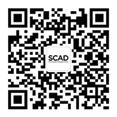
Throughout the year, the university offers enriching courses and workshops through SCAD Summer Seminars, SCAD Rising Star, and the online SCADnow Pre-College Programs. scad.edu/summer
* At the time of admission, up to five additional graduate-level intensive DIGI 130
—
—
—
Communication courses may be assigned, bringing the student's required course of study
to a total of 50 to 70 hours.
Design
ACCE 362 Handbag Design I: Introduction to Design and Construction
ACCE 364 Footwear Design I: Introduction to Design and Construction
ACCE 372 Handbag Design II: Advanced Patternmaking and Design
Select one of these four options:
FIBR 704 Fibers Studio I: Discovery
JEWL 710 Graduate Studio I: Mastery in Techniques
FIBR 720 Textile Innovation I: 3D Digital Structures Technique
ACCE 374 Footwear Design II: Advanced Patternmaking and Design
IDUS 723 Digital 3D Modeling and Rendering
ACCE 711 Methodologies in Accessory Design Technique
ACCE 415 Senior Collection I: Research and Design Development
ACCE 715 Presentation Methods I: Portfolio Development
ACCE 720 Presentation Methods II: Marketing a Personal
ACCE 420 Senior Collection II: 3D Prototype and Development Aesthetic
ACCE 422 Accessory Portfolio Presentation
ACCE 430 Senior Collection III: Final Collection
Select one of these three options:
ACCE 479 Undergraduate Internship
— 500-level SCADpro elective
ACCE 725 Computer-aided Design for Accessories
ACCE 730 Accessory Studio I: Collection Conceptualization
ACCE 740 Accessory Studio II: Production Planning and Execution
*
90
HOURS
LXMT 742 Advertising Luxury
ACCE 750 Directed Studies I: Thesis Collection Research and
— Business-focused elective Development
ACCE 765 Directed Studies II: Thesis Collection Realization
— ACCE, FASH, FASM, FIBR, IDUS, JEWL, SFAS, or SNKR
ACCE 779 Graduate Internship elective
Additional electives
— Free elective
— Free elective
— Free elective
15 HOURS
FASH 782 Fashion Theory
ACCE 790 Accessory Design M.F.A. Thesis
Select four of these five options:
— 500-level SCADpro elective
— 500-to 700-level elective
— 500-to 700-level elective
— 500-to 700-level elective
— 500-to 700-level elective
* At the time of admission, up to five additional graduate-level intensive courses may be assigned, bringing the student's required course of study to a total of 95 to 115 hours.
150 Introduction to Advertising: Concept to Content 180
ADBR 205 Creative Production for Brand Content HOURS Select one of these two options:
GRDS 205 Typography I: Anatomy, Form, and Space
ADBR 252 Art Direction: Visual Brand Storytelling
ADBR 254 Copywriting: Inventing the Brand Personality
ADBR 255 Brand Experiences in Interactive Environments
Select one of these two options:
ADBR 312 Art Direction: Typography and Persuasive Design
ADBR 314 Copywriting: Brand Voice Across Platforms
Select one of these three options:
ADBR 479 Undergraduate Internship
— 500-level SCADpro elective
— Business-focused elective
Additional electives
— Free elective
— Free elective
— Free elective
— Free elective
— Free elective
25 HOURS
ADBR 311 Building the Brand Strategy
ADBR 341 Designing the Brand
ADBR 441 Creating Contagion: From Experience to Entertainment
ADBR 461 Career Strategies for Advertising
ADBR 480 Collaborative Studio: Creating the Brand Solution
Select one of these three options:
ADBR 479 Undergraduate Internship
— 500-level SCADpro elective
— Business-focused elective
Select one concentration to complete the major curriculum:
Art direction
ADBR 312 Art Direction: Typography and Persuasive Design
Select two of these four options:
ADBR 332 Art Direction: Advanced Visual Integration
ADBR 352 Art Direction: Branding Through Photography
ADBR 372 Art Direction: Brand Films and Social Content
ADBR 392 Art Direction: Stop Motion for Brand Content
Copywriting
ADBR 314 Copywriting: Brand Voice Across Platforms
Select two of these three options:
ADBR 334 Copywriting: Immersive Brand Narratives
ADBR 354 Copywriting: Long Form Content
ADBR 374 Copywriting: Brand Films and Social Content
Creative technology
Select one of these three options:
SERV 312 Prototyping Experiences
UXDG 310 User Experience Design Methods
GRDS 387 Interface Design
ADBR 335 Creative Technology: Engineering Brand Experiences
ADBR 395 Creative Technology: Brand Think Tank for Product Innovation
Additional electives
— Free elective
— Free elective
10 HOURS
ADVERTISING
ADVE 705 Typography for Advertising Designers
ADVE 709 Advertising Studio I: Creative Strategies
ADVE 715 Digital Production Strategies for Advertising
ADVE 719 Advertising Studio II: Branding Solutions
ADVE 729 Art Direction
ADVE 731 Creative Copywriting for Advertising
45* HOURS ADVE 749 Advertising M.A. Final Project
Select one of these three options:
ADVE 779 Graduate Internship
— 500-level SCADpro elective
— 500-to 700-level elective
— 700-level ARTH elective
* At the time of admission, up to five additional graduate-level intensive
ADVERTISING
ADVE 705 Typography for Advertising Designers
ADVE 709 Advertising Studio I: Creative Strategies
IXDS 712 Dynamic Web Development
ADVE 715 Digital Production Strategies for Advertising
ADVE 719 Advertising Studio II: Branding Solutions
ADVE 725 Digital Media for Advertising
ADVE 729 Art Direction
ADVE 731 Creative Copywriting for Advertising
ADVE 751 Advertising for Alternative Media
ADVE 779 Graduate Internship
90* ADVE 791 Advertising M.F.A. Thesis
HOURS ADVE 792 Advertising M.F.A. Visual Thesis
Select four of these five options:
— 500-level SCADpro elective courses may be assigned, bringing the student's required course of study
— 500-to 700-level elective to a total of 50 to 70 hours.
— 500-to 700-level elective
— 500-to 700-level elective
— 500-to 700-level elective
— 700-level ARTH elective
— 700-level ARTH elective
* At the time of admission, up to five additional graduate-level intensive courses may be assigned, bringing the student's required course of study to a total of 95 to 115 hours.
DSGN
DRAW
—
—
—
—
—
—
—
ANIMATION
ARTH 702 Art Criticism
ANIM 705 Animation Aesthetics and Practice
ANIM 709 Computer-generated Modeling and Design
ANIM 713 Drawing in Motion
Select one of these two options:
ANIM 714 3D Cartoon Character Animation
ANIM 715 Character Look Development
Select one of these two options:
45* ANIM 724 3D Naturalistic Character Animation
HOURS ANIM 725 Environment Look Development
ANIM 737 Collaborative Project
ANIM 748 Animation M.A. Final Project
ANIMATION
ARTH 702 Art Criticism
ANIM 705 Animation Aesthetics and Practice
ANIM 709 Computer-generated Modeling and Design
ANIM 713 Drawing in Motion
MOME 719 Media Theory and Application
ANIM 721 Storyboarding and Previsualization
ANIM 737 Collaborative Project
ANIM 753 Animation M.F.A. Thesis Exploration and Research
ANIM 775 Animation M.F.A. Thesis Visual Component Production
ANIM 779 Graduate Internship
ANIM 790 Animation M.F.A. Thesis Completion
Select one of these two options:
90* — 500-level SCADpro elective
HOURS — 700-level ANIM, DWRI, FILM, GAME, ITGM, IXDS, Select one of these three options: MOME, PERF, PROD, SANM, SFLM, SNDS, STEC, ANIM 779 Graduate Internship THED, or VSFX elective
— 500-level SCADpro elective
— 700-level ANIM, DWRI, FILM, GAME, ITGM, IXDS,
— 700-level ANIM, DWRI, FILM, GAME, ITGM, IXDS, MOME, PERF, PROD, SANM, SFLM, SNDS, STEC, MOME, PERF, PROD, SANM, SFLM, SNDS, STEC, THED, or VSFX elective THED, or VSFX elective
— 700-level ANIM, DWRI, FILM, GAME, ITGM, IXDS,
* At the time of admission, up to five additional graduate-level intensive MOME, PERF, PROD, SANM, SFLM, SNDS, STEC, courses may be assigned, bringing the student's required course of study to a total of 50 to 70 hours.
THED, or VSFX elective
— 500- to 700-level elective
— 500- to 700-level elective
— 500- to 700-level elective
— 500- to 700-level elective
* At the time of admission, up to five additional graduate-level intensive courses may be assigned, bringing the student's required course of study to a total of 95 to 115 hours.
B.F.A. DEGREE GREE S
ARCHITECTURAL HISTORY
Foundation studies
DRAW 100 Drawing I: Form and Space
DSGN 100 Design I: Elements and Organization
DRAW 101 Drawing II: Composition and Media
M.F.A. DEGREE GREE S
ARCHITECTURAL HISTORY
30 HOURS ARLH 700 Research Methods in Architectural History
ARLH 705 Architectural History Methodology and Historiography
Evaluating pre-Modern traditions
Select one of these four options:
DSGN 101 Color: Theory and Application ARLH 723 Contextualizing Medieval Architecture
DSGN 102 Design II: 3D Form in Space
DRAW 115 Graphics for the Building Arts
General education
COMM 105 Speaking of Ideas
BUSI 110 Business I: Fundamentals
ARLH 724 Contextualizing Ancient Architecture
ARLH 726 Art and Architecture of the Gothic Period
65 HOURS ARLH 753 Architecture and the History of Provence
Analyzing modernity
Select one of these two options:
CTXT 121 Visual Culture in Context: Pre-Modern Global Perspectives ARLH 731 Economies and Building Culture
CTXT 122 Visual Culture in Context: Making Modernities ARLH 759 Power and the Built Environment
ENGL 123 Ink to Ideas: Critical Concepts in Literature and Writing
DIGI 130 Digital Communication
BUSI 220 Business II: Economic Principles
Investigation of the non-Western world
Select one of these three options:
— ENGL elective ARLH 743 Analyzing Architecture and Art of the Islamic World
— Foreign language I * ARLH 744 Traditional Arts and Architecture of the African Continent
— Foreign language II * ARLH 763 Traditions in Global Vernacular Architecture
— Foreign language III * 90 Analysis of the American hemisphere
— General education elective HOURS Select one of these three options:
— Mathematics/natural sciences elective ARLH 761 Analyzing American Cultural Landscapes
Major curriculum
Examining modernity
65 HOURS ARLH 772 Analyzing American Architecture ARLH 775 Savannah: Architecture and Urban History
180 — ARLH Modern elective ARLH 770 Documenting and Interpreting the Built Environment
HOURS — ARLH Modern elective
Discovering the non-Western world
— ARLH Non-Western elective
— ARLH Non-Western elective
Exploring pre-Modern traditions
— ARLH Ancient/Medieval elective
— ARLH Ancient/Medieval elective
Investigating the American hemisphere
— ARLH American elective
— ARLH American elective
— 200-to 400-level ARLH or ARTH elective
— 300-to 400-level ARLH elective
ARLH 450 Architectural History Research Methods
ARLH 499 Architectural History B.F.A. Thesis
Select one of these three options:
ARLH 479 Undergraduate Internship
— 500-level SCADpro elective
ARLH 779 Graduate Internship
ARLH 779 Graduate Internship
ARLH 790 Architectural History M.F.A. Thesis
Select one of these two options:
— 500-level SCADpro elective
— 700-level ARLH elective
— 700-level ARLH elective
— 700-level ARLH seminar
— 700-level ARLH or ARTH elective
— Directed elective *
— Diversified elective †
— 500-to 700-level studio elective
— 500-to 700-level studio elective
* Select one of these eight options: ELDS 704 Electronic Design, PRES 710
Studio I: Preservation Through Public Policy, URBA 725 Urban Ecology, INDS
726 Environmental Psychology for Interior Design, FURN 732 Evolution of Furniture Design, PRES 745 Digital Innovations in Preservation Design, ARCH
760 Sustainable Design, or ARCH 769 Hybrid Media Presentation in Architecture.
— Business-focused elective
20 HOURS DMGT 706 Idea Visualization, MOME 709 Motion Media Cinematography
† Select one of these nine options: PHOT 502 Photographic Technique and Signification, ITGM 705 Interactive and Game Design: Research and Practice, Additional electives
— Free elective and Editing, SEQA 715 Environment as Character, GDVX 718 Contemporary
— Free elective Media Production Techniques, THED 720 Themed Entertainment Industry,
— Free elective COMM 740 Advanced Techniques for Professional Presentations, or WRIT
— Free elective 753 Freelance Writing for Publication.
* To satisfy the foreign language requirement, all courses must be in the same language.
B.F.A. DEGREE GREE S
DSGN 100 Design I: Elements and Organization Select one of these five options:
DSGN 102 Design II: 3D Form in Space ARCH 714
Parametric Design and Generative DRAW 115 Graphics for the Building Arts
DSGN 223 Architectural Fundamentals Studio I: Form, Space,
736 Complex Structural Applications and Order ELDS 745 Digital Prototyping and Fabrication Methods for
224 Architectural Fundamentals Studio II: Site as Building Design Design Generator ARCH 760 Sustainable Design
DSGN 225 Architectural Fundamentals Studio III: Spatial
775 Simulation, Animation, and Visualization in the Relationships and Human Response Building Arts
CTXT 121 Visual Culture in Context: Pre-Modern Global Perspectives ARCH 719
CTXT 122 Visual Culture in Context: Making Modernities ARCH 727 Graduate Architecture Studio II: Comprehensive ENGL 123 Ink to Ideas: Critical Concepts in Literature and Writing
and Programming
Digital Applications for Practice and MATH 201 Applied Mathematics 90
PHYS 201 Applied Physics
— General education elective * Detailing and Systems
— General education elective *
— General education elective *
— Social/behavioral sciences elective
ARCH 737 Graduate Architecture Studio III: Comprehensive
ARCH 745 Graduate Seminar in Architecture
ARCH 747 Graduate Architecture Studio IV: Interdisciplinary Focus
Select one of these two options:
ARCH 765 Emerging Urban Issues
ARCH 101 Introduction to Architecture ARCH 779 Graduate Internship
ARLH 206 Modern Architecture Before 1900
ARLH 208 Modern Architecture After 1900 180 ARCH 775 Global Architectural Practice
HOURS ARLH 211 Survey of World Architecture and Urbanism
ARCH 798 Graduate Architecture Studio: Thesis I -Developing
ELDS 225 Electronic Design I: Digital Communication for the Concept, Context, and Program Building Arts
ARCH 799 Graduate Architecture Studio: Thesis II -Design
ARCH 241 Construction Technology I: Building Materials and Detailing and Final Exposition
Assemblies
ARCH 301 Architecture Design Studio I: Human-centered
Design †
ARCH 302 Architecture Design Studio II: Site and Environmental
— 700-level focused elective ‡
— 500-to 700-level diversified elective §
— 500-to 700-level PRES or URBA elective #
— 500-to 700-level elective Context †
ARCH 303 Architecture Design Studio III: Structural
— 500-to 700-level elective
* Courses with the ARLH subject code will not satisfy these general education Applications † requirements.
ARCH 319 Structures: General Structure
ARCH 341 Construction Technology II: Building Systems
† Minimum grade of "C" is required. and Technologies
‡ The focused elective is assigned by faculty and must be taken during the same
ARCH 361 Environmental Control I: Energy, Climate, and quarter as ARCH 747 Graduate Architecture Studio IV: Interdisciplinary Focus. Human Comfort
§ Courses with subject codes other than ARCH, ARLH, ELDS, INDS, PRES, ARCH 404 Architecture Design Studio IV: Urban Context † SUST, or URBA meet these requirements.
ARCH 405 Architecture Design Studio V: Capstone I - Research and Schematic Design †
# The following courses will also satisfy this elective: ARCH 721 Landscape
ARCH 406 Architecture Design Studio VI: Capstone II - Design for Urban Design or ARCH 765 Emerging Urban Issues.
Comprehensive Design Development †
¶ At the time of admission, up to five additional graduate-level intensive ARCH 461 Environmental Control II: Mechanical, Lighting, courses may be assigned, bringing the student's required course of study Acoustics, and Life Safety Systems to a total of 95 to 115 hours.
Additional electives 10 HOURS
Select two of these four options:
ARCH 479 Undergraduate Internship
— 500-level SCADpro elective
— Free elective
— Free elective
—
ENGL 123 Ink to Ideas: Critical Concepts in Literature and Writing
DIGI 130 Digital Communication
—
ARTH elective * BUSI 220 Business II: Economic Principles
— ENGL elective
—
—
— ENGL elective * Electives must be selected from at least three out of four concentrations:
— Foreign language I * ancient/medieval, early modern, modern, contemporary.
— Foreign language II *
— Foreign language III *
— General education elective
— General education elective
— Mathematics/natural sciences elective
Major curriculum
180 CTXT 121 Visual Culture in Context: Pre-Modern Global
HOURS Perspectives
CTXT 122 Visual Culture in Context: Making Modernities
ARTH 400 Methods of Art History
ARTH 499 Art History B.F.A. Thesis
— 200-level ARTH elective †
— 300-level ARTH elective †
— 300-to 400-level ARTH elective †
— 300-to 400-level ARTH elective †
— 300-to 400-level ARTH elective †
— 400-level ARTH elective †
— 400-level ARTH elective †
— 400-level ARTH elective †
Select one of these three options:
ARTH 479 Undergraduate Internship
— 500-level SCADpro elective
— Business-focused elective
Additional electives
— Free elective
— Free elective
— Free elective
— Free elective
— Free elective
65 HOURS
25 HOURS
* To satisfy the foreign language requirement, all courses must be in the same language.
† Electives must be distributed in four out of five concentrations: ancient/ medieval, early modern, modern, contemporary, non-Western. One elective must be in non-Western. Two electives may be architectural history courses.
BUSI
BUSI 330 Business III: Strategy and Decision-making
BEAU 210 Beauty and Fragrance Through the Ages
FASM 210 Digital Presentation Techniques
180 BEAU 220 Product Design for Customer Experience
HOURS
FASM 220 Fashion Merchandising, Planning, and Control
FASM 245 Retail Buying Simulation
FASM 310 Private Label Product Development
FASM 311 Visual Communication for Consumer Engagement
BEAU 320 Beauty and Fragrance Marketing and Management
BEAU 330 Beauty and Fragrance New Product Launch
BEAU 350 Brand Management for Global Markets
FASM 410 Retail Management
FASM 415 Future of Shopping: Retail Innovation for Customer Empowerment
BEAU 420 Leadership, Ethics, and Infuence
BEAU 430 Collection I: Business Framework and Model
BEAU 440 Collection II: Branding and Launch
Select one of these three options:
BEAU 479 Undergraduate Internship
— 500-level SCADpro elective
— Business-focused elective
— ADBR, BEAU, BUSI, FASH, FASM, GRDS, MOME, SBIZ, SERV, or SFAS elective
Additional electives 10 HOURS
— Free elective
— Free elective
*
M.A. DEGREE GREE S n
DESIGN FOR SUSTAINABILITY
SUST 704 Applied Theories in Sustainability
SUST 708 Principles of Sustainable Materials
IDUS 711 Methods of Contextual Research
SUST 713 Innovation in Sustainable Branding
SUST 739 Biomimicry Methodology
45* DMGT 740 Sustainable Practices in Design
HOURS
SUST 743 Sustainable Living Laboratory
SUST 748 Design for Sustainability M.A. Final Project
Select one of these three options:
SUST 779 Graduate Internship
— 500-level SCADpro elective
— 500-to 700-level elective
M.A. DEGREE GREE S n DESIGN MANAGEMENT
DMGT 702 History and Interpretation of Innovation
SDES 704 Applied Theory in Design
DMGT 706 Idea Visualization
BUSI 710 Financial Reporting and Analysis
IDUS 711 Methods of Contextual Research
DMGT 720 Design Innovation Development and Marketing
45* Strategies
HOURS
DMGT 732 Facilitating Creative Thinking
DMGT 748 Design Management M.A. Final Project
Select one of these three options:
DMGT 779 Graduate Internship
— 500-level SCADpro elective
— 500-to 700-level elective
* At the time of admission, up to five additional graduate-level intensive courses may be assigned, bringing the student's required course of study to a total
* At the time of admission, up to five additional graduate-level intensive courses of 50 to 70 hours. may be assigned, bringing the student's required course of study to a total of 50 to 70 hours.
M.F.A. DEGREE GREE S n
M.F.A. DEGREE GREE S
90*
Design Organizations Planning and Research
SUST 792 Design for Sustainability M.F.A. Thesis II:
HOURS
DMGT 757 M.F.A. Thesis Research, Discovery, Insight
DMGT 779 Graduate Internship Design Execution
Select two of these three options:
— 500-level SCADpro elective
— 500-to 700-level elective
— 500-to 700-level elective
Select one concentration to complete the program of study:
HOURS Built environment
PRES 701 Practicing Preservation in a Global Context
DMGT 783 Design Futures: Trends, Foresight, and Intuition
DMGT 790 Design Management M.F.A. Thesis
Select four of these five options:
— 500-level SCADpro elective
— 500-to 700-level elective
— 500-to 700-level elective
— 500-to 700-level elective
— 500-to 700-level elective
* At the time of admission, up to five additional graduate-level intensive courses
INDS 721 Emerging Interior Materials may be assigned, bringing the student's required course of study to a total
URBA 725 Urban Ecology of 95 to 115 hours.
ARCH 760 Sustainable Design
Management
SERV 700 Service Design: A Systemic Perspective
DMGT 710 Design, Chaos, and Complexity
DMGT 732 Facilitating Creative Thinking
DMGT 783 Design Futures: Trends, Foresight, and Intuition
Packaging and print media
GDVX 702 Ideation Models and Process
GDVX 734 Typographic Voice and Visual Narrative
GDVX 742 Visual Analysis of Static Content
GDVX 754 Curated Narrative for Dynamic Content
Products
IDUS 713 Industrial Design Studio I: Discovery to Design Solutions
DMGT 720 Design Innovation Development and Marketing Strategies
IDUS 733 Entrepreneurship for Designers
DMGT 783 Design Futures: Trends, Foresight, and Intuition
* At the time of admission, up to five additional graduate-level intensive courses may be assigned, bringing the student's required course of study to a total of 95 to 115 hours.
Storytelling: Writing for Virtual Reality CTXT 122 Visual Culture in Context: Making Modernities
123 Ink to Ideas: Critical Concepts in Literature and Writing
FILM 100 Digital Film Production: Story to Screen
FILM 115 Preproduction: From Concept to Set
DWRI 106 Introduction to Screenwriting
Select one of these two options:
PERF 170 Truth in Acting: The Methods
PERF 199 Acting for the Camera: Fundamentals
Select one of these two options:
WRIT 178 The Short Story
PERF 201 Survey of Performance
180 HOURS DWRI 237 Improvisation for Writers
DWRI 272 Introduction to Playwriting
DWRI 305 Script Analysis for Film and Television
DWRI 310 Survey of American Television
FILM 315 Feature Film Screenwriting: Outline and Development
DWRI 355 Creating Narrative Content for Online, Immersive, and Emerging Platforms
Select one of these two options:
FILM 384 Writing the Television Comedy Spec Script
FILM 388 Writing the Television Drama Spec Script
FILM 415 Feature Film Screenwriting: Completion and Revision
Select one of these two options:
FILM 434 Writing the Television Comedy Pilot Script
FILM 438 Writing the Television Drama Pilot Script
DWRI 495 Dramatic Writing Senior Project and Professional Development
Select one of these three options:
DWRI 479 Undergraduate Internship
— 500-level SCADpro elective
— Business-focused elective
— ADBR, ANIM, ARVR, CINE, DWRI, ENGL, FILM, ITGM, MOME, PERF, PROD, SEQA, SFLM, SLIB, SNDS, STEC, THED, VSFX, or WRIT elective
— ADBR, ANIM, ARVR, CINE, DWRI, ENGL, FILM, ITGM, MOME, PERF, PROD, SEQA, SFLM, SLIB, SNDS, STEC, THED, VSFX, or WRIT elective
— DWRI elective
Additional electives
— Free elective
— Free elective
— Free elective
15 HOURS
SCADpro elective
—
— 500-to 700-level elective
— 500-to 700-level elective
— 700-level ARTH elective
— 700-level CINE elective
FASHION FASHION
ARTH 701 Contemporary Art
FASH 710 Fashion Materials and Structures
FASH 713 Drawing and Illustration for the Fashion Designer
ARTH 701 Contemporary Art
ARTH 702 Art Criticism
FASH 710 Fashion Materials and Structures
FASH 713 Drawing and Illustration for the Fashion Designer FASH 716 Fashion Studio I: Directed Design Innovation
FASH 714 Computer-enhanced Fashion Design
FASH 724 Multimedia Communication for Fashion
45* FASH 725 Fashion Studio II: Exploring Multifaceted Design
HOURS Aesthetics
FASH 714 Computer-enhanced Fashion Design
FASH 716 Fashion Studio I: Directed Design Innovation
FASH 724 Multimedia Communication for Fashion
FASH 725 Fashion Studio II: Exploring Multifaceted Design
FASH 749 Fashion M.A. Final Project Aesthetics
LXMT 742 Advertising Luxury Select one of these three options:
FASH 779 Graduate Internship
— 500-level SCADpro elective
— 500-to 700-level elective
* At the time of admission, up to five additional graduate-level intensive courses
90* FASH 779 Graduate Internship
HOURS
FASH 781 Fashion M.F.A. Thesis I: Research and Ideation
FASH 782 Fashion Theory
FASH 791 Fashion M.F.A. Thesis II: Collection Development
FASH 792 Fashion M.F.A. Thesis III: Finalization and Presentation may be assigned, bringing the student's required course of study to a total of 50 to 70 hours. Select four of these five options:
— 500-level SCADpro elective
— 500-to 700-level elective
— 500-to 700-level elective
— 500-to 700-level elective
— 500-to 700-level elective
* At the time of admission, up to five additional graduate-level intensive courses may be assigned, bringing the student's required course of study to a total of 95 to 115 hours.
Thermoformed Fabric
FASM 440 Visual Communication in Fashion FIBR 415 Complex Woven Structures: Jacquard Technology
Select one of these three options:
FASM 479 Undergraduate Internship
FIBR 416 Digital Surface Printing: Material and Image Innovation
Select one of these three options:
— 500-level SCADpro elective FIBR 405 Machine Knitting for Art and Industry
— Business-focused elective FIBR 412 Surface Design: Screen Printing for Fashion, Interiors, and Fine Art
Additional electives
10 HOURS
FIBR 418 Digital Surface Design: Collection Development for
— Free elective Interiors and Fashion
— Free elective
FIBR 440 Fibers Senior Studio I: Research and Concept Development
FIBR 450 Fibers Senior Studio II: Innovation and Production
FIBR 460 Fibers Senior Studio III: Portfolio and Professional Practice
Select one of these three options:
FIBR 479 Undergraduate Internship
— 500-level SCADpro elective
— Business-focused elective
Additional electives
— Free elective
— Free elective
— Free elective
15 HOURS
Select one of these three options:
ANTH 701 Global Cultural Theory
ARTH 701 Contemporary Art
— 700-level ARTH elective
FIBR 704 Fibers Studio I: Discovery
FIBR 707 Fibers Culture and Context
Select one of these four options:
FIBR 720 Textile Innovation I: 3D Digital Structures
FIBR 724 Digital Surface Design I: Print and Pattern
FIBR 726 Complex Woven Structures I: Dobby Design
FIBR 727 Interworked Structures I: Machine-knitted Textiles
45* Select one of these four options:
HOURS
FIBR 731 Textile Innovation II: Surface Manipulation and
Embellishment
FIBR 732 Digital Surface Design II: Global Production
Select two of these four options:
ANTH 701 Global Cultural Theory
ARTH 701 Contemporary Art
ARTH 702 Art Criticism
— 700-level ARTH elective
FIBR 704 Fibers Studio I: Discovery
FIBR 707 Fibers Culture and Context
Select one of these four options:
FIBR 720 Textile Innovation I: 3D Digital Structures
FIBR 724 Digital Surface Design I: Print and Pattern
FIBR 726 Complex Woven Structures I: Dobby Design
FIBR 727 Interworked Structures I: Machine-knitted Textiles
FIBR 729 Fibers Studio II: Practice
Select one of these four options:
FIBR 731 Textile Innovation II: Surface Manipulation and
FIBR 733 Complex Woven Structures II: Jacquard Design 90* Embellishment
FIBR 737 Interworked Structures II: Industrialized Knitting HOURS
FIBR 748 Business and Entrepreneurship for Fibers
FIBR 749 Fibers M.A. Final Project
Select two of these four options:
FIBR 779 Graduate Internship
— 500-level SCADpro elective
— 500- to 700-level elective
— 500- to 700-level elective
* At the time of admission, up to five additional graduate-level intensive courses may be assigned, bringing the student's required course of study to a total
FIBR 732 Digital Surface Design II: Global Production
FIBR 733 Complex Woven Structures II: Jacquard Design
FIBR 737 Interworked Structures II: Industrialized Knitting
FIBR 738 Critical Perspectives for Fibers
FIBR 745 Fibers Studio III: Refinement
FIBR 748 Business and Entrepreneurship for Fibers
FIBR 767 Theory and Practice for Fibers
FIBR 769 Fibers M.F.A. Thesis I: Research and Innovation
FIBR 775 Fibers M.F.A. Thesis II: Refinement and Implementation
FIBR 779 Graduate Internship of 50 to 70 hours.
FIBR 790 Fibers M.F.A. Thesis III: Documentation and Exhibition
Select three of these four options:
— 500-level SCADpro elective
— 500- to 700-level elective
— 500- to 700-level elective
— 500- to 700-level elective
* At the time of admission, up to five additional graduate-level intensive courses may be assigned, bringing the student's required course of study to a total of 95 to 115 hours.
B.F.A. DEGREE GREE A S
FILM AND TELEVISION
Foundation studies
DRAW 100 Drawing I: Form and Space
DSGN 100 Design I: Elements and Organization
DSGN 101 Color: Theory and Application
DSGN 102 Design II: 3D Form in Space
DSGN 204 Design III: Time
DSGN 208 Storyboarding Essentials
30 HOURS
M.A. DEGREE GREE A S
FILM AND TELEVISION
SNDS 701 Sound Design for Film and Video
Select two of these four options:
FILM 704 Producing for Film and Television
DWRI 725 Short Form Narrative Lab
FILM 729 Directing for Film and Television
FILM 732 Field Production
CINE 705 Cinema in Context: From the Fairground to the General education
COMM 105 Speaking of Ideas
BUSI 110 Business I: Fundamentals
55 HOURS 45* French New Wave
HOURS
CTXT 121 Visual Culture in Context: Pre-Modern Global Perspectives
CTXT 122 Visual Culture in Context: Making Modernities
ENGL 123 Ink to Ideas: Critical Concepts in Literature and Writing
DIGI 130 Digital Communication
ENGL 142 Foundations of Story
Select one of these two options:
CINE 205 Reading Films
CINE 275 History of Cinema
FILM 710 Film and Digital Media Production Technology
FILM 717 Postproduction
FILM 747 Graduate Seminar in Film and Television
FILM 748 Film and Television M.A. Final Project
Select one of these three options:
FILM 779 Graduate Internship
— 500-level SCADpro elective
— 500-to 700-level elective
* At the time of admission, up to five additional graduate-level intensive courses may be assigned, bringing the student's required course of study
BUSI 220 Business II: Economic Principles to a total of 50 to 70 hours.
— General education elective
— Mathematics/natural sciences elective Major curriculum
FILM 100 Digital Film Production: Story to Screen
SNDS 101 Sound for Film and Television
DWRI 106 Introduction to Screenwriting
FILM 115 Preproduction: From Concept to Set
SNDS 206 Production Audio
FILM 232 Production: Lighting and Camera
FILM 240 Postproduction: Cutting the Story
Select two of these five options:
85 HOURS
M.F.A. DEGREE GREE A S
FILM AND TELEVISION
ARTH 701 Contemporary Art
SNDS 701 Sound Design for Film and Video
FILM 704 Producing for Film and Television
CINE 705 Cinema in Context: From the Fairground to the 180 HOURS FILM 327 Multi-camera Production French New Wave
FILM 265 Short Film Screenwriting
FILM 328 Directing Actors
FILM 329 Shot Design
FILM 330 Editing Aesthetics
Select two of these four options:
FILM 337 Visual Storytelling: Directing the Documentary
FILM 339 Visual Storytelling: Producing the Narrative
FILM 710 Film and Digital Media Production Technology
FILM 717 Postproduction
DWRI 725 Short Form Narrative Lab
FILM 729 Directing for Film and Television
FILM 732 Field Production
Select one of these two options:
FILM 341 Visual Storytelling: Directing the Narrative CINE 737 Graduate Seminar in Cinema Studies 90*
FILM 747 Graduate Seminar in Film and Television
FILM 343 Visual Storytelling: Virtual Reality to Interactive
Select one of these four options:
FILM 779 Graduate Internship FILM 424 Commercial and Branded Content Production
FILM 455 Content, Platform, and Distribution Revolution and Professional Development
FILM 452 Preproduction Lab: Story and Development
Select one of these three options:
FILM 472 Production Lab: Producing and Directing
FILM 474 Production Lab: Picture and Sound Editing
FILM 476 Production Lab: Cinematography and Visual Design
Select one of these two options:
Select four of these fve options:
— 500-level SCADpro elective
— 500-to 700-level elective
— 500-to 700-level elective
— 500-to 700-level elective
— 500-to 700-level elective
* At the time of admission, up to five additional graduate-level intensive
FILM 492 Advanced Production: The Language of Cinematography courses may be assigned, bringing the student's required course of study
FILM 494 Advanced Postproduction: Finishing and Distribution to a total of 95 to 115 hours.
Select one of these three options:
FILM 479 Undergraduate Internship
— 500-level SCADpro elective
— Business-focused elective
— FILM or SFLM elective
— Free elective
— Free elective
B.F.A. DEGREE GREE S
FURNITURE DESIGN
Foundation studies
DRAW 100 Drawing I: Form and Space
DSGN 100 Design I: Elements and Organization
DRAW 101 Drawing II: Composition and Media
DSGN 101 Color: Theory and Application
DSGN 102 Design II: 3D Form in Space
DRAW 115 Graphics for the Building Arts
General education
COMM 105 Speaking of Ideas
BUSI 110 Business I: Fundamentals
30 HOURS
M.A. DEGREE GREE S
FURNITURE DESIGN
FURN 708
3D Computer-aided Design for Furniture
FURN 715 Methods in Furniture Fabrication
FURN 732 Evolution of Furniture Design
FURN 738 Furniture Studio: Design and Implementation
FURN 748 Furniture Studio: Process and Prototype
FURN 749 Furniture Design M.A. Final Project
45† HOURS Select one of these three options:
55 HOURS FURN 779 Graduate Internship
CTXT 121 Visual Culture in Context: Pre-Modern Global Perspectives
CTXT 122 Visual Culture in Context: Making Modernities
— 500-level SCADpro elective
— 500-to 700-level elective
— 700-level ARLH or ARTH elective
— Directed elective * ENGL 123 Ink to Ideas: Critical Concepts in Literature and Writing
DIGI 130 Digital Communication
* Select one of these 10 options: DMGT 702 History and Interpretation of BUSI 220 Business II: Economic Principles Innovation; SDES 704 Applied Theory in Design; SUST 704 Applied Theories
— ARLH or ARTH elective in Sustainability; DMGT 706 Idea Visualization; INDS 706 Interior Design
— General education elective Theory and Criticism; SUST 708 Principles of Sustainable Materials; IDUS 711 Methods of Contextual Research; DMGT 720 Design Innovation Development
— Mathematics/natural sciences elective and Marketing Strategies; INDS 726 Environmental Psychology for Interior
— Social/behavioral sciences elective Design; or INDS 740 Contemporary Issues in Interior Design.
Major curriculum
80 HOURS † At the time of admission, up to five additional graduate-level intensive
FURN 200 Furniture Materials and Techniques I: Tools, Fabrication, courses may be assigned, bringing the student's required course of study and Joinery to a total of 50 to 70 hours.
FURN 201 Design Studio: Introduction to Furniture
180 HOURS SDES 213 Idea Visualization and Communication
IDUS 215 Contextual Research Methods
FURN 236 Furniture Materials and Techniques II: Integrating Design and Fabrication
FURN 238 Design Studio: Furniture and Spatial Composition
FURN 302 Materials and Processes
FURN 305 Design Studio: Furniture Design for the Market
FURN 307 History of Furniture Design
FURN 309 Electronic Design and Visualization
FURN 360 Professional Practice in Furniture Design
FURN 405 Design Studio: Directed Project
FURN 410 Design Studio: Advanced Furniture Design
FURN 425 Design Studio: Senior Focus
Select one of these three options:
FURN 479 Undergraduate Internship
M.F.A. DEGREE GREE S
FURNITURE DESIGN
FURN 708 3D Computer-aided Design for Furniture
FURN 710 Issues in Furniture Design
FURN 715 Methods in Furniture Fabrication
FURN 732 Evolution of Furniture Design
FURN 738 Furniture Studio: Design and Implementation
FURN 742 Directed Research in Furniture Design
FURN 748 Furniture Studio: Process and Prototype
FURN 754 Directed Studies I: Thesis Research, Application,
— 500-level SCADpro elective and Design
— Business-focused elective
— 300-or 400-level studio elective
FURN 764 Directed Studies II: Thesis Development, Execution, and Exhibition
90† FURN 770 Professional Portfolio: Entrepreneurial and Business Additional electives 15 HOURS HOURS Strategies
— Free elective
— Free elective
— Free elective
FURN 779 Graduate Internship
FURN 790 Furniture Design M.F.A. Thesis
Select four of these fve options:
— 500-level SCADpro elective
— 500-to 700-level elective
— 500-to 700-level elective
— 500-to 700-level elective
— 500-to 700-level elective
— 700-level ARLH or ARTH elective
— Directed elective *
* Select one of these 10 options: DMGT 702 History and Interpretation of Innovation; SDES 704 Applied Theory in Design; SUST 704 Applied Theories in Sustainability; DMGT 706 Idea Visualization; INDS 706 Interior Design Theory and Criticism; SUST 708 Principles of Sustainable Materials; IDUS 711
Methods of Contextual Research; DMGT 720 Design Innovation Development and Marketing Strategies; INDS 726 Environmental Psychology for Interior Design; or INDS 740 Contemporary Issues in Interior Design.
† At the time of admission, up to five additional graduate-level intensive courses may be assigned, bringing the student's required course of study to a total of 95 to 115 hours.
Visualization
— ENGL elective GRDS 408 Graphic Design Portfolio
— General education elective Select one of these three options:
— General education elective GRDS 479 Undergraduate Internship
— General education elective
— Mathematics/natural sciences elective
— Social/behavioral sciences elective
— Social/behavioral sciences elective
— 500-level SCADpro elective
— Business-focused elective
— ADBR, ANIM, ARVR, FILM, GRDS, ILLU, ITGM, MOME,
PHOT, SDES, SERV, SNDS, or VSFX elective
— ADBR, ANIM, ARVR, FILM, GRDS, ILLU, ITGM, MOME,
GRDS 201 Introduction to Graphic Design PHOT, SDES, SERV, SNDS, or VSFX elective
GRDS 205 Typography I: Anatomy, Form, and Space
GRDS 229 History of Graphic Design
Select one of these three options:
ITGM 267 Core Principles: Interactive Design
ITGM 357 Applied Principles: Interactive Web Design
GRDS 384 Web Design
GRDS 285 Graphic Design Media Management
GRDS 348 Graphic Design Studio I: Idea Visualization
GRDS 353 Typography II: Information and Media
GRDS 358 Production for Print and Digital Environments
Select one of these three options:
GRDS 479 Undergraduate Internship
— 500-level SCADpro elective
— Business-focused elective
— ADBR, ANIM, ARVR, FILM, GRDS, ILLU, ITGM, MOME, PHOT, SDES, SERV, SNDS, or VSFX elective
Additional electives
— Free elective
— Free elective
— Free elective
— Free elective
20 HOURS
Additional electives
— Free elective
— Free elective
— Free elective
— Free elective
20 HOURS
45* HOURS
M.A. DEGREE GREE A S n
GRAPHIC DESIGN AND VISUAL EXPERIENCE
GDVX 701 Design Research, Analysis, and Discourse
GDVX 702 Ideation Models and Process
IDUS 711 Methods of Contextual Research
GDVX 734 Typographic Voice and Visual Narrative
GDVX 742 Visual Analysis of Static Content
GDVX 749 Professional Practice for Visual Design
Select two of these four options:
GDVX 779 Graduate Internship
— 500-level SCADpro elective
— 500-to 700-level elective
— 500-to 700-level elective
— 700-level ARTH elective
* At the time of admission, up to five additional graduate-level intensive
M.F.A. DEGREE GREE A S n
GRAPHIC DESIGN AND VISUAL EXPERIENCE
GDVX 701 Design Research, Analysis, and Discourse
GDVX 702 Ideation Models and Process
IDUS 711 Methods of Contextual Research
GDVX 734 Typographic Voice and Visual Narrative
GDVX 742 Visual Analysis of Static Content
GDVX 754 Curated Narrative for Dynamic Content
GDVX 757 Experience Design for Physical Spaces
GDVX 770 User-centered Strategy and Process
GDVX 779 Graduate Internship
GDVX 784 Visual Design for Interactive Contexts
GDVX 789 Graphic Design and Visual Experience M.F.A. Thesis I:
90* Research and Discovery
HOURS
GDVX 791 Graphic Design and Visual Experience M.F.A. Thesis II: Synthesis and Insight
GDVX 792 Graphic Design and Visual Experience M.F.A. Thesis III: courses may be assigned, bringing the student's required course of study to a total of 50 to 70 hours.
Validation and Execution
Select four of these five options:
— 500-level SCADpro elective
— 500-to 700-level elective
— 500-to 700-level elective
— 500-to 700-level elective
— 500-to 700-level elective
— 700-level ARTH elective
* At the time of admission, up to five additional graduate-level intensive courses may be assigned, bringing the student's required course of study to a total of 95 to 115 hours.
ILLU 160 Illustrative Anatomy and Perspective ILLU 312 Color with Intent
ILLU 204 Historical and Contemporary Illustration ILLU 321 Animated Illustration
ILLU 218 Materials and Techniques
Select one of these two options:
ILLU 225 Digital Illustration ILLU 351 Contextual Character Design
ILLU 309 Illustrating Beyond the Page: The Narrative Experience ILLU 352 Creative Concepting for World Building
ILLU 325 Editorial Illustration
ILLU 383 Book Illustration
Select one of these three options:
ILLU 479 Undergraduate Internship
— 500-level SCADpro elective
— Business-focused elective
— ADBR, ANIM, GRDS, ILLU, PNTG, SEQA, or SVIS
Additional electives
— Free elective
— Free elective
— Free elective
— Free elective
20 HOURS
HOURS
ILLU 460 Career Strategies for Illustration
ILLU 480 Professional Portfolio for Illustrators
Select one of these three options:
ILLU 479 Undergraduate Internship
— 500-level SCADpro elective
— Business-focused elective
Select one concentration to complete the major curriculum:
Animated illustration and publication design
ILLU 325 Editorial Illustration
Select one of these two options:
ILLU 373 Advertising Illustration
ILLU 383 Book Illustration
ILLU 433 Dynamic Publication: Traditional and Animated Illustration
Concept design for animation and games
ILLU 326 Atmospheric and Environmental Illustration
ILLU 384 Anatomy and Rendering for the Real and Imagined
ILLU 434 Concept Design for Animation and Games
Illustration for entertainment
ILLU 335 Imaginative Illustration: Character Refnement
ILLU 385 Visualizing the Macabre and Divine
ILLU 435 Animated Digital Asset Development for the Illustrator
Illustration for surface design
ILLU 318 Type and Image for Illustrators
ILLU 386 Repeat-pattern Illustration
ILLU 436 Developing Collections for Surface Design
Additional electives
— Free elective
— Free elective
— Free elective
15 HOURS
* At the time of admission, up to five additional graduate-level intensive
courses may be assigned, bringing the student's required course of study
a total of 50 to 70 hours. CTXT
CTXT
ILLU 779 Graduate Internship
ILLU 790 Illustration M.F.A. Thesis
Select four of these five options:
— 500-level SCADpro elective
— 500-to 700-level elective
— 500-to 700-level elective
— 500-to 700-level elective
— 500-to 700-level elective
* At the time of admission, up to five additional graduate-level intensive
Core Principles: Game Tech
ARVR 300 Game Engine Applications for Immersive Computing
Select one of these two options:
ARVR 305 Visual Effects for Immersive Environments
FILM 343 Visual Storytelling: Virtual Reality to Interactive
ARVR 310 Integration of Immersive Realities
Select one of these three options:
VSFX 313 Advanced Application Scripting
ITGM 347 Applied Principles: Physical Computing
VSFX 375 Advanced Programming for Visual Effects courses may be assigned, bringing the student's required course of study to a total of 95 to 115 hours.
ARVR 440 Immersive Reality Professional Portfolio
Select two of these four options:
ARVR 471 Immersive Game Lab
ARVR 472 Immersive Animation Lab
ARVR 473 Immersive Film Lab
ARVR 474 Augmented Reality Lab
ARVR 475 Immersive Innovation Lab
Select one of these three options:
ARVR 479 Undergraduate Internship
— 500-level SCADpro elective
— Business-focused elective
Additional electives
— Free elective
— Free elective
— Free elective
15 HOURS
—
—
— ACCE, BEAU, FURN, GRDS, IDUS, JEWL, KDES, MARI,
—
—
700-level elective RSCH, SDES, SERV, SNKR, SUST, or UXDG elective
—
— 500-to 700-level elective Additional electives
* At the time of admission, up to five additional graduate-level intensive 10
courses may be assigned, bringing the student's required course of study
— Free elective to a total of 95 to 115 hours.
— Free elective
ITGM 267 Core Principles: Interactive Design
Select one of these two options:
ITGM 336 Applied Principles: Game Art
ITGM 356 Applied Principles: Game Design
Select one of these three options:
ITGM 479 Undergraduate Internship
— 500-level SCADpro elective
— Business-focused elective
— ANIM, ARVR, DWRI, FILM, ITGM, MOME, PROD,
—
—
—
—
—
Interactive Design
Select one of these two options:
ITGM 337 Applied Principles: Information Architecture
ITGM 357 Applied Principles: Interactive Web Design
ITGM 377 Applied Principles: Social Media Applications
Select one of these three options:
ITGM 479 Undergraduate Internship
— 500-level SCADpro elective
— Business-focused elective
— ANIM, ARVR, DWRI, FILM, ITGM, MOME, PROD, RSCH, SANM, SFLM, SNDS, STEC, THED, UXDG, RSCH, SANM, SFLM, SNDS, STEC, THED, UXDG, or VSFX elective or VSFX elective
—
—
—
—
—
45*
— Mathematics/natural sciences elective HOURS
— Social/behavioral sciences elective
Major curriculum
ITGM 130 Digital Design Aesthetics
ITGM 220 Core Principles: Programming
80 HOURS
ITGM 380 Interactive Design and Game Development Portfolio
ITGM 405 Interactive Design and Game Development Studio I
ITGM 465 Interactive Design and Game Development Studio II
ITGM 475 Interactive Design and Game Development Postproduction
Select one of these three options:
ITGM 479 Undergraduate Internship
— 500-level SCADpro elective
— Business-focused elective
GAME 730 Game Art: Character Creation and Digital Sculpting
GAME 740 Game Art: Art Direction and Look Development
GAME 754 Game Design: Professional Production Pipeline
Interactive design
ITGM 708 Effective Design Communication
IXDS 710 Human Experience Prototyping
IXDS 720 Human-centered Interactive Design
Select one of these two options:
IXDS 722 Connective Systems for the Web
IXDS 724 Visual Hierarchies and Digital Affordances
Select one of these two options:
IXDS 732 Physical Computing for Tangible Interfaces
IXDS 734 Innovative Systems for Digital Convergence
180 — ANIM, ARVR, DWRI, FILM, ITGM, MOME, PROD, RSCH, Select one of these two options:
HOURS SANM, SFLM, SNDS, STEC, THED, UXDG, or VSFX elective IXDS 742 Physical Computing for Immersive Environments
— ANIM, ARVR, DWRI, FILM, ITGM, MOME, PROD, RSCH, IXDS 744 Pervasive Information Architecture
SANM, SFLM, SNDS, STEC, THED, UXDG, or VSFX elective
* At the time of admission, up to five additional graduate-level intensive
Select one concentration to complete the major curriculum: courses may be assigned, bringing the student's required course of study to a total of 50 to 70 hours.
Game development
ITGM 121 Introduction to Game Development
ITGM 236 Core Principles: Game Art
ITGM 256 Core Principles: Game Design
ITGM 266 Core Principles: Game Tech
Select two of these three options:
ITGM 326 Applied Principles: Programming
ITGM 356 Applied Principles: Game Design
ITGM 366 Applied Principles: Game Tech
ITGM 336 Applied Principles: Game Art
Interactive design and physical computing
ITGM 122 Introduction to Interactive Design
ITGM 237 Core Principles: Visual Design for Interactive Media
ITGM 267 Core Principles: Interactive Design
ITGM 277 Core Principles: User-centered Design
Select one of these two options:
ITGM 337 Applied Principles: Information Architecture
ITGM 347 Applied Principles: Physical Computing
ITGM 357 Applied Principles: Interactive Web Design
ITGM 377 Applied Principles: Social Media Applications
Additional electives
— Free elective
— Free elective
— Free elective
— Free elective
20 HOURS
413 Professional Practice in Interior Design VSFX elective
INDS 470 Interior Design Studio V: Capstone I - Design Thinking
Interactive design for Innovation
IXDS 710 Human Experience Prototyping
INDS 480 Interior Design Studio VI: Capstone II -Design
IXDS 712 Dynamic Web Development Development and Communication
IXDS 720 Human-centered Interactive Design
Select two of these four options:
IXDS 722 Connective Systems for the Web
— ARCH, ARLH, ELDS, FURN, INDS, PRES, or SBLD elective
Additional electives
IXDS 724 Visual Hierarchies and Digital Affordances Select two of these four options:
IXDS 732 Physical Computing for Tangible Interfaces
IXDS 734 Innovative Systems for Digital Convergence
Select two of these three options:
IXDS 742 Physical Computing for Immersive Environments
IXDS 744 Pervasive Information Architecture
IXDS 754 User Interface Design for Virtual Communities
— 700-level DMGT, GAME, IDUS, ITGM, IXDS, MOME, or SERV elective
* At the time of admission, up to five additional graduate-level intensive courses may be assigned, bringing the student's required course of study to a total of 95 to 115 hours.
INDS 479 Undergraduate Internship
— 500-level SCADpro elective
— Free elective
— Free elective
10 HOURS
INDS 791 Graduate Interior Design Studio V: Thesis I -Developing
375 Collaborative Design Practice
340 Rendering for Jewelry Design Research to Inform Design
370 The Business of Jewelry
792 Graduate Interior Design Studio VI: Thesis II - Informed
400 Collection I: Research and Development Design Application JEWL 460 Collection II: Design and Production JEWL 490 Collection III: Branding and Promotion
Select four of these five options:
— 500-level SCADpro elective Select one of these three options:
— 500-to 700-level elective JEWL 479 Undergraduate Internship
— 500-to 700-level elective
— 500-to 700-level elective
— 500-to 700-level elective
— 500-level SCADpro elective
— Business-focused elective
— ACCE, BEAU, FASH, FASM, FIBR, IDUS,
— 700-level ELDS elective JEWL, SFAS, or SNKR elective
* At the time of admission, up to five additional graduate-level intensive Additional electives
15 HOURS courses may be assigned, bringing the student's required course of study
— Free elective to a total of 95 to 115 hours.
— Free elective
— Free elective
M.A. DEGREE GREE S
JEWELRY
Select one of these four options:
ANTH 701 Global Cultural Theory
ARTH 701 Contemporary Art
JEWL 702 Historical and Critical Perspectives for Jewelry
ARTH 703 Modern and Contemporary Critical Theory
M.A. DEGREE GREE A S n
LUXURY AND BRAND MANAGEMENT
BUSI 710 Financial Reporting and Analysis
LXMT 720 Supply Chain Management in the Global Marketplace
LXMT 730 Marketing Strategies for Luxury Brands and
SFAS 706 Digital Drawing and Visualization Experiences
JEWL 710 Graduate Studio I: Mastery in Techniques
JEWL 715 Graduate Studio II: Mastery in Materials
45* HOURS SFAS 720 3D Visualization and Digital Fabrication
JEWL 725 Graduate Studio III: Concept and Color
JEWL 735 Business and Entrepreneurship for Jewelry
JEWL 749 Jewelry M.A. Final Project
Select one of these four options:
JEWL 779 Graduate Internship
— 500-level SCADpro elective
— 500-to 700-level BUSI, LEAD, or LXMT elective
— 500-to 700-level elective
LXMT 740 Visual Narrative for Consumer Engagement
LXMT 742 Advertising Luxury
45* LXMT 745 Global Distribution for Luxury Brands
HOURS
LXMT 749 Luxury and Brand Management M.A. Final Project
Select one of these three options:
LXMT 779 Graduate Internship
— 500-level SCADpro elective
— 500-to 700-level elective
— 700-level ARTH elective
* At the time of admission, up to five additional graduate-level intensive courses may be assigned, bringing the student's required course of study
* At the time of admission, up to five additional graduate-level intensive courses to a total of 50 to 70 hours. may be assigned, bringing the student's required course of study to a total of 50 to 70 hours.
M.F.A. DEGREE GREE A S n
M.F.A. DEGREE GREE S LUXURY AND BRAND MANAGEMENT
JEWELRY
Select two of these four options:
ANTH 701 Global Cultural Theory
ARTH 701 Contemporary Art
ARTH 702 Art Criticism
ARTH 703 Modern and Contemporary Critical Theory
JEWL 702 Historical and Critical Perspectives for Jewelry
SFAS 706 Digital Drawing and Visualization
JEWL 710 Graduate Studio I: Mastery in Techniques
JEWL 715 Graduate Studio II: Mastery in Materials
SFAS 720 3D Visualization and Digital Fabrication
JEWL 725 Graduate Studio III: Concept and Color
90* JEWL 735 Business and Entrepreneurship for Jewelry
HOURS JEWL 740 Jewelry M.F.A. Thesis I: Research and Context
90*
ARTH 702 Art Criticism
BUSI 710 Financial Reporting and Analysis
LXMT 720 Supply Chain Management in the Global Marketplace
LXMT 730 Marketing Strategies for Luxury Brands and Experiences
LXMT 740 Visual Narrative for Consumer Engagement
LXMT 742 Advertising Luxury
BUSI 745 Marketing Creative Business Ventures
LXMT 745 Global Distribution for Luxury Brands
Select two of these six options:
GDVX 757 Experience Design for Physical Spaces
LXMT 760 Leadership, Ethics, and Sustainability in the Luxury
Marketplace
LXMT 772 Beauty: Global Management and Brand Building
LXMT 774 Fragrance: Global Management and Brand Building
HOURS LXMT 776 Travel and Hospitality: Global Management and Brand
JEWL 747 Graduate Studio IV: Exploration Building
JEWL 750 Jewelry M.F.A. Thesis II: Synthesis and Documentation
JEWL 757 Graduate Studio V: Innovation
JEWL 777 Graduate Studio VI: Resolution
JEWL 779 Graduate Internship
JEWL 790 Jewelry M.F.A. Thesis III: Realization and Presentation
Select two of these four options:
— 500-level SCADpro elective
— 500-to 700-level BUSI, LEAD, or LXMT elective
— 500-to 700-level BUSI, LEAD, or LXMT elective
— 500-to 700-level elective
* At the time of admission, up to five additional graduate-level intensive courses
LXMT 778 Luxury Tech: Global Management and Brand Building
BUSI 760 Strategic Financial Management
LXMT 779 Graduate Internship
DMGT 783 Design Futures: Trends, Foresight, and Intuition
LXMT 790 Luxury and Brand Management M.F.A. Thesis
Select three of these four options:
— 500-level SCADpro elective
— 500-to 700-level elective
— 500-to 700-level elective
— 500-to 700-level elective may be assigned, bringing the student’s required course of study to a total
— 700-level ARTH elective of 95 to 115 hours.
* At the time of admission, up to five additional graduate-level intensive courses may be assigned, bringing the student's required course of study to a total of 95 to 115 hours.
180
DSGN
— 500-level SCADpro elective
— 700-level ANIM, DWRI, FILM, GAME, ITGM, IXDS, CTXT 122 Visual Culture in Context: Making Modernities
123 Ink to Ideas: Critical Concepts in Literature and Writing
DIGI 130 Digital Communication
ARTH 207 20th-century Art
PERF, PROD, SANM, SFLM, SNDS, STEC,
— 700-level MOME elective
* At the time of admission, up to five additional graduate-level intensive LIBA 288 Media Literacy Theory courses may be assigned, bringing the student's required course of study
BUSI 220 Business II: Economic Principles
— ENGL elective to a total of 50 to 70 hours.
— General education elective
— Mathematics/natural sciences elective
Major curriculum
MOME 105 Principles of Motion Media Design
MOME 115 Survey of Motion Media Design
MOME 120 Concepts and Storyboards
HOURS MOME 130 Motion Media Design Techniques I
MOME 206 Motion Media Design Techniques II
MOME 309 Concepts in Motion Media Design
MOME 360 Motion Media Cinematography
MOME 369 Time-based Typography
MOME 390 Motion Media Design Professional Development
75 HOURS
M.F.A. DEGREE GREE A S n
MOTION MEDIA DESIGN
ARTH 701 Contemporary Art
MOME 705 Visualization and Concept Storyboarding
MOME 709 Motion Media Cinematography and Editing
MOME 719 Media Theory and Application
MOME 400 Senior Motion Media Design Project I MOME 721 Studio Business Practice
MOME 408 Multiplatform Media Brand Packaging
MOME 448 Senior Motion Media Design Project II
Select one of these three options:
MOME 479 Undergraduate Internship
— 500-level SCADpro elective
— Business-focused elective
MOME 729 Dynamic Typography
MOME 735 Motion Media Design Studio I: Thesis Preproduction
MOME 749 Motion Media Design Portfolio
MOME 775 Motion Media Design Studio II: Thesis Development
MOME 779 Graduate Internship
MOME 790 Motion Media Design M.F.A. Thesis
90* Select one of these two options:
— ANIM, ARVR, DWRI, FILM, GRDS, ILLU, ITGM, HOURS
MOME, PHOT, PROD, RSCH, SANM, SEQA, SFLM,
— 500-level SCADpro elective
— 700-level ANIM, DWRI, FILM, GAME, ITGM, IXDS, SNDS, STEC, THED, UXDG, or VSFX elective MOME, PERF, PROD, SANM, SFLM, SNDS, STEC,
— ANIM, ARVR, DWRI, FILM, GRDS, ILLU, ITGM, THED, or VSFX elective MOME, PHOT, PROD, RSCH, SANM, SEQA, SFLM, SNDS, STEC, THED, UXDG, or VSFX elective
Additional electives
— Free elective
— Free elective
— Free elective
— Free elective
— 700-level ANIM, DWRI, FILM, GAME, ITGM, IXDS, MOME, PERF, PROD, SANM, SFLM, SNDS, STEC,
20 HOURS THED, or VSFX elective
— 700-level MOME elective
— 500- to 700-level elective
— 500- to 700-level elective
— 500- to 700-level elective
— 500- to 700-level elective
* At the time of admission, up to five additional graduate-level intensive courses may be assigned, bringing the student's required course of study to a total of 95 to 115 hours.
180
B.F.A. DEGREE GREE A S
M.A. DEGREE GREE A S
PAINTING PAINTING
Foundation studies
DRAW 100 Drawing I: Form and Space
DSGN 100 Design I: Elements and Organization
DRAW 101 Drawing II: Composition and Media
DSGN 101 Color: Theory and Application
DSGN 102 Design II: 3D Form in Space
30 HOURS
ARTH 701 Contemporary Art
PNTG 704 Formal Aspects of Painting
DRAW 708 Graduate Drawing
SFIN 716 Theory and Processes I: Critical Analysis
PNTG 728 Studio I: Ideation
PNTG 738 Studio II: Theory in Practice
45*
DRAW 200 Life Drawing I HOURS SFIN 745 Fine Art M.A. Self-promotion
General education
COMM 105 Speaking of Ideas
BUSI 110 Business I: Fundamentals
60 HOURS
CTXT 121 Visual Culture in Context: Pre-Modern Global Perspectives
CTXT 122 Visual Culture in Context: Making Modernities
ENGL 123 Ink to Ideas: Critical Concepts in Literature and Writing
PNTG 749 Painting M.A. Final Project
Select one of these three options:
PNTG 779 Graduate Internship
— 500-level SCADpro elective
— 500-to 700-level elective
* At the time of admission, up to five additional graduate-level intensive
DIGI 130 Digital Communication courses may be assigned, bringing the student's required course of study
ARTH 207 20th-century Art to a total of 50 to 70 hours.
BUSI 220 Business II: Economic Principles
Select one of these two options:
PHIL 301 Aesthetics
— ARLH or ARTH elective
— ENGL elective
— General education elective
— Mathematics/natural sciences elective
PNTG 203 Oil-based Techniques
PNTG 206
Exploration
M.F.A. DEGREE GREE A S n
220 Art of Tomorrow ARTH 702
HOURS PNTG 302 Concept and Strategies: Developing Ideas
PNTG 309 Abstraction: The Language of Paint
SFIN 330 Digital Tools for Fine Arts
Select one of these three options:
PNTG 345 From Wall to Space: Extended Media
PNTG 382 Painting the Scene: Visual Narrative and Mythmaking
PNTG 386 Human Image: Capturing Identity and Essence
SFIN 413 Business and Professional Practices for Fine Arts
SFIN 415 Branding and Entrepreneurship for Fine Arts
PNTG 470 Painting Senior Studio I: Concept to Audience
PNTG 490 Painting Senior Studio II: Refning a Cohesive Body
ARTH 703 Modern and Contemporary Critical Theory
PNTG 704 Formal Aspects of Painting
DRAW 708 Graduate Drawing
SFIN 716 Theory and Processes I: Critical Analysis
PNTG 728 Studio I: Ideation
PNTG 738 Studio II: Theory in Practice
PNTG 758 Studio III: Vision and Aesthetics
PNTG 768 Studio IV: Individual Exploration
SFIN 770 Fine Art M.F.A. Self-promotion
PNTG 775 Advanced Painting Studio Analysis
PNTG 779 Graduate Internship
PNTG 779 Graduate Internship of Work
Select one of these two options:
SFIN 492 Exhibition Design as Practice
SFIN 494 Collaboration and Production in Creative Industries
Select one of these three options:
PNTG 479 Undergraduate Internship
— 500-level SCADpro elective
— Business-focused elective
PNTG 790 Painting M.F.A. Thesis
Select four of these five options:
— 500-level SCADpro elective
— 500-to 700-level elective
— 500-to 700-level elective
— 500-to 700-level elective
— 500-to 700-level elective
* At the time of admission, up to five additional graduate-level intensive courses may be assigned, bringing the student's required course of study
— PNTG or SFIN elective to a total of 95 to 115 hours.
— PNTG or SFIN elective
Additional electives
— Free elective
— Free elective
— Free elective
15 HOURS
PERF
these four options:
PERF 206 Conditioning for the Body and Mind
DANC 211 Jazz Dance Techniques
PERF 310 Fight Choreography
180 PERF 350 Musical Theater Dance Technique
HOURS
PERF 235 Vocal Training for the Actor
PERF 260 The Art of the Audition: From Stage to Screen
PERF 270 Truth in Acting: Stage to Screen
PERF 280 Period Acting: Fundamentals and Techniques
Select one of these three options:
PERF 335 Voice-over for Game Design, Animation, and Commercials
PERF 380 Period Acting: Stage and Screen
PERF 387 Improvisation for Web Content and Sketch Comedy
PERF 360 The Art of the Audition: Film and TV
PERF 370 Advanced Acting: Film and TV Drama
PERF 470 Advanced Acting: Film and TV Comedy and Commercials
PERF 495 Building the Actor's Reel
PERF 498 Branding the Actor
Select one of these two options:
PERF 377 Performance Lab
— PERF or SFLM elective
Select one of these three options:
PERF 479 Undergraduate Internship
— 500-level SCADpro elective
— Business-focused elective
—
—
—
— 500-to 700-level elective
— 700-level ARTH elective
B.A. DEGREE GREE A S n
DRAW 100 Drawing I: Form and Space
DSGN 100 Design I: Elements and Organization
DRAW 101 Drawing II: Composition and Media
DSGN 101 Color: Theory and Application
ENGL 123 Ink to Ideas: Critical Concepts in Literature and Writing
DIGI 130 Digital Communication
BUSI 220 Business II: Economic Principles
Select one of these two options:
301 Aesthetics COMM 105 Speaking of Ideas
— ARLH or ARTH elective
BUSI 110 Business I: Fundamentals
— ENGL elective CTXT 121 Visual Culture in Context: Pre-Modern Global Perspectives
CTXT 122 Visual Culture in Context: Making Modernities
ENGL 123 Ink to Ideas: Critical Concepts in Literature and Writing
— General education elective
— Mathematics/natural sciences elective
DIGI 130 Digital Communication Major curriculum
ARTH 207 20th-century Art
BUSI 220 Business II: Economic Principles
PHIL 301 Aesthetics
— ARLH or ARTH elective
— ARLH or ARTH elective
— ENGL elective
— ENGL elective
— General education elective
— General education elective
— General education elective
— Mathematics/natural sciences elective
— Social/behavioral sciences elective
PHOT 113 Camera Exploration and Technique
PHOT 114 Digital Imaging and Compositing
PHOT 214 Lighting Applications: From Products to Portraits
PHOT 219 Photography Project Seminar
Select one of these two options:
PHOT 220 From Large-format to the Digital Sensor
PHOT 345 Advanced Digital Imaging
Select one of these two options:
PHOT 238 Survey of Photography I: Invention and Expansion
PHOT 240 Survey of Photography II: 1930s to the Digital Era
PHOT 340 Inkjet Printing for Photography
PHOT 400 Business Practices for Photography
Select one of these three options:
PHOT 479 Undergraduate Internship
— 500-level SCADpro elective
— Business-focused elective
— ADBR, GRDS, ILLU, PHOT, PNTG, SFIN, or SVIS elective
Additional electives
— Free elective
— Free elective
— Free elective
— Free elective
B.F.A. DEGREE GREE A S n
PHOTOGRAPHY
DRAW 100 Drawing I: Form and Space
DSGN 100 Design I: Elements and Organization
DRAW 101 Drawing II: Composition and Media
DSGN 101 Color: Theory and Application
DSGN 102 Design II: 3D Form in Space
— DRAW or DSGN elective
COMM 105 Speaking of Ideas
BUSI 110 Business I: Fundamentals
20 HOURS
PHOT 113 Camera Exploration and Technique
PHOT 114 Digital Imaging and Compositing
PHOT 150 Scanning and Printing the Color Image
PHOT 201 Video Techniques for Photographers
Select one of these two options:
PHOT 220 From Large-format to the Digital Sensor
PHOT 345 Advanced Digital Imaging
Select one of these two options:
PHOT 238 Survey of Photography I: Invention and Expansion
PHOT 240 Survey of Photography II: 1930s to the Digital Era
PHOT 400 Business Practices for Photography
PHOT 475 Professional Photography Portfolio
Select one of these three options:
PHOT 479 Undergraduate Internship
— 500-level SCADpro elective
— Business-focused elective
— PHOT, SFIN, or SVIS elective
Select one concentration to complete the major curriculum:
Commercial photography
30 HOURS
180
HOURS
PHOT 214 Lighting Applications: From Products to Portraits
PHOT 314 Commercial Lighting Applications: Studio and Location
Select one of these two options:
PHOT 332 Fashion Photography
PHOT 409 Advertising Photography: Art Direction
Select one of these two options:
PHOT 410 Advertising Photography: Creating Demand with Image
PHOT 413 Commercial Lighting Applications: Lighting for Professional Markets
— 300-or 400-level PHOT elective
Documentary photography
Select one of these two options:
PHOT 218 Black-and-white Technique
PHOT 219 Photography Project Seminar
PHOT 319 Developing a Photographic Aesthetic
PHOT 324 Documentary Photography
PHOT 325 The Photographic Narrative
PHOT 337 Photojournalism, Media, and Culture
Fine art photography
PHOT 214 Lighting Applications: From Products to Portraits
Select one of these two options:
PHOT 218 Black-and-white Technique
PHOT 219 Photography Project Seminar
PHOT 319 Developing a Photographic Aesthetic
PHOT 403 Professional Practices in Fine Art Photography
— PHOT, SFIN, or SVIS elective
—
CTXT 121 Visual Culture in Context: Pre-Modern Global Perspectives
CTXT 122 Visual Culture in Context: Making Modernities
— Free elective
— Free elective
— Free elective
* At the time of admission, up to five additional graduate-level intensive courses
be assigned, bringing the student's required course of study to a total
PHOT 707 Color Craft Classical Tradition
PHOT 715 Studio Craft
PHOT 730 Digital Printing Methodology
PRES 401 The Business of Community Revitalization
in the
PRES 410 Studio VII: Luxury Design in the Built Environment
PRES 480 Studio VIII: Innovative Adaptation Collaborative
PHOT 709 Graduate Critique Seminar Practicum
PHOT 714 Digital Craft I: Technique and Concept
PHOT 719 Photographic Arts I: Ideation and Experimentation
PHOT 722 Photographic Arts II: Project Defnition and Development
PHOT 753 Photographic Arts III: Aesthetics and Direction
PRES 490 Studio IX: Innovative Adaptation Capstone Project
Select one of these two options:
ARCH 465 Sustainable Design for the Built Environment
— ARCH, ARLH, BUSI, ELDS, FURN, INDS, MUSM, HOURS PHOT 764 Photographic Arts IV: Sequence and Nuance
90* PHOT 762 Issues in Contemporary Photography
Select one of these two options:
PRES, SBLD, SUST, or URBA elective
Select one of these three options:
PHOT 775 Photographic Arts V: Portfolio Refnement PRES 479 Undergraduate Internship
PHOT 779 Graduate Internship
PHOT 779 Graduate Internship
PHOT 790 Photography M.F.A. Thesis
Select four of these five options:
— 500-level SCADpro elective
— 500-to 700-level elective
— 500-to 700-level elective
— 500-to 700-level elective
— 500-to 700-level elective
* At the time of admission, up to five additional graduate-level intensive courses may be assigned, bringing the student's required course of study to a total of 95 to 115 hours.
— 500-level SCADpro elective
— Business-focused elective
Additional electives
— Free elective
— Free elective
— Free elective
15 HOURS
PRESERVATION DESIGN
PRESERVATION DESIGN
LEAD 701 From Agoras to Digital Markets: Fundamentals of PRES 702 Style and Elegance in the Classical Tradition Business Design
PRES 701 Practicing Preservation in a Global Context
PRES 706 Defining Place: Research and Survey
PRES 710 Studio I: Preservation Through Public Policy
PRES 720 Studio II: Construction Technology and Assessment
45* PRES 730 Studio III: Conserving the Built Environment
HOURS PRES 741 Entrepreneurship for Community Revitalization
PRES 701 Practicing Preservation in a Global Context
PRES 702 Style and Elegance in the Classical Tradition
Select one of these two options:
ELDS 704 Electronic Design
ELDS 720 Geospatial Analysis and Digital Design for Urban
PRES 749 Preservation Practicum Adapting Existing Buildings Environments
Select one of these three options:
PRES 779 Graduate Internship
— 500-level SCADpro elective
— 500-to 700-level elective
* At the time of admission, up to five additional graduate-level intensive
PRES 706 Defning Place: Research and Survey
PRES 710 Studio I: Preservation Through Public Policy
PRES 720 Studio II: Construction Technology and Assessment
PRES 730 Studio III: Conserving the Built Environment
PRES 740 Studio IV: Place and Luxury in the Built Environment courses may be assigned, bringing the student's required course of study
PRES 741 Entrepreneurship for Community Revitalization to a total of 50 to 70 hours.
PRES 745 Digital Innovations in Preservation Design
90* HOURS PRES 750 Collaborative Studio I: Managing Value in Adaptive Use Projects
PRES 760 Collaborative Studio II: Marketing Identities for Adaptive Use Projects
PRES 779 Graduate Internship
PRES 791 Preservation Design M.F.A. Thesis I: Vision and Innovation
PRES 792 Preservation Design M.F.A. Thesis II: Application and Engagement
Select two of these six options:
ARCH 760 Sustainable Design
ARLH 761 Analyzing American Cultural Landscapes
ARLH 763 Traditions in Global Vernacular Architecture
— 500-level SCADpro elective
— 500- to 700-level elective
— 500- to 700-level elective
* At the time of admission, up to five additional graduate-level intensive courses may be assigned, bringing the student's required course of study to a total of 95 to 115 hours.
180
Environment
PROD 222 Dressing the Persona
HOURS PROD 303 Interpreting the Script
PROD 313 Digital Rendering for Entertainment
PROD 333 Professional Practice for Entertainment
PROD 473 Production Design Senior Project
45
PROD 756 Evolution of Production Design
HOURS Select one of these three options:
PROD 779 Graduate Internship
— 500-level SCADpro elective
— 700-level ANIM, DWRI, FILM, GAME, ITGM, IXDS,
MOME, PERF, PROD, SANM, SNDS, SFLM, THED,
Select one of these three options: or VSFX elective
PROD 479 Undergraduate Internship
— 500-level SCADpro elective
— Business-focused elective
Select one concentration to complete the major curriculum:
Costume design
PROD 302 Costume Design Techniques
PROD 322 Character Interpretation for Costume in Film and Television
PROD 402 Applications of Costuming
PROD 422 Costume Design Studio: Research and Exploration
— ACCE, FASH, FIBR, FURN, ILLU, JEWL, PROD, SANM,
SFLM, or THED elective
Lighting design
PROD 314 Computer-aided Entertainment Design
PROD 320 Illuminating the Full Story: Process and Techniques
PROD 350 Standards and Specifcations for Lighting
PROD 419 Lighting Design Studio: Digital Visualization and
— 500-to 700-level elective
M.F.A. DEGREE GREE S
PRODUCTION DESIGN
ARTH 701 Contemporary Art
ARTH 702 Art Criticism
FILM 708 Designing Shots
PROD 720 Production Design Theory and Practice
PROD 726 Production Design Studio I: Conceptualization
PROD 730 Script Analysis and Conceptualization
Select one of these two options:
PROD 741 Digital Design for Entertainment
PROD 746 Draping as Design for Costume
PROD 745 Decorative Arts: Context in Storytelling Programming
PROD 750 Digital Visualization for Production Design
— FILM, ILLU, MOME, PNTG, PROD, SANM, SEQA, SLFM, PROD 756 Evolution of Production Design or THED elective
Set design and art direction
PROD 304 Technical Drawing for Entertainment
PROD 314 Computer-aided Entertainment Design
PROD 321 Advanced Concepts in Art Direction for Film and Television
PROD 421 Scenic Design Studio: Digital Visualization and
Documentation
— ARCH, ARLH, ELDS, FILM, FURN, GRDS, IDUS, ILLU,
PROD 762 Production Design Studio II: Design Development 90
HOURS PROD 770 Professional Practices in Production Design
PROD 772
Production Design Studio III: Implementation
PROD 790 Production Design M.F.A. Thesis
Select one of these three options:
PROD 779 Graduate Internship
— 500-level SCADpro elective
— 700-level ANIM, DWRI, FILM, GAME, ITGM, IXDS, INDS, ITGM, PROD, SCPT, SANM, SEQA, SFLM, THED, MOME, PERF, PROD, SANM, SNDS, SFLM, THED, or VSFX elective or VSFX elective
— 700-level ANIM, DWRI, FILM, GAME, ITGM, IXDS, MOME, PERF, PROD, SANM, SNDS, SFLM, THED, or VSFX elective
— 500-to 700-level elective
— 500-to 700-level elective
B.F.A. DEGREE GREE A
Foundation studies
DRAW 100 Drawing I: Form and Space
DSGN 100 Design I: Elements and Organization
DRAW 101 Drawing II: Composition and Media
DSGN 101 Color: Theory and Application
DSGN 102 Design II: 3D Form in Space
M.A. DEGREE GREE A
35 HOURS ARTH 701 Contemporary Art
SCPT 704 Sculptural Studio Processes
SCPT 713 Sculpture Studio I: Influences and Sources
SFIN 716 Theory and Processes I: Critical Analysis
SCPT 717 Sculpture Studio II: Concept and Content
SCPT 723 Sculpture Studio III: Research and Discourse
DRAW 200 Life Drawing I HOURS SCPT 743 Sculpture Studio IV: Production and Critique
DSGN 204 Design III: Time SCPT 749 Sculpture M.A. Final Project General education 60 HOURS Select one of these three options:
COMM 105 Speaking of Ideas
BUSI 110 Business I: Fundamentals
CTXT 121 Visual Culture in Context: Pre-Modern Global Perspectives
CTXT 122 Visual Culture in Context: Making Modernities
ENGL 123 Ink to Ideas: Critical Concepts in Literature and Writing
DIGI 130 Digital Communication
ARTH 207 20th-century Art
BUSI 220 Business II: Economic Principles
Select one of these two options:
PHIL 301 Aesthetics
— ARLH or ARTH elective
— ENGL elective
— General education elective
— Mathematics/natural sciences elective
Major curriculum
SCPT 214 Fabrication, Construction, and Materials
75 HOURS
SCPT 216 Ideas Taking Shape: Malleable Media and Multiples
SFIN 220 Art of Tomorrow
Select one of these two options:
SCPT 301 Moldmaking Technologies: Design and Production for 180
HOURS Industry and Special Effects
SCPT 307 Foundry: Expression in Cast Metals
Select one of these three options:
SFIN 305 Body as Concept: Prosthetics to Cosplay
SCPT 445 Integrating Place and Audience: The Art of Spectacle
SCPT 450 Digital Fabrication: From Idea to Object
SCPT 320 Mind to Matter: Realizing Concepts Through Material
HOURS
SCPT 779 Graduate Internship
— 500-level SCADpro elective
— 500-to 700-level elective
M.F.A. DEGREE GREE A SCULPTURE
ARTH 701 Contemporary Art
ARTH 702 Art Criticism
SCPT 704 Sculptural Studio Processes
SCPT 713 Sculpture Studio I: Infuences and Sources
SFIN 716 Theory and Processes I: Critical Analysis
SCPT 717 Sculpture Studio II: Concept and Content
SCPT 723 Sculpture Studio III: Research and Discourse
SCPT 743 Sculpture Studio IV: Production and Critique
SFIN 770 Fine Art M.F.A. Self-promotion
SCPT 773 Sculpture Studio V: Defning a Personal Style
90 SCPT 775 Sculpture Studio VI: Thesis and Exhibition
SCPT 779 Graduate Internship
SCPT 779 Graduate Internship
SCPT 790 Sculpture M.F.A. Thesis
Select one of these two options:
— 500-level SCADpro elective
— 700-level PHOT, PNTG, PRMK, or SCPT elective
— 500- to 700-level elective
— 500- to 700-level elective
— 500- to 700-level elective Exploration
SFIN 330 Digital Tools for Fine Arts
SFIN 360 Light, Sound, and the Projected Image
SFIN 413 Business and Professional Practices for Fine Arts
SFIN 415 Branding and Entrepreneurship for Fine Arts
SCPT 470 Sculpture Senior Studio I: Concept to Audience
SCPT 490 Sculpture Senior Studio II: Refning a Cohesive Body of Work
Select one of these two options:
SFIN 492 Exhibition Design as Practice
SFIN 494 Collaboration and Production in Creative Industries
Select one of these three options:
ITGM 347 Applied Principles: Physical Computing
VSFX 447 Models and Miniatures
— SCPT or SFIN elective
Select one of these three options:
SCPT 479 Undergraduate Internship
— 500-level SCADpro elective
— Business-focused elective
Additional electives 10 HOURS
— Free elective
— Free elective
— 500-level SCADpro elective
—
—
—
—
45*
SEQUENTIAL ART
ARTH 701 Contemporary Art
SEQA 701 Theories and Practices for Sequential Art
SEQA 707 Anatomy and Perspective for Sequential Art
SEQA 716 Studio I: Sequential Art Methods
SEQA 717 Exploring the Narrative
SEQA 731 Digital Design Issues in Sequential Art
HOURS Select one of these two options:
SEQA 741 Inking Techniques
SEQA 745 Writing for Sequential Art
SEQA 749 Sequential Art M.A. Final Project
Select one of these three options:
SEQA 779 Graduate Internship
— 500-level SCADpro elective
— 500-to 700-level elective
* At the time of admission, up to five additional graduate-level intensive
SEQUENTIAL ART
ARTH 701 Contemporary Art
SEQA 701 Theories and Practices for Sequential Art
ARTH 702 Art Criticism
SEQA 707 Anatomy and Perspective for Sequential Art
SEQA 712 Concept Design in Sequential Art
SEQA 716 Studio I: Sequential Art Methods
SEQA 717 Exploring the Narrative
SEQA 726 Studio II: Sequential Art Applications
SEQA 731 Digital Design Issues in Sequential Art
90* Select one of these two options:
HOURS
SEQA 741 Inking Techniques
SEQA 745 Writing for Sequential Art
SEQA 756 Studio III: Sequential Art Professional Practices
SEQA 770 Sequential Art Self-promotion
SEQA 779 Graduate Internship
SEQA 790 Sequential Art M.F.A. Thesis courses may be assigned, bringing the student's required course of study to a total of 50 to 70 hours. Select four of these five options:
— 500-level SCADpro elective
— 500-to 700-level elective
— 500-to 700-level elective
— 500-to 700-level elective
— 500-to 700-level elective
* At the time of admission, up to five additional graduate-level intensive courses may be assigned, bringing the student's required course of study to a total of 95 to 115 hours.
MATH
* At the time of admission, up to five additional graduate-level intensive
CTXT 122 Visual Culture in Context: Making Modernities courses may be assigned, bringing the student's required course of study
ENGL 123 Ink to Ideas: Critical Concepts in Literature and Writing to a total of 50 to 70 hours.
ARTH 207 20th-century Art
BUSI 220 Business II: Economic Principles
BUSI 265 Principles of Marketing
BUSI 330 Business III: Strategy and Decision-making
— ENGL elective
— General education elective
— Social/behavioral sciences elective
HOURS Select one of these two options:
IDUS 209 Rapid Prototyping: Analog to Digital Fabrication
IDUS
IDUS
UXDG
SERV
SERV 312 Prototyping Experiences
M.F.A. DEGREE GREE S
ANTH 701 Global Cultural Theory
UXDG 701 Theory of Interaction Design
IDUS 316 Portfolio and Résumé Development Select one of these four options:
SERV 325 Technology and Services
SERV 421 Services and Enterprise
SERV 431 Service Design Senior Studio
Select one of these three options:
SERV 479 Undergraduate Internship
— 500-level SCADpro elective
— Business-focused elective
— ARCH, FIBR, FURN, IDUS, RCSH, SBIZ, SDES, SERV, SUST, or UXDG elective
Additional electives
— Free elective
— Free elective
— Free elective
15 HOURS
MOME 711 Advanced Motion Media Design Techniques
UXDG 731 Information Architecture for Designers
GDVX 734 Typographic Voice and Visual Narrative
DMGT 740 Sustainable Practices in Design
90*
HOURS Select one of these two options:
GDVX 718 Contemporary Media Production Techniques
LEAD 720 Calculated Risk: Quantitative Insights for Business Innovation
SERV 727 Visualizing Services: Storyboards, Maps, and Models
SERV 732 Service Design Prototyping: Testing Service Solutions
SERV 745 Service Design M.F.A. Thesis I: Research and Design
SERV 747 Systemic Innovation for Service Evolution
SERV 751 Communicating Value: Marketing Service Experiences
SERV 762 Service Design Implementation: Insight to Action
SERV 779 Graduate Internship
SERV 790 Service Design M.F.A. Thesis II: Validation and Communication
Select two of these three options:
— 500-level SCADpro elective
— 500-to 700-level elective
— 500-to 700-level elective
* At the time of admission, up to five additional graduate-level intensive courses may be assigned, bringing the student's required course of study to a total of 95 to 115 hours.
—
—
— ADBR, ARVR, FILM, GRDS, ITGM, MOME, PHOT, SBIZ,
WRIT elective
—
—
—
— ANIM, ARVR, CINE, DWRI, FILM, ITGM, MOME, MUST, PROD, SFLM, SNDS, STEC, THED, or VSFX elective
—
—
—
45*
M.A. DEGREE GREE S
SOUND DESIGN
CINE 703 Analyze This: Cinema Studies Methods and Practices
SNDS 705 Production Mixing
SNDS 729 Theory and Practice in Sound Design
SNDS 730 Scoring to Picture
SNDS 734 ADR and Foley Mixing
Select one of these two options:
SNDS 737 Game Audio Design
HOURS SNDS 743 Postproduction Methodologies
SNDS 749 Sound Design M.A. Final Project
Select one of these three options:
SNDS 779 Graduate Internship
— 500-level SCADpro elective
— 500-to 700-level elective
— 700-level ARTH elective
* At the time of admission, up to five additional graduate-level intensive
M.F.A. DEGREE GREE S
THEMED ENTERTAINMENT DESIGN
INDS 503 Design Visualization, Communication, and Documentation
Select one of these two options:
ELDS 704 Electronic Design
ARCH 714 Advanced Parametric Design and Generative Modeling
Strategies for the Building Arts
THED 720 Themed Entertainment Industry
THED 730 Concept Design Studio
THED 735 Component Design Studio
PROD 750 Digital Visualization for Production Design
ARTH 757 Media Art
THED 765 Design for Themed Entertainment
PROD 770 Professional Practices in Production Design courses may be assigned, bringing the student's required course of study
THED 775 Themed Environments and Attractions: Design to a total of 50 to 70 hours.
Development
90 THED 777 Collaborative Design Studio
HOURS THED 790 Themed Entertainment Design M.F.A. Thesis
Select one of these three options:
THED 779 Graduate Internship
— 500-level SCADpro elective
M.F.A. DEGREE GREE S
SOUND DESIGN
CINE 703 Analyze This: Cinema Studies Methods and Practices
— 700-level ANIM, ARCH, DWRI, FILM, GAME, IDUS, INDS,
ITGM, IXDS, MOME, PERF, PROD, SERV, SANM, SFLM, SNDS, STEC, THED, or VSFX elective
— 700-level ANIM, ARCH, DWRI, FILM, GAME, IDUS, INDS, SNDS 729 Theory and Practice in Sound Design ITGM, IXDS, MOME, PERF, PROD, SERV, SANM, SFLM, SNDS 730 Scoring to Picture SNDS, STEC, THED, or VSFX elective
SNDS 705 Production Mixing
SNDS 734 ADR and Foley Mixing
Select one of these two options:
SNDS 737 Game Audio Design
SNDS 743 Postproduction Methodologies
SNDS 741 Sound Effects and Dialogue Editing
SNDS 755 Sound Design M.F.A. Studio
90* SNDS 756 Sound Art and Installation
HOURS
SNDS 761 Audio Signal Processing
SNDS 776 Surround Sound for Media
SNDS 779 Graduate Internship
SNDS 790 Sound Design M.F.A. Thesis
Select four of these five options:
— 500-level SCADpro elective
— 500-to 700-level elective
— 500-to 700-level elective
— 500-to 700-level elective
— 500-to 700-level elective
— 700-level ARTH elective
* At the time of admission, up to five additional graduate-level intensive courses may be assigned, bringing the student's required course of study to a total of 95 to 115 hours.
— 500-to 700-level elective
— 500-to 700-level elective
— 500-to 700-level elective
— 500-to 700-level elective
Select one of these three options:
UXDG 380 Usability Testing: People vs. the World UXDG 350 Professional Practices for UX Designers
UXDG 415 UX Design Studio II: The Complexity of Simplicity
— ARVR, GRDS, IDUS, ITGM, KDES, MOME, PRO,
RSCH 390 Research Design and Data Collection
RSCH 415 Insight Generation and Business Strategies
RSCH 450 Senior Studio I: Research, Discovery, and Synthesis RSCH, SDES, SERV, or UXDG elective
Select one of these two options:
GRDS 353 Typography II: Information and Media
GRDS 387 Interface Design
UXDG 360 Information Architecture
UXDG 370 Perceptual and Cognitive Human Factors
UXDG 380 Usability Testing: People vs. the World
UXDG 390 UX Design Studio I: Innovation
UXDG 450 UX Design Senior Studio I: Researching and Ideation
UXDG 490 UX Design Senior Studio II: Prototyping and
RSCH 490 Senior Studio II: Actionable Insights to Innovative Solutions
Select one of these three options:
RSCH 479 Undergraduate Internship
— 500-level SCADpro elective
— Business-focused elective
Additional electives
— Free elective
— Free elective
— Free elective
— Free elective Communication
Select one of these three options:
UXDG 479 Undergraduate Internship
PRO 580 SCADpro Collaboration
— Business-focused elective
Additional electives
— Free elective
— Free elective
10 HOURS
HOURS
20
B.F.A. DEGREE A S
VISUAL EFFECTS
Foundation studies
DRAW 100 Drawing I: Form and Space
DSGN 100 Design I: Elements and Organization
DRAW 101 Drawing II: Composition and Media
DSGN 101 Color: Theory and Application
Select one of these three options:
DSGN 102 Design II: 3D Form in Space
DRAW 200 Life Drawing I
M.A. DEGREE S
VISUAL EFFECTS
30 HOURS Select one of these three options:
ARTH 701 Contemporary Art
ARTH 703 Modern and Contemporary Critical Theory
ARTH 757 Media Art
VSFX 705 Programming Concepts for Visual Effects
Select two of these four options:
VSFX 708 Modeling for Visual Effects
VSFX 715 Digital Compositing I: The Art and Science of Digital
DRAW 240 Inventing Environments Integration
Select one of these two options:
DRAW 206 Drawing for Storyboarding
VSFX 721 Procedural Modeling and Animation for Production
45* VSFX 752 3D Color, Lighting, and Rendering
DSGN 208 Storyboarding Essentials HOURS VSFX 709 Visual Effects Theory and Application
General education
55 HOURS VSFX 748 Visual Effects M.A. Studio
COMM 105 Speaking of Ideas VSFX 749 Visual Effects Portfolio
BUSI 110 Business I: Fundamentals
CTXT 121 Visual Culture in Context: Pre-Modern Global Perspectives
CTXT 122 Visual Culture in Context: Making Modernities
ENGL 123 Ink to Ideas: Critical Concepts in Literature and Writing
DIGI 130 Digital Communication
ENGL 142 Foundations of Story
Select one of these two options:
CINE 205 Reading Films
CINE 275 History of Cinema
Select one of these three options:
VSFX 779 Graduate Internship
— 500-level SCADpro elective
— 700-level ANIM, DWRI, FILM, GAME, ITGM, IXDS, MOME,
PERF, PROD, SANM, SFLM, STEC, THED, or VSFX elective
— 700-level ANIM, DWRI, FILM, GAME, ITGM, IXDS, MOME,
PERF, PROD, SANM, SFLM, STEC, THED, or VSFX elective
* At the time of admission, up to five additional graduate-level intensive courses may be assigned, bringing the student's required course of study
Select one of these two options: to a total of 50 to 70 hours.
180 ARTH 207 20th-century Art
HOURS ARLH 208 Modern Architecture After 1900
BUSI 220 Business II: Economic Principles
— Mathematics/natural sciences elective
Major curriculum
VSFX 101 Survey of Visual Effects
VSFX 130 Visual Effects-based Cinematography
VSFX 160 Introduction to Visual Effects Programming
VSFX 210 Digital Visual Effects
VSFX 270 Compositing
Select one of these two options:
VSFX 310 Matte Painting
VSFX 316 Digital Lighting and Rendering
VSFX 319 Programming Models and Shaders I
VSFX 350 Procedural Modeling and Animation Techniques
75 HOURS
M.F.A. DEGREE A S
VISUAL EFFECTS
Select one of these three options:
ARTH 701 Contemporary Art
ARTH 703 Modern and Contemporary Critical Theory
ARTH 757 Media Art
VSFX 705 Programming Concepts for Visual Effects
VSFX 708 Modeling for Visual Effects
VSFX 709 Visual Effects Theory and Application
VSFX 715 Digital Compositing I: The Art and Science of Digital
VSFX 406 Concept Development for Visual Effects Integration
VSFX 408 Visual Effects Studio I
VSFX 409 Professional Development for Visual Effects
VSFX 448 Visual Effects Studio II
Select one of these three options:
VSFX 479 Undergraduate Internship
— 500-level SCADpro elective
— Business-focused elective
VSFX 721 Procedural Modeling and Animation for Production
Select one of these three options:
VSFX 728 Particles and Procedural Effects: Stochastic and Calculated Methodologies
VSFX 752 3D Color, Lighting, and Rendering
VSFX 758 Digital Compositing II: Advanced Studies of
90* Multi-layered Integration
— ANIM, ARVR, DWRI, FILM, ITGM, MOME, PROD, SANM, HOURS
SFLM, SNDS, STEC, THED, or VSFX elective
— ANIM, ARVR, DWRI, FILM, ITGM, MOME, PROD, SANM,
VSFX 735 Visual Effects Studio I: Preproduction
VSFX 755 Procedural 3D and Shader Programming
VSFX 775 Visual Effects Studio II: Production SFLM, SNDS, STEC, THED, or VSFX elective
Additional electives
— Free elective
— Free elective
— Free elective
VSFX 779 Graduate Internship
20 HOURS VSFX 790 Visual Effects M.F.A. Thesis
Select one of these two options:
— 500-level SCADpro elective
— 700-level ANIM, DWRI, FILM, GAME, ITGM, IXDS, MOME,
— Free elective PERF, PROD, SANM, SFLM, STEC, THED, or VSFX elective
— 700-level ANIM, DWRI, FILM, GAME, ITGM, IXDS, MOME, PERF, PROD, SANM, SFLM, STEC, THED, or VSFX elective
— 500- to 700-level elective
— 500- to 700-level elective
— 500- to 700-level elective
— 500- to 700-level elective
* At the time of admission, up to five additional graduate-level intensive courses may be assigned, bringing the student's required course of study to a total of 95 to 115 hours.
DRAW 100 Drawing I: Form and Space ARTH
DSGN 100 Design I: Elements and Organization WRIT 703
DSGN 101 Color: Theory and Application
Select one of these two options: WRIT 725 Persuasive Writing
DSGN 102 Design II: 3D Form in Space ENGL 733
DSGN 208 Storyboarding Essentials
WRIT 743
Select one of these three options: WRIT 753
DSGN 105 Visual Design Systems
COMM 105 Speaking of Ideas
Writing for Business Applications
ANTH 106 Language, Culture, and Society Select four of these five options:
BUSI 110 Business I: Fundamentals —
CTXT 121 Visual Culture in Context: Pre-Modern Global —
CTXT 122 Visual Culture in Context: Making Modernities —
ENGL 123 Ink to Ideas: Critical Concepts in Literature and Writing —
DIGI 130 Digital Communication
142 Foundations of Story BUSI 220 Business II: Economic Principles
— General education elective
106 Introduction to Screenwriting
180 WRIT 162 The Art of Fiction
HOURS
WRIT 177 The Art of Creative Nonfiction
WRIT 205 Writing for Arts and Entertainment
Select three of these four options:
WRIT 235 Multi-platform and Immersive Storytelling
WRIT 345 Convergent Journalism
WRIT 353 Professional Freelance Writing: Storytelling to Story-selling
WRIT 355 Writing for Emerging Media: Storytelling in the Digital Landscape
WRIT 255 Problem Solving for Corporate and Brand Storytelling
WRIT 285 Story Research
WRIT 465 Writing the Serial Narrative
WRIT 480 Portfolio: Professional Storytelling and Practices for Writers
— 300-or 400-level DWRI, SOCL, or WRIT elective
— 400-level DWRI, SOCL, or WRIT elective
Select one of these three options:
WRIT 479 Undergraduate Internship
— 500-level SCADpro elective
— Business-focused elective
— ADBR, DWRI, FILM, RSCH, SLIB, SOCL, UXDG, or WRIT elective
— ADBR, DWRI, FILM, RSCH, SLIB, SOCL, UXDG, or WRIT elective
Additional electives
— Free elective
— Free elective
— Free elective
15 HOURS
The Savannah College of Art and Design is accredited by the Southern Association of Colleges and Schools Commission on Colleges (SACSCOC) to award baccalaureate and masters degrees. Degree-granting institutions also may offer credentials such as certificates and diplomas at approved degree levels. Questions about the accreditation of the Savannah College of Art and Design may be directed in writing to the Southern Association of Colleges and Schools Commission on Colleges at 1866 Southern Lane, Decatur, GA 30033-4097, by calling (404) 679-4500, or by using information available on SACSCOC’s website (www.sacscoc.org)
The SCAD department of institutional effectiveness is responsible for reporting substantive changes to SACSCOC according to the Commission’s published policies. Faculty and staff can email accreditation@scad.edu to report or request information regarding substantive changes.
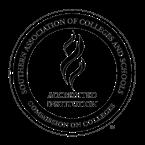
In the United States, most registration boards require a degree from an accredited professional degree program as a prerequisite for licensure. The National Architectural Accrediting Board (NAAB), which is the sole agency authorized to accredit professional degree programs in architecture offered by institutions with U.S. regional accreditation, recognizes three types of degrees: the Bachelor of Architecture, the Master of Architecture, and the Doctor of Architecture. A program may be granted an eight-year term, an eight-year term with conditions, or a two-year term of continuing accreditation, or a three-year term of initial accreditation, depending on the extent of its conformance with established education standards.
Doctor of Architecture and Master of Architecture degree programs may require a non-accredited undergraduate degree in architecture for admission. However, the non-accredited degree is not, by itself, recognized as an accredited degree.
The Savannah College of Art and Design School of Building Arts offers the following NAAB-accredited degree program(s): M.Arch. (180 undergraduate credits plus 90 graduate credits). Next accreditation visit: 2030.
Veronica Biggins, Chair
Garry Brown
Lucy Cookson
John G. Kennedy III
Robert L. Nardelli
Sally Waranch Rajcic
Stuart Saunders, M.D.
Anita Thomas
Alan B. Whitaker III
The interior design program leading to the Bachelor of Fine Arts in interior design at SCAD Atlanta and SCAD Savannah is accredited by the Council for Interior Design Accreditation, www.accredit-id.org, 206 Cesar E. Chavez Ave SW, Suite 350, Grand Rapids, MI, 49503.
The CIDA-accredited program prepares students for entry-level interior design practice, for advanced study, and to apply for membership in professional interior design organizations. The Bachelor of Fine Arts in interior design granted by the Savannah College of Art and Design meets the educational requirement for eligibility to sit for the National Council for Interior Design Qualification Examination (NCIDQ Exam). For more information about NCIDQ Exam eligibility visit: https://www. cidq.org/eligibility-requirements
For a complete description of institutional and programmatic accreditations, visit scad.edu/accreditation
All logos, company names, and branding included in student work are used solely for educational purposes and do not denote an endorsement of SCAD or SCAD’s academic programs unless specified.
Programs of study are effective Fall 2022, unless otherwise noted.
This official university publication supersedes all others. This catalog does not constitute a contract, and all portions are subject to change.
Printed in the USA. © 2022 The Savannah College of Art and Design
Catalog content and design are produced entirely by SCAD staff, students, alumni, and faculty.
SCAD and The University for Creative Careers are registered trademarks of the Savannah College of Art and Design.
SCAD prepares talented students for creative professions through engaged teaching and learning in a positively oriented university environment.
SCAD prepares talented students for creative professions through engaged teaching and learning in a positively oriented university environment.
The Savannah College of Art and Design is accredited by the Southern Association of Colleges and Schools Commission on Colleges (SACSCOC) to award baccalaureate and masters degrees. Degree-granting institutions also may offer credentials such as certifcates and diplomas at approved degree levels. Questions about the accreditation of the Savannah College of Art and Design may be directed in writing to the Southern Association of Colleges and Schools Commission on Colleges at 1866 Southern Lane, Decatur, GA 30033-4097, by calling (404) 679-4500, or by using information available on SACSCOC’s website (sacscoc.org)
The SCAD department of institutional effectiveness is responsible for reporting substantive changes to SACSCOC according to the Commission’s published policies. Faculty and staff can email accreditation@scad.edu to report or request information regarding substantive changes.
The interior design program leading to the Bachelor of Fine Arts in interior design at SCAD Atlanta and SCAD Savannah is accredited by the Council for Interior Design Accreditation, www.accredit-id.org, 206 Cesar E. Chavez Ave SW, Suite 350, Grand Rapids, MI 49503.
The CIDA-accredited program prepares students for entry-level interior design practice, for advanced study, and to apply for membership in professional interior design organizations. The Bachelor of Fine Arts in interior design granted by the Savannah College of Art and Design meets the educational requirement for eligibility to sit for the National Council for Interior Design Qualifcation Examination (NCIDQ Exam). For more information about NCIDQ Exam eligibility visit https://www.cidq. org/eligibility-requirements
In the United States, most registration boards require a degree from an accredited professional degree program as a prerequisite for licensure. The National Architectural Accrediting Board (NAAB), which is the sole agency authorized to accredit professional degree programs in architecture offered by institutions with U.S. regional accreditation, recognizes three types of degrees: the Bachelor of Architecture, the Master of Architecture, and the Doctor of Architecture. A program may be granted an eight-year term, an eight-year term with conditions, or a two-year term of continuing accreditation, or a three-year term of initial accreditation, depending on the extent of its conformance with established education standards.
Doctor of Architecture and Master of Architecture degree programs may require a non-accredited undergraduate degree in architecture for admission. However, the non-accredited degree is not, by itself, recognized as an accredited degree.
The Savannah College of Art and Design School of Building Arts offers the following NAAB-accredited degree program(s): M.Arch. (180 undergraduate credits plus 90 graduate credits). Next accreditation visit: 2030.
The Savannah College of Art and Design is an associate institutional member of the American Academy in Rome. Founded in 1894, the Academy exists to foster the pursuit of advanced research and independent study in the fne arts and humanities. The Academy awards the prestigious Rome Prize to select artists and scholars invited to Rome to pursue their creative goals in an atmosphere conducive to artistic innovation and progressive scholarship. More information about the Academy is available at aarome.org
The Association of Collegiate Schools of Architecture is a nonproft membership organization established in 1912 to advance the quality of architectural education. Membership in ACSA has grown from 10 charter members to more than 250 institutions representing more than 7,000 architecture faculty, as well as more than 500 architecture frms, product associations, and individuals working in support of ACSA’s goals. ACSA provides a forum for the exchange of ideas through facilitating scholarly meetings, workshops, publications, awards programs, support for architectural research, policy development, and partnerships with like-minded organizations. More information about ACSA is available at acsa-arch.org
The Council for Higher Education Accreditation is a national advocate and institutional voice for promoting academic quality through accreditation. CHEA is an association of 3,000 degree-granting colleges and universities and recognizes 60 institutional and programmatic accrediting organizations. More information about CHEA is available at chea.org
The Savannah College of Art and Design is a member of Cumulus Association. Cumulus is the only global association specifcally focused on art and design education and research. Cumulus aims to build and maintain a dynamic and fexible academic forum to bring together top-level educational institutions from around the world. More information about Cumulus is available at cumulusassociation.org
The Learning Guild is a community of practice for those supporting the design, development, strategy, and management of organizational learning. As a member-driven organization, the Guild produces resources all devoted to the idea that the people who know the most about making learning successful are the people who produce learning every day in corporate, government, and academic settings. The Guild strives to create a place where learning professionals can share their knowledge, expertise, and ideas to build a better industry—and better learning experiences—for everyone. More information about the Guild is available
The Savannah College of Art and Design is a member of the European League of Institutes of the Arts, an independent membership organization representing more than 260 members in 48 countries. Founded in 1990, ELIA represents all arts disciplines, including architecture, dance, design, fne art, media arts, music, and theater. Through its members, ELIA represents unique bodies of knowledge and facilitates dialogues, mobility, and activities between artists, teachers, administrators, senior managers, key decision-makers, and more than 300,000 students. More information about ELIA is available at elia-artschools.org
The purpose of the Online Learning Consortium is to help learning organizations continually improve quality, scale, and breadth of their online programs according to their own distinctive missions so that education will become a part of everyday life, accessible and affordable for anyone, anywhere, at any time, in a wide variety of disciplines. Created with funding from the Alfred P. Sloan Foundation, OLC encourages the collaborative sharing of knowledge and effective practices to improve online education in learning effectiveness, access, affordability for learners and providers, and student and faculty satisfaction. OLC generates ideas to improve products, services, and standards for the online learning industry, and assists members in collaborative initiatives. Members include 1) private and public universities and colleges, community colleges, and other accredited course and degree providers; and 2) organizations and suppliers of services, equipment, and tools that practice the OLC quality principles. More information about OLC is available at onlinelearningconsortium.org
SECAC (formerly the Southeastern College Art Conference) is a nonproft organization devoted to the promotion of art in higher education through facilitating cooperation among teachers and administrators in universities and colleges, professional institutions, and the community served by their institutions. More information about SECAC is available at secacart.org
In 1987, the U.S. Distance Learning Association was founded on the premise of creating a powerful alliance to meet the burgeoning education and training needs of learning communities globally. USDLA supports the development and application of distance learning education and training by uniting learners around the world and serves the needs of the distance learning community by providing advocacy, information, and opportunity for networking. USDLA is committed to being the leading distance learning association in the U.S. More information about USDLA is available at usdla.org
SCADnow online degree programs are available to students throughout the U.S. and across the world. SCAD has taken steps to ensure that SCADnow online degree programs and university policies are in compliance with the regulations of states that have established consumer-oriented authorization processes. SCAD was approved to join the National Council for State Authorization Reciprocity Agreements on Feb. 5, 2016. Under the State Authorization Reciprocity Agreements, SCAD is authorized to operate SCADnow online courses across the U.S. and its territories.
In compliance with Title IX of the Education Amendments of 1972, Section 504 of the Rehabilitation Act of 1973, Title VI of the Civil Rights Act of 1964, and other federal, state, and local laws, SCAD does not discriminate on the basis of age, race, color, sex, sexual orientation, gender identity, religion, national or ethnic origin, disability, or veteran status in any phase of its employment or admission processes, its fnancial aid programs, or other aspects of its educational programs or activities. Questions or
concerns regarding the nondiscrimination policy should be directed to the university’s compliance offcer (complianceoffcer@scad.edu).
SCAD offers degree programs at locations in Savannah and Atlanta, Georgia; and online via SCADnow. Coursework also is offered through SCAD-sponsored international and domestic programs in various locations, including the SCAD study abroad location in Lacoste, France. Full degree programs are not offered at SCAD Lacoste. Students accepted to SCAD may request to study at one or more of these locations and online, or may combine traditional and travel study with online coursework.
Admission policies and procedures are the same for all undergraduate or graduate programs offered by SCAD, regardless of location and modality (see admission policies and procedures). Qualifed students are eligible to receive scholarships, fellowships, and federal and state fnancial aid (see student fnancial services section). Students may begin their study any quarter during the academic year and may choose to be residential or commuting students. Orientation is offered at the start of each quarter for all new students and provides information about academic programs and university resources.
SCAD Savannah offers a wide range of degree programs, minors, and individual courses at the undergraduate and graduate levels. A current listing of the educational programs offered at SCAD Savannah is available at scad.edu/programs
The SCAD Savannah urban location is large and unique, occupying more than 3 million square feet in more than 80 facilities throughout one of the most renowned National Historic Landmark Districts in the U.S. The university is widely acknowledged as a leader in the feld of preservation, adaptively reusing a variety of historical structures as classrooms, studios, digital labs, photography darkrooms, flm and television production facilities including an LED volume stage, galleries, theaters, cafés, residence halls, a swimming pool, dining facilities, ftness centers, as well as a bookstore, library, and shopSCAD, a retail store for the sale of work produced by students, faculty, staff, and alumni.
Intercollegiate and intramural athletics, numerous student clubs and organizations, and professional affliations provide a broad university experience. Community involvement, internships, competitions, and classroom assignments connect students with professionals in businesses, design frms, media, and nonproft organizations. Performances, lectures, exhibitions, festivals, conferences, concerts, and athletic events fll the calendar. Signature events include the SCAD Savannah Film Festival, SCAD deFINE ART, SCADstyle, the SCAD Sidewalk Arts Festival, the SCAD Sand Arts Festival, and SCAD FASHION.
SCAD Atlanta offers a wide range of degree programs, minors, and individual courses at the undergraduate and graduate levels. A current listing of the educational programs offered at SCAD Atlanta is available at scad.edu/programs
SCAD Atlanta facilities include well-equipped classrooms, galleries, digital labs, flm and television production facilities including an LED volume stage, a library, photography darkrooms, printmaking presses, studios, a visual resources lab, a bookstore, dining halls, a ftness center, and residence halls. SCAD Atlanta facilities also include historic Ivy Hall, the SCAD Digital Media Center, SCAD Studio, and SCAD FASH Museum of Fashion + Film.
Intercollegiate and intramural athletics and a variety of student organizations, including student media and student ambassadors, provide leadership opportunities outside the classroom. Professional affliate chapters provide social and co-curricular programming to enhance the
learning environment. Students also have opportunities to be active in the community and participate in internships, competitions, and classroom assignments related to businesses, design frms, media, or nonproft organizations. Lectures, exhibitions, performances, workshops, conferences, seminars, and other activities provide a well-rounded educational experience.
SCAD offers award-winning degree programs, minors, and individual courses at the undergraduate and graduate levels online through SCADnow. SCADnow students may begin their study any quarter during the academic year, and courses align with the SCAD Savannah calendar. A current listing of the online educational programs offered via SCADnow is available at scad.edu/programs
SCADnow is a signature online learning platform that offers on-the-go artists, designers, and professionals the best of both worlds in distance education—real-time engagement combined with on-demand access. SCADnow courses stream in real-time and are accessible anytime, allowing students to digitally connect to their studies according to their own distinct schedules. SCADnow supports robust asynchronous engagement but also delivers real-time, virtual class sessions via Zoom flled with dynamic lectures, demonstrations, critiques, collaborations, discussions, professional guests, and more. Students unable to join live log in based on their availability to watch the recorded class sessions, engage with academic content, and fulfll the course requirements. Depending on their major, students may take all or part of their program online through SCADnow.
Students are introduced to online learning at SCAD via a virtual orientation session designed to familiarize them with the layout and navigation of the SCADnow learning platform as well as provide information about SCAD resources and services, including peer tutoring, the Writers’ Studio, career services, and access to the university’s extensive library collections. SCADnow also offers students a robust array of extended learning opportunities, such as Guests and Gusto, SCADextra Workshops, and SCADamp, the university’s professional presentation studio. An online bookstore also is available for ordering supplies, textbooks, and software via MySCAD.
Students who enroll in SCADnow online courses must possess adequate computer skills and have regular access to appropriate computer hardware, software, and internet connectivity to participate fully in coursework. Specifc technology requirements for each program are available at scad. edu/academics/scadnow/technical-requirements
SCAD Lacoste is a study abroad location set in a beautifully preserved medieval village in the south of France. SCAD Lacoste offers a unique opportunity for students and faculty to spend an entire quarter immersed in the culture of the region. SCAD Lacoste offers a rotating schedule of courses at the undergraduate and graduate levels but does not offer full degree programs. A current listing of programs offered at SCAD Lacoste is available at scad.edu/lacoste All courses are developed and taught by SCAD faculty and are offered for academic credit under the authority of the university.
Students must frst apply and be accepted to SCAD before applying to study abroad at SCAD Lacoste. (See admission policies and procedures.) Students may apply their existing SCAD scholarships, fellowships, and federal and state fnancial aid toward the tuition and fees associated with studying at SCAD Lacoste. Special study abroad scholarships also are available to qualifed SCAD students. Students may apply to attend SCAD Lacoste any quarter during the academic year and should meet with their student success adviser to discuss how courses taken at SCAD Lacoste apply toward their course of study and meet degree requirements.
While situated in a centuries-old setting, SCAD Lacoste offers a variety
of modern amenities including computer labs, well-equipped teaching studios for painting, drawing, printmaking, photography, and digital imaging, as well as dining and residence halls, a theater, a library, galleries, and administrative offces. Classes are taught in English.
Students admitted to SCAD may enroll at multiple SCAD degree-granting locations and learning modalities. They may declare majors and minors and earn a degree only at a location or learning modality where a program of study is offered. Course availability varies by location and learning modality. A listing of academic programs is published in the annual course catalog and online at scad.edu/programs
After enrolling and attending any SCAD location or learning modality, students must complete a change-of-location form after consulting with a success adviser to attend another location or to change locations permanently.
By applying to short-or full-term international or domestic study programs through the university, SCAD students may have the option to study at all SCAD locations. Students have the opportunity to earn credit while gaining a more vivid perspective on art, architecture, culture, design, and history. Programs and course offerings vary. Criteria for acceptance include GPA, class standing, and course availability; in some cases a lengthy visa process is required. Current information is available online at scad.edu/studyabroad
Students must frst apply and be accepted to SCAD before applying to study abroad at SCAD Lacoste or in any SCAD short-term domestic or international study program. Students who wish to study at any SCAD location should discuss plans with their success adviser to outline criteria for application, program availability, and how coursework taken at these locations applies toward their program of study.
Tuition for coursework at SCAD is the same at all locations and learning modalities. Additional program fees, including travel, housing, meals, travel visas, insurance, excursions, etc., vary according to program location and duration. Students may apply their existing SCAD scholarships, fellowships, and federal and state fnancial aid toward the tuition and fees associated with domestic or international study programs. Students should contact a success adviser for information on applying fnancial aid and scholarships.
Orientation for SCAD Lacoste and short-term domestic and international study programs is offered prior to travel. Applications typically open two quarters in advance of the quarter for travel.
Undergraduate programs embrace a wide range of disciplines and are designed to challenge students to perform at a high level, preparing them for professional careers. A well-rounded curriculum provides students with core courses in foundation studies and general education leading to focused majors that emphasize discipline-specifc knowledge, technical and analytical skills, aesthetic sensibility, and the ability to express ideas visually and verbally.
The Bachelor of Arts degree program is a four-year course of study requiring 180 quarter credit hours (equivalent to 120 semester credit hours). The Bachelor of Arts degree begins with foundation studies coursework and a comprehensive general education curriculum that provides a breadth of knowledge for lifelong learning. Students then complete a series of courses in an area of concentration to develop knowledge and skill in
a particular discipline. Students are also required to take several free electives to broaden their experience and interests.
The Bachelor of Fine Arts degree program is a four-year course of study requiring 180 quarter credit hours (equivalent to 120 semester credit hours) and incorporating a foundation studies curriculum, general education curriculum, major program curriculum, and electives. The Bachelor of Fine Arts curriculum is designed to focus intently on acquiring knowledge and skill in the arts and design. In the foundation studies curriculum, students explore the fundamental principles, elements, and techniques of art and design. In the general education curriculum, students are exposed to a broad base of knowledge that enables them to think critically and inquisitively about the world around them. In the curriculum of their chosen major, students work toward developing knowledge, skills, and a level of mastery in a specifc discipline. Students are required to take electives to broaden their experience and interests.
The SCAD Core of foundation studies and general education courses provides undergraduate students with the essential skills necessary for success at SCAD. Foundation studies courses build visual, conceptual, and creative abilities essential to students’ academic and professional development. General education courses are designed to develop students as critical thinkers by providing an intellectual foundation and breadth of knowledge for lifelong learning.
In foundation studies courses in drawing and design, students explore the fundamentals of visual language, the development of creative solutions, and the critique of art and design. Example foundation studies courses include:
DRAW 100 Drawing I: Form and Space
DRAW 101 Drawing II: Composition and Media
DRAW 200 Life Drawing I
DRAW 206 Drawing for Storyboarding
DSGN 100 Design I: Elements and Organization
DSGN 101 Color: Theory and Application
DSGN 102 Design II: 3D Form in Space
DSGN 115 Creative Thinking Strategies
DSGN 208 Storyboarding Essentials
SCAD general education courses offer students an academically rigorous learning experience that provides the intellectual foundation and breadth of knowledge critical for lifelong learning. Through university-level coursework, students learn to investigate, interpret and defend new ideas, and engage mindfully and professionally within complex and diverse communities. Collectively, the SCAD general education program focuses on achievement of six learning outcomes: research, analysis, and synthesis; historical investigation and contextualization; cross-cultural knowledge and engagement; strategic communication; digital fuency; and leadership and professionalism.
All undergraduate students complete a minimum of 55 quarter hours (or at least 11 classes) of general education coursework, including at least one class from each of the following categories: humanities/fne arts, social/ behavioral sciences, and mathematics/natural sciences. Students should consult their programs of study for specifc curriculum requirements.
SCAD general education courses categorized as humanities/fne art courses examine works of cultural production within diverse contexts, preparing students to identify, analyze, and describe form, content, function, and
meaning. Courses such as Visual Culture in Context: Pre-Modern Global Perspectives; Ink to Ideas: Critical Concepts in Literature and Writing; Wonder Women: Feminist Expression in Literature; Music Appreciation; Aesthetics; and Perception, Persona, or Reality: Existential Philosophy satisfy the SCAD humanities/fne arts requirement. While composition, oral communication, and foreign language courses may be included as part of the general education curriculum, they do not satisfy the humanities/fne arts requirement.
SCAD general education courses categorized as mathematics/natural sciences teach students how to gather and use empirical evidence to analyze, predict, and/or describe phenomena, quantity, structure, space, or time. Courses such as General Anatomy; Introduction to Astronomy; Environmental Science; College Mathematics; Evidence and Inference: The Power of Statistics; The Geometry of Physical Space; and Applied Physics satisfy the SCAD mathematics/natural sciences requirement.
SCAD general education courses categorized as social/behavioral sciences courses emphasize the study of human behavior, identity and development, and the fundamentals of qualitative and quantitative research. Courses such as Introduction to Anthropology; Language, Culture, and Society; Business I: Fundamentals; Introduction to Psychology; and Business II: Economic Principles satisfy the SCAD social/behavioral sciences requirement.
Students should complete SCAD Core coursework within their frst 90 hours of study. The organization of these courses into a two-year sequence allows students to complete necessary prerequisites for future study and prepares them for the work of the major. Students should consult their success adviser when selecting any general education course to ensure that the course meets the requirements of the program. Similarly, students should contact their faculty adviser when selecting any elective course to ensure the course meets the requirements of the program. Students must meet prerequisites in order to register for any course.
SCAD offers an undergraduate certifcate program in digital publishing, which can be earned in combination with any undergraduate degree except the B.A. in graphic design, the B.F.A. in graphic design, or the graphic design minor. Current students may pursue the certifcate by contacting their success adviser. Degree-seeking students must complete certifcate coursework prior to or within the fnal quarter of registration in degree coursework. New students may apply for admission to a certifcate program by following the undergraduate admission requirements.
Many of the undergraduate majors offered at SCAD complement each other, and students may choose to earn a double major. With careful course selection and fnancial planning, students can double major without substantially extending their time to completion. Students who put forth that extra effort gain credentials and expertise that may be invaluable to their careers. To double major, undergraduate students must complete all courses unique to each major. Students are not required to take the same course twice, nor must they always take two sets of electives. However, a student may not substitute coursework for one major to serve as coursework in the second major, unless the course is satisfying a free elective or studio elective in the other major program. Students who wish to double major must follow course requirements as listed in the catalog they are following for their primary major.
For information about completing a double major, undergraduate students should consult with a success adviser. Students also should verify that adequate fnancial aid is available, if needed, to cover the additional time and costs associated with completing coursework above the minimum
credit hours required for a bachelor’s degree.
Minors are designed to broaden students’ education and enhance their employment opportunities. Students enrolled in any bachelor’s degree program may elect to declare a minor outside the major feld of study. Students may choose to complete more than one minor or combine their minor toward the completion of a double major.
Required courses in the major may count toward a minor; however, a student must complete all courses unique to the minor and major. Students may not substitute major coursework to serve as coursework in their minor, or vice versa, except when the course is satisfying a free elective or studio elective in the major program. The minor may require the student to complete more than the minimum number of quarter hours required for graduation. Thus, students should verify that adequate fnancial aid is available, if needed, to cover the additional time and cost. For information about completing a minor, students should consult with a success adviser.
To receive designation of a minor on a transcript, a student must declare the minor with a success adviser, successfully complete the required credit hours as specifed in the minor program of study, and maintain an overall grade-point average of 2.0 in the minor. Some courses have prerequisites that may require additional credits to complete the minor. Consult course descriptions to ascertain prerequisites. A listing of minor programs offered, including descriptions, courses of study, and availability at each SCAD location or learning modality, is available online at scad.edu/minors
SCAD ensures that all undergraduate students are able to demonstrate fundamental mathematics competency in one of the following ways: by successfully completing one MATH course at SCAD; by presenting proof of a qualifying math score on the SAT (580 or above) or the ACT (24 or above); or by presenting proof of qualifying math scores on Advanced Placement, International Baccalaureate, College-level Examination Program, or other equivalent international examinations as published on the SCAD admission website. These scores may qualify for transfer credit in addition to satisfying the mathematics requirement.
Students who have successfully completed a course at another college or university similar in content and level of instruction to a mathematics course at SCAD may be permitted to transfer that course in satisfaction of the mathematics requirement.
Undergraduate architecture applicants who present SAT math scores lower than 580, ACT math scores lower than 24, or are unable to demonstrate a competency for the study of mathematics and science may be admitted to the architecture program on a provisional basis and must take MATH 101 Intermediate Mathematics. The credit hours earned in MATH 101 may be applied as an undergraduate general education elective. All undergraduate architecture students are required to take MATH 201 Applied Mathematics.
Students who demonstrate math competency with exam scores may take any math or natural science class to satisfy the mathematics/natural sciences general education requirement. Students should consult with their success adviser before registering for any math or science courses to be sure they meet the requirements for their specifc program of study.
First Year Experience is a required, noncredit, extended orientation course for frst-year incoming undergraduate students designed to help prepare them for academic success and professional careers. The course provides a discussion-based environment in which students
are introduced to university requirements, their responsibility in the learning process, and skills that enable them to identify and effciently use university resources. In addition, the course addresses topics such as major exploration, academic advisement and registration, career planning, campus technology, and student involvement opportunities.
Incoming frst-year students are registered for First Year Experience during their frst quarter of enrollment. First-year students are required to successfully complete First Year Experience as a graduation requirement. Students who have transferred to SCAD after attending another institution are not required to complete the course but may opt to participate in the course to take advantage of the learning opportunities presented. International students who take the ESL placement test and place at or below level six have First Year Experience topics incorporated into their ESL coursework.
Graduate programs at SCAD are designed for dedicated, self-motivated students who are committed to the pursuit of excellence through advanced study. Graduate curricula are structured to include knowledge of the literature of the discipline and to ensure ongoing student engagement in research and/or appropriate professional practice and training experiences. Graduate courses require students to research, analyze, explore, question, reconsider, and synthesize old and new knowledge and skills. The graduate experience culminates in a thesis, fnal project, or portfolio demonstrating a mature and resolved body of work and/or research. Graduates are encouraged to hold leadership positions, to enter a variety of professional disciplines, to teach, or to accomplish other personal and professional goals.
The professional Master of Architecture degree program is accredited by the National Architectural Accrediting Board and satisfes the education requirement for architect licensure in all U.S. jurisdictions. The program includes 180 undergraduate credit hours at the preprofessional level and 90 graduate credit hours at the professional level for a total of 270 quarter credit hours (equivalent to 180 semester credit hours).
The M.Arch. degree program requires that students frst complete a preparatory or preprofessional undergraduate degree in architecture or a related discipline. At SCAD, the preprofessional undergraduate program is a Bachelor of Fine Arts in architecture degree, which is composed of 180 quarter credit hours. After successfully completing 180 undergraduate credit hours and satisfying all program requirements, students are awarded the B.F.A. in architecture degree, whether or not they pursue graduate-level studies. Acceptance of students graduating with a B.F.A. degree from SCAD into the professional M.Arch. graduate program is based on current grade-point average and studio portfolio.
Acceptance of a student with a preprofessional or preparatory degree in architecture or a related feld from another institution to the SCAD graduate program is based on review of academic transcripts, specifc coursework, and portfolio to ensure that their undergraduate study satisfes the requisite student learning acumen at the preprofessional level. Based on the results of this review, students may be assigned up to fve additional graduate-level intensive courses, bringing the student’s required course of study to a total of 95 to 115 quarter credit hours. Students may be assigned preparatory (preliminary) courses from the SCAD B.F.A. program in addition to two years of graduate study.
The program emphasizes preparation for a professional career as an architect; it focuses on theory and practice within the university’s unique art and design context. Architectural design is emphasized through design studio courses that meet 10 hours each week and through a sequence of courses in building construction systems, graphic communication, digital technology, sustainability, history, theory, and professional practice. The architecture graduate experience culminates in a thesis, demonstrating
The SCAD Master of Arts degree is an initial graduate program that requires 45 quarter credit hours (equivalent to 30 semester credit hours) of graduate-level coursework. Students who wish to pursue the M.A. degree should possess a commitment to explore a feld in depth; develop a high degree of creative and technical profciency; produce research/scholarly work; and participate in a vibrant university community. The SCAD M.A. degree prepares students for employment in creative professions or for pursuit of advanced graduate degrees such as the Master of Fine Arts or the Doctor of Philosophy.
The M.A. degree may be research and/or practice oriented, offering students a focused educational experience that engages them in the history, theory, and methods of the chosen discipline. The M.A. degree culminates with completion of a fnal project or thesis course. In this course, students complete a graduate-level project that demonstrates mastery and application of the techniques and concepts of the discipline and a high degree of intellectual or artistic profciency.
The M.A. degree requires a minimum of one year to complete, with all quarter credit hours in residency at SCAD (these can include SCADnow online and study abroad hours). At the time of admission, students with exceptional motivation who meet entry-level admission requirements but fail to demonstrate adequate discipline-specifc knowledge and/or practice through their portfolios may be assigned up to fve additional graduate-level intensive courses, bringing the student’s required course of study to a total of 50 to 70 quarter credit hours.
The Master of Fine Arts degree is recognized as the terminal degree for many art and design professions and requires 90 quarter credit hours (equivalent to 60 semester hours) of graduate-level coursework.
The SCAD M.F.A. degree is an advanced graduate program that builds mastery and professional competence in research and studio practice through scholarly engagement with the history, theory, and methods of the chosen discipline. Most M.F.A. programs also require at least one graduate internship, providing students with a mentored experience of professional practice.
The M.F.A. degree culminates with completion of a graduate-level thesis that presents a mature, resolved body of work, and demonstrates advanced professional competence through mastery of the technical, creative, and aesthetic elements of the discipline. Reviewed by a graduate thesis committee and completed as part of the thesis course(s), the M.F.A. thesis body of work may be visual, written, or a combination of the two. The visual component of the M.F.A. thesis demonstrates advanced professional competence in studio or design practice and is exhibited, presented, or published in a professional or scholarly setting. The written component may be a stand-alone scholarly research paper, or the research, ideation, and concept development supporting and contextualizing the visual component (e.g., process book, artist statement, project documents, and preproduction and production materials).
The M.F.A. program requires a minimum of two years to complete, with the fnal 45 quarter hours in residence at SCAD (these can include SCADnow online and study abroad hours). At the time of admission, students with exceptional motivation who meet entry-level admission requirements but fail to demonstrate adequate discipline-specifc knowledge and/or practice through their portfolios may be assigned up to fve additional graduate-level intensive courses, bringing the student’s required course of study to a total of 95 to 115 quarter credit hours.
Both undergraduate and graduate students are expected to follow the degree requirements of the course catalog in effect at the time of their
initial enrollment at SCAD. Specifc course requirements are updated in the catalog annually. Students are expected to adhere to changes to individual courses as they occur.
If the curriculum and degree requirements change during the fve-year period after initial enrollment, students may elect to follow the new degree requirements but may not move to a catalog earlier than their catalog of entry.
If a student does not fulfll the degree requirements of the course catalog of entry within the fve-year period, the student must follow the requirements of the catalog in effect at the end of that fve-year period, or at minimum update to degree requirements that are less than fve years old. Any graduate student who does not complete the program within fve years must submit an application for readmission through the registrar’s offce for continuation under the current program of study. The application is reviewed by the appropriate academic administrators.
Students may be required to follow new degree requirements if courses required by previous programs have been eliminated from the course catalog; however, under no circumstances are students required to take any additional credit hours to earn the declared degree within fve years of entry.
Academic advisement is provided to all students to assist in the development of their educational plans and career goals and to relate these goals to academic offerings at SCAD. Students have both a success adviser and a faculty adviser to support them during their SCAD tenure.
Success advisers help students with the general requirements and logistics related to their academic registration and progression. Faculty advisers are recognized as the experts in their disciplines, offering students help with regard to their chosen major of study. Students are encouraged to discuss their program of study, course content, and career development each quarter with their faculty adviser and to contact their success adviser as needed.
First-year undergraduate students are assigned a success adviser at enrollment. When students declare a major, they also are assigned a faculty adviser from their major department. Transfer students are assigned a success adviser and faculty adviser upon enrollment. Transfer students are required to discuss their program of study with their success adviser during their frst quarter of enrollment and should consult with their success adviser at least annually thereafter.
Graduate students are assigned both faculty advisers and graduate success advisers at orientation. These advisers regularly provide assistance with course selection and professional development and help guide students toward fulfllment of requirements for certifcate or degree programs.
SCADnow online students are assigned faculty and success advisers at orientation. SCAD educational technology staff members also provide assistance for SCADnow online students.
Students who must fulfll English as a Second Language requirements are also assigned an ESL faculty adviser at orientation.
Incoming frst-time frst-year students enter SCAD as undeclared majors. First-year students have the opportunity to declare a major during their frst quarter of enrollment but may remain undeclared through their sophomore year. While undeclared, students are required to consult with their success adviser prior to registration each quarter. Students should declare a major by the end of their sophomore year.
Incoming transfer students enter SCAD as declared majors based on
their application for admission. Transfer credit is reviewed and awarded based upon the declared major. All declared students are assigned a faculty adviser who teaches in the major, as well as a success adviser.
Undergraduate students who wish to declare or change a major must consult with a success adviser. Undergraduate students may change their major, add a second major, or enroll in a minor at any time during their studies. Graduate students who wish to change their program of study must consult with a graduate success adviser. Students may declare a major or minor only at a SCAD location where it is offered.
Undergraduate and graduate courses are taught on the quarter system. Most courses carry fve hours of academic credit. Each fve-credit course meets for at least 2½ hours twice weekly for a total of 50 hours of instruction during the 10-week quarter.
The academic year includes four quarters, and students may enroll each quarter, including the summer quarter; however, course offerings may be limited in the summer. Students should expect to spend a minimum of two hours on out-of-class work for each hour of direct faculty instruction in class, including internships, independent studies, and studio work. Students enrolled in SCADnow online courses should expect to spend a minimum of two hours on out-of-class work to manage course content and complete assignments for each hour of participation in the digital classroom.
Each quarter credit hour requires 10 hours of instruction, and students should expect to spend an additional 20 hours of out-of-class time for a total of 30 hours of activity. SCAD sometimes offers courses in a compressed time frame of less than a 10-week quarter. In all cases, however, the standard for earning a quarter credit (10 contact hours, plus 20 additional out-of-class hours) is maintained. One quarter credit is equivalent to 0.67 semester credits; one semester credit is worth 1.50 quarter credits.
At the end of each quarter, faculty members submit grades via MySCAD for all enrolled students. Once all grades have been received, the registrar’s offce processes grades, awards credits, and calculates grade-point averages.
Grades are assigned according to the following system of letter and quality-points evaluation: LETTER
The registrar's offce is the offcial designated authority for determining full-time status for all students requesting enrollment verifcations for insurance or any type of fnancial aid or loans. A full-time undergraduate student is defned as one who is registered for at least 15 quarter credit hours per quarter. Undergraduate students may register for a maximum of 20 quarter hours of credit per quarter, provided they have maintained a grade-point average of at least 3.0 during the previous quarter. A full-time graduate student is defned as one who is registered for at least 10 quarter credit hours per quarter. Graduate students may register for more than 15 quarter hours only with the permission of the chair and by contacting their graduate success adviser.
Less than full-time enrollment status may affect fnancial aid such as loans, grants, scholarships, university housing, health insurance, and visas (if applicable).
Approvals for a reduced course load are granted by counseling and student support services based on documented evidence of student need and the student’s request. Reduced course load accommodations are granted for a single quarter at a time. Students authorized for a reduced course load accommodation may enroll in fewer credit hours than full-time status as defned by SCAD. They remain eligible for university housing, Dean’s List honors, and other university services that require full-time status designation, provided they remain enrolled in the reduced number of credit hours established by counseling and student support services.
International students with an F-1 student visa must receive approval for a reduced course load from the international student services offce (ISSO). Students should contact their ISSO adviser for more information.
Student enrollment is recorded and reported as actual hours enrolled (see full-time status). SCAD does not determine how external agencies defne full-time status; thus a reduced course load accommodation may affect fnancial aid such as loans, grants, scholarships, health insurance, and visas (if applicable).
Students are expected to actively engage in courses to achieve the required learning outcomes. Absences in excess of 20% of the course (e.g., fve absences for a 10-week course that meets twice per week) result in the student receiving a failing grade, unless the student withdraws from the course in accordance with the withdrawal policy. Absences due to late registration are included in the overall absences permitted for the course.
For on-ground courses, students are expected to attend and participate in all scheduled class periods. Tardiness, early departure, or other time away from class in excess of 15 minutes per class session is considered an absence for that class session.
The following codes may appear on transcripts and do not affect a student’s grade-point average.
W Withdrawal T Transfer credit
I Incomplete U Unsatisfactory
S Satisfactory N Audit
Full-time undergraduate students who achieve a grade-point average of 3.5 or higher during a quarter term receive an offcial notice confrming Dean’s List honors for that quarter. This honor is also noted on the student’s transcript.
Students enrolled in SCADnow courses are required to check the online course site regularly and academically engage in the daily work of the course. Students earn attendance in SCADnow online courses through active participation in live class sessions and/or asynchronously by participating in academically related activities on a minimum of two separate days per unit/week.
SCAD faculty monitor and measure attendance for SCADnow online courses by documenting each student's weekly academic engagement. Academic engagement is defned as participating in live class sessions, demos, or critiques; posting to discussion forums or blogs; submitting assignments; completing quizzes or examinations; attending extra-help sessions, offce hours, or midterm conferences; and/or corresponding with professors regarding course content via phone, email, text, etc. Absences in excess of 20% result in the student receiving a failing grade for the course.
Students’ appearance and conduct should be appropriate and contribute to the academic and professional atmosphere of SCAD. Any student whose conduct is detrimental to the academic environment or to the well-being of other students, faculty, staff members, or university facilities will be subject to disciplinary action, up to and including expulsion from the university.
The frst fve business days of each 10-week quarter are designated as the drop/add period when students may change their course schedules.
Only students who are registered for a course may attend that course. Students are not permitted to attend courses for which they are not registered. The offcial course roster determines enrollment. Absences due to late registration are included in the overall absences permitted for the course.
The drop/add period for any term less than 10 weeks will vary and will be published in relevant course materials.
The SCAD military mobilization policy is intended to provide fnancial relief for students affected by military mobilization. This policy protects students who are members of a state National Guard or reserve forces of the U.S. and who are ordered to report for state or federal military service.
When a currently enrolled student (or the spouse of a currently enrolled student, if the spouse has a dependent child) has received orders to deploy, the student should submit a copy of the orders to the registrar’s offce. The registrar’s offce will communicate to student fnancial services that the change in the student’s status is the result of military mobilization. The student shall be given the option to receive a full refund of tuition and fees for courses that the student will be unable to complete due to deployment, regardless of the point during the quarter at which the student withdraws.
If the students wish, they may opt to receive a grade of incomplete for courses they are unable to complete due to deployment, with the option to fnish the courses at a later date. Alternatively, students may make arrangements with their instructors for fnal grades in courses that will not be fully completed. If the student opts for a grade of incomplete, or for fnal grades prior to the end of the current quarter, registration shall remain intact, and the student will be responsible for tuition and fees in full. If the student seeks an incomplete grade, the student will not be eligible to withdraw from the course after the end of the quarter. In order to replace the incomplete grade with a fnal grade, all work must be turned in by the midterm of the second quarter following the conclusion of military service, except in the case of a SCADnow online course. In such cases, when the type of deployment allows, work is due by the midterm of the next quarter.
If a currently enrolled student is registered in one or more SCADnow online course(s) when deployed, the student may decide to remain registered in SCADnow online courses based on the type of deployment.
The fnancial aid offce will perform the standard return of Title IV refund calculation based on the student’s last date of attendance. Funds will be returned to the appropriate program as mandated by federal regulation. If the student withdraws, SCAD will refund 100% of the student's personal payments for that quarter. Any balance created by the return of funds to appropriate programs and personal funds will be written off by SCAD. If the student receives a grade of incomplete, the student may enroll in the same class, at no charge, within two quarters of the conclusion of military service.
After the end of the drop/add period and through the last day of the quarter, students may offcially withdraw from a course. Students should note that withdrawing from a course after the drop/add period is not the same as dropping a course during the drop/add period. Withdrawing students do incur a fnancial obligation for the portion of the course that has passed, but withdrawal may entitle the student to a refund of tuition paid for the remaining portion of the course based on the university's policy for canceled enrollment and account credits. More information is available at scad.edu/withdrawalcredit. Withdrawal from one or more courses also may impact a student’s full-time status and may alter eligibility for fnancial aid, university housing, health insurance, and visas (if applicable). Students with federal fnancial aid who completely withdraw (offcially or unoffcially) from the quarter are subject to a Return of Title IV calculation of their fnancial aid, which could result in some or all of their received federal aid being returned to the Department of Education. More information is available at scad.edu/fnancialpolicies
Students should consult with a success adviser for information. Refund policies are listed under fnancial information.
Students demonstrate their intent to offcially withdraw from a course by completing the electronic withdrawal form available in MySCAD. The withdrawal form is processed automatically, and withdrawal is effective immediately upon receipt of the request by the registrar’s offce. If for any reason the automated process is not available, students should contact the registrar's offce immediately at registrar@scad.edu. Withdrawals are fnal, and students may not return to the same course from which they have withdrawn. Offcial withdrawal from a course results in a grade of W, and no credit is earned. Thus, it does not calculate into the student’s grade-point average.
A student who is found to be in violation of the academic integrity policy forfeits the right to withdraw from the course. Note that the ability to withdraw from the course is suspended as soon as the instructor notifes the student of concerns about academic integrity (see the “Academic Integrity” policy at scad.edu/academicintegrity for more detailed information).
A student who is withdrawing from SCAD altogether must complete a withdrawal form for each course in which the student is registered, complete an online withdrawal survey, offcially drop any courses for which the student may be preregistered in the subsequent quarter, return their student identifcation card and, if residing in SCAD housing, complete the offcial move-out process and return all room keys to the offce of residence life and housing.
Currently enrolled degree-seeking, nondegree-seeking, or transient students who wish to enroll in a course but do not want to receive a grade may request through the registrar's offce to audit the course, provided space is available. Auditing status is refected by N on the grade report. Students must be eligible to register for the course they wish to audit. Degree-seeking students should consult a success adviser before requesting to audit a course to determine the effect this may have on fnancial aid and scholarship status and awards.
Internships offer undergraduate and graduate students valuable opportunities to work in a professional environment and gain frsthand experience to help them prepare for careers. In an approved internship setting, a student typically spends one quarter working with an on-site professional supervisor and a faculty internship supervisor to achieve specifc goals and outcomes related to the program of study. Internships may be undertaken on a credit or non-credit basis and may be paid or unpaid.
An undergraduate student seeking an internship for credit must have completed a minimum of 90 credit hours, or have completed 75 credit hours and be registered in 15 credit hours in the current quarter, with a cumulative grade-point average of at least 3.0. A graduate student seeking an internship for credit must have completed at least 15 graduate-level credit hours with a cumulative grade-point average of at least 3.0.
To complete registration of the internship for credit, the student must complete the SCAD internship application, including internship start date, duration of internship, number of hours/days per week of employment, and any terms of employment. The student must submit the completed internship application signed by the student, the faculty internship supervisor, and the department chair, along with a liability waiver signed by the student and payment of tuition.
The internship application must show that the student will have adequate faculty and supervisor contact hours during the 10-week quarter in which the internship is to take place. For both undergraduate and graduate internships, students are required to work a minimum of 150 hours of internship activity.
Graduate teaching internship application materials should be prepared with the supervising professor during the quarter prior to the intended quarter of registration.
Internship applications must be submitted prior to the quarter in which the internship is to be conducted. Students must pay tuition upon submission of the approved and completed internship application to complete registration of the internship for credit.
Students may wish to earn credit through independent study that allows them to investigate a topic in depth or take advantage of particular resources. An independent study may not be used as a substitute for a course currently offered.
Proposals for independent study must be approved by a faculty member and the department chair and submitted prior to the start of the quarter in which the independent study is to be conducted. Proposals should present evidence that the independent study requires at least 150 hours of work.
To complete registration of the independent study for credit, students also must pay the necessary tuition. Undergraduate students must have completed at least 90 credit hours with a cumulative grade-point average of at least 3.0 to participate in an independent study; graduate students must have completed at least 15 credit hours of graduate-level courses with a cumulative grade-point average of at least 3.0.
SCAD reserves the right to cancel a course and change the schedule, location, modality, or professor of any course at any time. Students are responsible for checking their schedule prior to the start of each quarter to apprise themselves of any changes.
SCAD students who wish to attend another college or university during their enrollment at SCAD and receive transfer credit may apply for transient status. To qualify for transient status, undergraduate students must be in good academic standing and have a minimum grade-point average of 2.0. Graduate students requesting transient status must have a minimum grade-point average of 3.0 and should be advised that transient credit is rare at the graduate level. Good standing is based on the most recent grades available; however, it is calculated no sooner than one full quarter prior to the requested transient quarter. Students must complete their fnal 45 hours at SCAD and are not eligible for transient credit during that period. Undergraduate students may transfer no more
than 90 total hours of credit, including transient credit. Upper-level and major-specifc studio courses are not approved for transient study, as they require portfolio review, and there is no guarantee of transferability.
A student who qualifes for transient status must consult with their success adviser in order to complete a transient status application. A course description, and in some cases a syllabus, from each course the student wishes to take will be required. The application is evaluated for eligibility for transfer credit, and the student is notifed of the decision within two weeks of application. This process must be completed before the student begins transient study. The student should also consult with their success adviser to determine the impact of transient status/credit on their fnancial aid or scholarship award.
Upon completion of transient study, the student must submit an offcial transcript from the other institution that refects the fnal grade(s) earned in the course(s). These transcripts must be submitted to the transfer admission offce by the end of the term immediately following completion of coursework for the student to receive transfer credit. Undergraduate students must earn a minimum grade of C (2.0) for a course to be applied as transfer credit while graduate students must earn a minimum grade of B (3.0). The credit is recorded as T on the transcript and is not calculated into the student’s cumulative GPA.
Undergraduate students who have attended SCAD but have not been enrolled at SCAD for at least fve consecutive quarters are considered inactive and must apply for readmission and meet current admission requirements to return to SCAD. Undergraduate students who have attended another college or university on any basis other than as a transient student must apply for readmission and meet current admission requirements to return to SCAD. All readmission applications are evaluated on an individual basis by the Admission Review Committee. Prior awards of fnancial aid and/or scholarships may or may not apply. Students should complete new Free Application for Federal Student Aid forms and resubmit any required materials to be considered for fnancial aid or scholarship awards. Upon readmission, students must follow the requirements of the current catalog. Graduate students must adhere to the graduate student continuous enrollment policy.
Graduate students must maintain continuous enrollment until graduation by completing at least one program fulfllment course in two separate quarters during each 12-month period of enrollment until completion of all degree requirements or until the student offcially withdraws by written notifcation to the registrar's offce. Students who attempt but do not complete all requirements of the thesis course(s) receive a grade of incomplete and are automatically enrolled in THES 799 Thesis Completion. THES 799 Thesis Completion provides one additional quarter of support and resources for students to complete their thesis requirements at no additional charge. As part of THES 799 Thesis Completion, students must meet with their graduate success adviser during the frst week of classes to establish a Thesis Completion Plan, specifying how students will successfully complete all remaining thesis requirements by the end of the quarter. At the end of one quarter of THES 799 Thesis Completion, if students still fail to complete their thesis requirements, their grade of incomplete for the thesis course will automatically change to an F unless they follow the university’s temporary grade of incomplete policy and request an extension of their incomplete status for an additional fve weeks. Information regarding the university’s temporary grade of incomplete policy may be found at scad.edu/temporary-grade-incomplete
International students attending a SCAD location within the U.S. must follow the U.S. Citizenship and Immigration Services rules pertaining to online courses. For more information on academic matters related to international status, students should contact the International Student Services Offce.
In the event that a student suffers from serious personal illness or other emergency circumstances and is unable to complete all assignments by the end of the quarter, the student may request a grade of incomplete by completing the temporary grade of incomplete form available in MySCAD through the appropriate school dean before the end of the quarter. The student should explain the reason and include documentation of the illness or emergency circumstance. The dean’s decision is fnal.
To be eligible for a temporary grade of incomplete, the student must have completed at least 50% of the grading opportunities outlined in the syllabus, be able to pass the course upon completion of the remaining work, and be able to complete the remaining work independently (apart from the administration of any missed quizzes or exams). A student who has missed or will miss more than 20% of a course (e.g., fve absences for a 10-week course that meets twice per week) is not eligible for a temporary grade of incomplete.
A student who is assigned a temporary grade of incomplete is required to complete the remainder of the unfnished work in a satisfactory manner by midterm of the following quarter. A temporary grade of incomplete automatically changes to an F if the required work is not completed satisfactorily by midterm of the following quarter. A student may not withdraw from a course after receiving a grade of incomplete.
Students are expected to make satisfactory progress toward their degrees and are responsible at all times for knowing their academic standing and for fulflling all requirements of the university by referring to published academic policies, regulations, and standards, and by consulting with the appropriate dean, department chair, or adviser. Students are responsible for ascertaining and meeting course requirements, prerequisite requirements, graduation requirements, appropriate course sequencing, and any other requirements of the university.
At the sole discretion of the university, a student may be placed on academic warning or probation or may be suspended or dismissed for any reason deemed by SCAD offcials to be in the best interest of the student or the university as a whole, or if the university determines that the student is not making satisfactory progress toward degree completion.
For undergraduate students, good academic standing is defned by a 2.0 overall grade-point average. For graduate students, good academic standing is defned by a 3.0 overall grade-point average.
An undergraduate student whose term grade-point average falls below 2.0 for any quarter or a graduate student whose term grade-point average falls below 3.0 for any quarter receives a warning that the student's academic status is unsatisfactory.
An undergraduate student whose term grade-point average falls below 2.0 for two consecutive quarters or a graduate student whose term
grade-point average falls below 3.0 for two consecutive quarters is placed on academic probation and is notifed by the university. Students who are placed on probation must meet with their success adviser before the end of the second week of the next quarter to establish a success plan. Students on probation may not withdraw from any course and must abide by the terms outlined in their probation letter. Undergraduate students are removed from probation when they achieve a term grade-point average of at least 2.0; graduate students are removed from probation when they achieve a term grade-point average of at least 3.0.
An undergraduate or graduate student enrolled in ESL coursework who does not successfully complete the same ESL course for two consecutive quarters is placed on academic probation and is notifed by the university. Students who are placed on probation must work with the SCAD Language Studio to establish a success plan by the second week of the next quarter. Students on probation may not withdraw from any coursework and must abide by the terms outlined in their probation letter. Students are removed from probation when they successfully complete the ESL course that they had previously failed.
An undergraduate student whose term grade-point average falls below 2.0 for three consecutive quarters is suspended from the university for one calendar year. After that time, the student may submit a written petition to return to SCAD by emailing academicappeals@scad.edu The petition should include all potential justifcations for continued enrollment at SCAD, including, but not limited to, counseling, tutoring, medical treatment, or academic success programming. Reinstatement is not guaranteed.
If the student is reinstated, the student returns with the status “reinstated on probation” for the frst quarter. This status requires that the student complete all courses attempted, earn a grade-point average of 2.0 or greater, meet with a success adviser prior to registering for courses, and complete an academic success plan as outlined in the reinstatement letter. This may include the requirement to register for specifc courses or to take a reduced course load. Failure to meet the minimum 2.0 grade-point average results in dismissal.
A graduate student whose term grade-point average falls below 3.0 for three consecutive quarters is dismissed from SCAD and is not reinstated.
An undergraduate or graduate student enrolled in ESL coursework who does not successfully complete the same ESL course for three consecutive quarters is suspended from the university for one calendar year. After that time, the student may submit a written petition to return to SCAD by emailing academicappeals@scad.edu. The petition should include all potential justifcation for continued enrollment at SCAD, including, but not limited to, counseling, tutoring, medical treatment, or academic success programming. Reinstatement is not guaranteed.
If the student is reinstated, the student returns with the status “reinstated on probation” for the frst quarter. This status requires that the student successfully complete all ESL courses attempted, meet with the SCAD Language Studio prior to registering for courses, and complete a success plan as outlined in the reinstatement letter. Failure to successfully complete the success plan, as outlined in the reinstatement letter, results in dismissal.
A student who has been suspended and reinstated and does not meet satisfactory academic progress during the frst quarter of the student's return is dismissed from the university.
Under all circumstances, students are expected to be honest in their dealings with faculty, administrative staff, and other students. For purposes
of this policy, the term faculty or faculty member includes any person engaged by the university to act in a teaching capacity, regardless of the person’s actual title. In speaking with members of the SCAD community, students must give an accurate representation of the facts at hand. Failure to do so is considered a breach of the Student Code of Conduct and may result in sanctions against the student, including suspension or dismissal.
In course assignments, students must submit work that fairly and accurately refects their level of accomplishment. Any work that is not a product of the student’s own efforts and is not original to the student is considered dishonest. Students must not engage in academic dishonesty; doing so can have serious consequences. Academic dishonesty includes, but is not limited to, the following:
1. Cheating, which includes, but is not limited to, a) the giving or receiving of any unauthorized assistance in producing assignments or taking quizzes, tests, or examinations; b) dependence on the aid of sources including technology beyond those authorized by the instructor in writing papers, preparing reports, solving problems, or carrying out other assignments; c) the acquisition, without permission, of tests or other academic material belonging to a member of the university faculty or staff; or d) the use of unauthorized assistance in the preparation of works of art.
2. Plagiarism, which includes, but is not limited to, the use, by paraphrase or direct quotation, of the published or unpublished work of another person without full and clear acknowledgment. Plagiarism also includes the unacknowledged use of materials prepared by another person or agency engaged in the selling of term papers or other academic materials.
3. Submission of the same work in two or more courses without prior written approval of the professors of the courses involved.
4. Submission of any work not actually produced originally by the student submitting the work without full and clear written acknowledgment of the actual author or creator of the work.
If a faculty member suspects a student of academic dishonesty, the faculty member notifes the student of this concern. Once this notifcation has occurred, the student is prohibited from seeking to withdraw from the course pending the result of a possible investigation. If academic dishonesty is suspected, the faculty member must email all evidence and documentation to academicdishonesty@scad.edu
If the allegation warrants investigation, an academic administrator is appointed to investigate the allegation. If the investigator fnds that academic dishonesty has occurred, the student is informed in writing that the fnal grade in the course will be an F. The student has fve business days from the date on the written notice to appeal the decision of the investigator. If no appeal is made, the student is assigned a grade of F in the course, and the student forfeits the right to continue to attend the course in which the academic dishonesty occurred. Students wishing to appeal should do so by emailing academicappeals@scad.edu. An appeals committee then convenes to review the case. Findings are presented to the chief academic offcer or designee, who sends the student a fnal decision in writing within 30 days of the written appeal. A student found to be in violation of the academic integrity policy may not withdraw from the course(s) in question. Additional sanctions may also be imposed, including suspension or dismissal. A second fnding of academic dishonesty may result in dismissal from SCAD.
Students are encouraged to resolve any concerns they may have by directly contacting the offce or persons responsible for the area relevant to the concern or complaint (e.g., housing/residence director for residence hall complaints; professor or academic chair for academic complaints). If unsure about the proper way to address complaints, students should
contact the ombudsperson (ombuds@scad.edu). As a neutral party, the ombudsperson may seek additional information about the situation, assist with appropriate communication, and mediate disputes.
If unable to satisfactorily resolve issues directly with the relevant offce or persons or through the offce of the ombudsperson, the student may submit a formal written complaint using the procedures referenced herein.
SCAD student complaint and appeal policies apply uniformly across SCAD locations and learning modalities. The university protects its students’ right to lodge complaints and appeals according to these procedures and seeks to resolve all student concerns fairly and in a timely manner. The information described herein is a general overview of the policies and procedures for fling complaints and appeals at SCAD. Students are strongly encouraged to consult the student handbook in its entirety and/or MySCAD for information regarding specifc complaint and appeal procedures.
Complaints and appeals in the areas of academics and/or grades, general non-academic, student conduct and/or disciplinary action, Americans with Disabilities Act, sexual misconduct, discrimination, and fnancial aid must be submitted in writing and in accordance with established university procedures, which are published as follows.
The university provides all SCAD students a streamlined process to submit academic complaints and appeals through academicappeals@scad.edu
Appropriate academic services administrators, based on the nature and the university location of the matter, participate in the process to resolve complaints and appeals.
Students must submit their complaints and appeals concerning academic matters in writing via email to academicappeals@scad.edu, in accordance with the policy set forth below. The complaint or appeal must be submitted from the student’s SCAD email address and include the student’s full name, student ID number, and phone number. The complaint or appeal must be submitted within 30 calendar days of the incident and describe the issue of concern in detail, include relevant information or documentation, and indicate the desired outcome. The appropriate academic services administrator shall determine the fnal action and will respond to the student within 30 calendar days of receipt of the complaint or appeal.
Academic policy appeals are written student requests for exceptions to SCAD academic policies. Students should address all academic policy appeals via email to academicappeals@scad.edu. Appeals must be made within 30 calendar days of notifcation of the action or decision. An appeal decision is communicated in writing within 30 calendar days following receipt of the appeal or receipt of additional information. The decision is fnal.
The student has fve business days from the date on the written notice within which to appeal the academic integrity decision of the investigator. Students who wish to appeal should do so by emailing academicappeals@ scad.edu. An appeals committee then convenes to review the case. An appeal decision is communicated in writing within 30 calendar days of the written appeal. The decision is fnal.
Concerns regarding fnal grades must be addressed directly with the faculty member issuing the grade or, if necessary, with the faculty member’s department chair. A review of the student’s grade is conducted to validate the grade assignment. The department chair and school dean must authorize any grade change due to numerical miscalculation by the faculty member issuing the grade.
If, after this review, the student is not satisfed, the student may fle a written appeal via email to academicappeals@scad.edu. This appeal must include evidence of correspondence with all previous parties and should be submitted within 30 calendar days following the last day of the quarter. The student’s grade appeal will be routed to the appropriate SCAD administrator for investigation. A decision from academic services regarding the appeal is made in writing to the student within 30 calendar days following receipt of the appeal.
The decision is fnal unless a procedural or material error has occurred, in which case the student can request a reconsideration. The opportunity to submit a request for reconsideration is not provided to refute or express dissatisfaction with the appeal response. Instead, a student may submit a written request for reconsideration only if a procedural or material error occurred that signifcantly impacted the outcome of the investigation. A description of the error and its impact on the outcome of the appeal must be included in the written request for reconsideration. This written request must be received within fve calendar days of receipt of the appeal response.
The university strives to ensure that each course meets the educational goals of students. If a course fails to meet a student’s expectations, the student may request a one-time exception to retake the course at no additional charge. Free retake requests should be submitted via email to academicappeals@scad.edu within 30 calendar days of completion of the course and describe the issue of concern in detail. Only students who successfully passed the course and met all attendance requirements are eligible to request a free course retake. Students who did not pass the course or did not submit their retake request within 30 calendar days may retake the course through the university’s standard registration process and pay tuition. Retake appeal decisions are communicated to students in writing within 30 calendar days following receipt of the appeal or receipt of additional information. The decision is fnal.
Non-academic student complaints, other than the specifc complaints outlined in a subsequent section, are submitted in writing to the dean of students for SCAD Savannah, SCAD Lacoste, and SCADnow online students or the dean of students for SCAD Atlanta students.
The complaint must include the student’s full name, student ID number, SCAD email address, and phone number. The complaint must be submitted within 30 calendar days of the incident and describe the issue of concern in detail, including the date, time, and place of the occurrence; the names of any persons involved, including any witnesses; other relevant information or documentation; and the desired outcome. The complaint must be signed by the student or sent from the student’s SCAD email account.
A written response will be provided to the student within 30 calendar days of receipt of the written complaint. If dissatisfed with the response, the student may submit a written appeal to the vice president for student success, located in Savannah, in accordance with the following process.
General non-academic appeals are student requests for exceptions to the university’s student services policies. Unless specifcally stated otherwise (see below), all such appeals must be submitted in writing to the senior vice president for admission and student success in the format noted above within 14 calendar days following notifcation of any decision or action. Submissions may be sent to the offce of the vice president for student success, located in Bradley Hall, 115 E. York St., Savannah, Georgia; mailing address: P.O. Box 3146, Savannah, GA 31402; or nonacademicappeals@scad.edu. All supporting documentation must be attached to the appeal; failure to do so may halt the appeal process.
The vice president for student success will determine the fnal action and respond to the student within 30 calendar days of receipt of the appeal. The decision is fnal.
Following is a summary of the procedures for submitting specific nonacademic complaints and appeals, including appeals to student conduct and/or disciplinary action, discrimination complaints, financial and student accounts appeals, and admission appeals. Students should refer to procedures outlined in the student handbook and on scad.edu/policies for the complaint and appeal procedures for other specific non-academic complaints, such as ADA grievances and sexual discrimination, sexual harassment, and sexual misconduct grievances.
A fnding of a violation of the Code of Student Conduct and/or imposition of a sanction(s) may be appealed by the respondent (or by the complainant) within three business days of the decision. Appeals must be submitted in writing from a student’s SCAD email address or as a hard copy to the offce of the dean of students. Appeals from Savannah, Lacoste, and SCADnow online students should be submitted to the offce of the dean of students in Savannah (deanofstudents@scad.edu); appeals from SCAD Atlanta students should be submitted to the dean of students at SCAD Atlanta (dosatl@scad.edu). The Code of Student Conduct and the process and specifc procedures for appealing such decisions are found in the student handbook under “Code of Student Conduct.”
The university's sex-based discrimination, sexual harassment, and sexual misconduct policy and the process and specifc procedures for fling a grievance are available online at scad.edu/policies
Students who feel that they have been affected by discrimination (other than sex-based discrimination) can contact the university’s compliance offcer (complianceoffcer@scad.edu or 912.525.5235), the ombudsperson (ombuds@scad.edu or 912.525.5213), or any of the following: vice president for student success, dean of students, or director of student conduct.
If a student wishes to fle a formal discrimination grievance, the complaint may be submitted in writing to any of the individuals listed above and must include the student’s full name, student ID number, SCAD email address, and phone number. The complaint should describe the issue of concern in detail, including the date(s), time(s), and place(s) of the occurrence(s); the names of any persons involved, including any witnesses; other relevant information or documentation; and the desired outcome. The complaint must be signed by the student or sent from the student’s SCAD email account. If preferred, a student may appear in person at any of these offces to make a complaint. Following an investigation, a written response will be provided to the student within 30 calendar days of receipt of the written complaint. The decision is fnal.
Students who receive a written notice of loss of financial aid due to unsatisfactory progress may appeal in writing to the university by completing an unsatisfactory progress appeal form and submitting it to financialaid@scad.edu. The appeal must be received within 30 calendar days of the date on the unsatisfactory progress notification letter. A decision regarding the appeal is made in writing to the student within 30 calendar days following receipt of the appeal or receipt of additional information. The decision is final.
Students with extenuating circumstances may appeal to the student fnancial services department for tuition credit or tuition reimbursement. Appeals should be submitted online and include a statement of request, description of the extenuating circumstances, and supporting documentation. To access the appeals form, refer to student account appeals at scad.edu/appeals. Such appeals must be initiated within 30 days of the end of the quarter for which the refund or credit is requested. The student will receive a written response within 30 calendar days of the date of the written appeal.
Applicants may appeal admission decisions only once. Those who wish to appeal an admission decision must submit the following to the admission appeal committee:
1. A letter of appeal written by the applicant, specifying the reason(s) for the appeal, with the applicant’s identifcation number provided.
2. Any updated academic or artistic work that would be relevant to an appeal. Portfolios must be submitted through SlideRoom. Graduate applicants appealing admission decisions must submit portfolio materials that follow their intended major program guidelines.
3. At least one recommendation from a teacher, coach, guidance or career counselor, or other mentor/supervisor. Graduate applicants should submit an additional letter of reference from an academic or professional source.
All documents must be submitted together with the letter of appeal in order to be considered. The deadline to appeal is 30 calendar days prior to intended enrollment at SCAD. The admission appeal committee may consist of admission staff and administrators. Appeals are considered in the order in which they are received; a fnal decision is rendered to the applicant within 14 calendar days of receipt of the complete appeal.
Applicants seeking appeals on the basis of fnancial need should contact the admission department. Appeal documents may be delivered in person, by email to admission@scad.edu, or by mail to:
SCAD Admission Appeal Committee
Savannah and SCADnow online
P.O. Box 2072
Savannah, Georgia 31402-2072 USA
SCAD Admission Appeal Committee
Atlanta
P.O. Box 77300
Atlanta, Georgia 30309 USA
The Family Educational Rights and Privacy Act affords students certain rights with respect to their education records. They are:
1. The right to inspect and review the student’s education records within 45 days of the date SCAD receives a request for access. Students should submit to the registrar written requests that identify the record(s) they wish to inspect. The registrar makes arrangements for access and notifes the student of the time and place where the records may be inspected. If the records are not maintained by the registrar, the registrar shall advise the student of the correct offcial to whom the request should be addressed. That offcial makes arrangements for access and notifes the student of when and where the records may be inspected.
2. The right to request the amendment of the student’s education records that the student believes are inaccurate or misleading. A student who believes records are inaccurate or misleading should write to the registrar, clearly identify the part of the record the student wants changed, and document why it is inaccurate or misleading. If SCAD decides not to amend the record as requested by the student, SCAD notifes the student of the decision and advises the student of the student's right to a hearing regarding the request for amendment. Additional information regarding hearing procedures is provided to the student at that time.
3. The right to consent to disclosures of personally identifable information contained in the student’s education records (a student consents by completing and submitting an electronic FERPA form via MySCAD), except to the extent that FERPA authorizes disclosure without consent. One exception, which permits disclosure without consent, is disclosure to school offcials with legitimate educational interests. A school offcial is a person employed by the university in a supervisory, administrative, academic, research, or support staff position (including law enforcement personnel and health staff); a person or company with whom the university has contracted (such as an attorney, auditor, or collection agent); a person serving on the Board of Trustees; or a student serving on an offcial committee, such as disciplinary or grievance committees, or assisting another school offcial in performing the offcial's tasks. A school offcial has a legitimate educational interest if the offcial needs to review an education record in order to fulfll a professional responsibility. Upon request, the university discloses a student’s education records to offcials of another school in which a student seeks or intends to enroll without the student’s prior consent. The university also discloses directory information in a student’s education record unless written notice is received from the student that the student does not wish to be included in the disclosure of directory information. Written notice should be sent to the registrar’s offce (registrar@scad. edu). Directory information includes the student’s name, student identifcation (ID) number, email address, street address, telephone listing, date and place of birth, major feld of study, participation in offcially recognized activities and sports, weight and height of members of athletic teams, dates of attendance, enrollment status, level, class, degrees and awards received, most recent previous educational agency or institution attended, and photograph.
4. The right to fle a complaint with the U.S. Department of Education concerning alleged failures of the college to comply with the requirements of the Family Educational Rights and Privacy Act.
The name and address of the offce that administers the Family Educational Rights and Privacy Act is as follows:
Family Policy Compliance Offce
U.S. Department of Education 400 Maryland Ave. SW Washington, DC 20202-8520
Students may retake a course by registering for the course and paying tuition. In all cases, students receive credit only once, unless the course is repeatable for credit. All grades remain on the transcript; however, only the highest grade is calculated into the cumulative and/or major grade-point average. Students with questions about retaking a course, including the implications on fnancial aid and/or scholarship awards, should consult their success adviser.
To earn an undergraduate certifcate, students must complete all courses required for the certifcate, maintaining at least a 2.0 grade-point average in those courses. Current students may pursue a certifcate by contacting
their success adviser. Additional coursework may be required to earn a certifcate concurrent with a degree.
Bachelor’s degrees are awarded to students who have earned a minimum of 180 quarter hours (equivalent to 120 semester credit hours) of appropriate credit in an approved program of study, with an overall cumulative gradepoint average of 2.0 or higher, as well as a 3.0 or higher in their major or concentration. Students pursuing a minor must earn a grade-point average of 2.0 or higher in their minor program. To graduate with a double major, students must maintain a minimum grade-point average of 3.0 in each major and a minimum overall grade-point average of 2.0. The fnal 45 hours of any degree program must be completed at SCAD (may include SCADnow online and study abroad). Students must complete all academic requirements for undergraduate majors and minors before beginning a SCAD graduate degree.
Bachelor’s degree students must complete the application for graduation at least two quarters before they complete their degree requirements. The graduation application is required whether or not the student plans to participate in a commencement ceremony. A commencement ceremony is held at the end of spring quarter. Students who plan to participate in the commencement ceremony must complete all degree requirements no later than the summer quarter following the ceremony. Students should note that course offerings may be limited in the summer. Students who would like to participate in the commencement ceremony must apply by the deadline and adhere to ceremony participation requirements posted in MySCAD (MySCAD > Resources > Department Directory > Registrar > Graduation and Commencement).
Upon graduation, bachelor’s degree students may be awarded academic honors based on their cumulative grade-point average during their last quarter before commencement. Since commencement is scheduled before fnal grades are submitted, the cumulative grade-point averages of students who complete their graduation requirements spring quarter are based on their averages the previous quarter. Students who have a cumulative grade-point average below a specifc honor level prior to commencement but earn the required average after grades are calculated have that honor indicated on their diploma.
Honors
Cum Laude
Magna Cum Laude
3.5 to 3.69 GPA
3.7 to 3.89 GPA
Summa Cum Laude 3.9 to 4.0 GPA
Students enrolled in B.F.A. programs in art history and architectural history are required to complete a thesis as part of their graduation requirements. Students register for the thesis course at the end of their course of study and are expected to complete the thesis by the end of the fnal enrollment term. Students who do not fnish their theses by the end of the term may request a grade of incomplete subject to the temporary grade of incomplete policy.
At the approximate midpoint of each graduate student’s course of study, the student must pass a faculty review for candidacy. To be reviewed, the student must have met all requirements for the program up to that point with a grade-point average of at least 3.0 in the major.
In the candidacy review, a faculty committee assesses the student’s complete body of work, as well as the student’s readiness to continue in the program and succeed in the feld upon graduation. Reviews are structured according to the discipline and degree program, assessing evidence of the student's knowledge and literature of the discipline; mastery of research and design methodologies; and technical, conceptual,
and aesthetic profciencies. Academic performance, as demonstrated by individual course grades, also serves as an indication of the student’s readiness to proceed to candidacy. Students who experience academic diffculty should consult with their department chair or graduate coordinator. Additional guidelines for the candidacy review can be found on the graduate advising website in MySCAD.
Students who do not pass the review for candidacy during their initial attempt may request a second review. Any student who does not pass the second review may not be allowed to continue in the program.
The completion limit for graduate degrees is fve years from the student's frst day at SCAD. If, for any reason, the student does not complete the program within the fve-year period, the student must submit an application for readmission through the registrar’s offce for continuation under the current program of study. The application is reviewed by the appropriate academic administrators.
To graduate, students seeking master’s degrees are required to be continuously enrolled (at least two quarters per academic year, including thesis completion, up to the fve-year limit), fulfll all requirements of the program of study, and maintain a 3.0 or higher cumulative grade-point average overall as well as a 3.0 or higher cumulative grade-point average in the major area of study. To graduate with a double major or dual degree, graduate students must fulfll all requirements of each major. Specifc completion requirements may vary according to the degree program and may require a thesis, fnal project, or portfolio appropriate to the course of study. The subject and nature of these projects vary among departments. See specifc program requirements for each major posted in MySCAD (MySCAD > Resources > Department Directory > Graduate Advising > Thesis Information > Departmental Thesis Guidelines). The fnal 45 hours of any degree program must be completed at SCAD.
The M.A. degree is awarded to students who have completed at least 45 graduate quarter hours (equivalent to 30 semester credit hours) in an M.A. program of study. The M.F.A. degree is awarded to students who have earned at least 90 graduate quarter hours (equivalent to 60 semester credit hours) in an M.F.A. program of study. M.A. and M.F.A. students who were assigned intensive coursework upon admission must complete that coursework as part of their degree requirements.
The professional M.Arch. degree is awarded to students who have completed at least 90 graduate quarter hours in the professional M.Arch. program of study and a preprofessional or preparatory degree. The SCAD professional degree is composed of 180 undergraduate quarter hours and 90 graduate quarter hours for a total of 270 quarter hours (equivalent to 180 semester credit hours). Students may fulfll the undergraduate requirement with either the SCAD B.F.A. degree in architecture or a preprofessional degree in architecture or a related discipline from another institution accepted for admittance to the SCAD professional M.Arch. degree program.
Master’s degree students must submit the application for graduation at least two quarters before completing degree requirements. The application may be completed online in MySCAD (MySCAD > Resources > Forms > Graduation Application). The graduation application is required whether or not the student plans to participate in a commencement ceremony. A commencement ceremony is held at the end of spring quarter. Students who would like to participate in the commencement ceremony must apply by the deadline and adhere to ceremony participation requirements posted in MySCAD (MySCAD > Resources > Department Directory > Registrar > Graduation and Commencement). To participate in the commencement
ceremony, students must complete all degree requirements no later than the summer quarter following the ceremony. Students should note that course offerings may be limited in summer.
A student who wishes to continue to take courses after completion of degree requirements should meet with a success adviser to discuss options for further study, such as the addition of a second major or continuation to a master’s degree program. To pursue a second degree, the student must apply through the admission department and be admitted to a new degree program or be admitted as nondegree-seeking. Otherwise, the student is automatically dropped from courses by the registrar's offce. Financial aid and scholarship awards may be affected by continued enrollment after degree completion.
A student may request from the registrar’s offce offcial transcripts of all coursework completed at SCAD (scad.edu/life/student-services/ registrar-services). A fee is charged for most transcripts. Transcripts and portfolios submitted to SCAD as part of the application process become part of the records of the university and cannot be returned to the student.
Students are expected to read all email messages from SCAD offcials and utilize their SCAD email addresses for correspondence with faculty and staff. All offcial university correspondence and forms are provided in English. Students are expected to use the most current registration and academic forms posted on MySCAD. If for any reason online forms are not available, students should contact the registrar's offce.
Physical injury and/or other medical problems, as well as loss of or damage to personal property resulting from fre, theft, or other causes, are not the responsibility of the university. SCAD recommends that students carry personal insurance.
SCAD reserves the right to use student work, whether in its entirety or samples, and photographs or videos of students and their work in publications and on SCAD websites or other promotional materials about the university. SCAD may request to purchase student work to be included in the permanent collection. Students are frequently invited to exhibit work in SCAD galleries and in traveling exhibitions. Students also may be invited to sell their work through SCAD galleries, shopSCAD, SCADartsales.com, or through open studio nights held by academic departments.
Students who create copyrightable work with the use of university resources and in furtherance of class projects while enrolled at SCAD grant to the university a royalty-free, nonexclusive, worldwide, transferable, and perpetual license to use the work (whether in its entirety or samples), together with photographs and/or videos of students, for the promotion of and/or to advance the interests of the university. This includes the right to reproduce and distribute copies of the work, photographs, and/or videos. The complete policy on intellectual property is available at scad.edu/ about/scad-glance/disclosures-and-policies/compliance-and-policies/ intellectual-property
SCAD is committed to complying with the United States Copyright Act. Thus, the SCAD Copyright Compliance Policy encourages and promotes legitimate use of copyrighted materials by faculty members, staff members, and students. SCAD expects all faculty members, staff members, and students to comply with the Copyright Act and this policy. Compliance is particularly important with respect to digital technology. The complete policy, as well as copyright compliance guidelines, is available at scad.edu/ about/scad-glance/disclosures-and-policies/compliance-and-policies/ copyright-compliance-policy
SCAD is committed to the pursuit of excellence and welcomes applicants who have the same high standards. SCAD maintains selective admission policies, accounting for a student body of varied backgrounds with demonstrated intellectual capacity and a passion for the arts. Applicants who meet or exceed the minimum admission requirements are not guaranteed admission. Exceptions to the general rules of admission may be made for applicants of exceptional motivation and ability. Application materials cannot be returned.
New students may begin study during fall (September), winter (January), spring (March), or summer (June) quarter, although most students begin in fall. Summer course offerings may be limited. Online applications are available at scad.edu/apply
Once all required application materials are received, the Admission Review Committee considers the applicant’s qualifcations and renders an admission decision. The applicant is notifed accordingly.
Early application is encouraged. Applications for admission are accepted at any time of year and should be received at least 30 days prior to the intended quarter of entry. Students who need a visa are encouraged to apply and submit all required documents for admission at least 90 days prior to the intended quarter of entry.
Students applying for U.S. federal or state fnancial aid should complete the Free Application for Federal Student Aid online at studentaid.gov and use the SCAD code of 015022. These students also should complete the SCAD application for admission and submit all fnancial aid information at least 60 days prior to the intended entry term. Otherwise, these students should be prepared to pay frst-quarter tuition, room, and board through personal funds, as processing of federal or state monies may not be completed until after enrollment.
The administrative unit responsible for frst-year, transfer, and graduate admission decisions is the Admission Review Committee, which consists of admission staff and administrators. Faculty members in the intended area of study also participate in review of applicants for graduate programs. The committee meets regularly to review applications and to render admission decisions on completed application fles.
SCAD reserves the right to verify all documents submitted in support of an application for admission. Any falsifcation of admission documents, portfolio, or audition materials constitutes grounds for termination of application procedures or dismissal from SCAD.
Students planning to attend a SCAD location in a country where citizenship or permanent residency is not already established may need to apply for a student visa. Information is provided during the admission process.
All applicants must complete the SCAD admission application and all other requirements to be considered for admission.
1. Completed application for admission.
2. Nonrefundable application fee (US$100).
First-year applicants may receive a preliminary offer of admission based upon unoffcial high school transcripts/mark sheets. If an offer of admission is made, an offcial transcript/mark sheet from the last high school/secondary school attended showing all years of the student’s grades and proof of completion of the high school/secondary school or equivalent program should be received prior to Aug. 1 for fall enrollment. All transcripts/mark sheets must be in English or accompanied by a certifed English translation. The admission department must receive all offcial transcripts prior to the frst day of class. Failure to comply with this requirement may prohibit the student from attending classes and/or receiving fnancial aid for that quarter. SCAD reserves the right to verify all documents submitted in applications for admission. Offers of admission are contingent upon receipt of offcial documentation, and SCAD reserves the right to revoke any offer of admission should discrepancies be found. Any falsifcation of admission documents, portfolio, or audition materials constitutes grounds for termination of application procedures or dismissal from SCAD.
4. Evidence of English profciency for students whose frst language is not English.**
5. Additionally, if applicable, any other documents or materials required to obtain a student visa.***
* Non-U.S. students, please refer to the international applicant section at scad.edu/international for details. For U.S. students, a certificate of General Educational Development from the American Council on Education is considered equivalent to a diploma from a U.S. high school. For applicants from countries other than the U.S., SCAD generally uses the standards established by the American Association of Collegiate Registrars and Admissions Officers to determine the equivalent academic achievement. For home-schooled applicants, an academic portfolio is also acceptable and may include, but is not limited to, the following:
• Verification that the home-school has been recognized by the state of residence of the applicant.
• Detailed outline of the home-school curriculum, including subject areas studied, time spent on each discipline, and, if applicable, grades awarded. A home-school transcript may fulfill this requirement.
• Writing sample that is academic in nature but not necessarily a graded assignment or one used for coursework.
• Résumé of courses taken outside the home; if courses have been taken at a college or university, official transcripts are required.
** English is the language of instruction for all courses at SCAD. In addition to meeting or exceeding all other SCAD admission criteria, applicants who wish to be admitted with no further English proficiency requirements must demonstrate their current level of proficiency by providing official minimum scores on one of the following or will be required to take an ESL placement test at orientation prior to the first day of classes:
• Test of English as a Foreign Language (TOEFL) minimum scores (SCAD code 5631):
a. 550 on the paper-based test.
b. 85 on the internet-based test with minimum score of 20 on each section.
• International English Language Testing System (IELTS) composite score of at least 6.5 with a score of at least 6.5 in both reading and writing.
• American Council on the Teaching of Foreign Languages (ACTFL) score of at least “high advanced” on the writing proficiency portion of the test.
• Scholastic Aptitude Test (SAT) score of at least 550 on the reading portion, or 22 on both the reading and writing sections of the ACT.
Otherwise qualified applicants who do not meet the minimum scores listed above must take a SCAD English language placement test to be placed in the appropriate level of ESL upon enrollment. Students must satisfactorily complete ESL coursework through completion of Level VI.
For applicants whose native language is English, no additional proof of English proficiency is required. For applicants whose transcripts show extensive study at an institution at which English is the language of instruction, no additional proof of English proficiency is required for admission evaluation, but applicants may be asked to take an English placement test upon enrollment at the university.
***The requested documents may include official certification of sources and funds, a copy of the first page of the applicant’s passport (requested but not required), and a copy of the first page of the passport for any dependent accompanying the student. These documents are used to verify spelling of names, birth dates, and other information vital to student registration.
Applicants who do not meet the preferred criteria for admission are encouraged to submit supplementary materials that may include one or more of the following:
1. Test scores.
Offcial report of SAT or ACT scores* for citizens and permanent residents of the U.S. To have these scores sent directly to SCAD, applicants should use SAT code 5631 or ACT code 0855 on the test form.
2. Recommendations.
One to three recommendations from teachers, counselors, or community leaders with whom the applicant has had immediate contact. Recommendations should address the applicant’s level of commitment, as well as attributes such as creativity, initiative, motivation, character, and academic achievement, to aid in assessing the applicant’s reasonable potential for success as a student at SCAD. Recommendations may not come from friends or family members except in the case of a teacher-parent.
3. Statement of purpose.
The statement should be no more than 500 words in length and should provide an overview of the applicant’s academic and personal experience, describing preparation for and commitment to study at SCAD, as well as educational and professional goals and aspirations.
4. Portfolio, audition, riding, or writing submission. A fee of US$10 is charged by SlideRoom for each portfolio submission.
5. Résumé or list of achievements and awards.
6. In-person or telephone interview (may be scheduled by contacting the admission department).
*Students who have SAT math scores lower than 580, ACT math scores lower than 24, or who are otherwise unable to demonstrate an aptitude for the study of mathematics and science must complete MATH 101 to pursue the professional M.Arch. degree. The credit hours earned in MATH 101 may be applied as an undergraduate general education elective toward the 270 credit hours required for the M.Arch. degree.
Applicants are encouraged to complete high school or earn a certifcate of General Educational Development before entering SCAD. Exceptions to the general rules of admission may be made for applicants of exceptional motivation and ability. Such an applicant may be admitted at the end of the junior year in high school, omitting the senior year, if the student has a grade-point average of 3.5 or above through grade 11, if SAT or ACT scores are above the national average, and if the applicant’s guidance counselor
and teacher recommend admission. To be accepted for admission, the applicant must demonstrate an advanced level of maturity, leadership, and responsibility. Juniors who wish to be considered for full-time admission must follow the application requirements for frst-time frst-year. A high school diploma or GED is required for federal fnancial aid eligibility.
High school students 16 years of age or older who wish to be admitted for joint enrollment on a part-time basis during the junior or senior year must follow the application requirements for joint-enrolled students. In addition, joint enrollment applicants should meet or exceed normal undergraduate admission requirements.
Joint enrollment is offered according to space availability. Courses are not intended to fulfll high school graduation requirements; they do carry college-level credit and may be used in fulfllment of a certifcate or degree program if the student applies and is accepted as a degree-seeking student. Jointly enrolled students may be considered for scholarships but are not eligible for federal or state fnancial aid and may not reside in university housing while jointly enrolled. Jointly enrolled students who have taken courses on a nondegree-seeking basis and wish to become degree-seeking must fulfll the application requirements in effect for degree-seeking students.
1. Completed application for admission.
Any student who previously applied and was reviewed for frst-time frst-year admission to SCAD and then attended another college or university must submit all materials required to be reviewed for transfer admission and scholarship opportunities.
2. Nonrefundable application fee (US$100).
3. Offcial transcript from each college or university attended.*
Transfer applicants may receive a preliminary offer of admission based upon unoffcial transcripts/mark sheets from all postsecondary institutions attended. If an offer of admission is made, offcial transcripts/mark sheets from each college/university attended should be received prior to Aug. 1 for fall enrollment. Transcript evaluations for the award of transfer credit may not be completed without receipt of offcial transcripts. All transcripts/mark sheets must be in English or accompanied by a certifed English translation. The admission department must receive all offcial transcripts prior to the frst day of class. Failure to comply with this requirement may prohibit the student from attending classes for that quarter.
SCAD reserves the right to verify all documents submitted in application for admission, including joint enrollment application form, two letters of recommendation, and a résumé. Offers of admission are contingent upon receipt of offcial documentation, and SCAD reserves the right to revoke any offer of admission should discrepancies be found. Any falsifcation of admission documents, portfolio, or audition materials constitutes grounds for termination of application procedures or dismissal from SCAD.
If the number of college or university credits earned is insuffcient for evaluating performance, the applicant* may be required to submit a diploma from a U.S. high school or equivalent program.**
4. Evidence of English profciency for students whose frst language is not English.***
5. Transfer applicants may be required to provide any other documents or materials necessary to obtain a student visa.
Exceptions to the general rules of admission may be made for applicants of exceptional motivation and ability. Application materials cannot be returned.****
A certifcate of General Educational Development from the American Council on Education is considered equivalent to a diploma from a U.S. high school. For student applicants from countries other than the U.S., SCAD generally uses the standards established by the American Association of Collegiate Registrars and Admissions Offcers to determine the equivalent academic achievement. For home-schooled applicants, an academic portfolio is also acceptable and may include, but is not limited to, the following:
Verifcation that the home-school has been recognized by the state of residence of the applicant.
Detailed outline of the home-school curriculum, including subject areas studied, time spent on each discipline, and, if applicable, grades awarded. A home-school transcript may fulfll this requirement.
Writing sample that is academic in nature but not necessarily a graded assignment or one used for coursework.
Résumé of courses taken outside the home. If courses have been taken at a college or university, offcial transcripts are required.
* Non-U.S. students, please refer to the international applicant section at scad.edu/international for details.
**Students pursuing the M.Arch degree who have SAT math scores lower than 580, ACT math scores lower than 24, or who are otherwise unable to demonstrate an aptitude for the study of mathematics and science must complete MATH 101 in order to pursue the professional M.Arch. degree. The credit hours earned in MATH 101 may be applied as an undergraduate general education elective toward the 270 credit hours required for the M.Arch. degree.
***English is the language of instruction for all courses at SCAD. In addition to meeting or exceeding all other SCAD admission criteria, applicants who wish to be admitted with no further English proficiency requirements must demonstrate their current level of proficiency by providing official minimum scores on one of the following or will be required to take an ESL placement test at orientation prior to the first day of classes:
• Test of English as a Foreign Language (TOEFL) minimum scores (SCAD code 5631):
a. 550 on the paper-based test.
b. 85 on the internet-based test with minimum score of 20 on each section.
• International English Language Testing System (IELTS) composite score of at least 6.5 with a score of at least 6.5 in both reading and writing.
• American Council on the Teaching of Foreign Languages (ACTFL) score of at least “high advanced” on the writing proficiency portion of the test.
• Scholastic Aptitude Test (SAT) score of at least 550 on the reading portion, or 22 on both the reading and writing sections of the ACT.
Otherwise qualified applicants who do not meet the minimum scores listed above must take a SCAD English language placement test to be placed in the appropriate level of ESL upon enrollment. Students must satisfactorily complete ESL coursework through completion of Level VI.
For applicants whose native language is English, no additional proof of English proficiency is required. For applicants whose transcripts show extensive study at an institution at which English is the language of instruction, no additional proof of English proficiency is required for admission evaluation, but applicants may be asked to take an English placement test upon enrollment at the university.
****Official certification of sources and funds, a copy of the first page of the applicant’s passport (requested but not required), and a copy of the first page of the passport for any dependent accompanying the student.
These documents are used to verify spelling of names, birth dates, and other information vital to student registration.
Applicants who do not meet the standard criteria for admission are encouraged to submit supplementary materials that may include one or more of the following:
1. Recommendations.
One to three recommendations from professors, teachers, counselors, professionals, or community leaders with whom the applicant has had immediate contact. Recommendations should address the applicant’s level of commitment, as well as attributes such as creativity, initiative, motivation, character, and academic achievement, to aid in assessing the applicant’s reasonable potential for success as a student at SCAD. Recommendations may not come from friends or family members except in the case of a teacher-parent.
2. Statement of purpose.
The statement should be no more than 500 words in length and should provide an overview of the applicant’s academic and personal experience, describing preparation for and commitment to further study at SCAD, as well as educational and professional goals and aspirations.
3. Portfolio, audition, riding, or writing submission. A fee of US$10 is charged by SlideRoom for each portfolio submission.
4. Résumé or list of achievements and awards.
5. In-person or telephone interview (may be scheduled by contacting the admission department).
After an undergraduate transfer applicant is accepted for admission, offcial transcripts showing completed collegiate coursework are evaluated by the admission department to determine whether or not the student may be granted advanced standing. For a student’s prior coursework to earn credit, the coursework must have equivalent credit hours, meet minimum grading requirements, and be relevant to the degree the student is seeking at SCAD, with course content and level of instruction resulting in student competencies comparable to or higher than those of students enrolled at SCAD. The comprehensive assessment of the student’s original transcript is followed by a close examination of the course description and content, including a detailed syllabus and portfolio review (as appropriate), in order to evaluate equivalency. In assessing and documenting comparable learning through course content and level of instruction, SCAD uses recognized guidelines that aid in the evaluation of credit, such as those published by the American Council on Education and the American Association of Collegiate Registrars and Admissions Offcers. This policy is consistent with the mission of SCAD and ensures that coursework and learning outcomes are at the collegiate level and comparable to SCAD degree programs.
Generally, transfer credit may be accepted from institutions that are approved by the U.S. Department of Education and hold appropriate institutional accreditation, or have appropriate specialized or programmatic accreditation, or have been evaluated and proven to be comparable in course content and level of instruction to SCAD, or are recognized by the ministry of education or equivalent agency in the applicant’s home country.
SCAD employs a transfer credit review process in which academically qualifed SCAD faculty and transfer evaluators in the SCAD admission department collaborate to determine acceptance or rejection of transfer credit in accordance with the university’s published policies. The transfer evaluator frst examines whether the student’s previous institution meets the criteria outlined above—e.g., accreditation status, degree level, calendar system—and conducts a comprehensive assessment of the student’s offcial transcript for adherence to SCAD’s credit-hour and
grading requirements. The transfer evaluator consults with academically qualifed faculty for a review of the course syllabus—including course descriptions, goals, and outcomes—and student portfolio or other course work as appropriate to make a judgment on the course level and content for the fnal transfer credit determination.
Students who wish to appeal the decision of SCAD regarding transfer of credit from international institutions may provide an outside credential evaluation; SCAD reserves the right to make the fnal determination of transfer credit. A list of acceptable outside evaluators may be obtained from the admission department.
A maximum of 90 quarter hours of undergraduate credit for a bachelor’s degree may be given for courses appropriate to the SCAD curriculum. The undergraduate transfer credit policy applies to SCAD alumni wishing to complete an additional undergraduate degree at SCAD. Only courses with a fnal grade of 2.0 (C) or higher may be transferred for undergraduate credit. Failure to submit an updated transcript may result in loss of transfer credit.
A portfolio review is required for fnal transfer credit determination of specifc studio courses before or during the student’s frst quarter of enrollment. To receive specifc studio course credit, the student must follow the portfolio submission criteria and guidelines available through the admission department. Additionally, a review of all course syllabi may be required. Portfolios are reviewed by faculty members from the applicable department. Transfer credit is granted when the quality of work in the portfolio is found to be at least equivalent to that which would earn a grade of 2.0 (C) or higher in an equivalent or comparable course at SCAD. Failure to submit a portfolio during the frst quarter of enrollment results in the loss of opportunity to transfer studio credit.
A student who wishes to appeal the transfer credit process after the frst quarter of enrollment must submit a written request to the admission department. Transfer credit appears on the transcript as T and is not calculated in the student’s grade-point average. The fnal 45 hours of any degree program must be earned at SCAD. Study abroad programs offered by SCAD and SCADnow online courses are considered in residence and may be counted as such.
Advanced Placement examinations are administered through the College Board to provide documentation of a level of achievement that qualifes a student for advanced standing. Credit is awarded for AP courses taken at the high school level if certain requirements are met. AP credit awarded by another college or university is not transferable without proper documentation. Offcial AP scores must be submitted to the admission department. Transfer credit from all sources (including AP) may not exceed 90 quarter hours. A chart of credit awarded is available at scad.edu/ap
British Advanced-level examinations are well established and internationally recognized. The A-level examinations indicate a level of achievement that may qualify a student for advanced standing. Credit is awarded for A-level examinations if certain requirements are met. Credit awarded by another college or university for A-level examinations is not transferable without proper documentation. Offcial A-level scores must be submitted to the admission department. Credit is awarded on a selective basis. Transfer credit from all sources (including A-level) may not exceed 90 quarter hours. A chart of credit awarded is available at scad.edu/alevel
British Advanced Subsidiary-level examinations are well established and internationally recognized. The AS-level examinations indicate a level of achievement that may qualify a student for advanced standing. Credit is awarded for AS-level examinations if certain requirements are met. Credit awarded by another college or university for AS-level examinations is
not transferable without proper documentation. Offcial AS-level scores must be submitted to the admission department. Credit is awarded on a selective basis. Transfer credit from all sources (including AS-level) may not exceed 90 quarter hours. A chart of credit awarded is available at scad.edu/aslevel
The Caribbean Advanced Profciency Examination indicates a level of achievement that may qualify a student for advanced standing. Credit is awarded for CAPE if certain requirements are met. Credit awarded by another college or university for CAPE is not transferable without proper documentation. Offcial CAPE scores must be submitted to the admission department. Credit is awarded on a selective basis. A maximum of 45 quarter hours of CAPE credit may be awarded. Transfer credit from all sources (including CAPE) may not exceed 90 quarter hours. A chart of credit awarded is available at scad.edu/cape
The College-level Examination Program is administered through the College Board to provide documentation of college-level achievement that may qualify a student for advanced standing. CLEP credit is awarded if certain requirements are met. CLEP credit awarded by another college or university is not transferable without proper documentation. Offcial CLEP scores from the College Board must be submitted to the admission department. A maximum of 45 quarter hours of CLEP credit may be awarded. Transfer credit from all sources (including CLEP) may not exceed 90 quarter hours. A chart of credit awarded is available at scad.edu/clep
Within the U.S. Department of Defense, voluntary education programs are offered through DANTES, Defense Activity for Nontraditional Education Support. SCAD gives consideration to DANTES Subject Standardized Test scores. DSST credit is awarded if certain requirements are met. DSST credit awarded by another college or university is not transferable without proper documentation. Offcial DSST score results must be submitted to the admission department. A maximum of 45 quarter hours of DSST credit may be awarded. Transfer credit from all sources (including DSST) may not exceed 90 quarter hours. A chart of credit awarded is available at scad.edu/dsst
French Baccalaureate examinations from the French Ministry of National Education are well established and internationally recognized. The French Baccalaureate program leads to examinations that provide documentation of achievement that may qualify a student for advanced standing. Credit is awarded for French Baccalaureate coursework if certain requirements are met. Credit awarded by another college or university for French Baccalaureate coursework is not transferable without proper documentation. Offcial French Baccalaureate examination scores must be submitted to the admission department. A maximum of 45 quarter hours of French Baccalaureate credit may be awarded. Transfer credit from all sources (including French Baccalaureate examinations) may not exceed 90 quarter hours. A chart of credit awarded is available at scad.edu/frenchbacc
German Abitur credit is well established and internationally recognized. The seven-year gymnasium program leads to German Abitur credit that provides documentation of achievement that may qualify a student for advanced standing. Credit is awarded for German Abitur coursework if certain requirements are met. Credit awarded by another college or university for German Abitur coursework is not transferable without proper documentation. Offcial German Abitur examination scores must be submitted to the admission department. Transfer credit from all sources (including the German Abitur) may not exceed 90 quarter hours. A chart
of credit awarded is available at scad.edu/abitur
The International Baccalaureate program is a pre-university course of study for secondary school students. The IB program leads to examinations that provide documentation of achievement that may qualify a student for advanced standing. Credit is awarded for IB coursework taken at the higher and standard levels if certain requirements are met. Credit awarded by another college or university for IB coursework is not transferable without proper documentation. Offcial IB scores must be submitted to the admission department. Transfer credit from all sources (including IB) may not exceed 90 quarter hours. A chart of credit awarded is available at scad.edu/ib
The American Council on Education maintains military registries with applicable ACE credit recommendations as a resource for colleges and universities. SCAD gives consideration to Joint Services Transcript. Credit is awarded if coursework is relevant to the student’s course of study and determined to be comparable in course content and level of instruction to coursework at SCAD. Credit awarded by another college or university for Joint Services Transcript is not transferable without proper documentation. Transfer credit from all sources (including Joint Services Transcript) may not exceed 90 quarter hours.
Undergraduate portfolios, auditions, writing, and riding submissions are accepted from applicants who wish to be considered for achievement scholarships. Applicants may submit any type of work, regardless of the major they are interested in pursuing. All portfolio types should showcase the applicant’s best work, presented as professionally as possible. Portfolios should demonstrate the applicant’s interest in and aptitude for advanced study and, specifcally, potential for success at SCAD.
Applicants are encouraged to submit only their best work. It is not necessary to add extra work if it is not consistently strong. Applicants should not submit work copied from flm, television, photographs, magazine/book illustrations, or other sources. All materials submitted should be clearly labeled with the applicant’s name and contact information. Application materials cannot be returned.
Applicants must use the online fle management system SlideRoom if they wish to submit a portfolio for review. From SlideRoom (scad.slideroom. com), applicants can upload still images, Word documents, and digital and multimedia fles. There are instructions for creating a corresponding inventory of work (required) including titles, dates, media, dimensions, and specifc responsibilities on group projects, if applicable. A fee of US$10 is charged by SlideRoom for each portfolio submission. More information is available online at scad.edu/portfolio
Newly admitted students may request and submit documentation for portfolio-based course exemption through the admission department. Currently enrolled students should request and submit documentation for portfolio-based course exemption to the appropriate department chair. Documentation should demonstrate mastery of skills and suffcient knowledge of content taught in a specifc university-level course. A student who is exempted from a required course does not earn academic credit for that course but may substitute a course from the same subject area as approved by the department chair to fulfll the number of hours required to complete degree requirements.
Completed applications are reviewed on a rolling basis, and applicants are notifed of the admission decision accordingly.
In some cases, the Admission Review Committee may request additional materials from applicants whose overall completed application fle does not meet or exceed regular admission standards. This may include cases where standardized test scores are below 1080 on the SAT (math and reading only) or 21 on the ACT, and/or the secondary school, high school, or college grade-point average is below 3.0 on a 4.0 scale. All applicants may submit supporting materials such as portfolio, recommendations, or statement of purpose and/or have a personal or telephone interview to enhance their application fle. Admission decisions are made on a case-by-case basis.
Exceptions to the general rules of admission may be made for applicants of exceptional motivation and ability. Application materials cannot be returned.
SCAD encourages applications from students who demonstrate successful completion of appropriate coursework at the undergraduate level and adequate preparedness to undertake graduate-level study. Applicants must hold a bachelor’s degree or anticipate completion of a bachelor’s degree before enrollment in the graduate program. All applicants are evaluated individually according to previous educational experience and level of achievement.
Graduate students apply for and are accepted into specifc disciplines. Students who wish to change from one discipline to another must meet all admission requirements for the new discipline.
For graduate students entering the professional architecture program from preparatory or preprofessional programs, required credit hours are determined on an individual basis, dependent upon review of the student’s academic transcripts and portfolio by SCAD architecture faculty. Students may be assigned preparatory (preliminary) courses from the SCAD B.F.A. program in addition to two years of graduate study. The graduate admission review ensures that the undergraduate coursework of all applicants to the professional M.Arch. program is evaluated according to the requisite student learning acumen required at the preprofessional level.
All graduate degree applicants should review the graduate candidacy and completion requirements in the academic programs and policies section.
For students with exceptional motivation who meet entry-level admission requirements but fail to demonstrate adequate discipline-specifc knowledge and/or practice through their portfolios, SCAD may assign intensive coursework beyond the standard curriculum. As many as fve courses could be included as part of the graduate program of study and will therefore extend the time and credit hours required to complete the program. Courses are assigned by the Admission Review Committee, in consultation with leadership from the intended academic program, based on the student’s prior educational experience and demonstrated level of achievement. Students accepted with intensive coursework should consult with their admission adviser regarding eligibility for federal fnancial aid. Intensive coursework may not be offered every quarter or at every SCAD location and, thus, may change a student’s entry term and intended location.
Students who seek exemption from any assigned intensive course must provide documentation to the admission department that demonstrates mastery of skills and suffcient knowledge of content taught in the specifc intensive course. The Admission Review Committee will review additional
work and render decisions on granting exceptions, as appropriate. A student who is granted exemption does not receive credit for the course, but the course is eliminated from the student’s additional course requirements.
1. Completed application for admission.
2. Nonrefundable application fee (US$100).
3. Graduate applicants may receive a preliminary offer of admission based upon unoffcial transcripts/mark sheets from their last undergraduate degree-bearing institution.* If an offer of admission is made, offcial transcripts/mark sheets from their last degree-bearing undergraduate institution should be received prior to Aug. 1 for fall enrollment. Prior to enrollment at SCAD, proof of completion of the bachelor’s degree (or its equivalent) must be received by SCAD.**
All transcripts/mark sheets must be in English or accompanied by a certifed English translation. The offce of admission must receive offcial degree-conferred transcripts prior to the frst day of class. Failure to comply with this requirement may prohibit the student from attending classes for that quarter.
SCAD reserves the right to verify all documents submitted in application for admission. Offers of admission are contingent upon receipt of offcial documentation, and SCAD reserves the right to revoke any offer of admission should discrepancies be found. Any falsifcation of admission documents, portfolio, or audition materials constitutes grounds for termination of application procedures or dismissal from SCAD.
4. Evidence of English profciency for students whose frst language is not English.***
Recommendations.
Two letters of recommendation from professors, advisers, supervisors, or community leaders who have had immediate contact with the applicant and who have knowledge of the applicant’s level of commitment and history of achievement. Recommendations should provide relevant information about the applicant’s creativity, initiative, motivation, character, and achievements, thus assessing the applicant’s reasonable potential for success as a student at SCAD. Recommendations may not come from friends or family members.
6. Statement of purpose.
The statement should be a 500-to 750-word overview of the applicant’s academic and professional accomplishments and should demonstrate a high level of interest in and a highly developed understanding of the discipline. The applicant should describe knowledge of the discipline, approach to past work, qualifcations for graduate study and intended focus, as well as personal and professional goals.
7. Portfolio, audition, or writing submission. The portfolio should be specifc to the intended course of study, should represent the applicant’s best work and should demonstrate a high level of skill presented as professionally as possible. (See graduate audition, portfolio, and writing guidelines.)
8. Résumé.
The résumé should document educational credentials as well as professional and other employment, such as internships or feld experience in the intended area of graduate study, and should list commissioned works, exhibitions, performances, publications, honors, memberships, interests, and activities, including volunteer work.
9. GRE scores.
While not required of most applicants, submission of GRE scores is strongly encouraged for applicants to architectural history, art history, cinema studies, and creative business leadership. Performance on the GRE may assist in demonstrating adequate educational preparation and ability to succeed in academic coursework at the graduate level.
Applicants whose bachelor’s degrees are conferred by institutions that are not approved by the U.S. Department of Education and/or do not hold appropriate institutional accreditation, or do not have appropriate specialized or programmatic accreditation, or have not been evaluated and proven comparable in course content and level of instruction to SCAD, or are not recognized by the ministry of education or equivalent agency in the applicant’s home country are required to take the GRE and submit offcial scores to SCAD.
10. If applicable, any other documents or materials must be provided if required to obtain a student visa.****
11. In-person or telephone interview optional (may be scheduled by contacting the admission department).
Exceptions to the general rules of admission may be made for applicants of exceptional motivation and ability. Application materials cannot be returned.
* Non-U.S. students refer to the international applicant section on scad.edu/international for details.
** SCAD uses the standards established by the American Association of Collegiate Registrars and Admissions Officers to determine the equivalent academic achievement of a bachelor’s degree. Transcripts are evaluated to determine the conferment of bachelor’s degrees from institutions that are approved by the U.S. Department of Education and hold appropriate institutional accreditation, or have appropriate specialized or programmatic accreditation, or have been evaluated and proven to have comparable course content and level of instruction to SCAD, or are recognized by the ministry of education or equivalent agency in the applicant’s home country. Course content is evaluated by comparing the curricula of other institutions with that of SCAD and assessing whether foundation studies, general education, and major discipline courses are comparable to those offered at SCAD.
***English is the language of instruction for all courses at SCAD. In addition to meeting or exceeding all other SCAD admission criteria, applicants who wish to be admitted with no further English proficiency requirements must demonstrate their current level of proficiency by providing official minimum scores on one of the following or will be required to take an ESL placement test at orientation prior to the first day of classes:
• Test of English as a Foreign Language (TOEFL) minimum scores (SCAD code 5631):
a. 550 on the paper-based test.
b. 85 on the internet-based test with minimum score of 20 on each section.
• International English Language Testing System (IELTS) composite score of at least 6.5 with a score of at least 6.5 in both reading and writing.
• American Council on the Teaching of Foreign Languages (ACTFL) score of at least “high advanced” on the writing placement portion of the test.
• Graduate Record Examination (GRE) verbal section score of at least 500 (for tests taken before Aug. 1, 2011) or 153 (for tests taken after Aug. 1, 2011).
Otherwise qualified applicants who do not meet the minimum scores listed above must take a SCAD English language proficiency test to be placed in the appropriate level of ESL upon enrollment. Students must satisfactorily complete ESL coursework through completion of Level VI.
For applicants whose native language is English, no additional proof of English proficiency is required. For applicants whose transcripts show extensive study in an institution at which English is the language of instruction, no additional proof of English proficiency is required for admission evaluation, but applicants may be asked to take an English proficiency test upon enrollment at the university.
****Official certification of sources and funds, a copy of the first page of the applicant’s passport (requested but not required), and a copy of the first page of the passport for any dependent accompanying the student. These documents are used to verify spelling of names, birth dates, and other information vital to student registration.
Graduate audition, portfolio, or writing submissions are required for graduate enrollment and scholarship consideration. Portfolios should be specifc to the intended course of study, represent the applicant’s best work, and be presented as professionally as possible. Portfolios should demonstrate the applicant’s interest in and aptitude for advanced study and, specifcally, potential for success at SCAD.
Applicants must use the online fle management system SlideRoom to submit their portfolios for review. From the SlideRoom website (scad. slideroom.com), applicants can upload still images, Word documents, and digital and multimedia fles. There also are instructions for creating a corresponding inventory of work (required) including titles, dates, media, dimensions, and specifc responsibilities on group projects, if applicable. A fee of US$10 is charged by SlideRoom for each portfolio submission. Graduate applicants should submit at least 20 images or documents. Specifc criteria for each program are published online at scad.edu/portfolio
Graduate transfer credits may be given for courses appropriate to the SCAD curriculum. For a 90-quarter-hour graduate degree, a maximum of 20 quarter hours of graduate academic credit may be awarded. For 45-quarter-hour graduate degrees, a maximum of 10 quarter hours of graduate academic credit may be awarded. Only graduate courses with grades of at least a 3.0 (B) taken at institutions with a level of graduate course content and level of instruction comparable to that of SCAD may be transferred. Credit may be accepted from institutions that are approved by the U.S. Department of Education and hold appropriate accreditation—institutional, specialized, or programmatic—or have been evaluated and proven to be comparable in course content and level of instruction to SCAD or are recognized by the equivalent agency in the applicant’s home country. Prior to the end of the frst quarter of enrollment, the student must submit to the admission department offcial transcripts, course descriptions, a portfolio or, in the case of a lecture course, projects and papers, and a written request for transfer credit review for the course(s) the student wishes to transfer. Materials are reviewed to determine if the work is comparable to that which would earn at least a 3.0 in a SCAD graduate-level course. Transfer credit appears on the transcript as such and is not calculated in the student’s grade-point average. Students who wish to appeal the transfer credit process after the frst quarter of enrollment must submit a written request to the admission department. The graduate transfer credit policy applies to SCAD alumni wishing to complete an additional graduate degree at SCAD. Transfer of credits earned in coursework required for multiple degrees is evaluated on a case-by-case, course-by-course basis.
Undergraduate students who have successfully completed 135 credit hours and have an overall grade point average of at least 3.0 may request permission from the department chair to take 700-level courses. Undergraduate students who have successfully completed 90 credit hours and have an overall grade point average of at least 3.0 may enroll in 500-level courses with permission from the department chair. Undergraduate tuition and fees apply.
Students completing both an undergraduate and graduate degree in the
same or allied disciplines at SCAD may transfer up to 10 quarter credit hours of graduate-level coursework in the major discipline for use in both degrees. Recognizing that some graduate degree programs do not have a unique undergraduate counterpart program, the term "discipline" in the prior sentence will be broadly interpreted in such cases. To qualify for this option, students should complete the undergraduate degree with an overall GPA of 3.5 or higher and earn individual course grades of 3.0 (B) or higher for transferred SCAD graduate courses. Note: A course can only be used twice. Courses shared with the major and a second major or minor are not eligible to apply toward a graduate degree.
SCAD welcomes students from throughout the world. International applicants should adhere to requirements relevant to frst-year, undergraduate transfer, or graduate applicants as appropriate. International applicants must submit offcial transcripts/mark sheets for an admission decision to be rendered. Students may submit transcripts/mark sheets from all secondary school years prior to the fnal year to receive a preliminary offer of admission. SCAD is authorized under federal law to enroll nonimmigrant international students who show evidence of profciency in the English language and who certify means of fnancial support for their studies. Documentation of fnancial support for the frst year is required for SCAD to begin the process for an international applicant to obtain a visa. Submission of offcial certifcation of sources and funds at the time of application is strongly encouraged and may expedite the visa process. SCADnow online applicants residing outside the U.S. are not required to submit certifcation of sources and funds.
Applicants from mainland China may submit gaokao scores for consideration of admission. Preference will be given to students who score at or above the second tier cutoff score for their respective province. Applicants must also demonstrate proof of English profciency. Applicants from mainland China who have not taken the gaokao or do not place in the top third for their province are encouraged to submit supplementary materials.
Although international students are not eligible to receive U.S. federal or state fnancial aid, all admitted students are considered for institutional scholarships upon receipt of relevant materials. These funds are limited and are awarded to the earliest qualifers.
SCAD reserves the right to verify all documents submitted in support of an application for admission. Any falsifcation of admission documents or portfolio or audition materials constitutes grounds for termination of application procedures or dismissal from SCAD. Permanent residents must submit proof of legal residency such as a copy of a resident alien card. A copy of the frst page of each international applicant’s passport is requested, though not required. A copy of the frst page of the passport for any dependent accompanying the international applicant also is requested. These documents are used to verify spelling of names, birth dates, and other information vital to student registration. In order to help students avoid unexpected costs of health care, SCAD requires all enrolled international students on F-1 visas to have adequate medical insurance. These students must enroll in the SCAD international health insurance plan, and the charges are automatically added to the student account. Exemptions may be granted for students who are already covered under certain government- or embassy-sponsored plans. See scad.edu/isso for additional information and fee structure.
English is the language of instruction for all SCAD courses. Proof of English profciency is required for admission if English is not the student’s frst language. For students whose native language is English, or whose academic transcripts show extensive study at an institution in which English is the language of instruction, no additional proof of English profciency is required for admission evaluation, but applicants may be asked to take an English profciency test upon enrollment at the university.
Otherwise qualifed applicants who do not meet minimum required test scores may be considered for admission to SCAD. These students
must take a SCAD English language profciency test to be placed in the appropriate level of ESL upon enrollment. Students must satisfactorily complete ESL coursework through completion of Level VI.
All new international students who are not granted a waiver from ESL are required to take an English language profciency test upon arrival at SCAD. Students are placed in the appropriate level of English as a Second Language, as determined by their scores on the test. Students wishing only to take ESL courses must submit a separate application form and should contact the admission department for information.
Applicants to an undergraduate certifcate program should follow the application guidelines for frst-time frst-year or transfer applicants. For more information, certifcate applicants should contact the admission department by telephone or email or visit the SCAD website at scad.edu/admission
Enrollment of nondegree-seeking students is offered on a space-available basis for individuals who, while not wishing to pursue a degree, would like to enroll in SCAD courses. Nondegree-seeking applicants must submit an application for admission, a résumé, and a nonrefundable US$100 application fee submitted via scad.edu/apply. Applicants denied admission to SCAD as degree-seeking students may or may not be eligible for enrollment as nondegree-seeking students. Performance in courses taken as a nondegree-seeking student does not automatically qualify an applicant for admission as a degree-seeking student. Nondegree-seeking students who wish to become degree-seeking must fulfll the application requirements in effect for degree-seeking students. Nondegree-seeking students are not eligible for fnancial aid or scholarships, but they may reside in SCAD housing on a space-available basis. The administrative unit responsible for nondegree-seeking admission decisions is the Admission Review Committee.
All students for whom English is not the frst language must pass an English profciency test before being allowed to enroll in any academic or studio courses at SCAD. These students may be asked to submit TOEFL or other English profciency documentation and may be required to enroll in and successfully complete English as a Second Language coursework before being allowed to register for academic or studio courses.
Nondegree-seeking applicants who wish to take graduate level courses must submit an application for admission, a résumé, and must hold a bachelor’s degree or should anticipate completion of a bachelor’s degree before enrollment as evidenced by offcial transcripts from each college/ university attended. A maximum of three graduate courses may be registered as a non-degree seeking graduate student, all of which must be approved by the department chair prior to registration. Nondegree-seeking students who wish to register more than three graduate classes must reapply to SCAD (application fee is required) and fulfll the application requirements in effect for degree-seeking students.
Enrollment of transient students is offered for individuals who, while enrolled at another college or university, would like to enroll for one quarter at SCAD. Undergraduate transient applicants must submit an application for admission, a nonrefundable US$100 application fee submitted via scad.edu/apply, a résumé, and a letter of good standing from their college or university indicating permission to take specifc courses. Graduate transient applicants must submit an application for admission, a nonrefundable US$100 application fee submitted via scad.edu/apply, transcripts from their undergraduate degree program and current graduate program, a résumé, and a letter of good standing from their college or university indicating permission to take specifc
courses. International students who wish to be transient at SCAD must be granted an exemption from English as a Second Language coursework. Applicants denied admission to SCAD as degree-seeking students may or may not be eligible for enrollment as transient students. Performance in courses taken as a transient student does not automatically qualify an applicant for admission as a degree-seeking student. Transient students who wish to study longer than one quarter may be required to reapply for admission to SCAD. Transient students who wish to become degree-seeking at SCAD must fulfll the application requirements in effect for degree-seeking students. Transient students are not eligible for fnancial aid or scholarships through SCAD, but they may reside in SCAD housing on a space-available basis. The administrative unit responsible for transient student admission decisions is the Admission Review Committee.
SCAD does not enter into consortium agreements with other colleges or universities for fnancial aid purposes.
Students who have attended SCAD but have not been enrolled at SCAD for at least fve consecutive quarters or have attended another college or university in the interim must apply for readmission and meet current admission requirements and fees. All readmission applications are evaluated on an individual basis by the Admission Review Committee and the registrar's offce. Any prior awards of fnancial aid and/or scholarships may or may not apply. Students should complete new FAFSA forms and resubmit any required materials to be considered for aid or scholarship awards. Graduate students must also adhere to the graduate student continuous enrollment policy.
The application fee and enrollment fee are waived for SCAD and Atlanta College of Art alumni who apply and are accepted to any undergraduate or graduate program at SCAD, and their SCAD transcripts may be provided to the admission department at no charge.
Continued enrollment from M.A. to M.F.A.
In some programs, the M.A. degree may be followed by additional study at SCAD leading to an M.F.A. degree. Students planning to continue the next quarter from the M.A. to the M.F.A. in the same major should contact their success adviser prior to the conclusion of their M.A. studies. Approval must be given by the department chair of the area of study and the registrar’s offce.
SCAD offers an array of summer courses and workshops to students, educators, and adults. These programs provide educational enrichment, prepare high school students for university-level coursework, and foster the artistic talents of both youth and adults. Participants may wish to earn college credit, fne-tune creative pursuits, or simply seek personal enrichment or professional development.
SCAD Rising Star is a fve-week residential program for students who have completed their junior year of high school and wish to earn university credit. Participants have full access to SCAD buildings, stay in a SCAD residence hall, and have their meals at a SCAD dining hall.
Rising high school sophomores, juniors, and seniors may enroll in SCAD Summer Seminars, workshops for residential or commuting students that offer opportunities for talented teens to meet others from around the world and experience a taste of university life under the guidance of SCAD professors and graduate students.
More information and registration guidelines are available at scad.edu/summer
SCAD Atlanta
Phone: 877.722.3285 or 404.253.2700
Fax: 404.253.3466
scadatl@scad.edu
SCAD Admission Department
P.O. Box 77300
Atlanta, Georgia 30357-1300 USA
Packages may be sent to:
SCAD Admission Department
1600 Peachtree St. NW
Atlanta, Georgia 30309 USA
SCAD Savannah
Phone: 800.869.7223 or 912.525.5100
Fax: 912.525.5986
admission@scad.edu
SCAD Admission Department
P.O. Box 2072
Savannah, Georgia 31402-2072 USA
Packages may be sent to:
SCAD Admission Department
22 E. Lathrop Ave.
Savannah, Georgia 31415 USA
SCADnow online
Phone: 800.869.7223 or 912.525.5100
Fax: 912.525.5986
admission@scad.edu
SCAD Admission Department
P.O. Box 2072
Savannah, Georgia 31402-2072 USA
Packages may be sent to:
SCAD Admission Department
22 E. Lathrop Ave.
Savannah, Georgia 31415 USA
Through the admission department, SCAD administers a number of scholarships for incoming students. Scholarship recipients are expected to be particularly strong and positive leaders at SCAD, excelling academically and representing SCAD well within the community. Scholarships are available to both U.S. citizens and non-U.S. citizens and are awarded to incoming students prior to frst-quarter attendance.
Incoming students may be offered a scholarship from SCAD based on demonstrated academic achievements and/or other achievements, including leadership, volunteer and community service, co-curricular involvement, and artistic accomplishment. Financial need, as indicated by completion of the FAFSA or other documentation, is taken into consideration for need-based scholarships. A scholarship recipient may accept additional scholarships from other sources, as well as additional forms of fnancial aid, if qualifed. Most scholarships are awarded to degree-seeking students, are applied quarterly, and may be renewed quarterly during completion of a degree program (or up to 225 attempted hours for undergraduate students) as long as the recipient remains enrolled and maintains a cumulative grade-point average of at least 3.0 for undergraduate students and 3.25 for graduate students. Students who plan to pursue a double major or multiple minors should meet with a student success adviser to determine if aid is suffcient.
An annual award is intended to be disbursed over 45 hours of credit earned in three quarters at SCAD and, if necessary, prorated based on enrollment. Students may qualify for more than one scholarship and may receive a combined total up to the cost of tuition. All applicants are considered for scholarship as part of the admission process. Notifcation of awards occurs along with or soon after notifcation of acceptance, when appropriate.
SCAD scholarship offers for undergraduate students vary according to whether students reside in SCAD housing. A scholarship student who accepts an on-campus award as an entering student but moves out of SCAD student housing at any time is considered to be declining the on-campus award amount and accepting the off-campus award, thus reducing the award to 70% of the on-campus award amount. Therefore, a balance due may be created. These students must resolve any resulting charges incurred with the SCAD student accounts offce. To learn more details about available scholarships for SCAD students, visit scad.edu/ scholarships
Scholarships may be available to currently enrolled SCAD students based on academic achievement and/or fnancial need. To be eligible, students should be on schedule to complete a minimum of 45 undergraduate hours or 15 graduate hours at SCAD by the end of spring quarter. The scholarship application for current students is available online through MySCAD during the month of April only. Award recipients are notifed by mid-June. Applicants are automatically considered for all applicable scholarships. Additional information is available online at scad.edu/ scholarships
Upon enrollment, students are assigned an adviser to help them develop educational plans that relate their career goals to academic offerings. Advisers also assist students and their families with any fnancial questions or concerns regarding educational expenses at SCAD. Students may consult individually with their adviser in person, by phone, or by email.
Tuition and fees are solely provided in exchange for academic instruction, academic credit, and certain non-academic services, and will be and remain the same, regardless of whether instruction and/or services are provided at a physical location, remotely, in a hybrid environment, or by some other means, and regardless of any other changes to the learning environment.
Student accounts include billing and the receipt and recording of payments for tuition, housing, meals, and any fees. New students are responsible for notifying the admission department of any changes in name, address, or other matters that may affect the timely receipt of bills and payment of account balances. Current students should notify their adviser of any changes, or make changes through MySCAD. All students must include their SCAD ID number on all transactions and correspondence to ensure proper credit.
Each degree-seeking new student is required to pay a one-time, nonrefundable enrollment fee of US$500 to indicate intention to enroll. Each new certifcate, nondegree-seeking, and transient student is required to pay a nonrefundable tuition deposit of US$200 per class prior to enrollment.
A nonrefundable housing reservation fee of US$500 for students is required to reserve SCAD housing. Space is confrmed upon full payment of the housing balance and receipt of a signed housing agreement. Payment dates for the housing balance and tuition are published and must be met to avoid being dropped from classes or SCAD housing. Late fees may be charged when fees are paid after the university’s published due dates.
Updated charges and account information will be available July through October for fall quarter and immediately after the registration periods for winter, spring, and summer quarters. Prompt registration ensures that students receive an accurate balance in time to meet the payment due dates. All registered students receive notices of account activity to their SCAD email address. Account balances can be accessed in real time through MySCAD via the My Student Account channel, found in the My Info tab.
May 1 Fall new student enrollment fee due
June 1 Fall new student housing reservation fee due
Aug. 1 Fall tuition, housing, and meal plan balance due
Sept. 1 Winter new student enrollment fee due
Nov. 1 Winter new student housing reservation fee due
Dec. 1 Winter tuition, housing, and meal plan balance due
Dec. 1 Spring new student enrollment fee due
Feb. 1 Spring new student housing reservation fee due
March 1 Summer new student enrollment fee due
March 16 Spring tuition, housing, and meal plan balance due
April 10 2023-24 housing reservation fee for continuing students due
May 1 Summer new student housing reservation fee due
June 1 Summer tuition, housing, and meal plan balance due
All SCAD fees are payable in accordance with the applicable due dates indicated in emails and posted on scad.edu. These due dates apply to students, parents, guardians, or any third party taking responsibility for a SCAD student account.
Students are encouraged to make any necessary fnancial arrangements (including federal or state fnancial aid, vocational rehabilitation, benefts provided by an organization outside SCAD, or scholarship programs) well in advance of payment due dates.
Fees not remitted by a parent, guardian, or responsible third party remain the responsibility of the student and may have late fees assessed if not paid by the due date.
Once offcial notice or documentation is received from a third party (for example, government agencies or departments, civic organizations, foundations, corporations, and foreign governments, among others) confrming the intention to pay charges associated with an approaching quarter on behalf of a student, the student’s account will not be assessed a late fee, the student will not be expected to borrow funds to address the balance due to the delayed disbursement, and no university resources will be withheld from the student as long as charges for all prior quarters have been paid in full. In the event that the third party does not pay by the beginning of the next academic quarter, then the student may be responsible for all remaining balances, and late fees may be added.
A late-payment fee is charged when a student has an outstanding balance after the payment due date indicated in emailed account notices and on scad.edu. The fee is 5% of the outstanding balance.
A student who is in arrears to any SCAD department may not receive academic transcripts or a diploma. Collection costs are added to all accounts assigned to a collection agency.
Failure to meet fnancial obligations may result in dismissal from SCAD.
• Cash, check, money order, or traveler’s check in U.S. dollars. Check, and money orders should be made payable to “SCAD” and include the student’s name and ID number. In-person: Cash, checks, money orders, or traveler’s checks in U.S. dollars are accepted at SCAD student fnancial services offces in Atlanta and Savannah. By mail: Checks, money orders, or traveler’s checks in U.S. dollars may be sent to SCAD Student Accounts, P.O. Box 2701, Savannah, GA 31402-2701.
• MySCAD online secure payment in U.S. dollars by electronic check or credit or debit card (see scad.edu/payment for accepted card types). A convenience fee of 2.85% or $3, whichever is greater, is applied to debit and credit card transactions.
• Payment plan: Automated drafts in U.S. dollars from a credit or debit card (see scad.edu/payment for accepted card types) or bank account may be made through TouchNet, accessible in MySCAD. Each quarter, the payment plan automatically drafts multiple installments of the balance due for tuition, housing, and meal plan. A convenience fee of 2.85% or $3, whichever is greater, is applied to debit and credit card transactions. Students must enroll in the payment plan quarterly and pay a payment plan enrollment fee of 3% of the outstanding balance.
• Wire transfer: Funds in U.S. dollars may be transferred to the university’s bank by wire. The originating bank must indicate the student’s name and SCAD ID on the transfer, and the originating party is responsible for all transfer fees. Allow fve to seven business days for SCAD to receive notice of the transfer. Instructions for bank wire transfer may be found on the SCAD website at scad.edu/content/ student-accounts-payment-options
• SCAD offers Flywire, PayMyTuition, and TransferMate as options for international payment of university charges. Each of these services offers competitive foreign exchange rates, allows you to pay in your home currency (in many cases), and saves money compared to traditional bank wires. For most countries, multiple payment options are available, including international credit cards and bank transfers. In addition, payment processing to your SCAD student account will be faster, you will be able to track where your payment is in the transfer process, and you can be notifed via email when the funds are applied to your SCAD student account. Contact these partners directly for further information about the services they provide and their rate guarantees. Instructions and contact information are available on their websites, which may be accessed at scad.edu/payment
• Authorized users: Authorized users in TouchNet, the online student payment portal, can view up-to-date student billing information and make payments. Students may add a family member or other contact to their student account as an authorized user via MySCAD.
Follow these steps to add an authorized user to a student account.
1. Log on to MySCAD.
2. Select the My Info tab.
3. Select My Student Account Online in the My Student Account channel. TouchNet will open in a new window.
4. Select the “Authorized Users” link in the menu bar.
5. Enter the email address of the family member or other contact and follow the instructions listed.
6. Two emails will be sent to the new authorized user which allow the user access to the student account online.
Disbursement of fnancial aid funds begins following the drop/add period each quarter. The following information is important to the disbursement of fnancial aid, is in compliance with federal and state regulations, and is subject to change.
To be eligible for fnancial aid funds, students must be enrolled in a degree program and must be enrolled at least half time (some exceptions may apply). Before disbursement of fnancial aid funds, eligibility is reviewed and necessary adjustments are made based on enrollment, class level, and program-specifc eligibility requirements. Program-specifc requirements include:
• Attendance in all registered classes is verifed before fnancial aid is disbursed.
• SCAD academic and achievement scholarships are prorated by the number of credit hours in which the student is enrolled, require a cumulative grade-point average of 3.0 for undergraduate students or 3.25 for graduate students, and may be subject to reduction if living off campus.
• HOPE and Zell Miller scholarships (Georgia state aid) are prorated by the number of credit hours in which the student is enrolled through the drop/add period and require at least half-time enrollment.
• GTEG (Georgia state aid) requires full-time enrollment.
• Federal grants are prorated by enrollment.
• SEOG and Pell will both disburse in prorated amounts at any enrollment level.
• Federal loans require at least half-time enrollment. All required documentation, including FAFSA results, must be completed and approval received by SCAD before the loan(s) is disbursed.
• Specifc program requirements include the following:
-Federal Direct Loan: acceptance through MySCAD, completion of a master promissory note, and entrance loan counseling.
-Graduate PLUS Loan: positive credit check, approved loan application, and completion of a master promissory note and entrance loan counseling.
-Parent PLUS Loan: positive credit check, approved loan application, and completion of a master promissory note.
-Detailed information is available at studentaid.gov. Loan proceeds are reduced by the federally required loan origination fee. Students without access to the Internet can schedule an appointment with their adviser to complete entrance loan counseling.
-Alternative loans (or private loans) require a positive credit check and generally require at least half-time enrollment (exceptions are lender-specifc).
Adjustments made when funds are disbursed or anytime thereafter can create a balance due on the student’s account, which is immediately due.
Funds are credited to the student account to pay for educational charges incurred. Parent PLUS loans are the last funds to be credited to the student’s account, and positive credit balances resulting from Parent PLUS loan proceeds are refunded to the parent borrower or student if authorization is received.
After all SCAD charges have been paid, any credit in excess of charges may be refunded. Credit balances created by Federal Title IV aid programs are available for refund to students the second week of each quarter. To claim their refunds, students must have been awarded aid and must meet the enrollment and attendance criteria for their aid programs. SCAD does not provide cash advances. Students must plan ahead and have their own funds available to purchase books and supplies, pay rent, etc. Students should elect to have their refunds deposited directly into their bank accounts in order to avoid delays in receiving funds. Students can sign up for direct deposit via MySCAD by clicking on the link “Direct Deposit for Student Refunds” located in the My Student Account channel on the My Info tab.
In instances where direct deposit has not been set up, a paper check will be mailed or available for pick-up at the student accounts offce. Any refund check that goes uncashed by a student/parent will result in the associated Title IV funds being returned to the federal government as required by Title IV federal student aid regulations.
Federal student aid recipients may be eligible for fnances to purchase books and supplies prior to the end of the frst week of class. To be eligible, students must have received Federal Title IV funds, resulting in a credit balance for the quarter, and must have met all requirements for disbursement 10 calendar days prior to the start of the quarter. Eligibility is reviewed each quarter. The complete book provision policy is available at scad.edu/fnancialpolicies
By signing an Authorization of Funds form, students authorize SCAD to apply Federal Title IV funds and other fnancial aid to all legitimate institutional charges or request that SCAD retain credit on their accounts for budgeting purposes. Federal Title IV funds include Pell and Federal Supplemental Educational Opportunity Grants (SEOG) and student and parent federal loans. The Authorization for Parent PLUS Loan form allows a parent to indicate in whose name refund checks should be issued. This is a one-time authorization and is valid for subsequent award years. The form and conditions are available on the SCAD website at scad.edu/studentaccounts and may be modifed in writing through the student accounts offce.
SCAD reserves the right to drop any student from registered course(s) for nonpayment of tuition by the published due dates.
The charge for a returned check is US$35. After two checks (paper or electronic) have been returned, all check-writing privileges will be revoked. A student whose tuition payment check is returned for insuffcient funds may be charged a late payment fee of 5% of the balance due, as well as a returned check charge of US$35.
It is the responsibility of students who have decided not to attend to drop their classes via MySCAD or notify the registrar's offce in writing prior to the beginning of the quarter in order to avoid being held liable for all fees. Failure to do so, not paying associated charges, not attending classes, or only informing a faculty member that the student has decided to withdraw do not constitute offcial forms of notifcation. Failure to properly drop courses or appropriately notify the university could result in additional assessment of fees and/or the student being held responsible to pay for courses in which they remain registered. For students residing in campus housing and/or with meal plans, it is the student's responsibility to fle the appropriate cancellation notices with residence life and housing and/or SCAD Card Services in order to avoid being held liable for fees. After the drop/add period, withdrawing students should complete a withdrawal form available through the registrar's offce or the offce of student success.
The date the withdrawal form is submitted becomes the withdrawal date for computing any tuition credit applied to the student account.
Credit posted to a student’s account is based on the assessment of charges and not on the amount paid by the student or number of classes attended.
A student may cancel enrollment at any time before the start of the quarter.
A student not requesting cancellation online or through written documentation by the beginning of the quarter is considered enrolled and liable for all fees.
The application fee and one-time new student enrollment fee are retained to cover processing costs and are nonrefundable. The enrollment fee is nontransferable to other students or charges.
If a student is dismissed from SCAD as a result of disciplinary action, the student is responsible for all tuition and fees (including all unused residence hall and/or meal plan fees).
If a student is academically dismissed from SCAD, all payments for tuition, housing, and meals for a subsequent quarter are refunded.
A student who withdraws from SCAD during the frst 40% of the quarter receives a reduction of tuition charges as specifed at scad.edu/ withdrawalcredit
Students are entitled to fnancial aid as long as they are enrolled, provided they meet the related stipulations. In accordance with federal fnancial aid regulations, length of enrollment each quarter determines whether or not a student has earned the use of all the aid disbursed or scheduled to be disbursed. When a student with federal or state aid withdraws from SCAD, any unearned aid must frst be returned to the appropriate aid programs in accordance with federal and state regulations to reduce the overall debt. If any credit remains, it is applied frst toward any outstanding charges on the student account. Any remaining credit is then refunded to the student. Requests for refunds sent by mail are dated according to the date received. Payment is made to the student unless the student directs otherwise in writing.
Financial aid is made available to qualifed students to assist them in paying for their education at SCAD. Financial aid information is updated annually regarding the types and amounts of fnancial aid available, the process to apply for aid, policies and procedures related to the awarding of fnancial aid, and disbursement information for each aid program. This information is published on scad.edu/fnancialaid with links to other applicable sites and publications, such as the FAFSA, the Georgia aid application for Georgia residents, and the William D. Ford Federal Direct Loan Program.
Students can access their SCAD fnancial records through MySCAD at scad.edu to review fnancial aid application requirements, download required forms, receive award notifcation, and view all aid applied to their student accounts.
Students applying for admission to SCAD should contact the admission department regarding fnancial aid:
Admission
Atlanta
877.722.3285 or 404.253.2700 or scadatl@scad.edu
Savannah/SCADnow
800.869.7223 or 912.525.5100 or admission@scad.edu
Continuing SCAD students should contact their student success adviser:
Atlanta 404.253.5400 or atl_advise@scad.edu
Savannah/SCADnow 912.525.5820 or advisement@scad.edu
Students should complete the FAFSA online at studentaid.gov and include SCAD as a school choice using the SCAD code number 015022. Accurate income tax information should be used and is accessible on the FAFSA website through the Internal Revenue Service’s data retrieval tool.
Within three to fve days after fling the FAFSA online, students should receive a Student Aid Report from the federal government. Students should review the SAR for accuracy and submit any necessary revisions to the federal processor.
Students who receive a request for additional information from the SCAD fnancial aid offce should complete and return the information promptly. If selected for verifcation, students may be required to submit documentation in the form of a specifed year’s IRS tax transcript. Further information is available online at scad.edu/verifcation
After all information has been received and processed, an offcial offer of fnancial assistance is sent via email to the student from SCAD. The offer lists all fnancial assistance the student can receive, including scholarships, grants, and loans.
Students must apply for admission at scad.edu/apply and be accepted to SCAD in order to be offered fnancial aid.
U.S. citizens and legal residents who hold a high school diploma or GED may apply for federal aid by fling the FAFSA with the federal processing center as soon as possible after Oct. 1 each year. The FAFSA can be completed online at studentaid.gov. The SCAD FAFSA code is 015022.
Early application is encouraged and allows more time for students to explore all fnancial aid options.
After the FAFSA is processed, the government generates a multipage Student Aid Report (SAR) for each applicant. After SCAD has received an electronic version of the SAR from the government and if the applicant is offcially admitted to SCAD, a fnancial aid package is determined and emailed to the student. This process generally begins in early December for fall enrollment.
SCAD accepts and enrolls new students each quarter. Students who intend to use fnancial assistance to pay tuition, room, and board should plan to complete the application for admission and the FAFSA at least 60 days prior to the intended entry date. Otherwise, the student should plan to pay frst-quarter expenses out of personal funds.
Students should review each specifc aid program for details at scad. edu/fnancialaid. Further information about federal aid can be found at studentaid.gov
A student who wishes to be degree-seeking at two or more postsecondary institutions concurrently may receive federal/state fnancial aid at only one college. Once a student has requested fnancial aid to attend SCAD, the student may not apply for federal/state aid at any other institution for the same term. Transient students who receive the Georgia HOPE scholarship may be eligible to receive it while in transient status and should contact their student success adviser for details. Currently enrolled SCAD students who wish to attend another college or university as a transient student and transfer credits back to SCAD must pursue transient status through the registrar’s offce at SCAD before taking classes at the other institution.
The Pell Grant is a need-based grant available to degree-seeking students who are pursuing their frst undergraduate degree. Student eligibility is based upon the Expected Family Contribution as calculated by the federal government based on information the student provided in completing the FAFSA.
The SEOG program was established to assist in making the benefts of postsecondary education available to frst-time, degree-seeking undergraduate students. Awards are based upon the remaining unmet need of Pell Grant eligible students. Funds are available to students on a very limited basis.
William D. Ford Direct Subsidized and Unsubsidized Loan (repayable funds)
The direct loan program enables students to borrow funds directly from the U.S. Department of Education to assist with educational expenses. The amount of subsidized vs. unsubsidized loan that can be borrowed is determined by results from the FAFSA, class standing, and remaining need.
The loan amount credited to the student account is reduced by the federally mandated loan origination fee. Repayment of direct loans begins after graduation, dropping below half-time enrollment, or ceasing enrollment, and follows a six-month grace period.
The Grad PLUS loan program enables credit-worthy graduate-level students to borrow funds for educational purposes. Graduate students may borrow up to the full cost of attendance or any educational expenses that other student aid does not cover. Grad PLUS loans are collateral-free, low-interest loans with a minimum 10-year repayment term and several repayment options.
The Parent PLUS loan program enables credit-worthy parents and stepparents (must be listed on the FAFSA) of dependent students to borrow funds for educational purposes. Parents may borrow up to the full cost of attendance or any educational expenses that student aid
does not cover. PLUS loans are collateral-free, low-interest loans with a minimum 10-year repayment term and several repayment options.
The student employment offce assists degree-seeking undergraduate and graduate students with their employment search process, while maintaining compliance with federal and state regulations. Students must meet specifc eligibility requirements in order to participate in the Federal Work-study Program (FWS) or to work in institutionally funded positions on campus. Job opportunities are designed to complement and reinforce career development and provide a valuable opportunity to develop skill sets relevant to a student’s desired career. For more information regarding the university’s student employment program or to review eligibility requirements, visit scad.edu/studentemployment or email stemploy@scad.edu. Staff can also be reached by phone during normal business hours at 912.525.8776. Additionally, a variety of community service opportunities are available for FWS-eligible students.
Students who qualify for state programs that are payable to out-of-state colleges should contact their state’s educational authority for information on application and payment. SCAD will provide an invoice for a state program that requires one. Funding does not show as a credit on the student’s account until payment is received.
Incoming new students who qualify for state programs that are not payable at out-of-state colleges should contact the admission department directly at 800.869.7223 or 912.525.5100 in Savannah, or 877.722.3285 or 404.253.2700 in Atlanta for information on possible assistance.
Many states offer vocational rehabilitation benefts to qualifed students requiring these services. Any student who has a qualifying condition for vocational rehabilitation benefts should contact the appropriate state agency directly. If the state agency requires a fnancial aid offer prior to determining or distributing state funding, eligible students must complete the fnancial aid process before that offer may be presented to the agency.
The Georgia Student Finance Commission administers the Georgia Tuition Equalization Grant program for resident students attending eligible private colleges in Georgia, such as SCAD. The program is restricted to full-time students who are Georgia residents and who are seeking an undergraduate degree. Personal or family income is not a factor for eligibility. All Georgia residents attending SCAD should apply for the GTEG. Complete information is available at gafutures.org
The Georgia Student Finance Commission offers the HOPE scholarship program to Georgia students who graduated from an eligible high school and who have achieved a grade-point average of 3.0 or higher as determined by Georgia state guidelines. Students must maintain a cumulative grade-point average of 3.0 (reviewed periodically throughout the academic year in accordance with program rules) for eligibility. Complete information is available at gafutures.org
The Georgia Student Financial Commission offers the Zell Miller Scholarship program to Georgia students who graduated from an eligible high school, who have achieved a grade-point average of at least 3.7 as determined
by Georgia state guidelines and who have achieved qualifying scores on the SAT of at least 1200 combined on the math and reading portions, or a composite score of at least 26 on the ACT. Students must maintain a cumulative grade-point average of 3.3 (reviewed periodically throughout the academic year in accordance with program rules) for eligibility. Complete information is available at gafutures.org
Personal funds, institutional scholarships, outside scholarships, and federal/state aid programs may fall short of a student’s anticipated budget for educational expenses. Alternative (credit-based) loans from private lenders are one source of funding that may help compensate for any shortfall. However, parents and students should be aware that these loans may be a more expensive way of borrowing, and they should read all the information available on these loans to select the lender with the most suitable terms. Regarding private education loans, the best source of information is the lender. Programs and qualifying regulations are subject to change without notice. Current information is available at scad.edu/fnancialaid
All students receiving Federal Title IV fnancial aid, Georgia state fnancial aid, or SCAD grant aid must adhere to the university’s policy on satisfactory academic progress. The Higher Education Act as amended by the U.S. Congress mandates that higher education institutions establish minimum standards of “satisfactory academic progress” for students receiving fnancial aid.
Requirements to meet satisfactory academic progress include the following: Students must pass 67% of all coursework attempted; undergraduate students must earn a cumulative GPA of at least 2.0 on a 4.0 point scale; graduate students must earn a cumulative GPA of at least 3.0 on a 4.0 point scale. Students must also complete degree requirements within a maximum time frame of 150% of the required credit hours for their program.
Satisfactory academic progress standards are evaluated as follows: Degree-seeking students in a program longer than one year are evaluated annually. Students enrolled in a degree program of one year or less are evaluated at the end of each payment period (quarter). The same review standards and sanctions (fnancial aid probation and assignment of an academic plan) apply to all students, regardless of the frequency of review (either quarterly or annually). The SCAD fnancial aid offce does not utilize fnancial aid warnings but does work closely with faculty and advisers to utilize an early alert system and proactive outreach to help students attain their academic goals.
The complete policy is available online at scad.edu/fnancialpolicies
